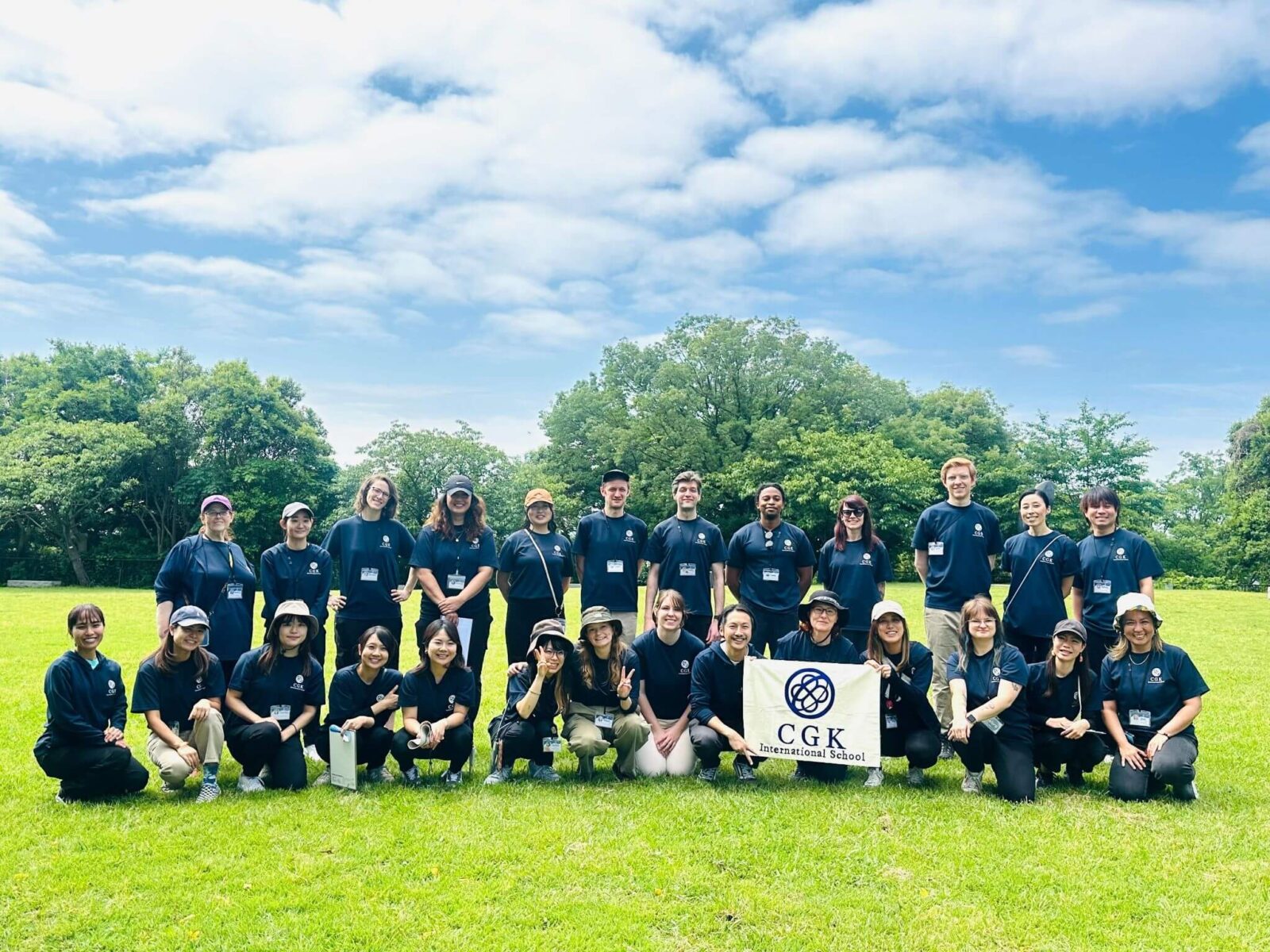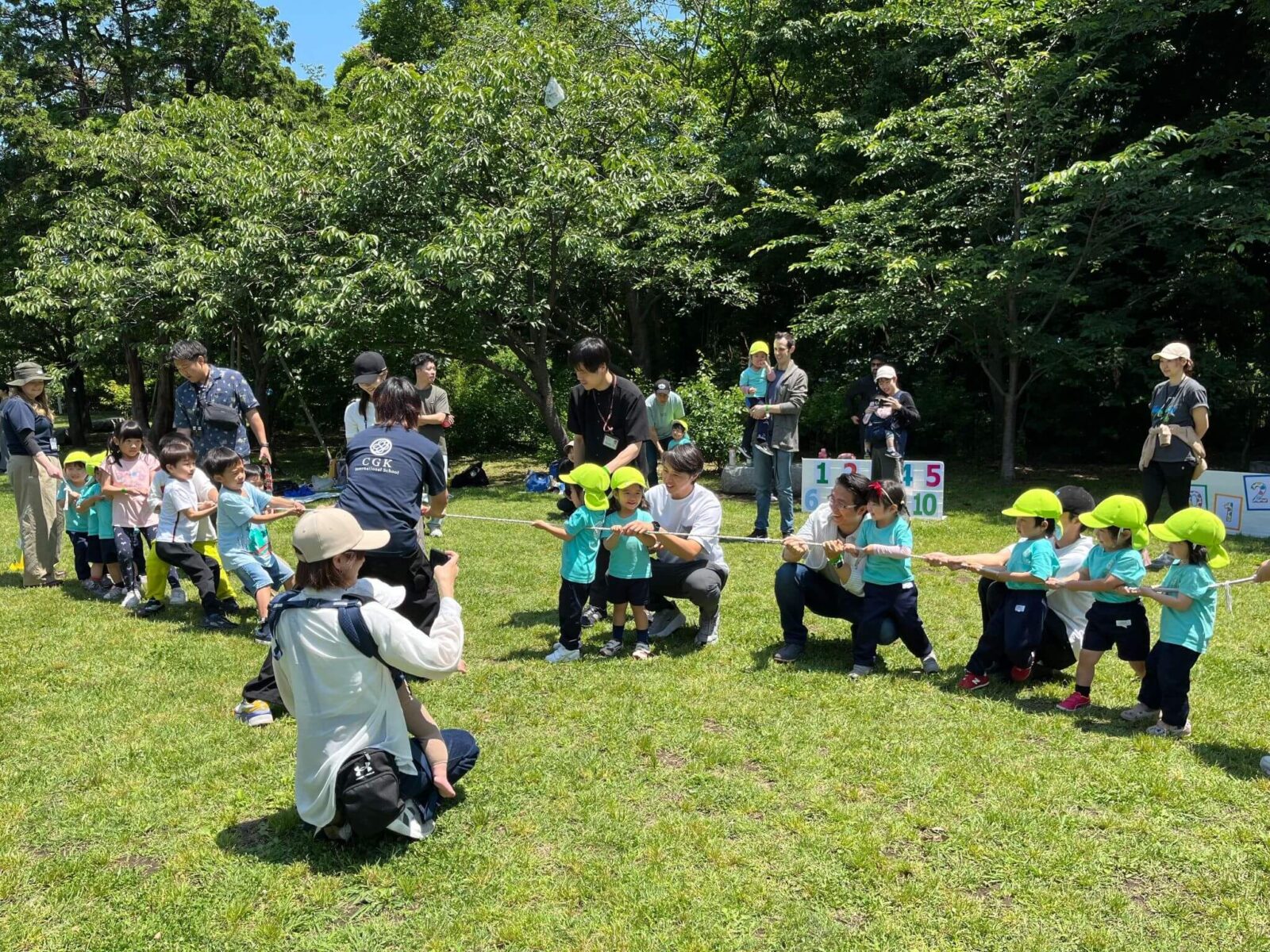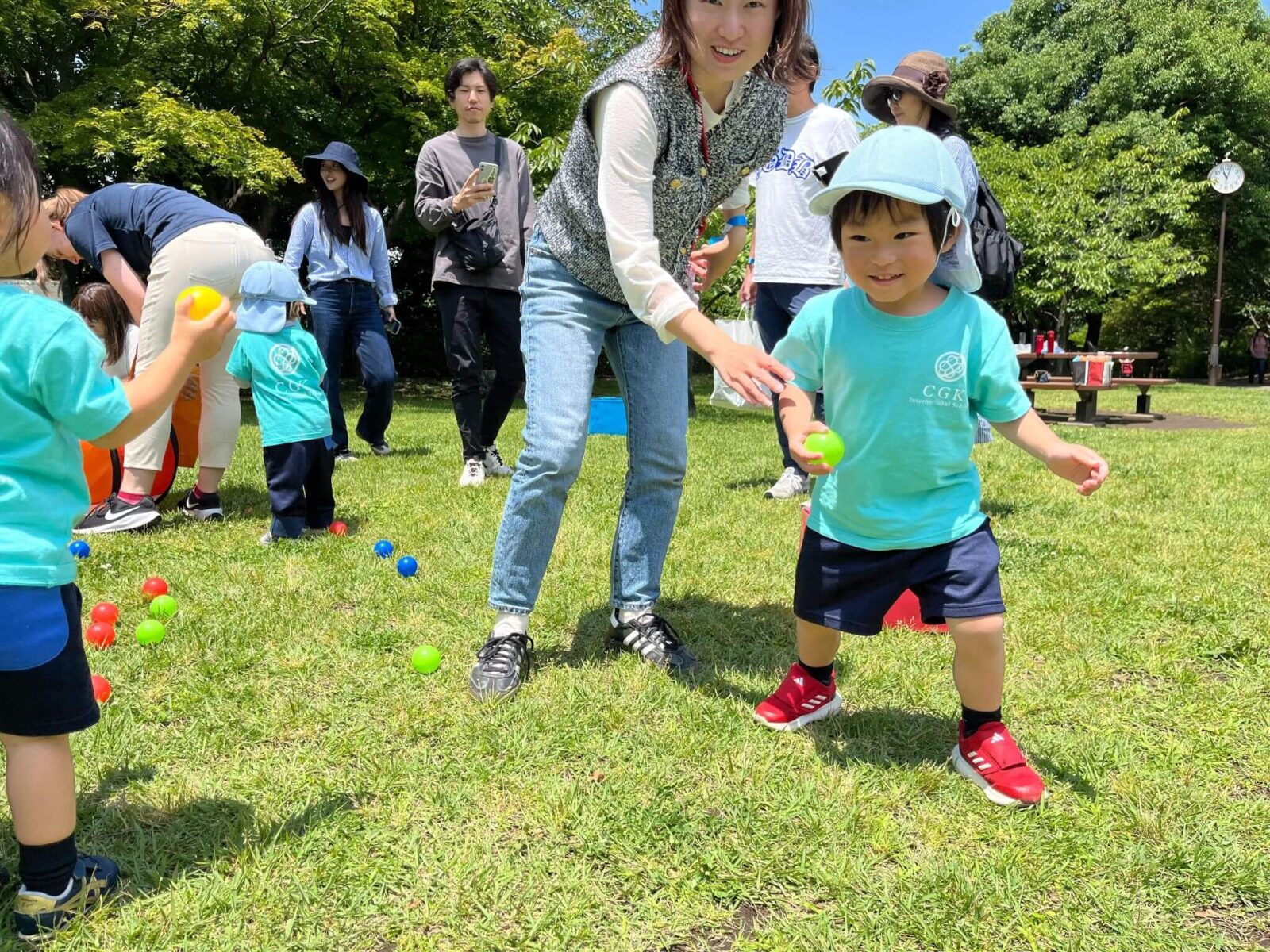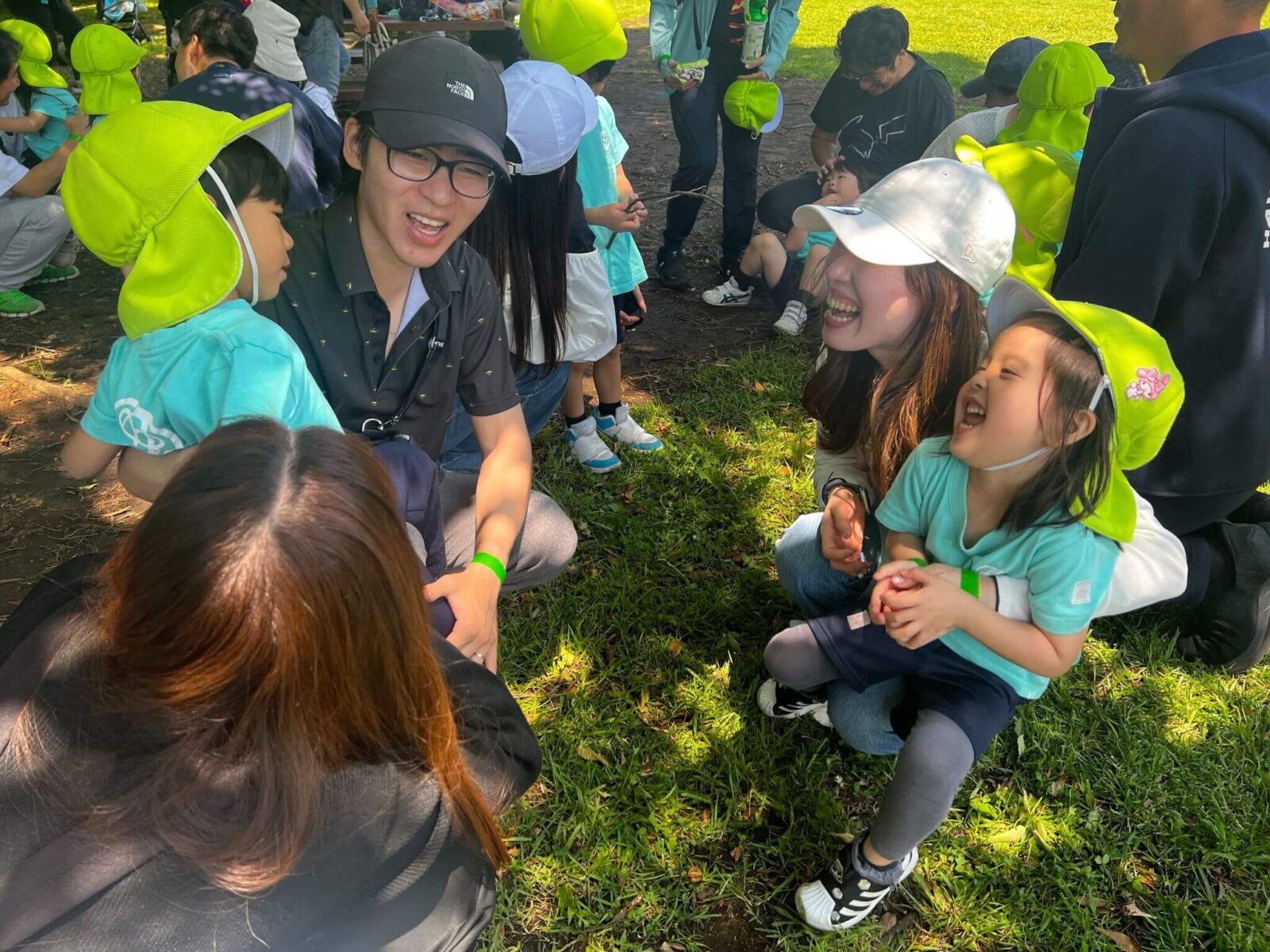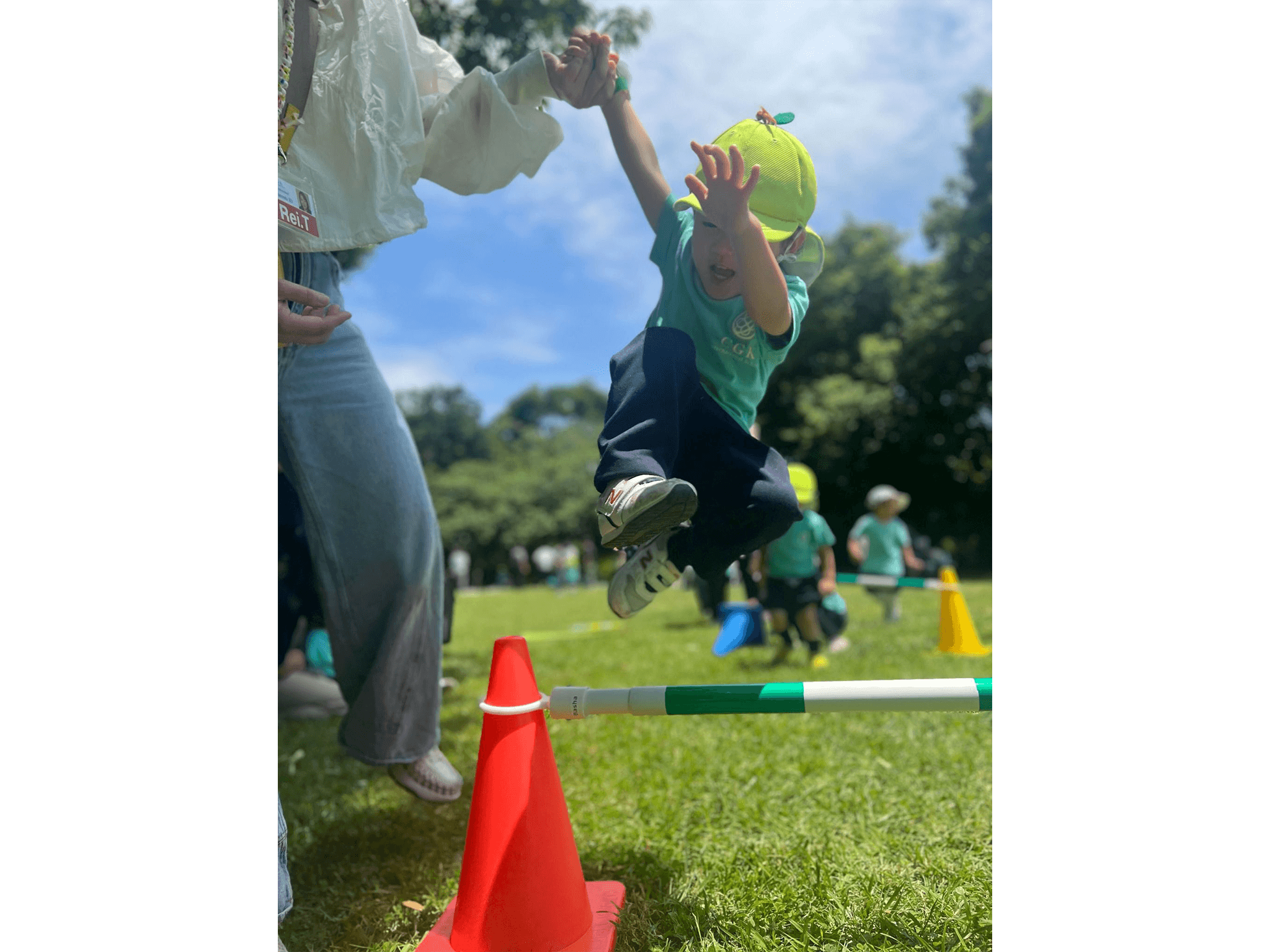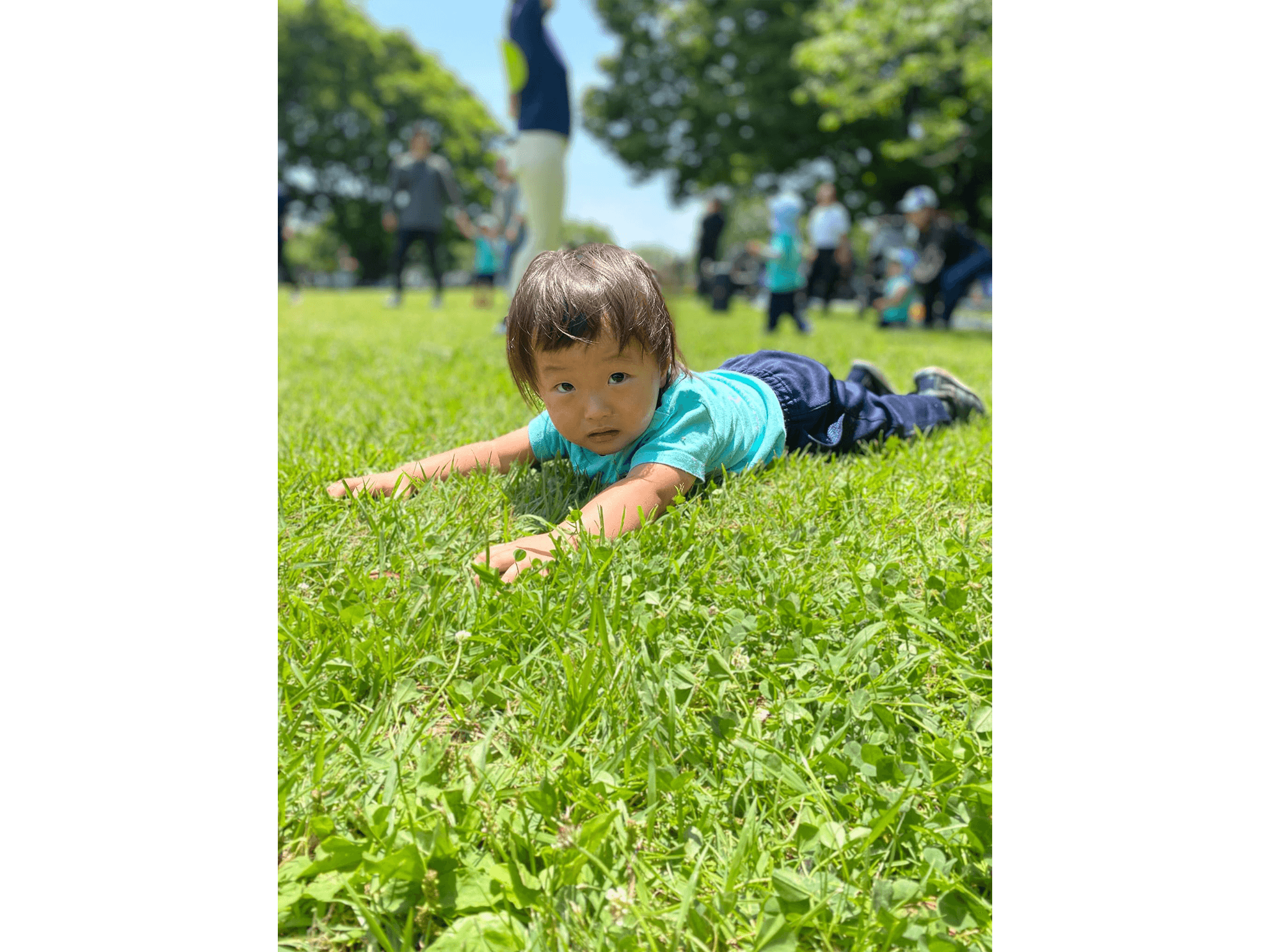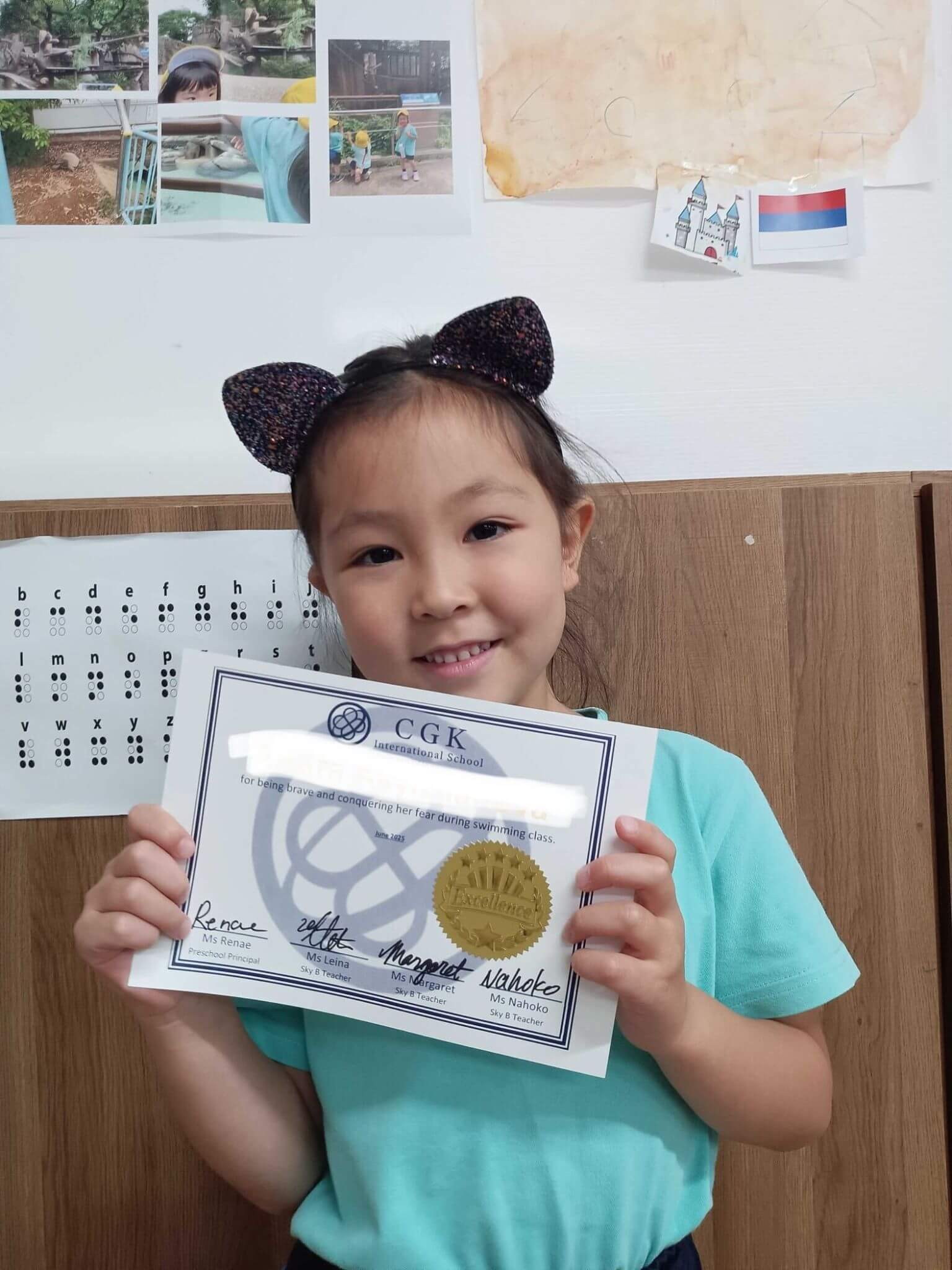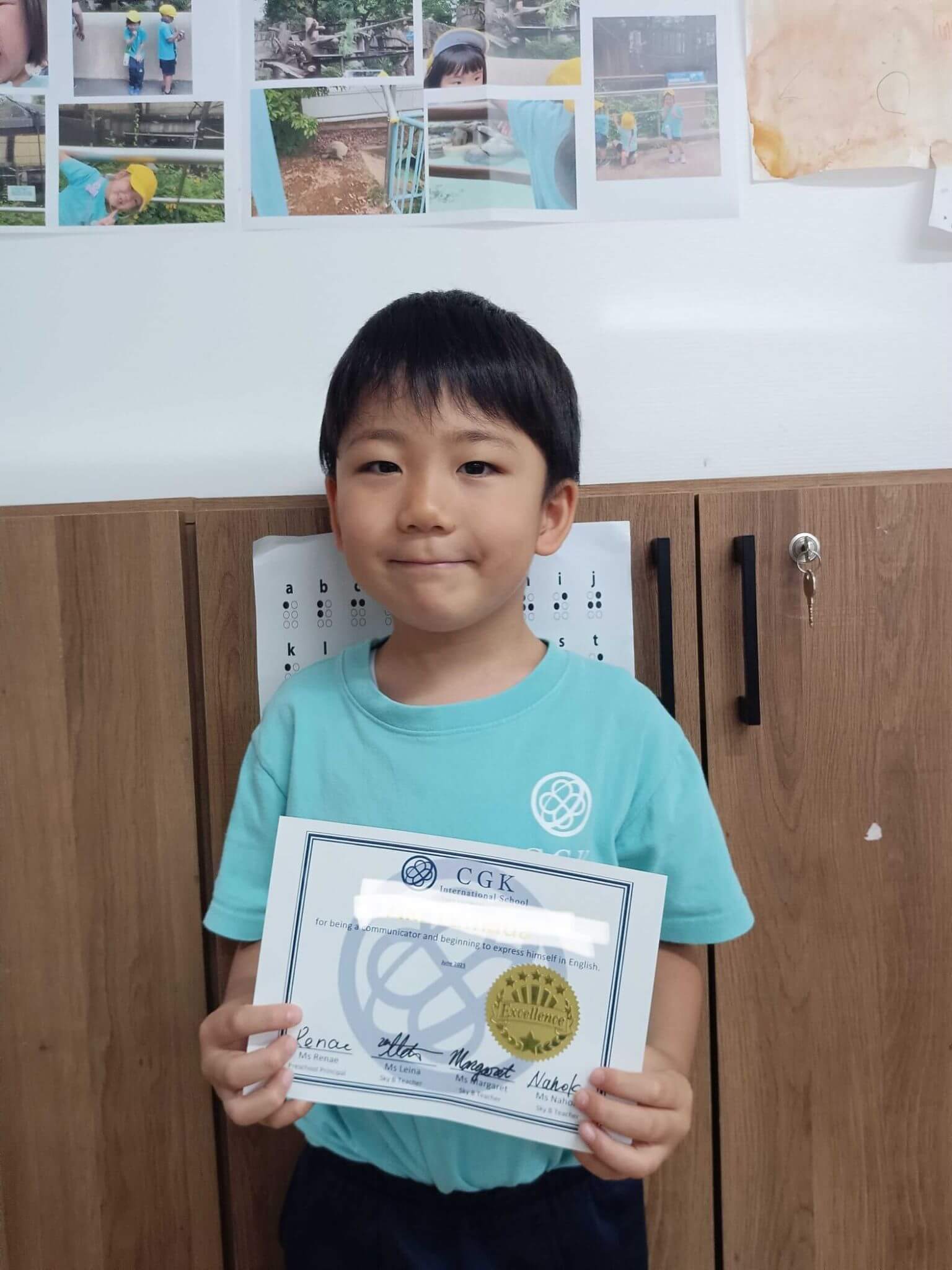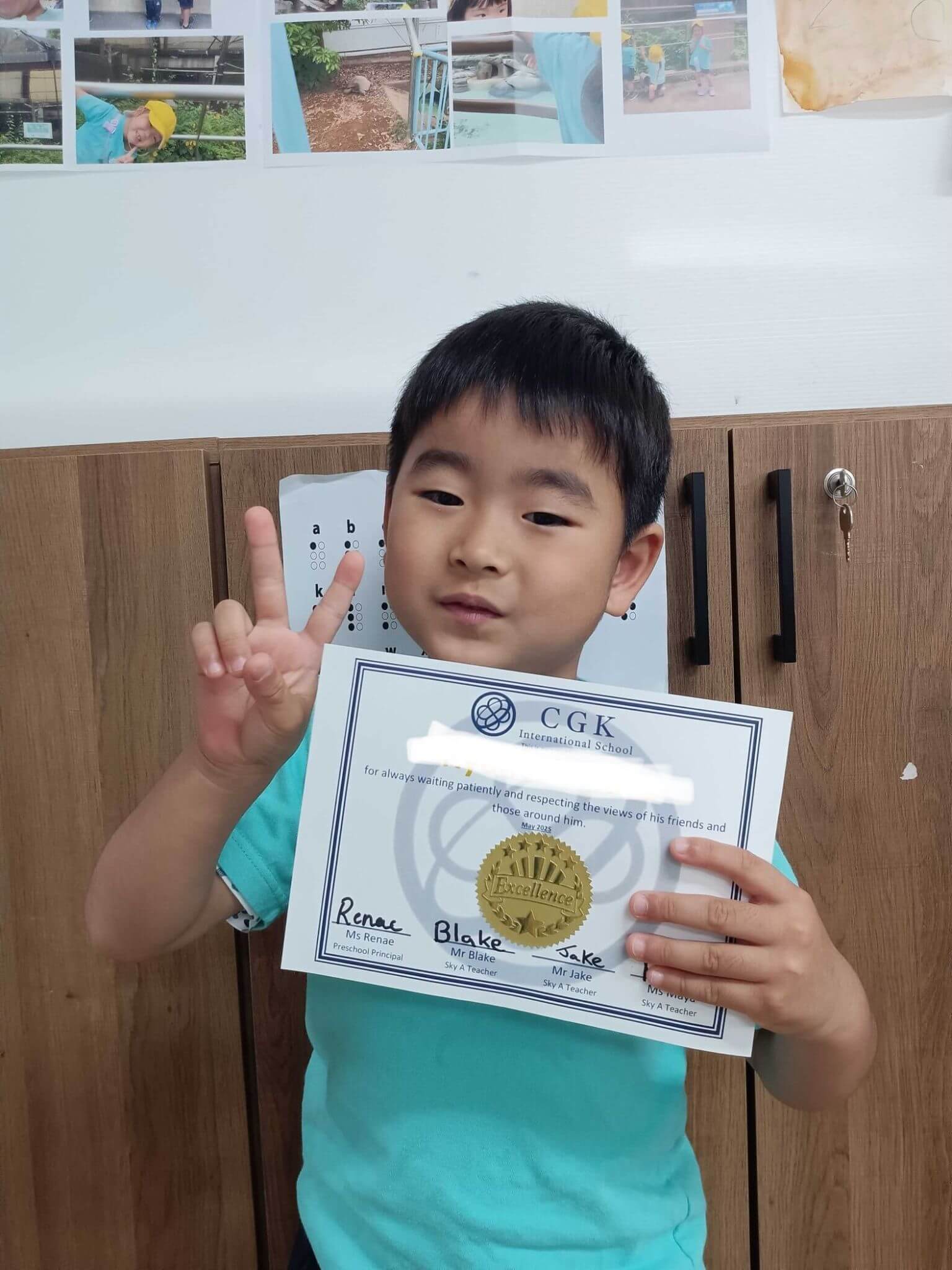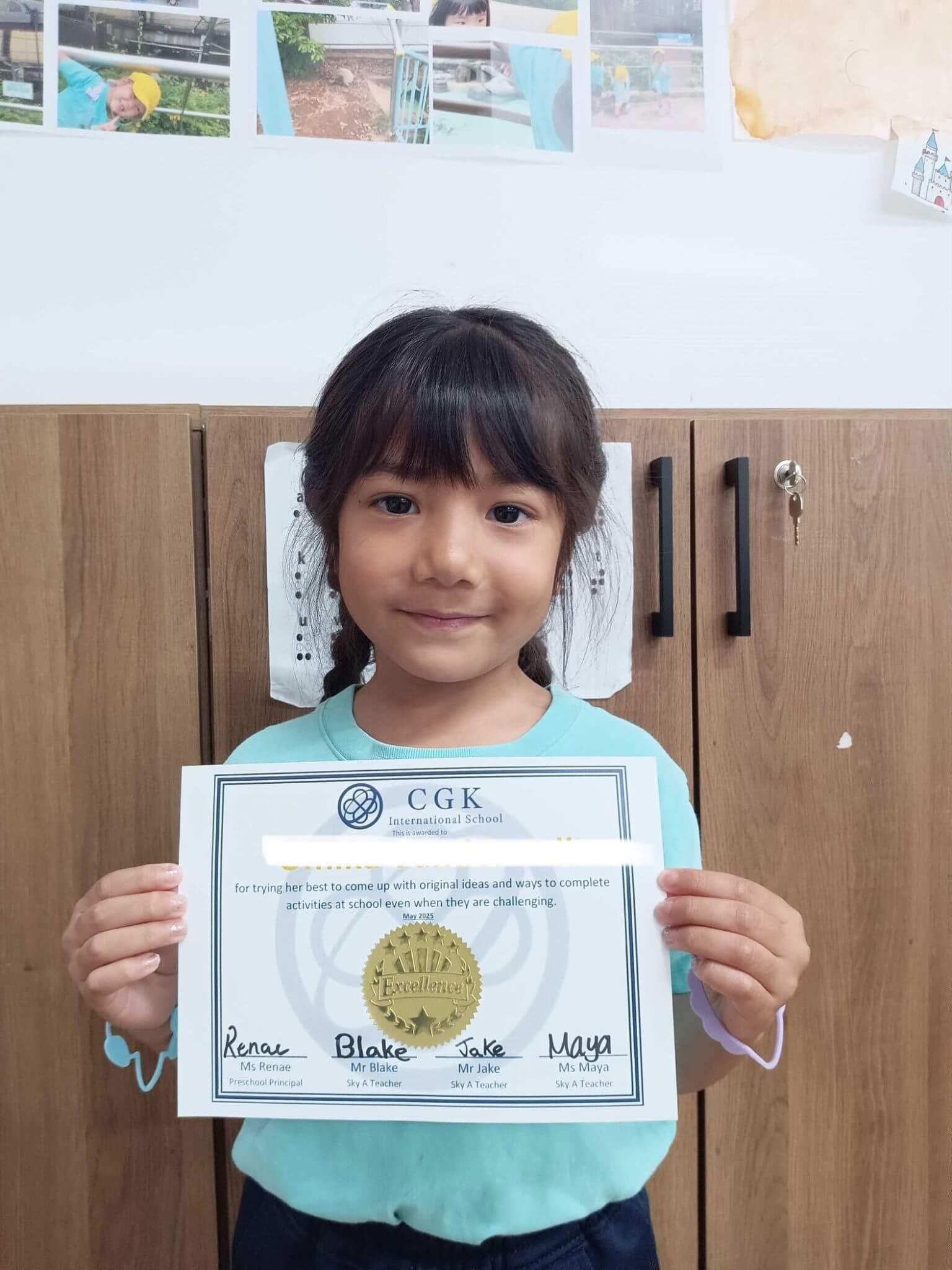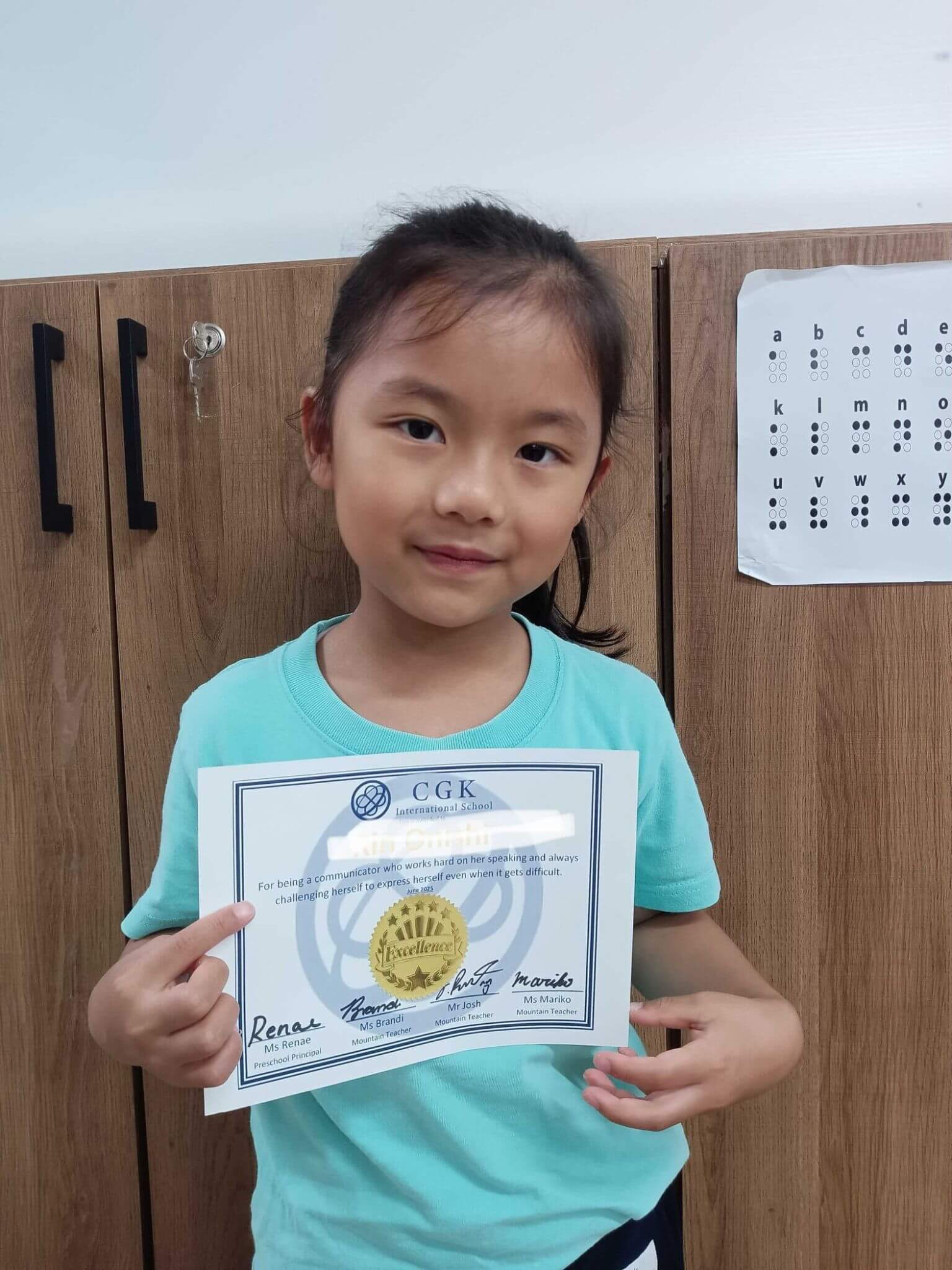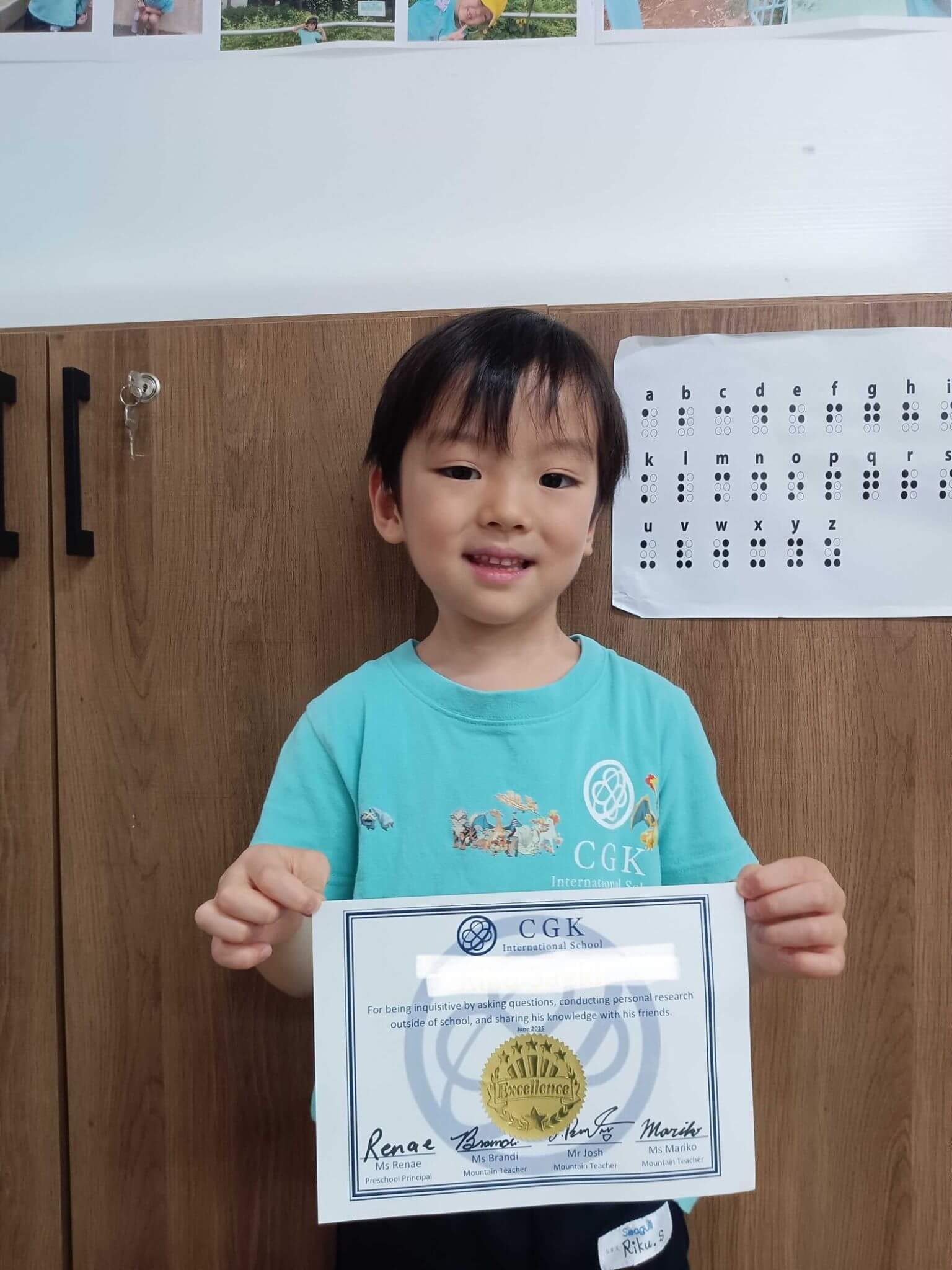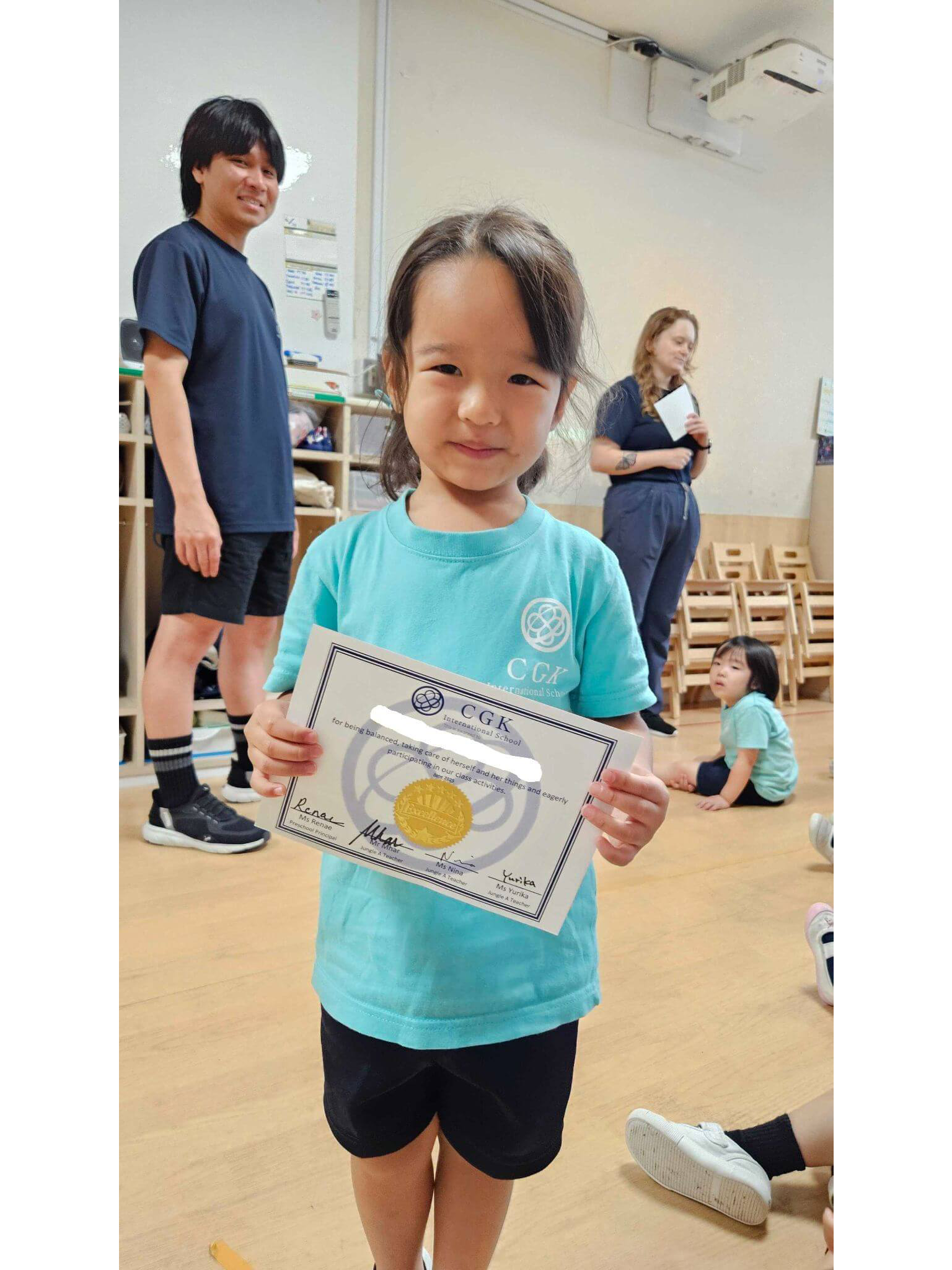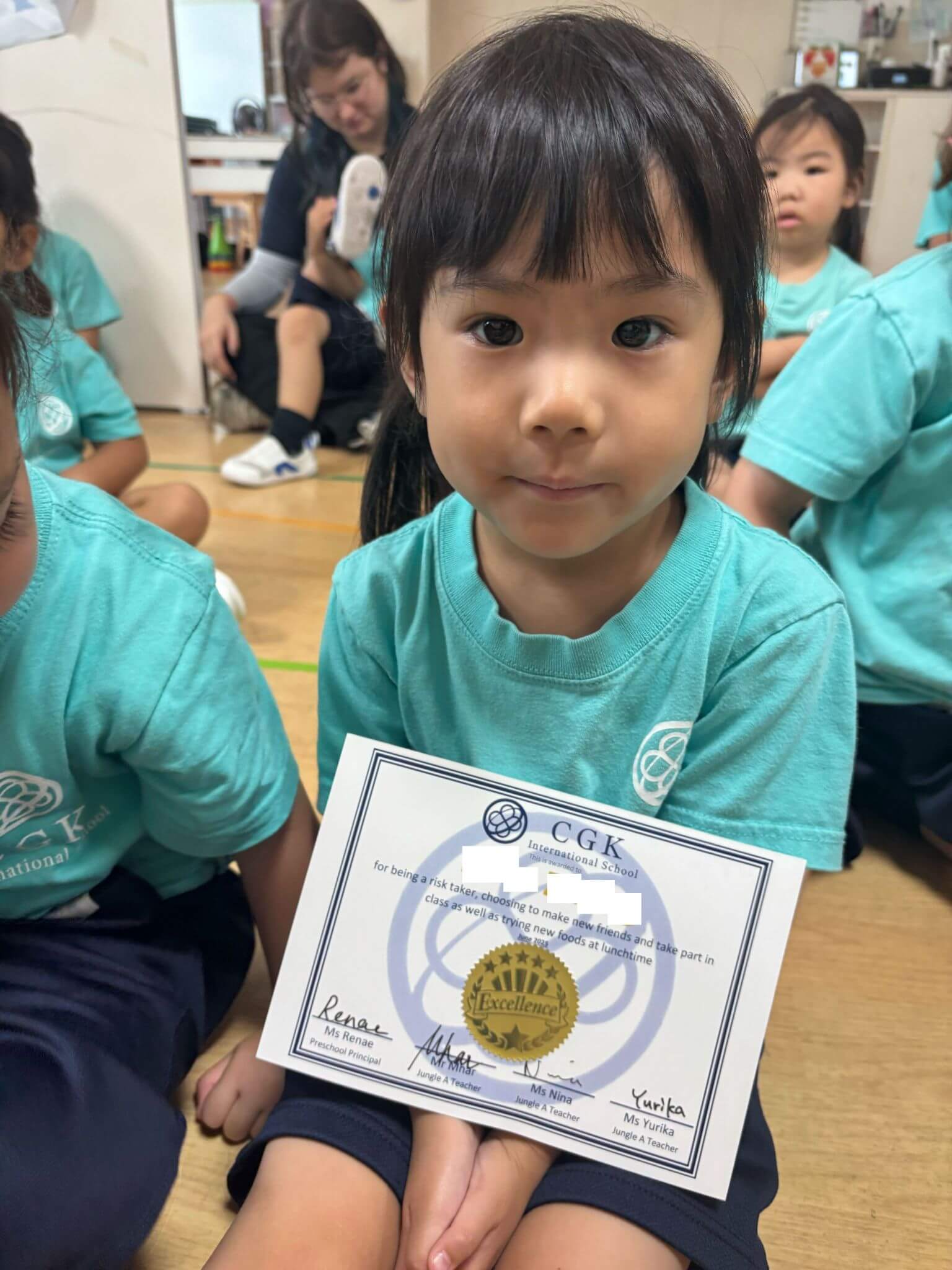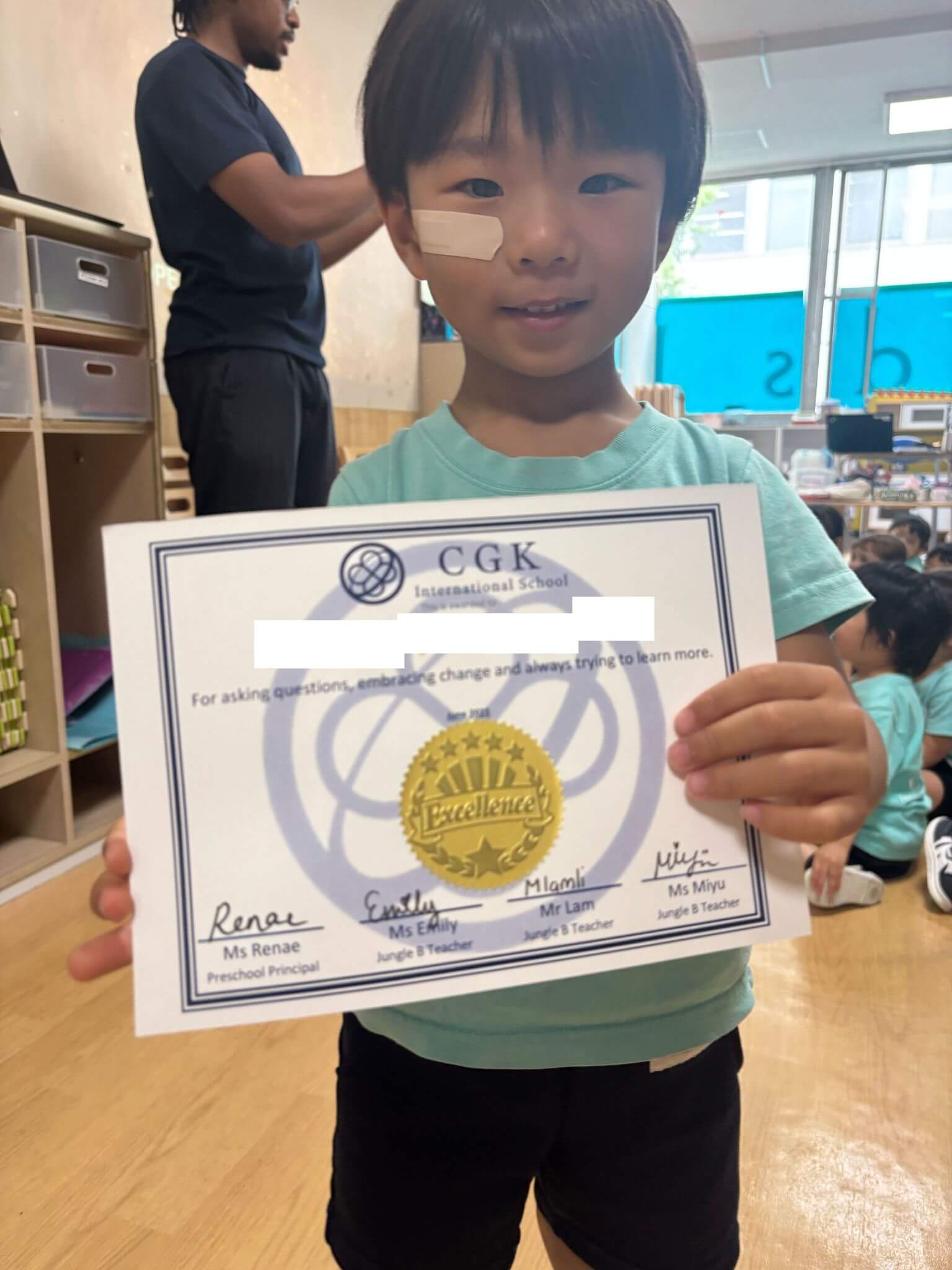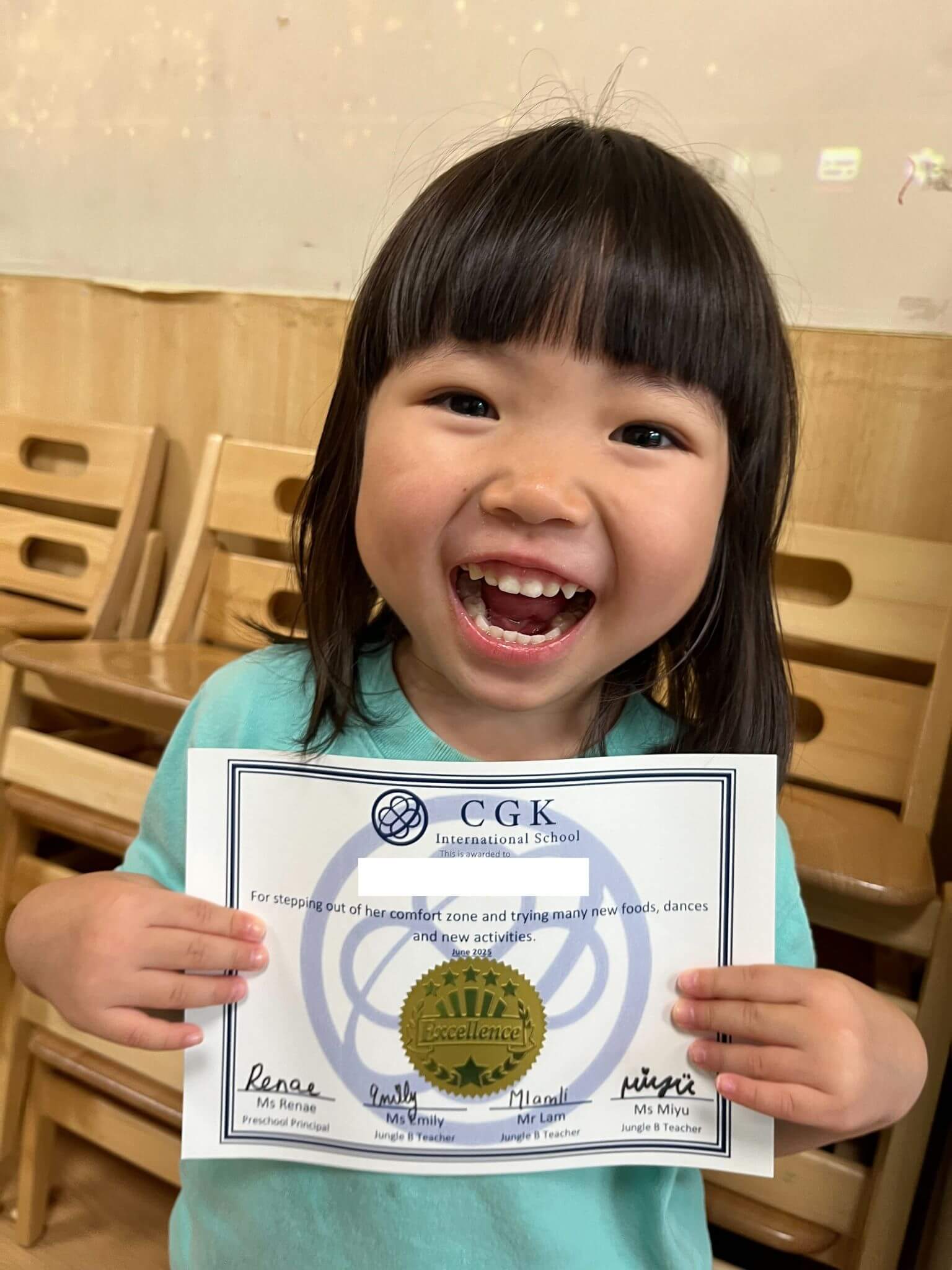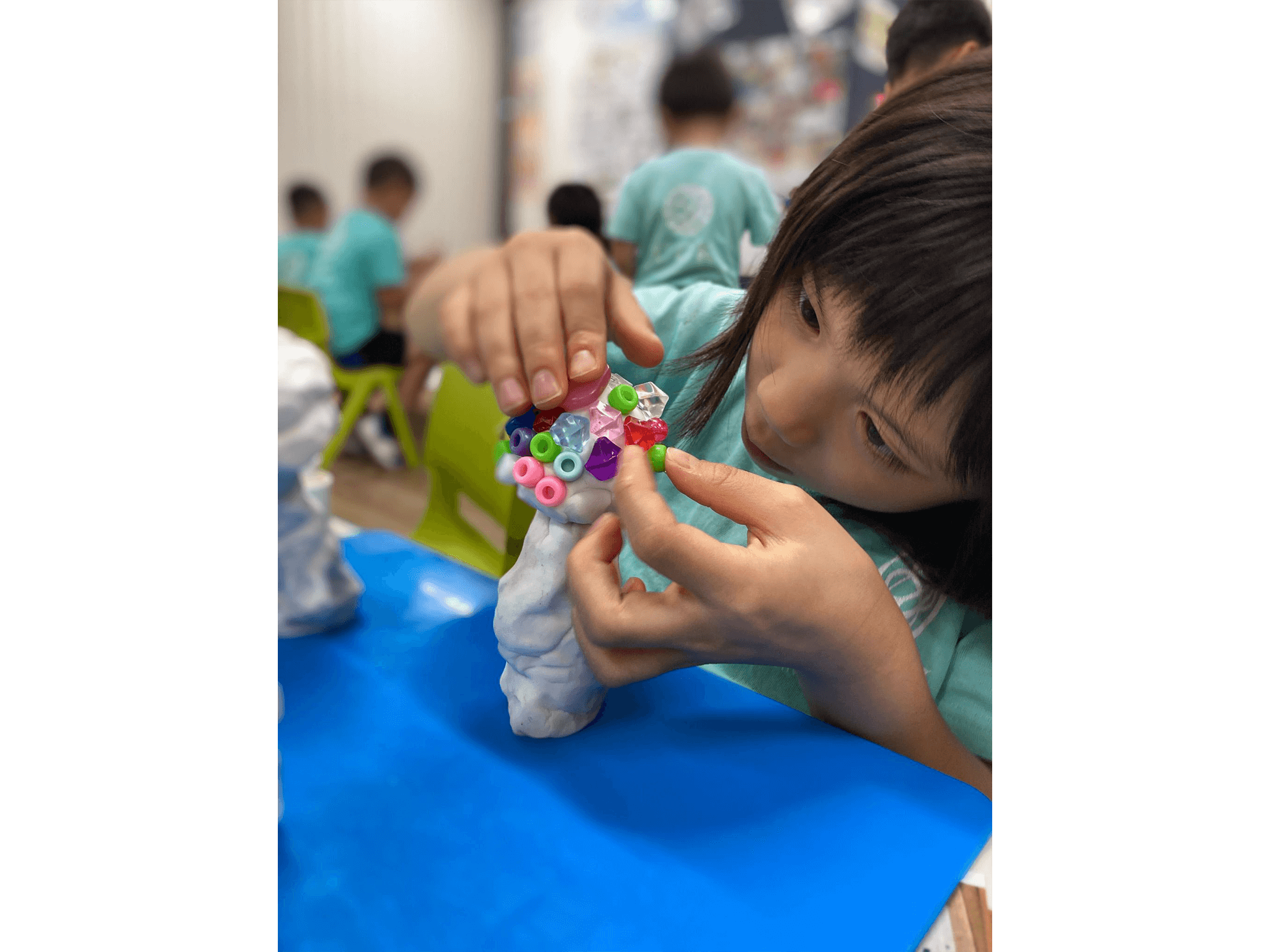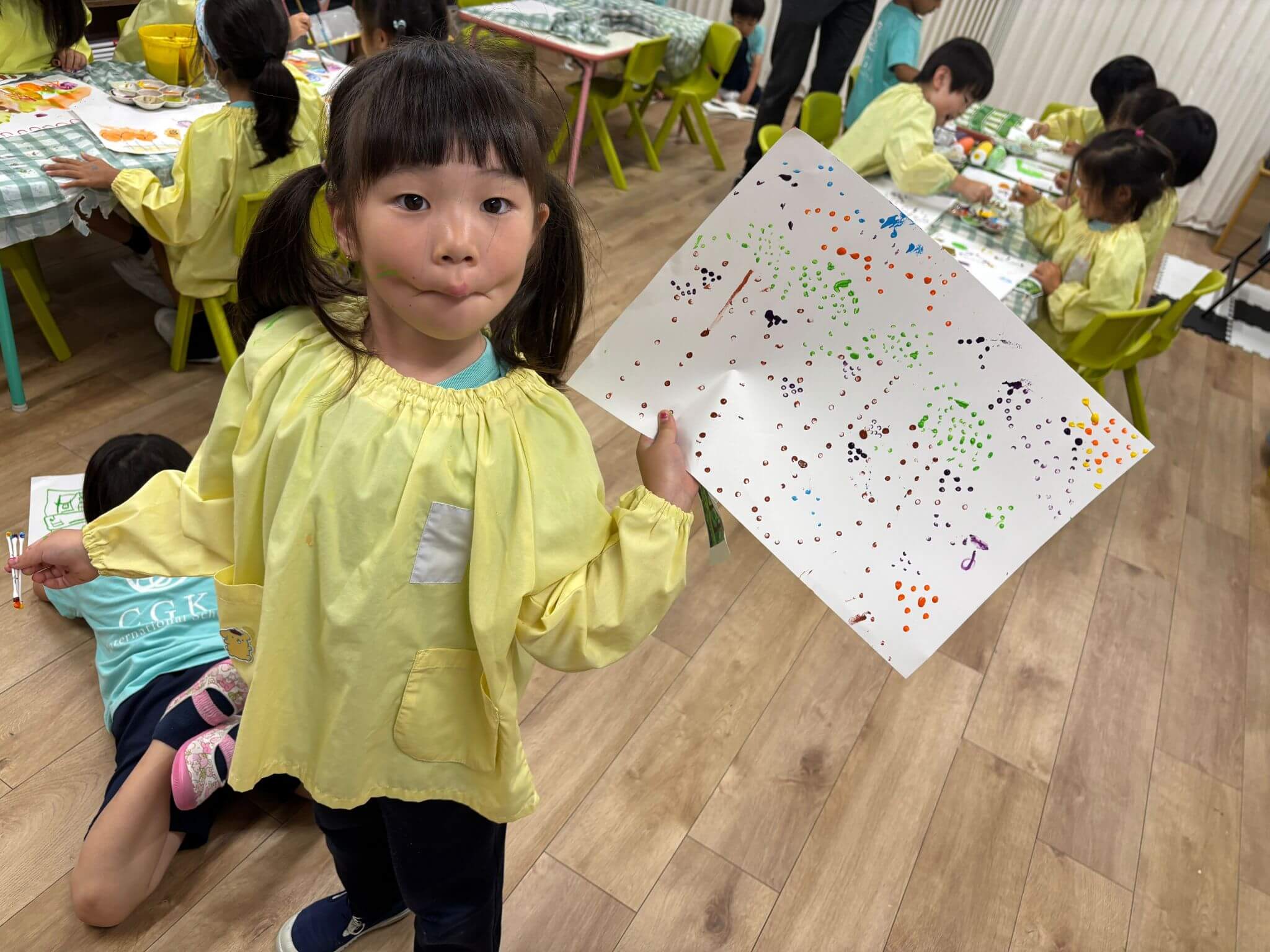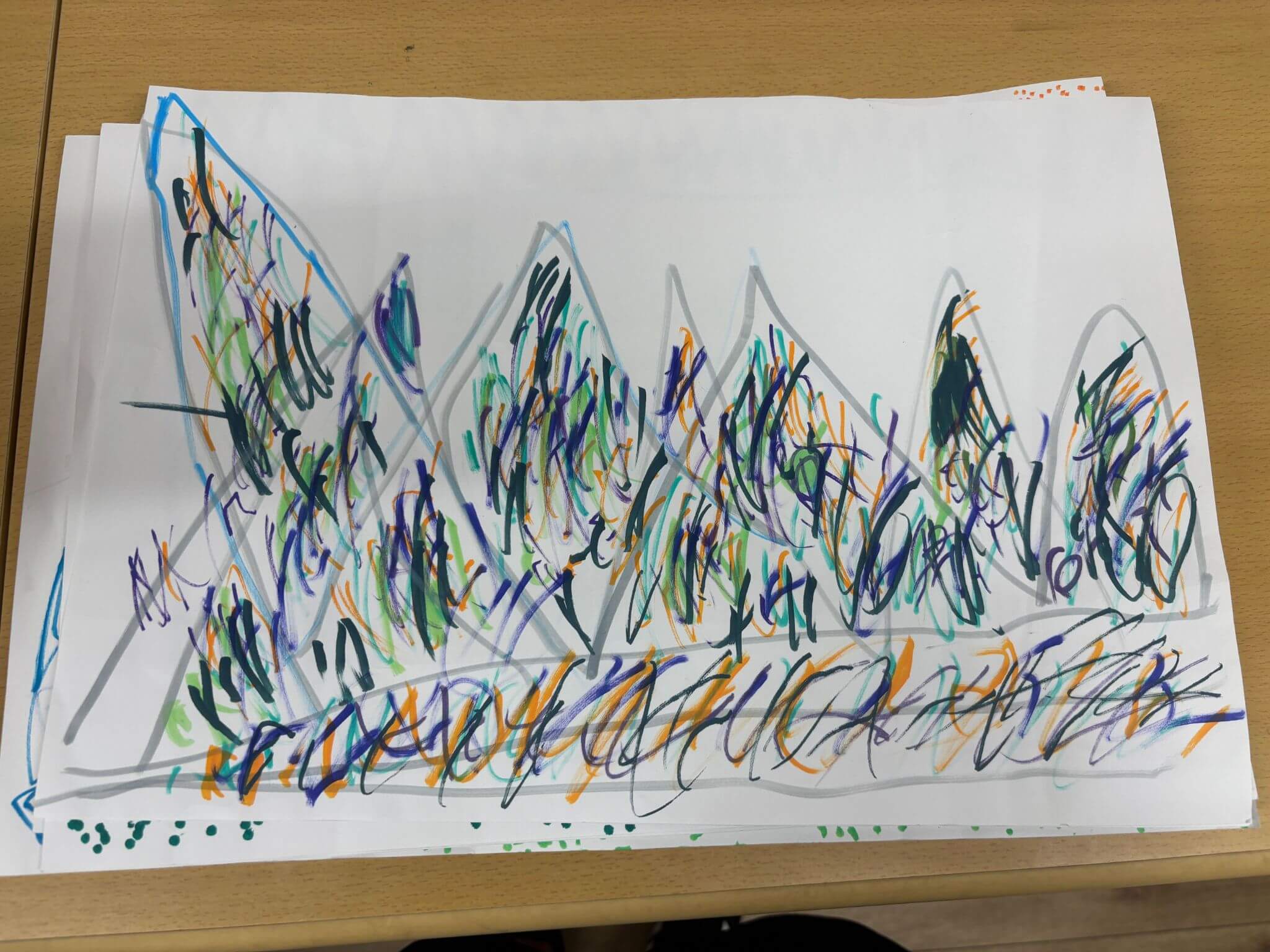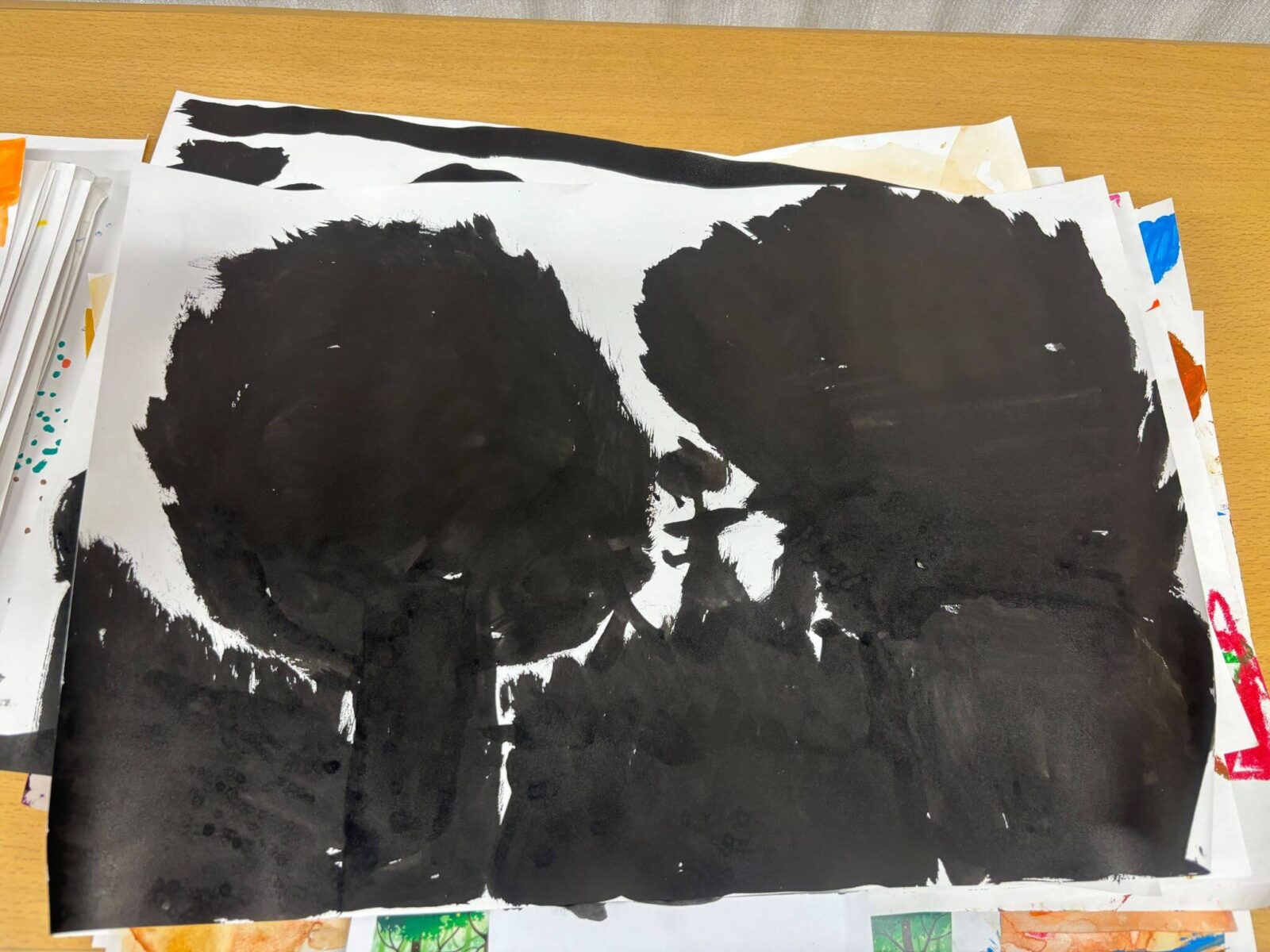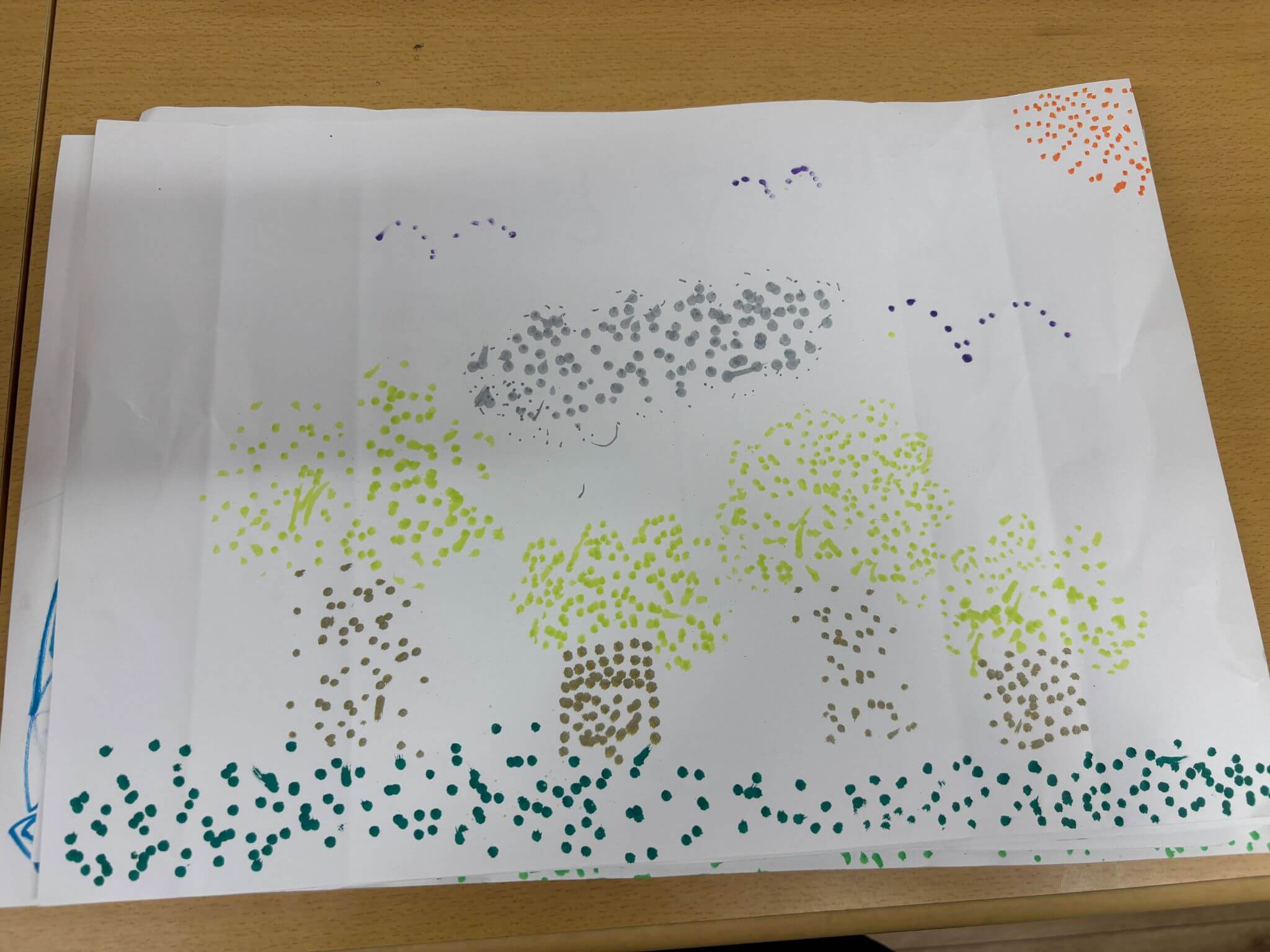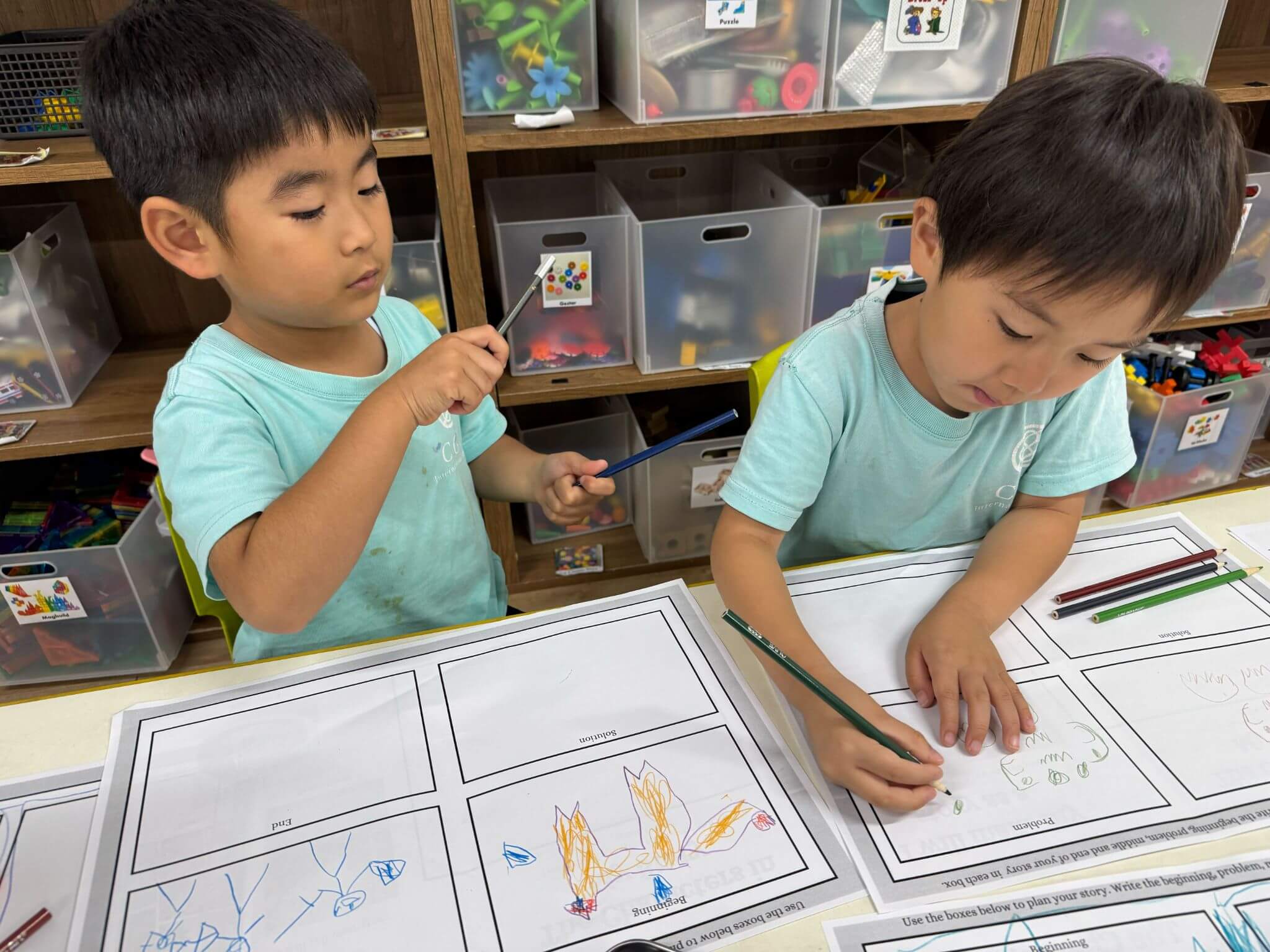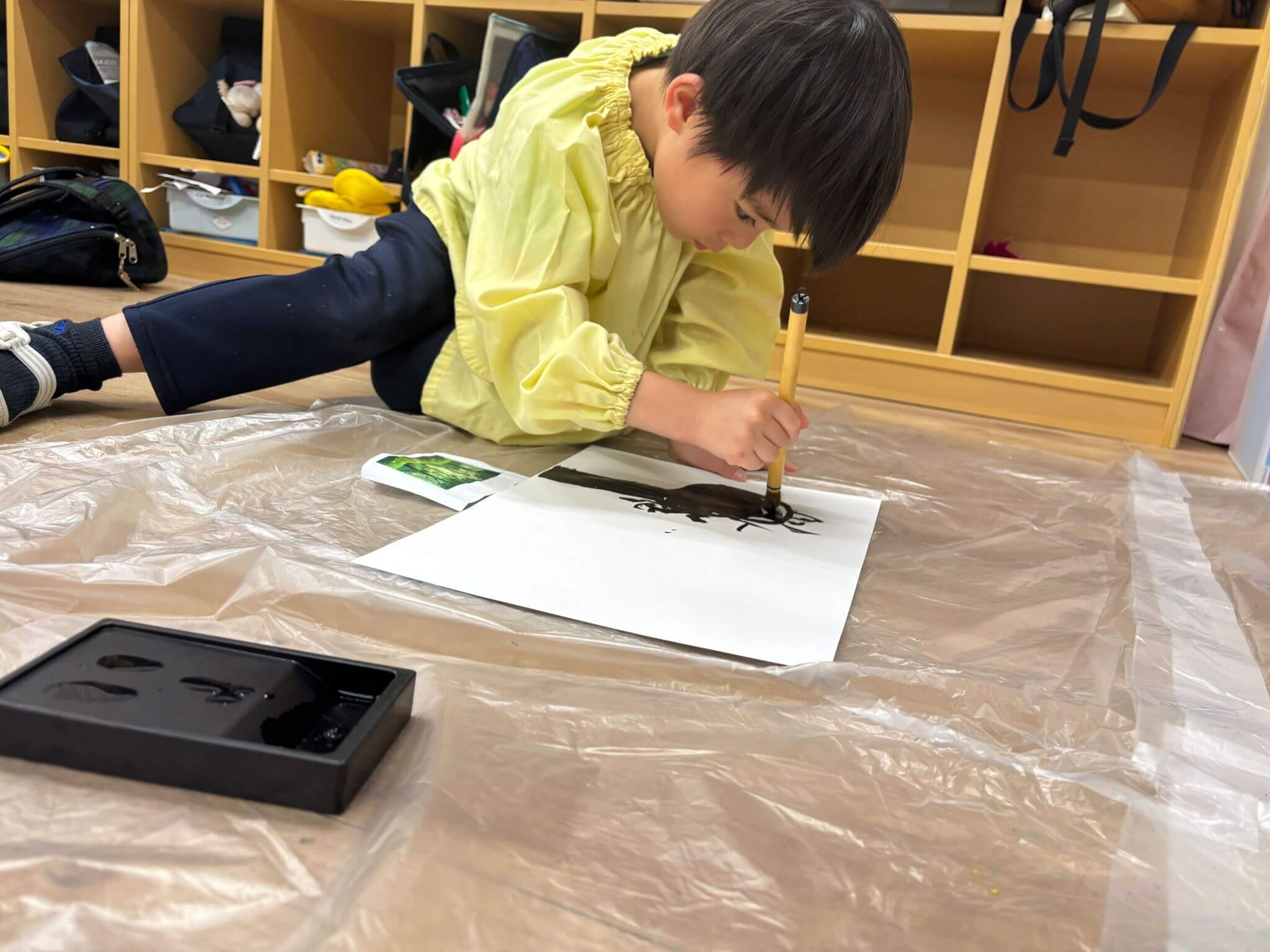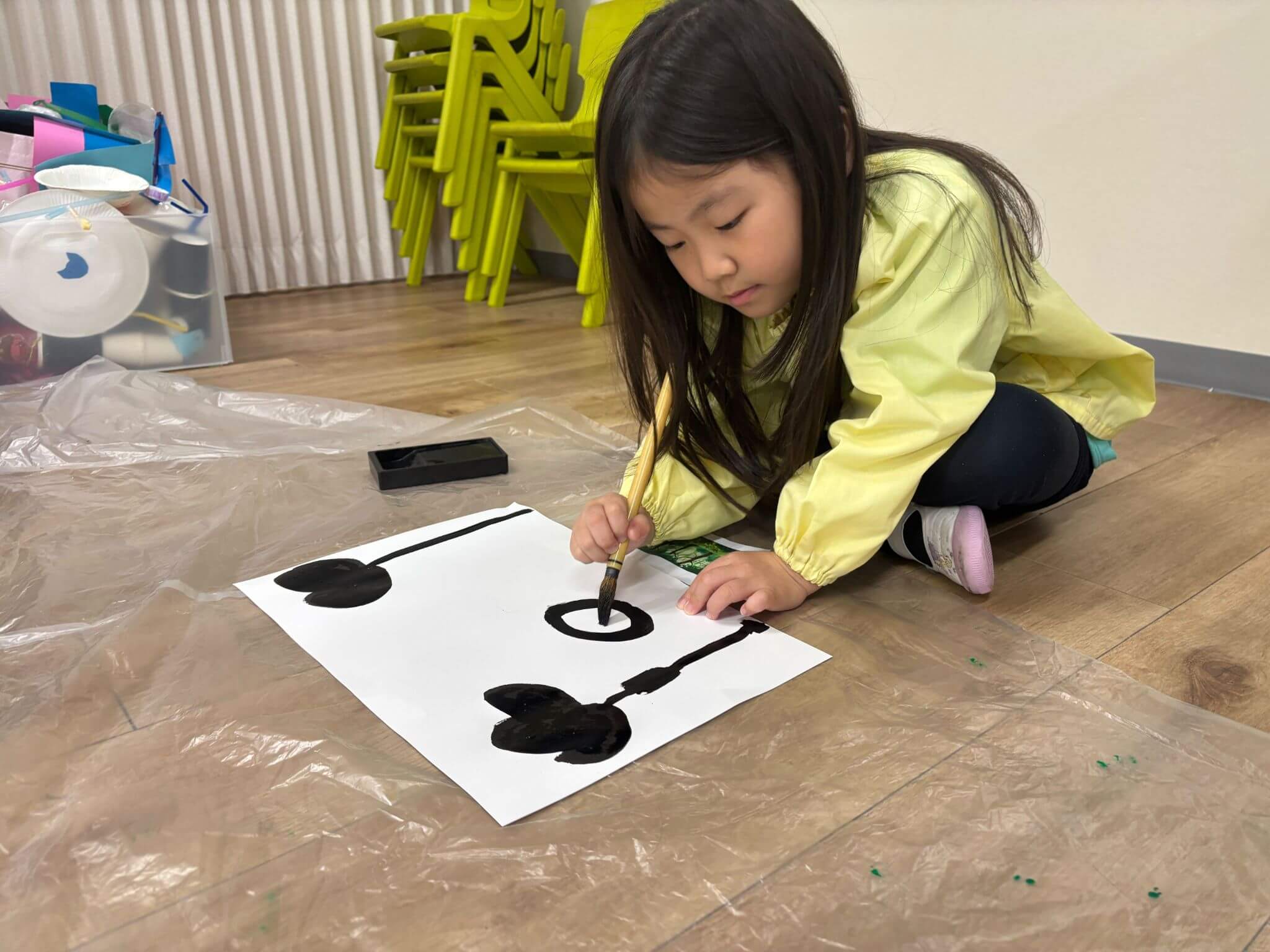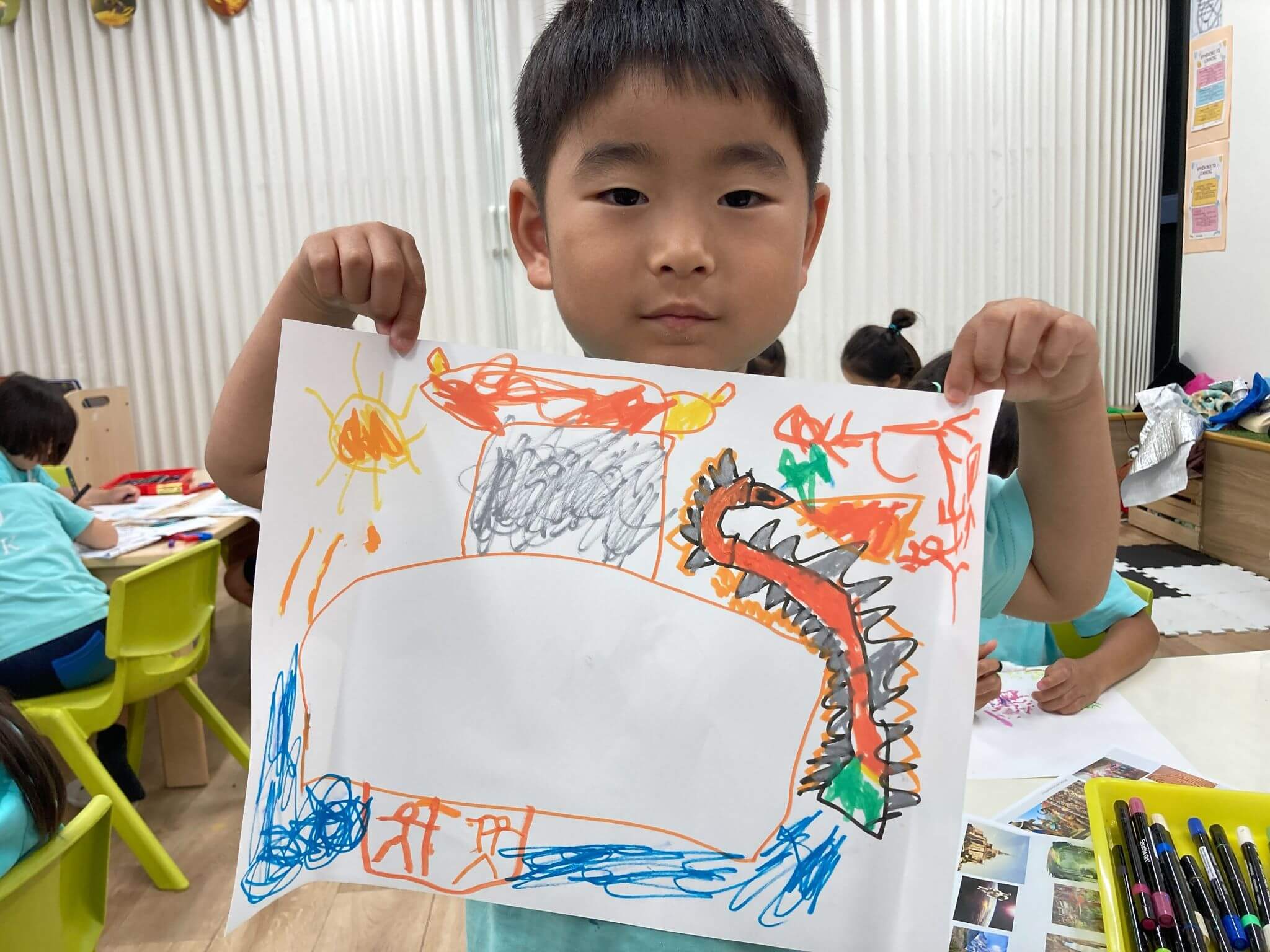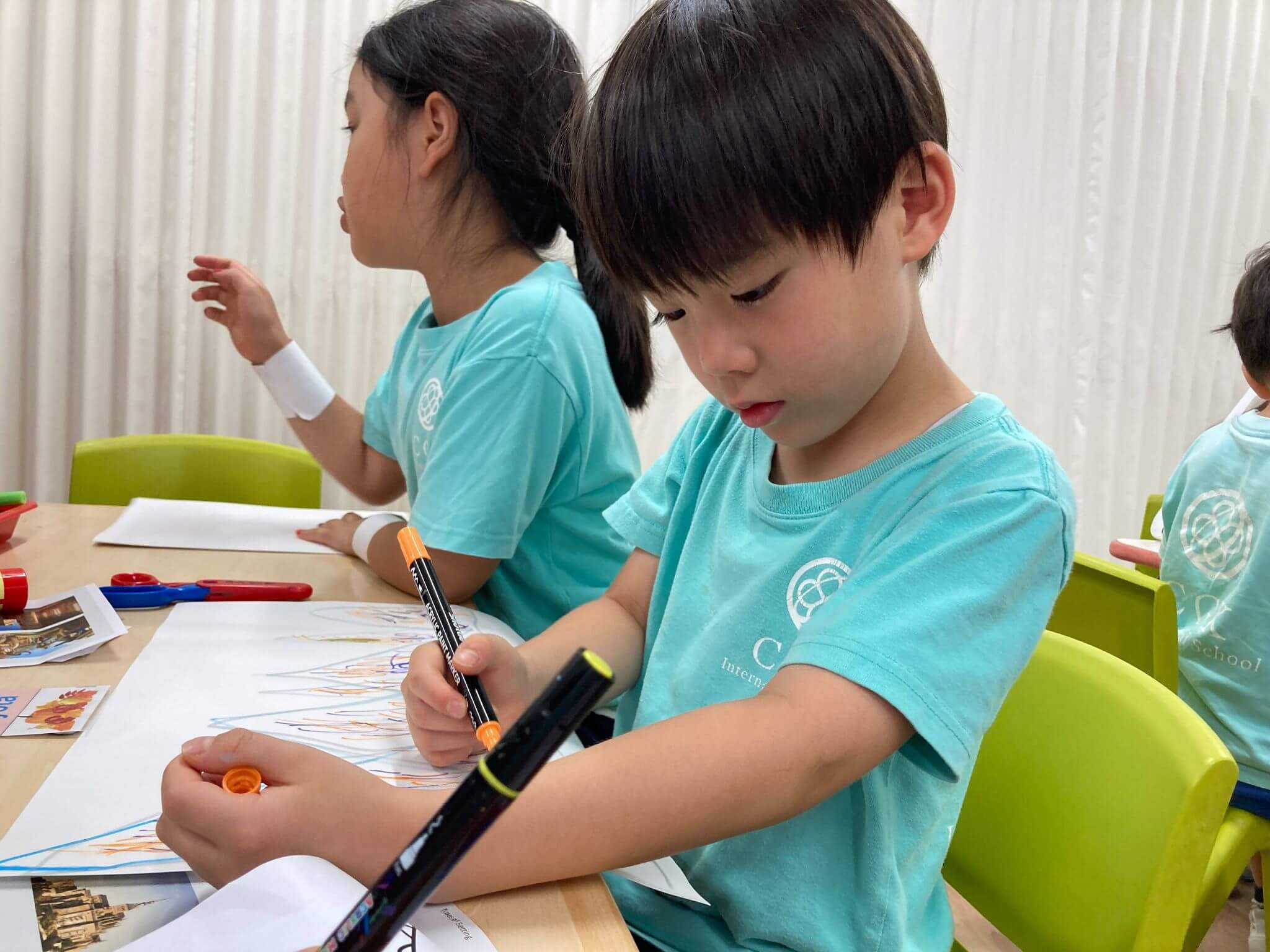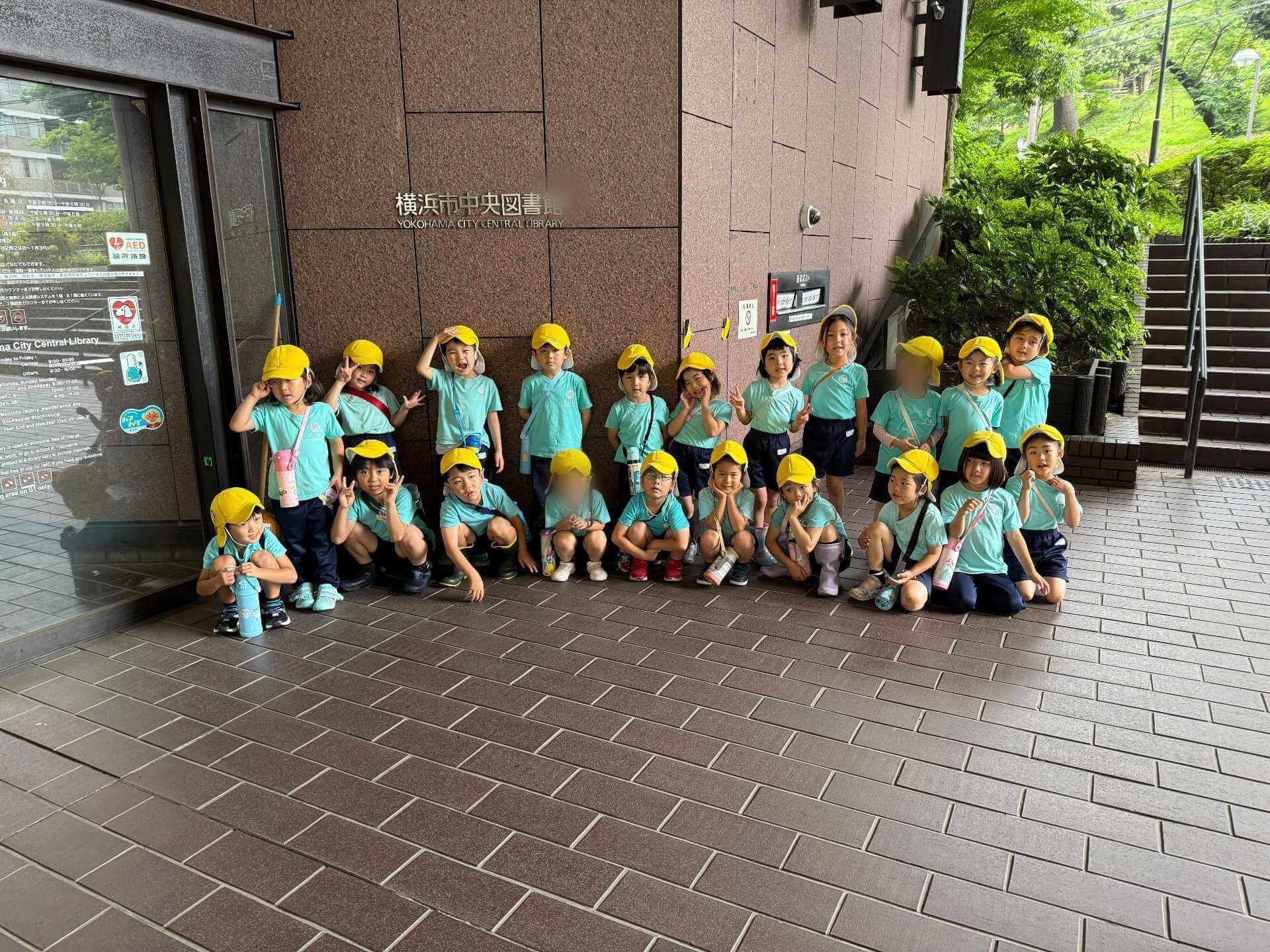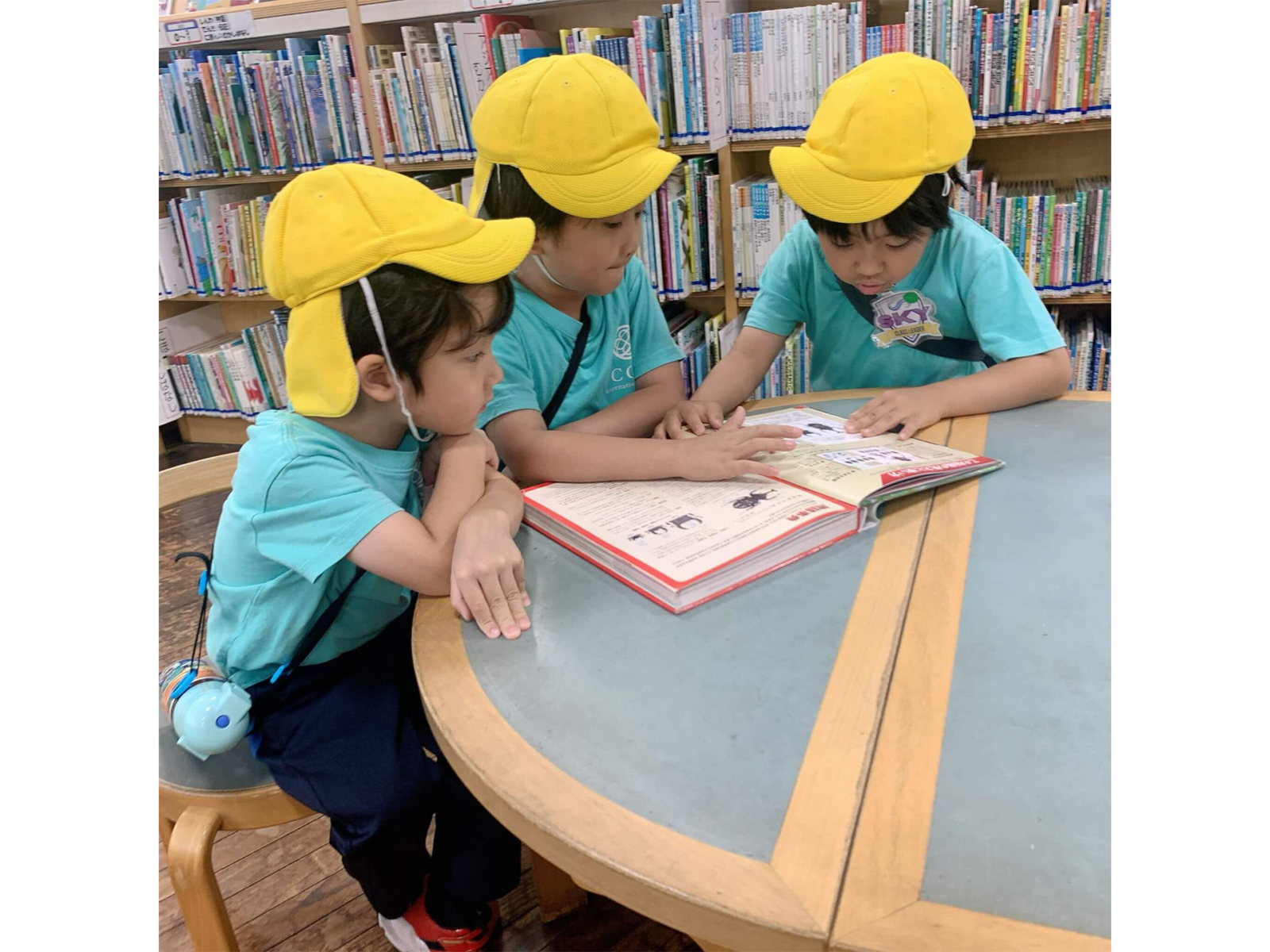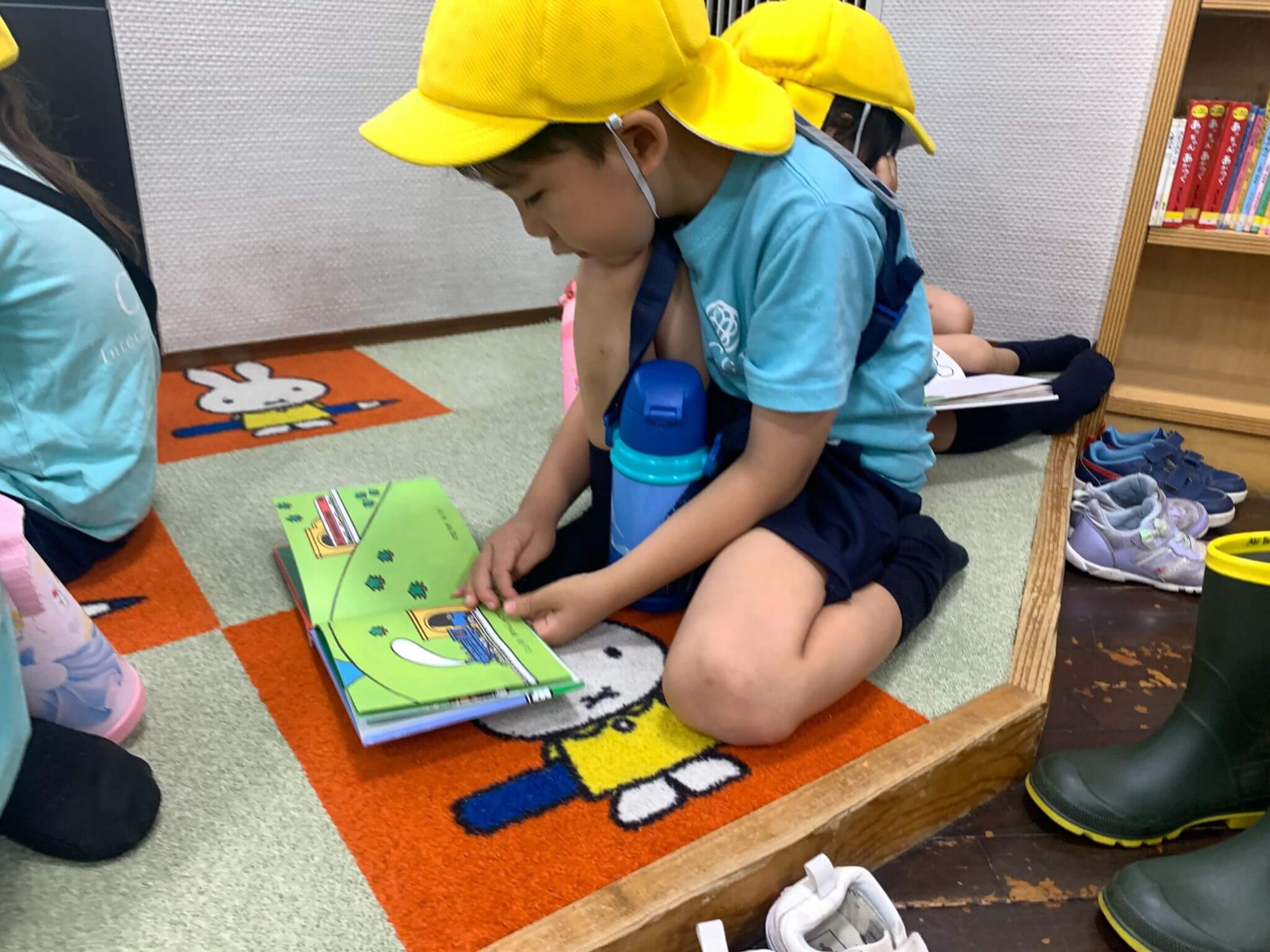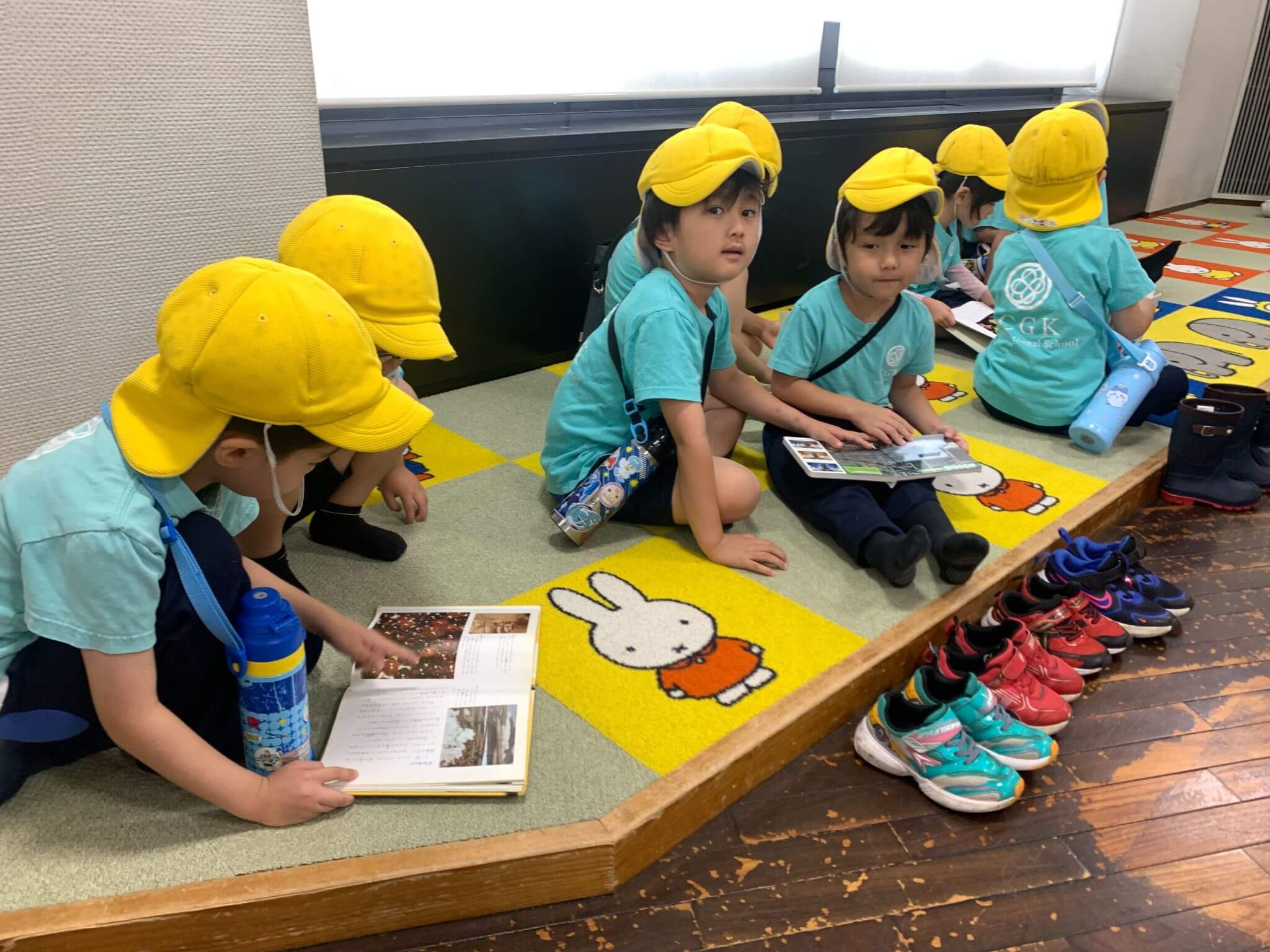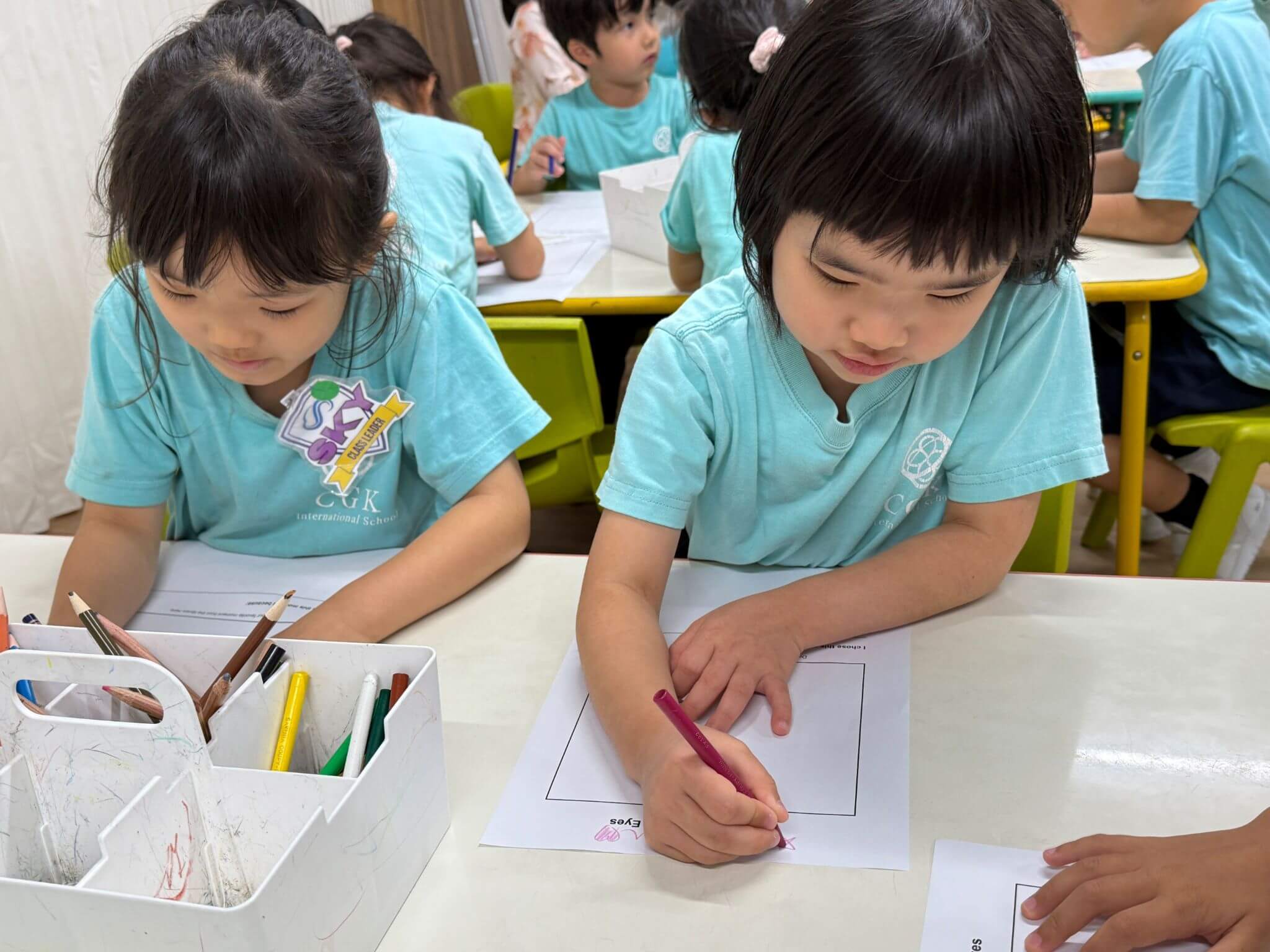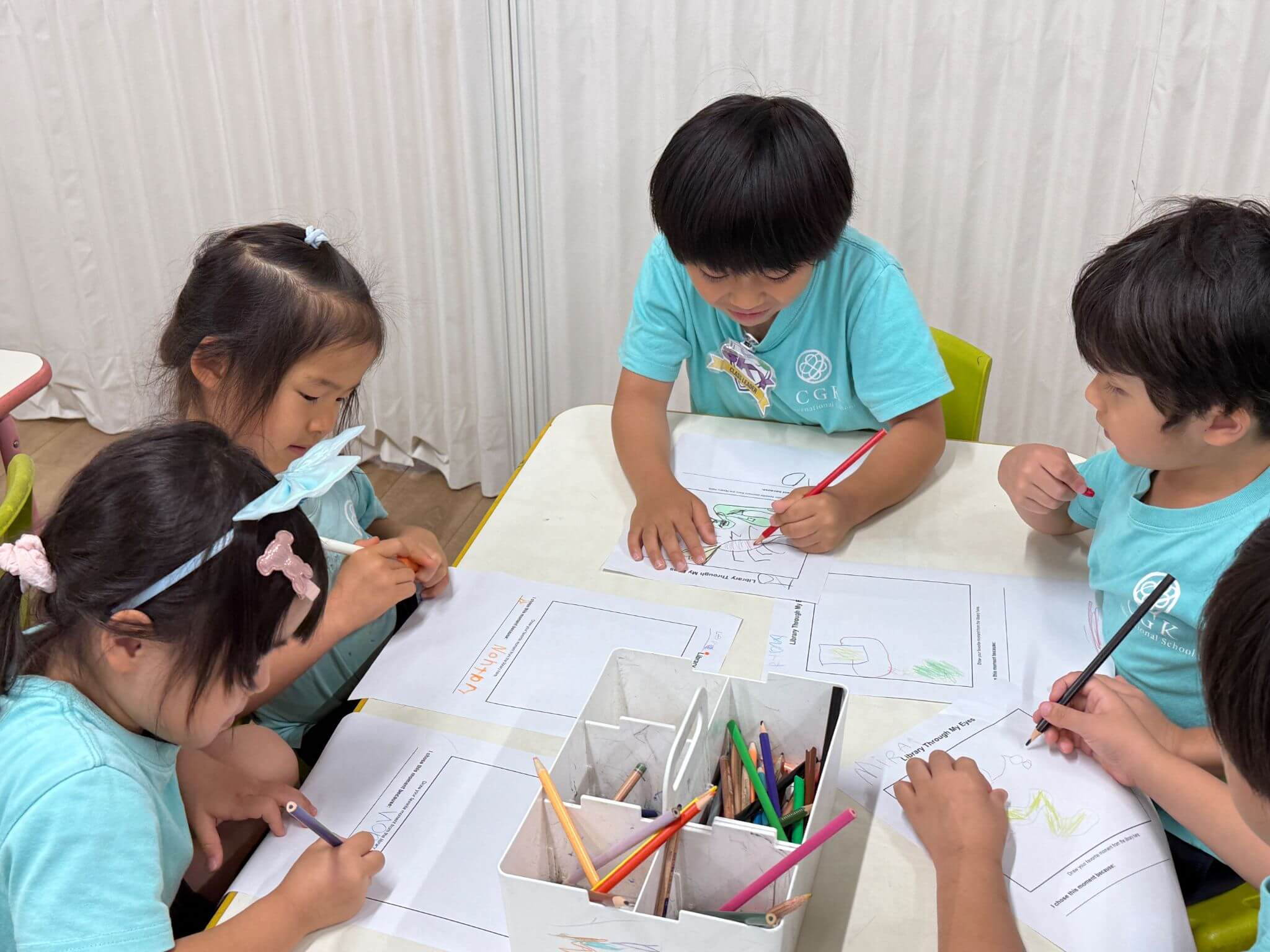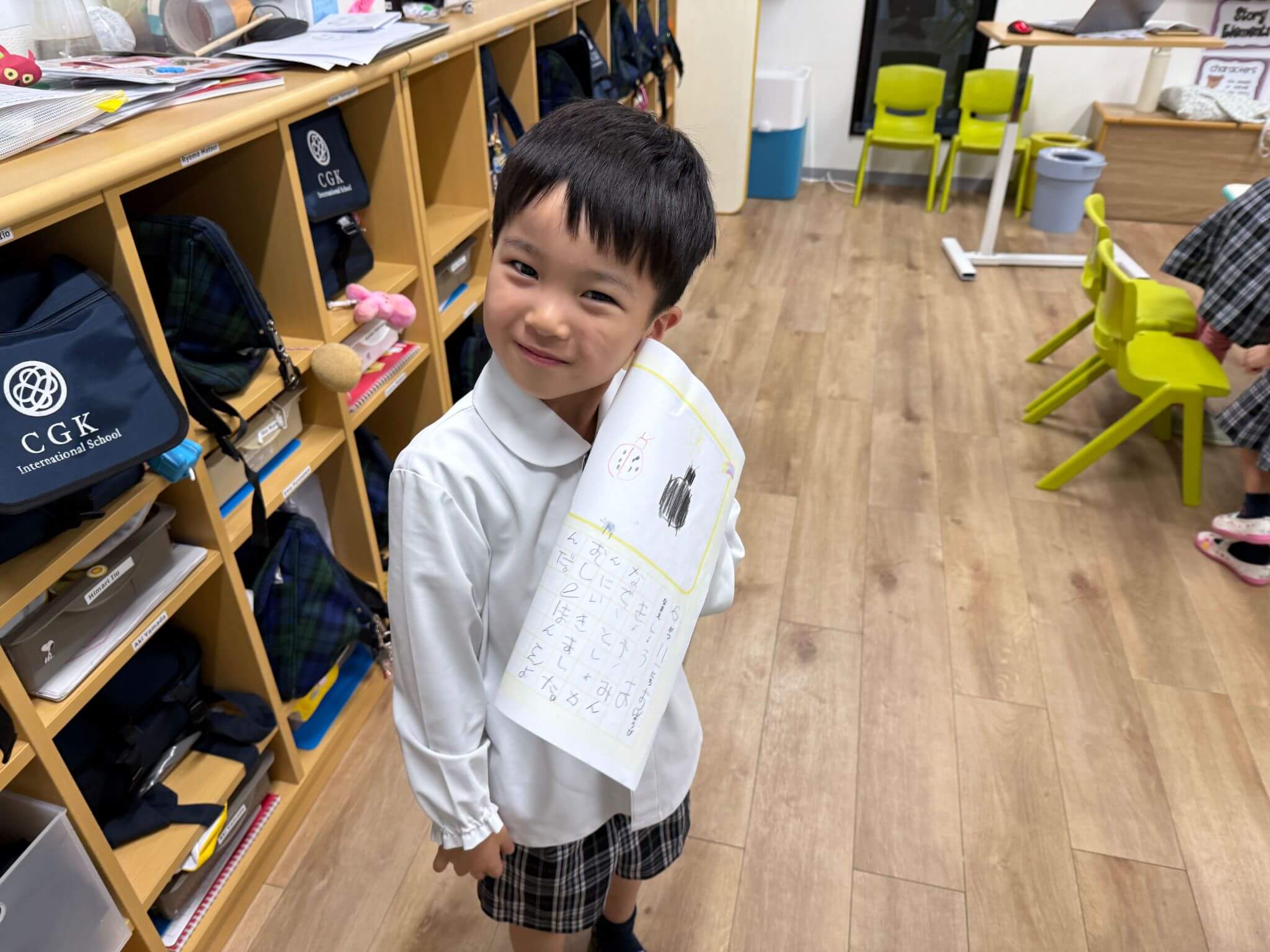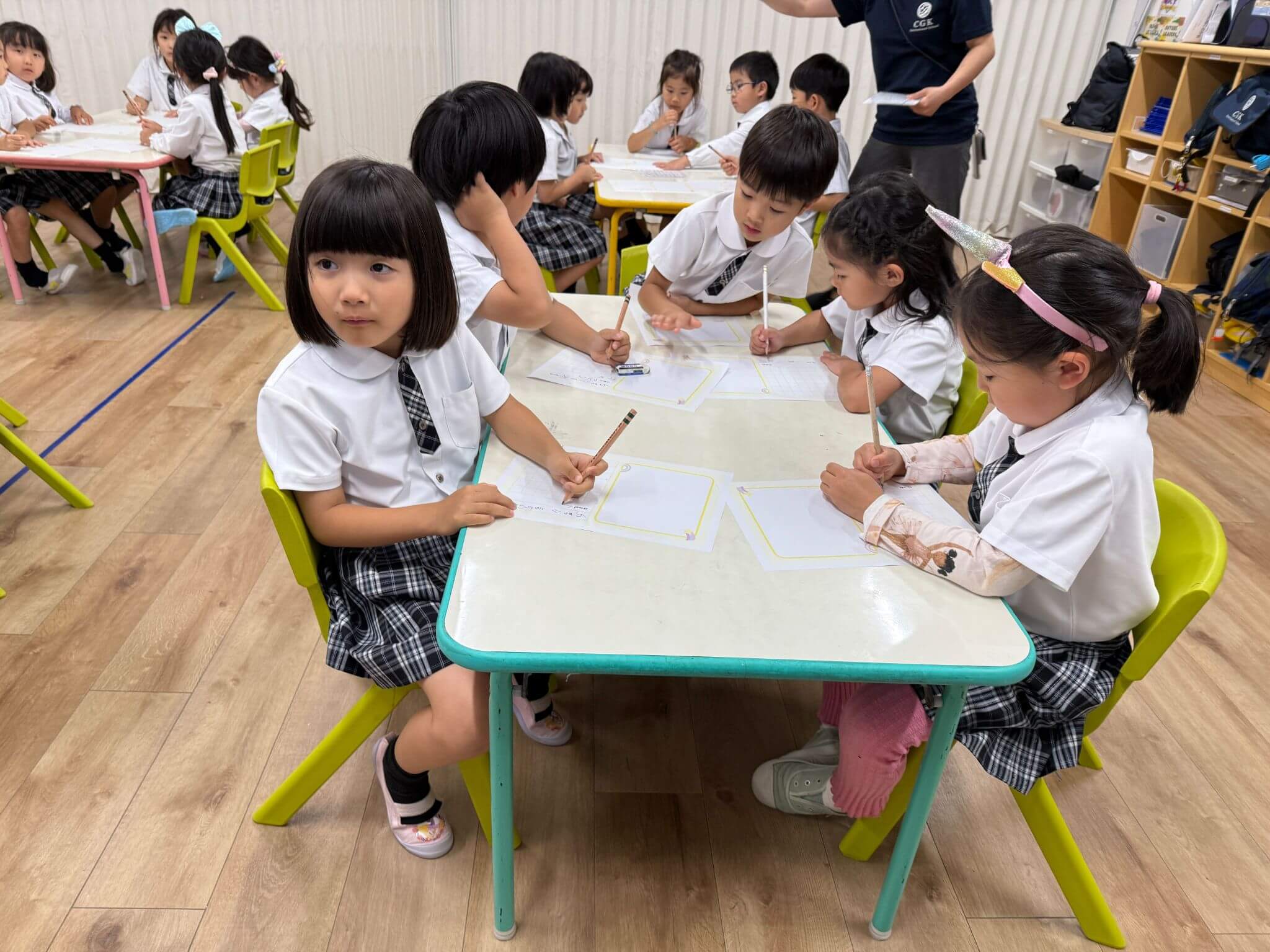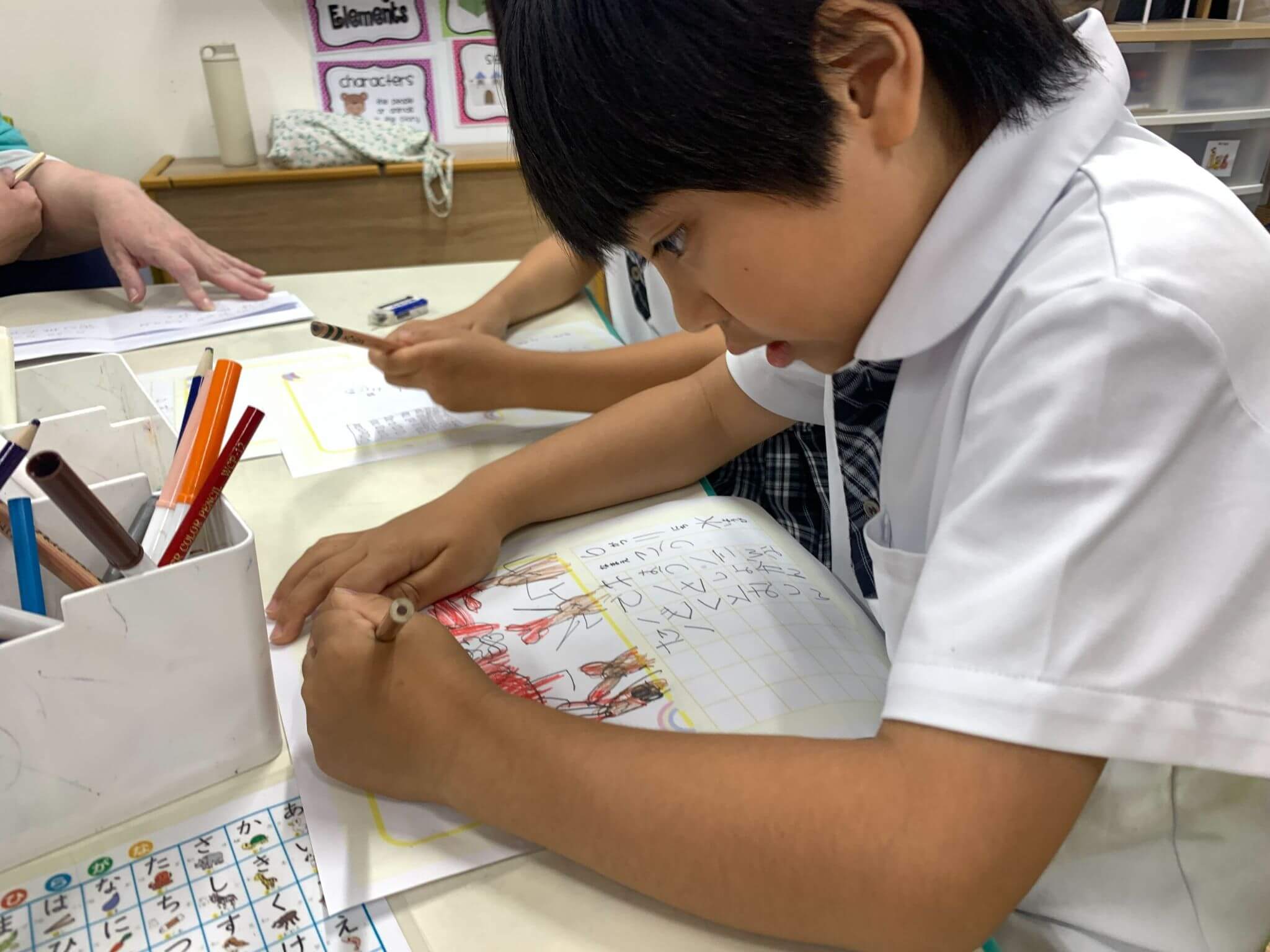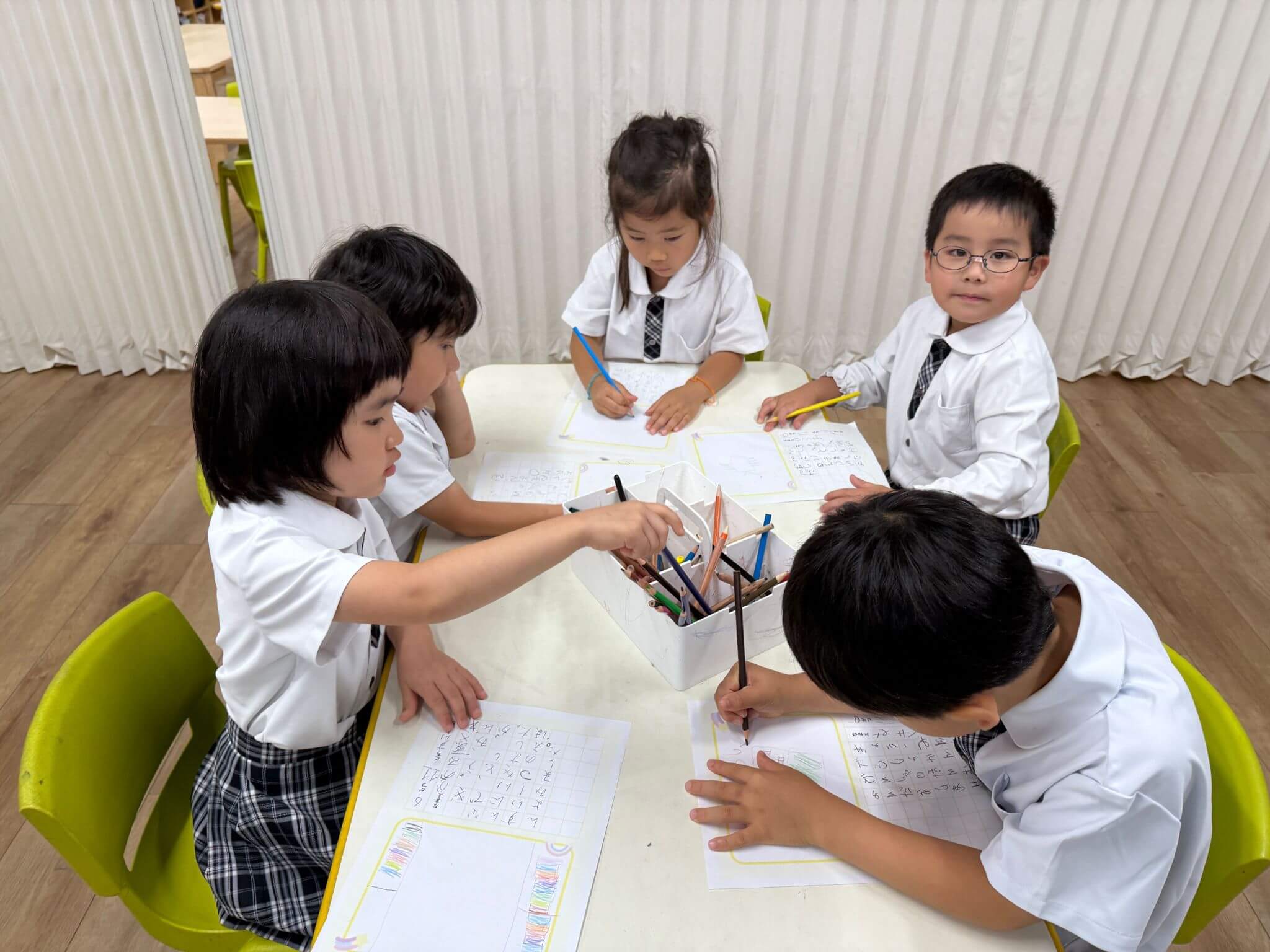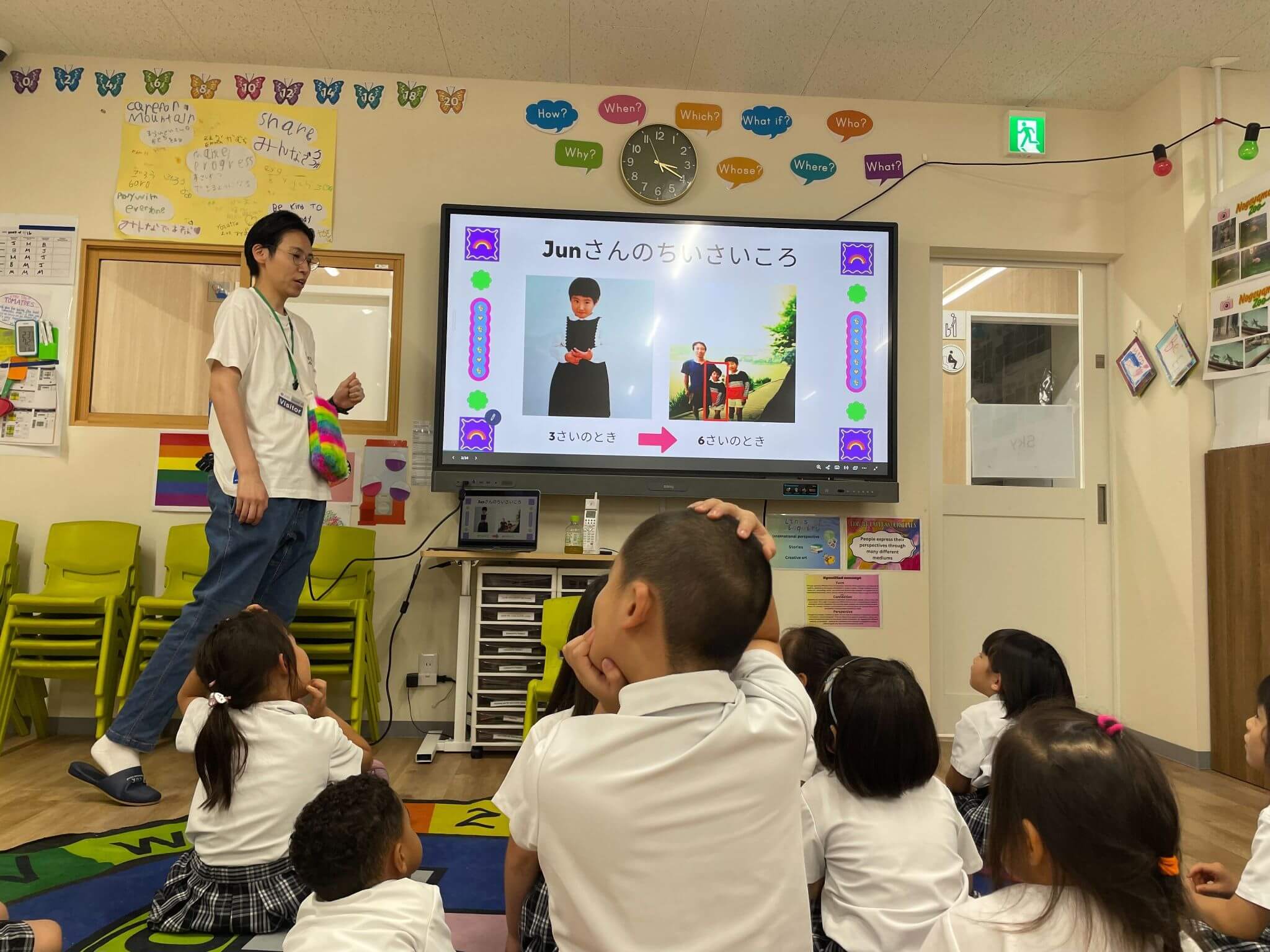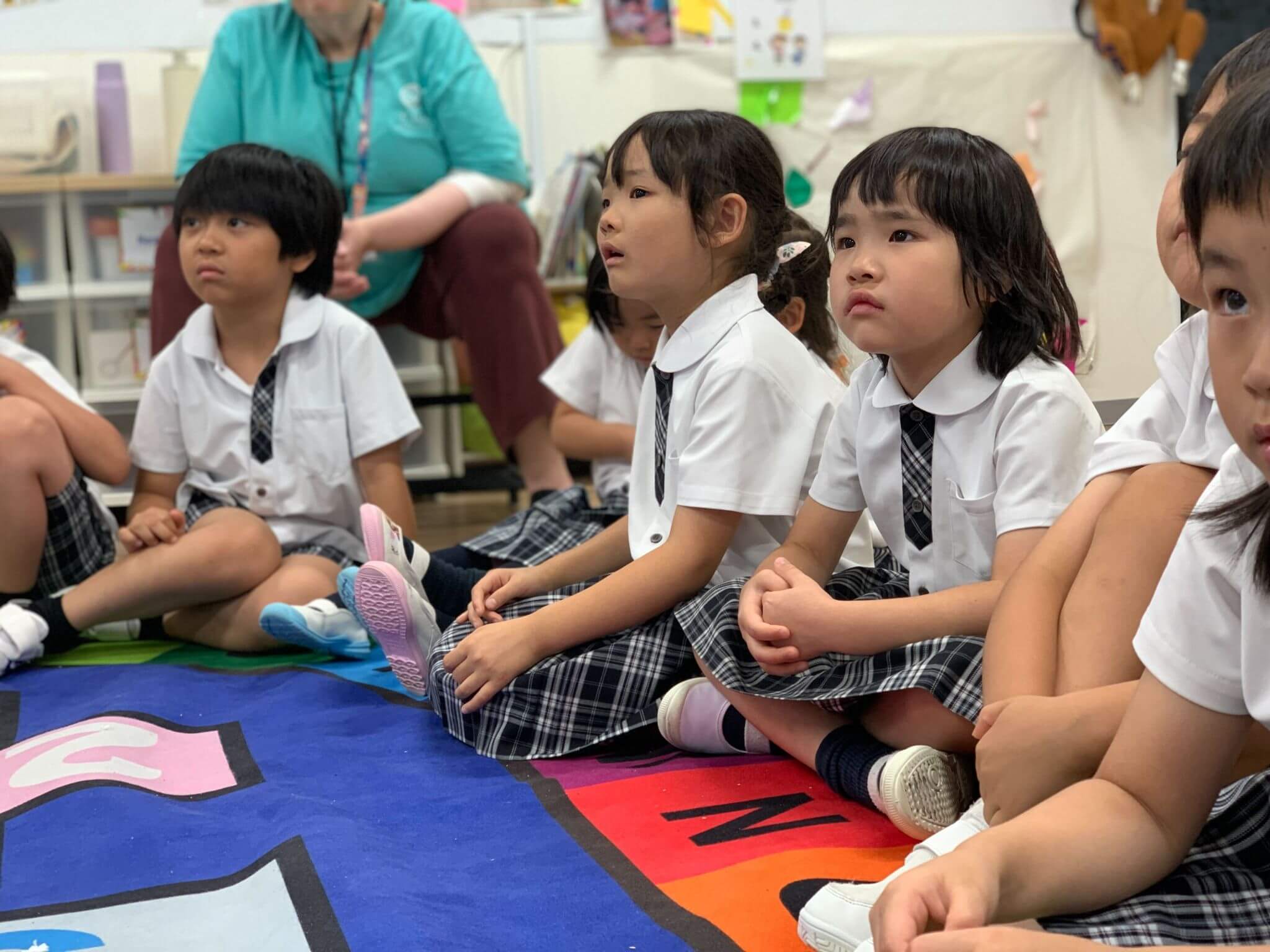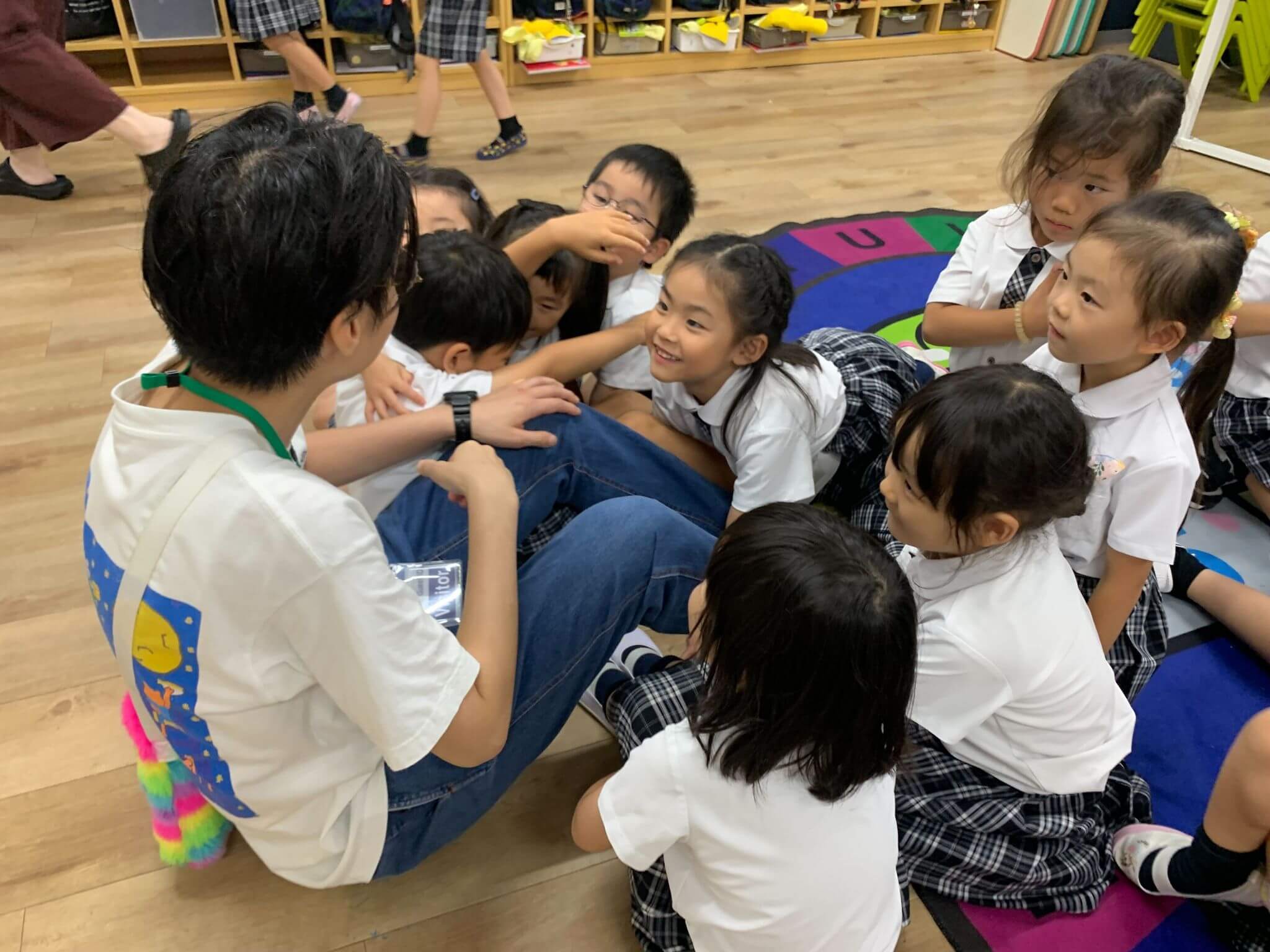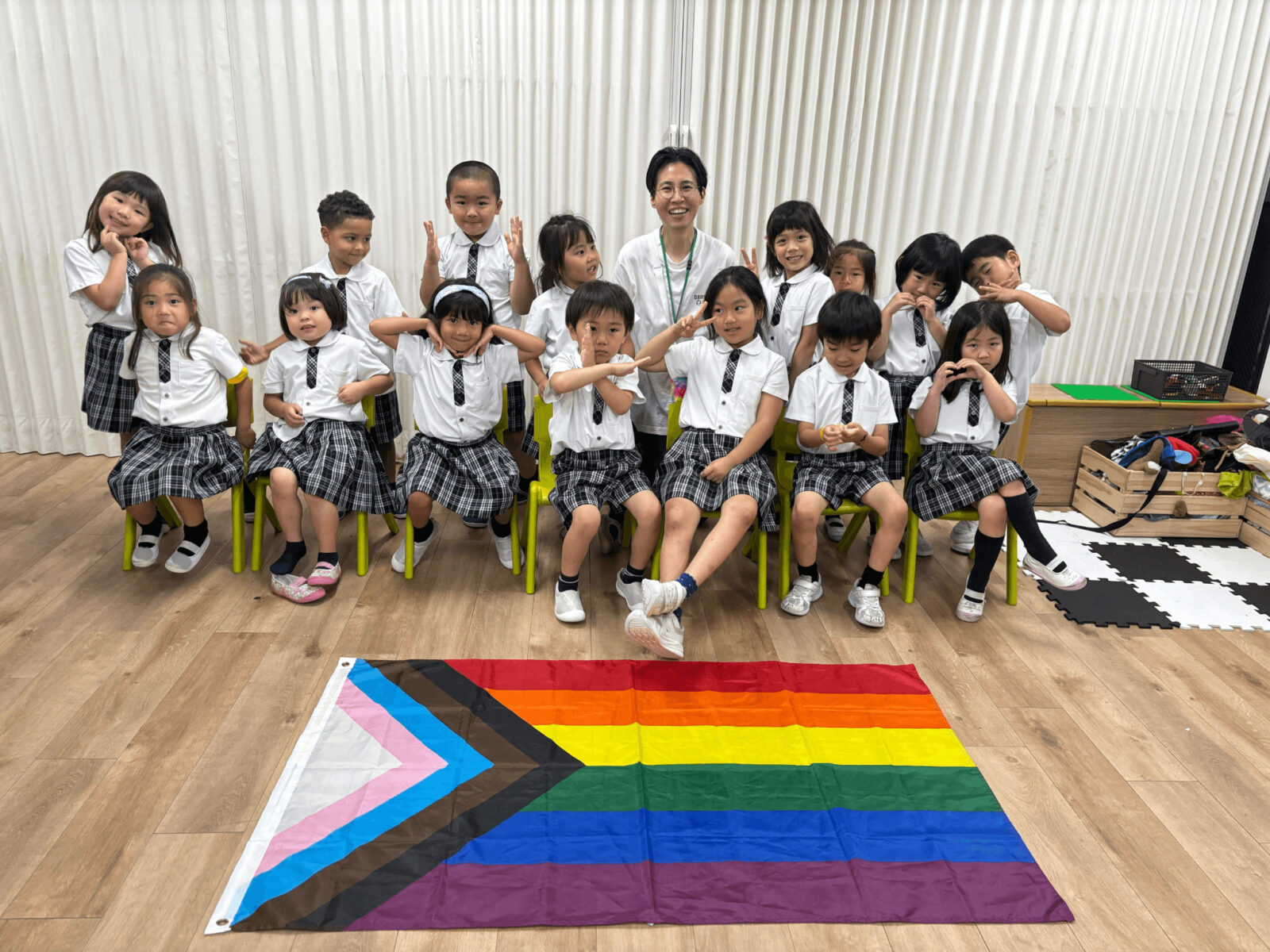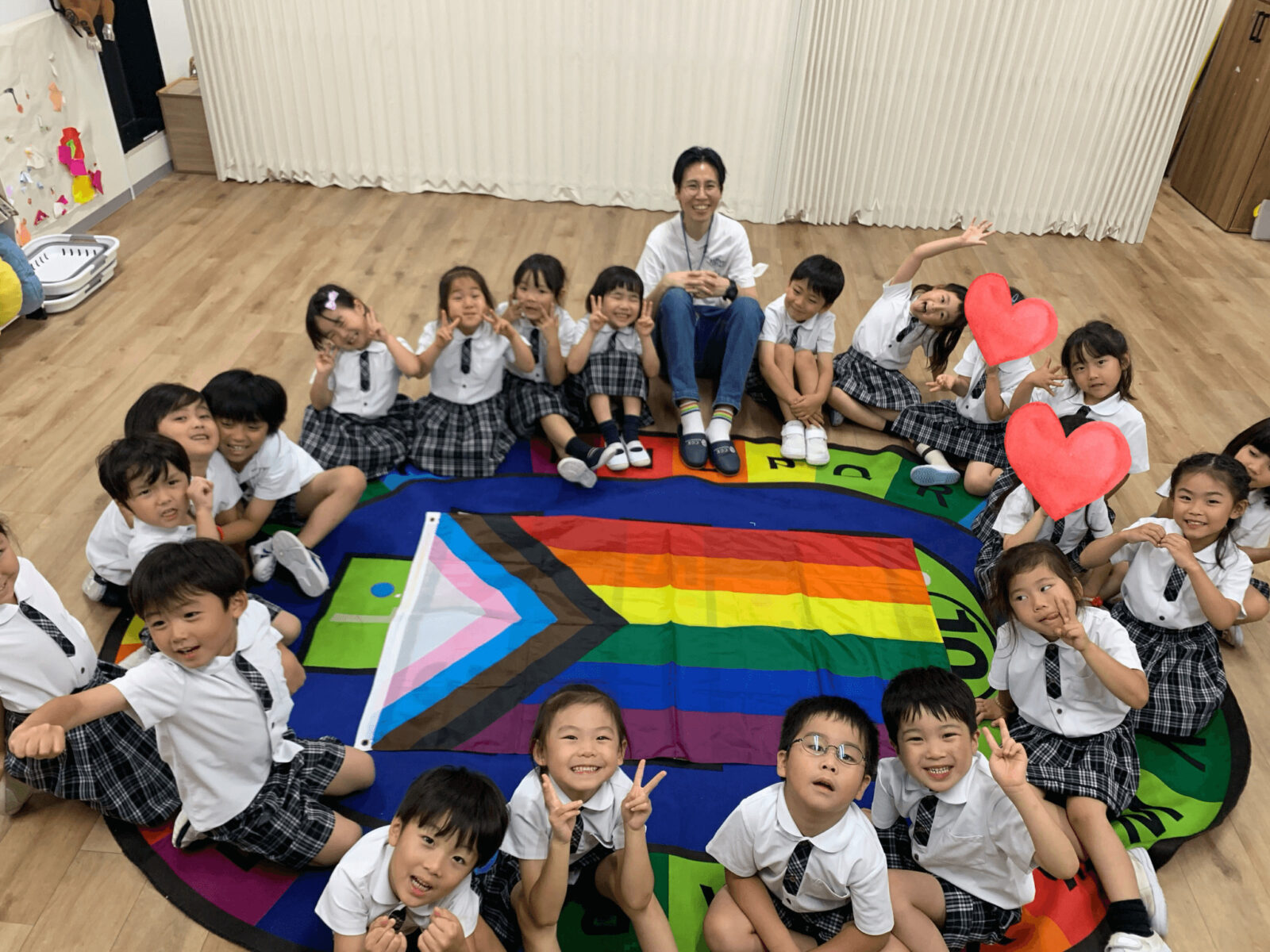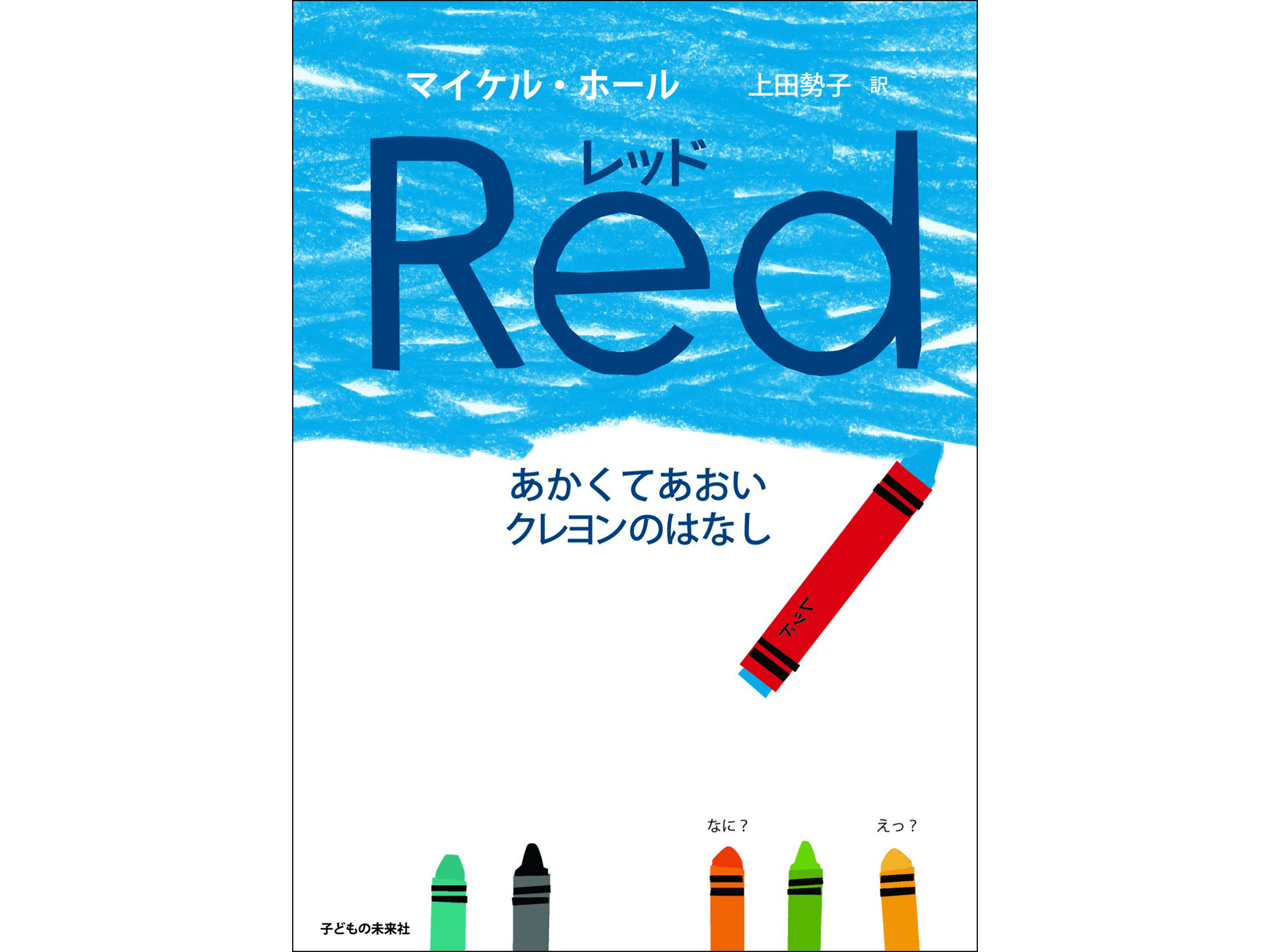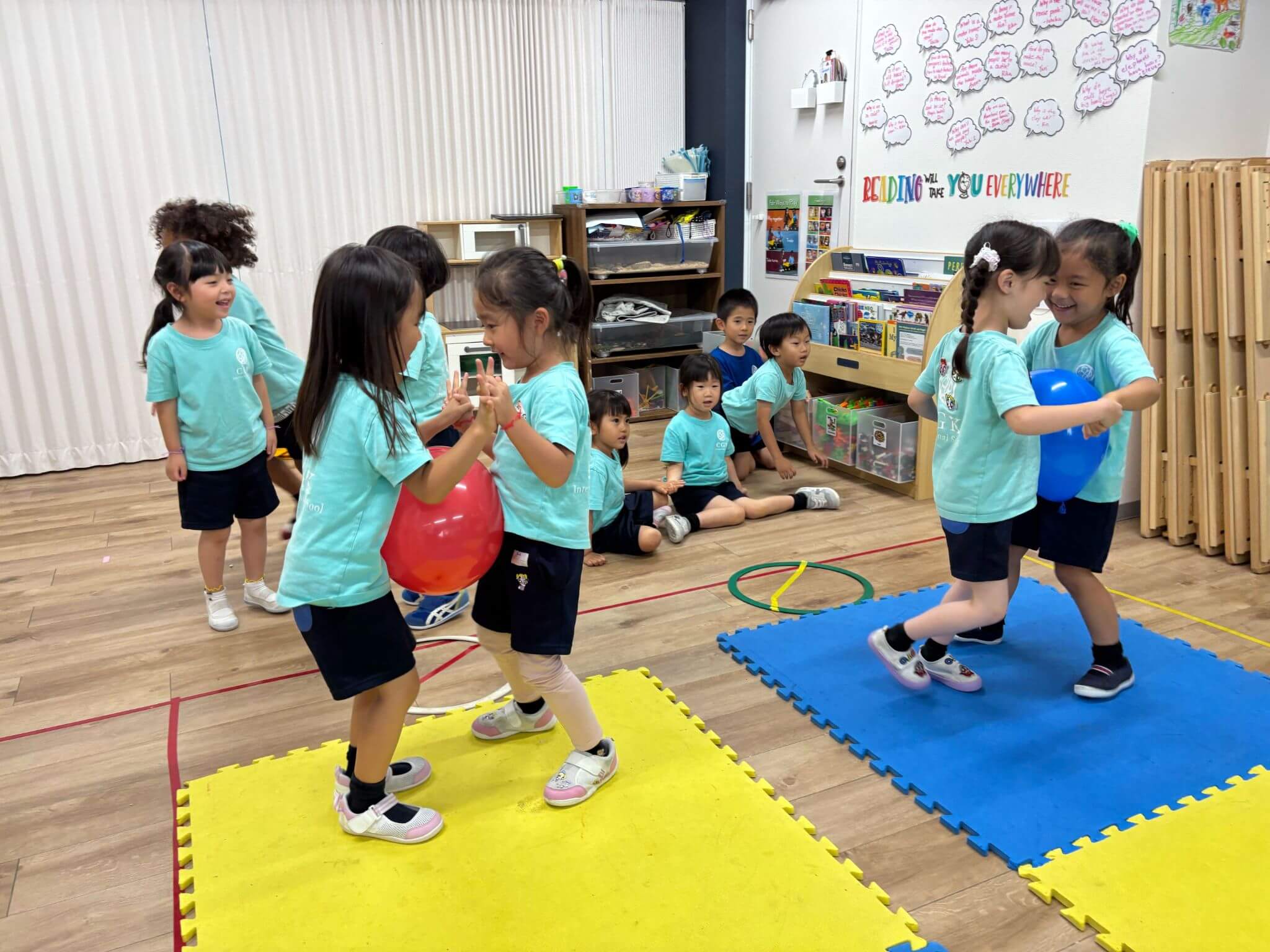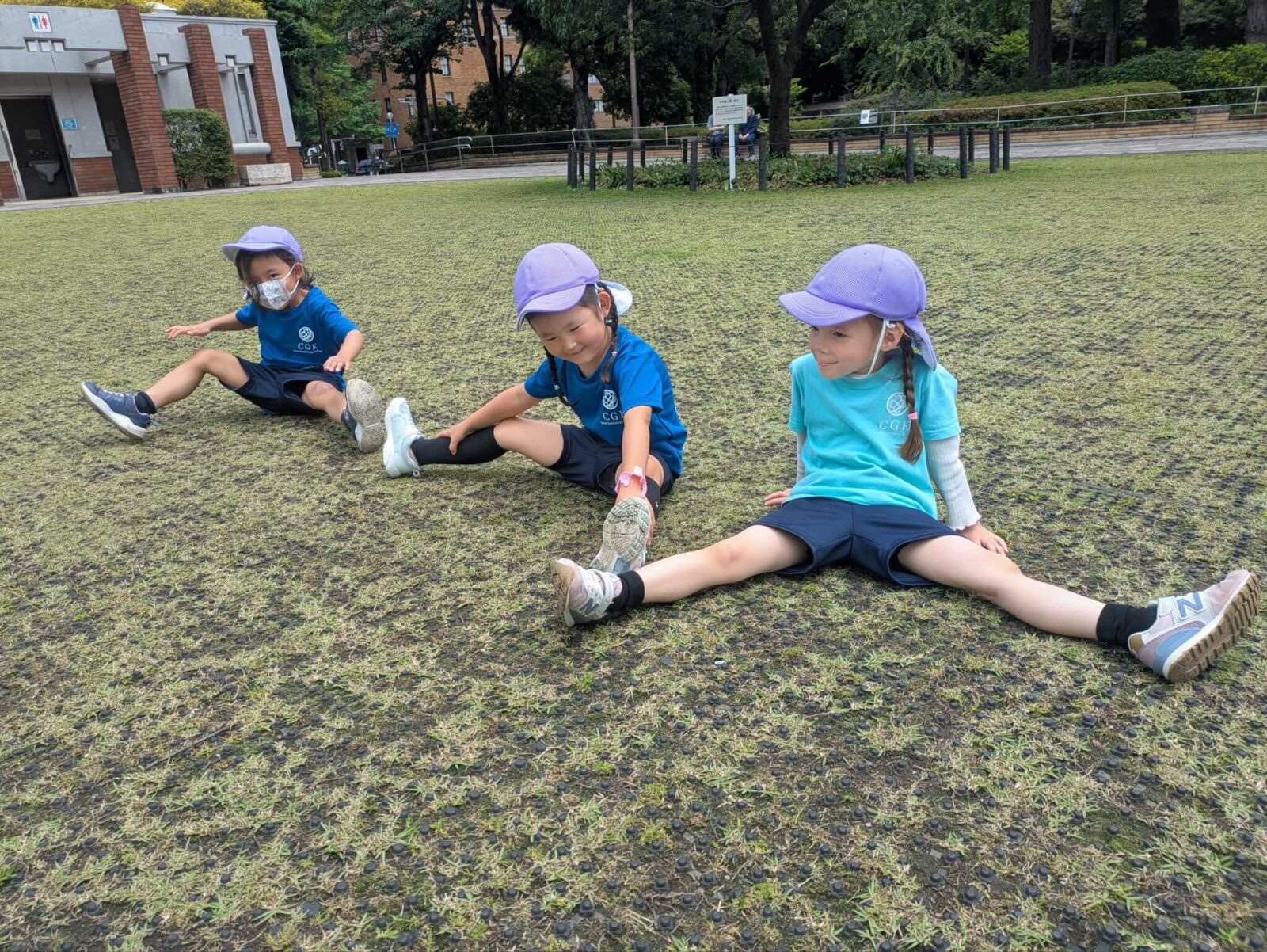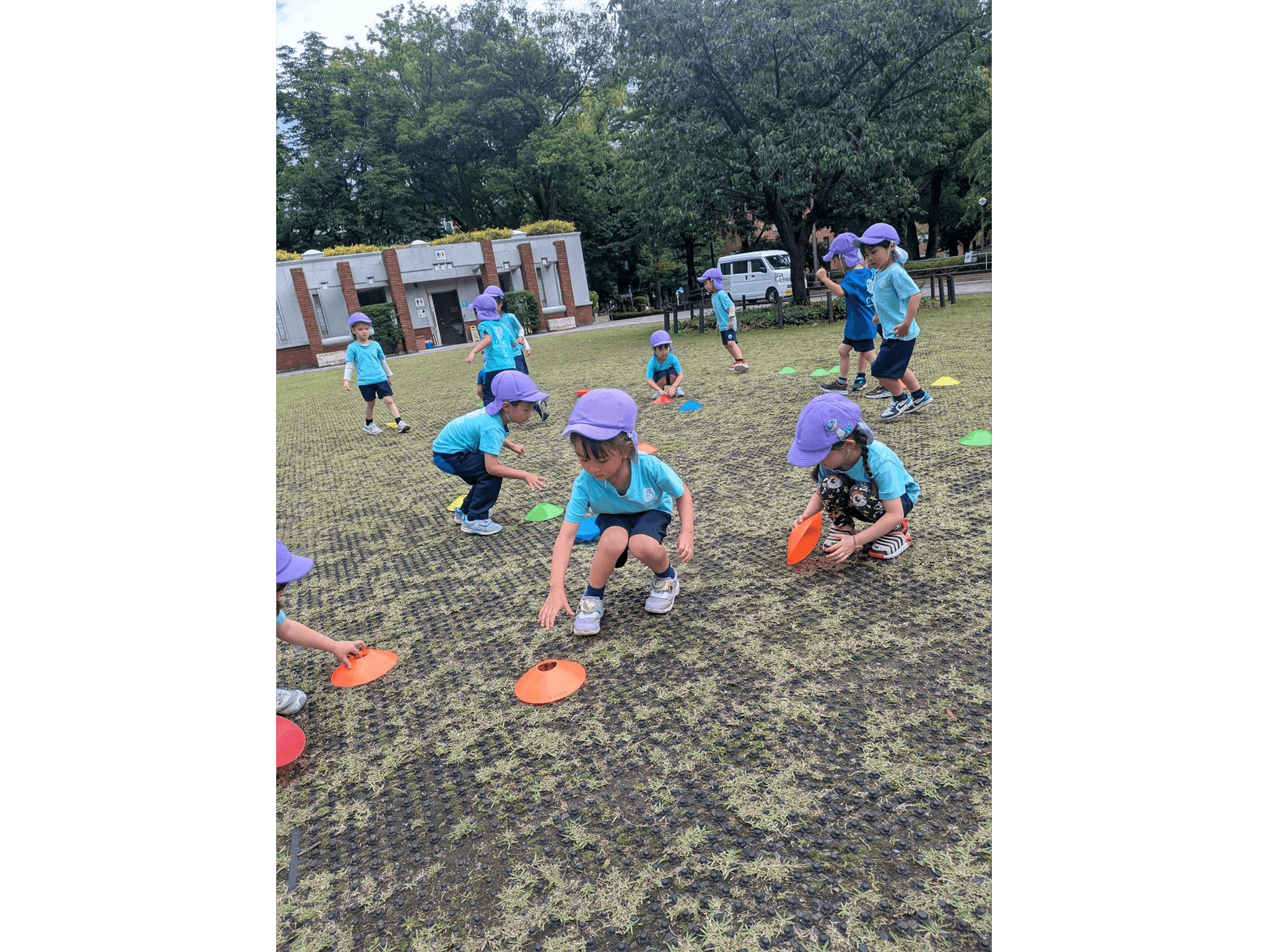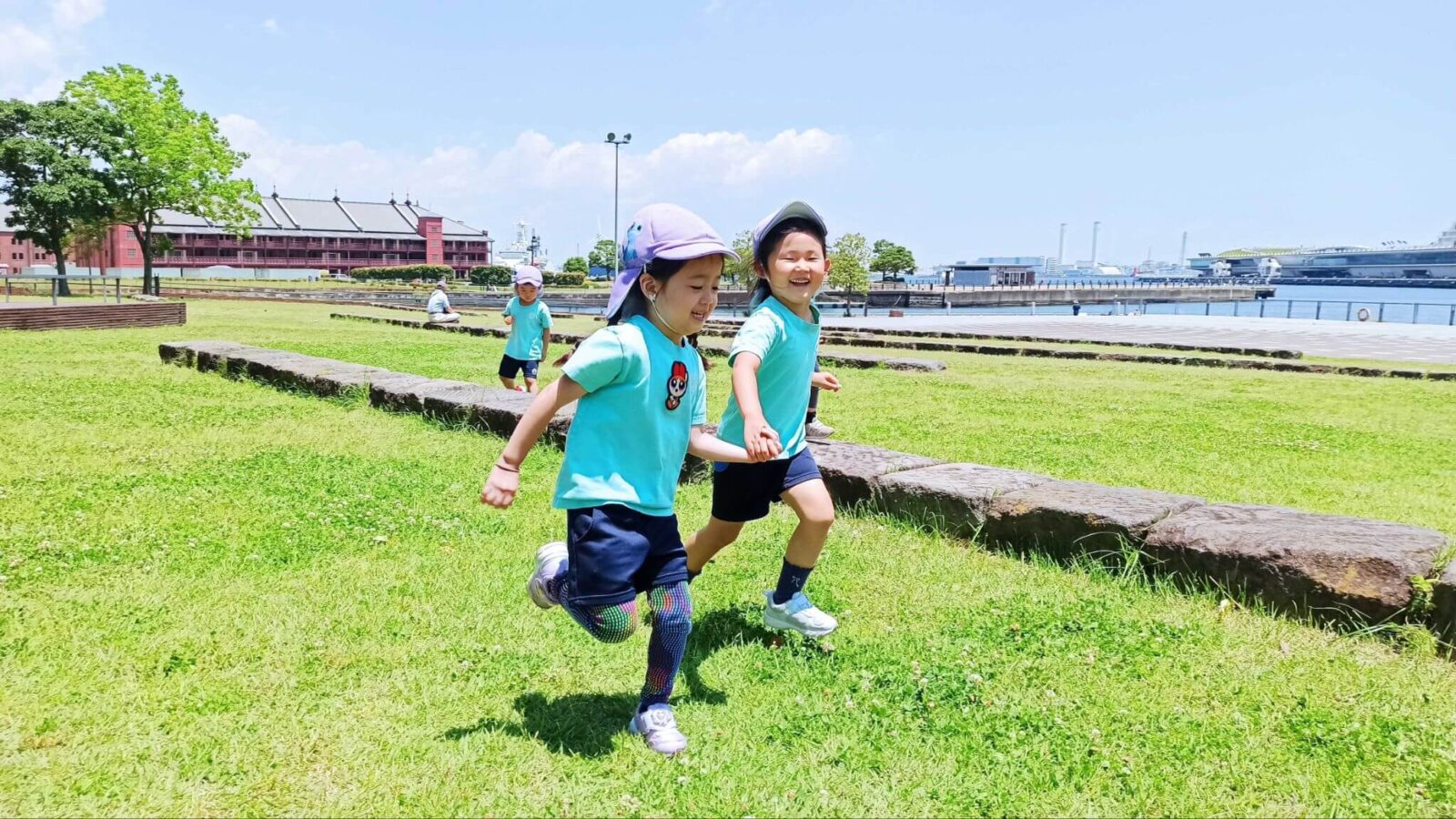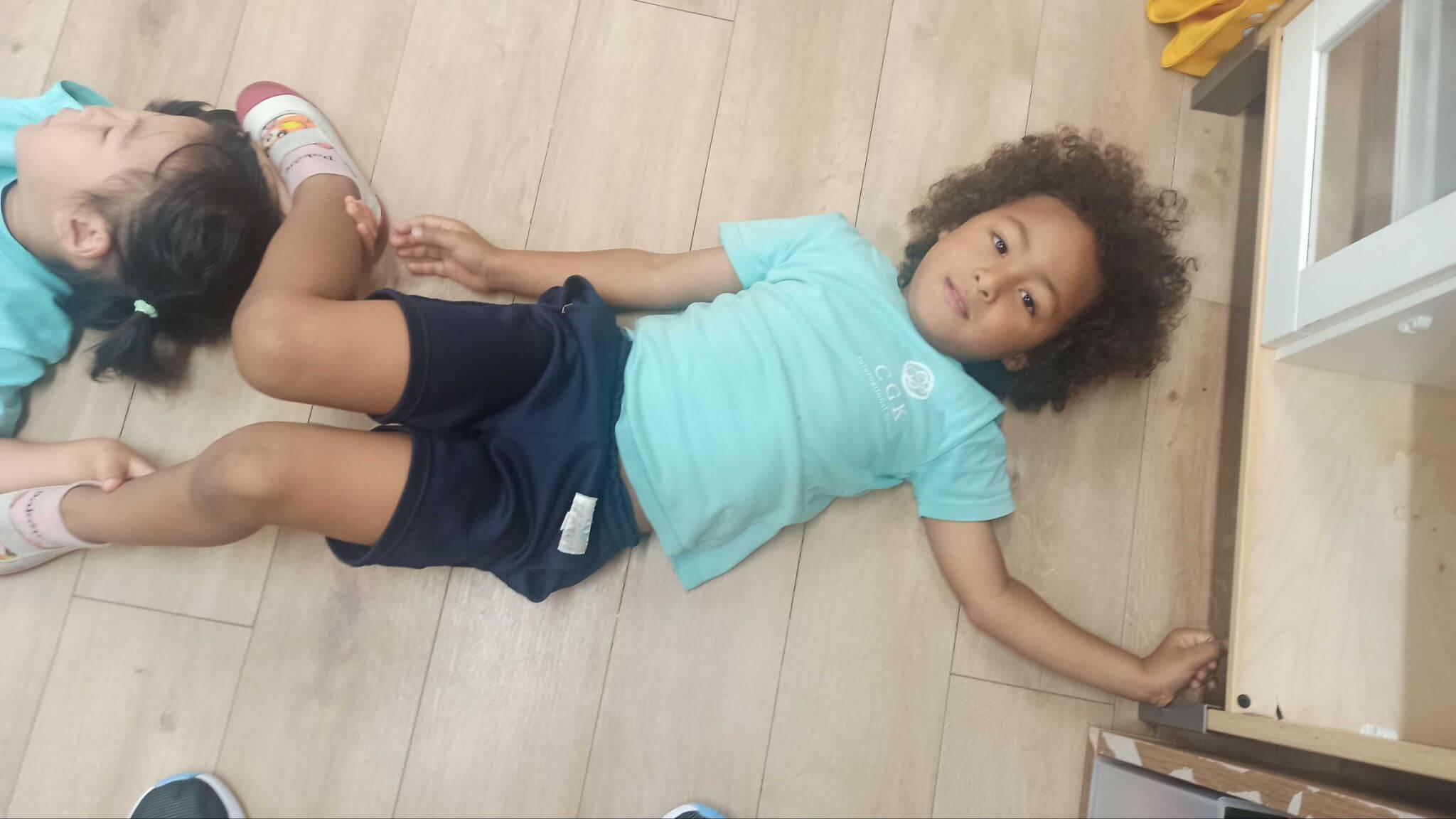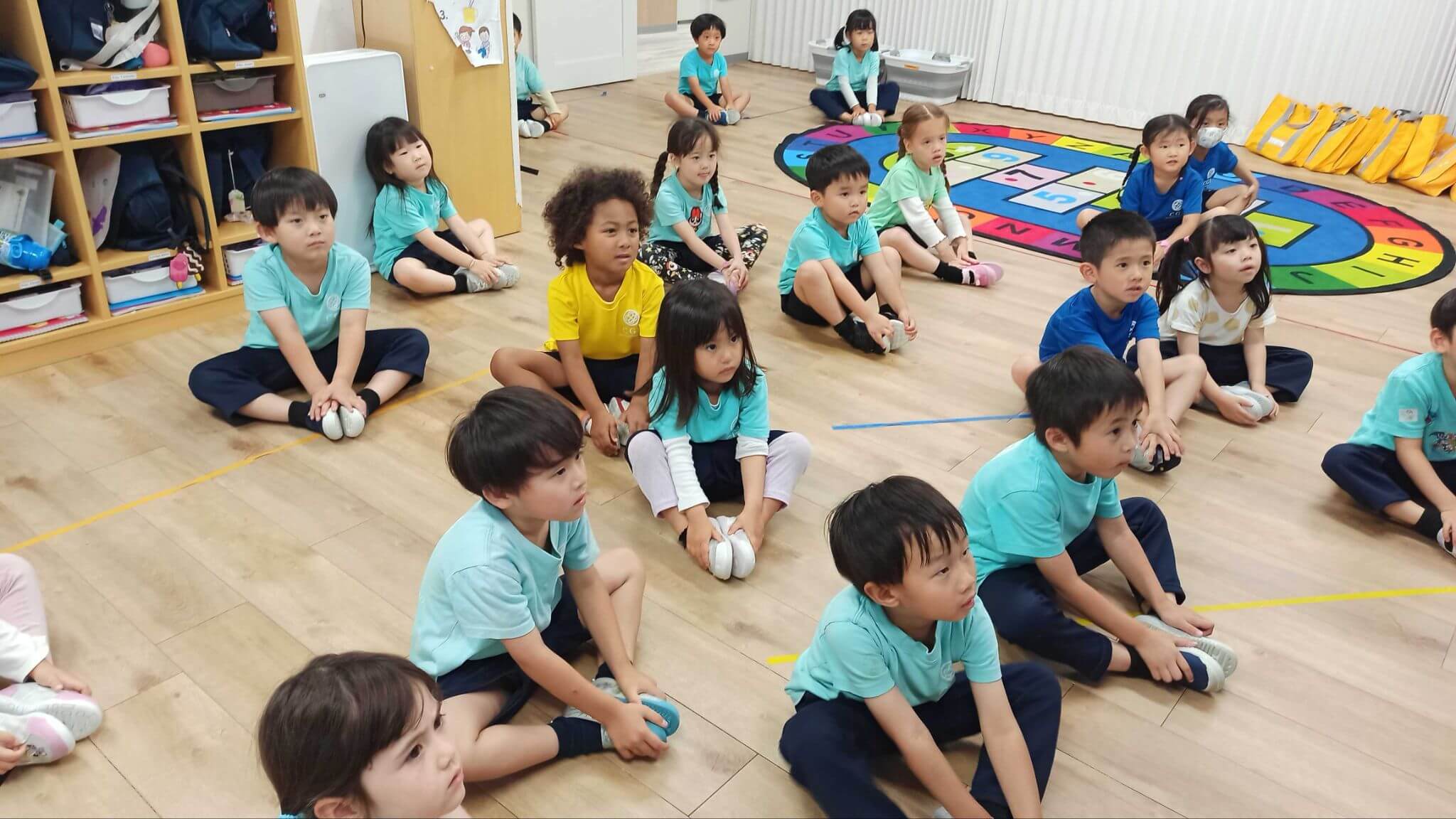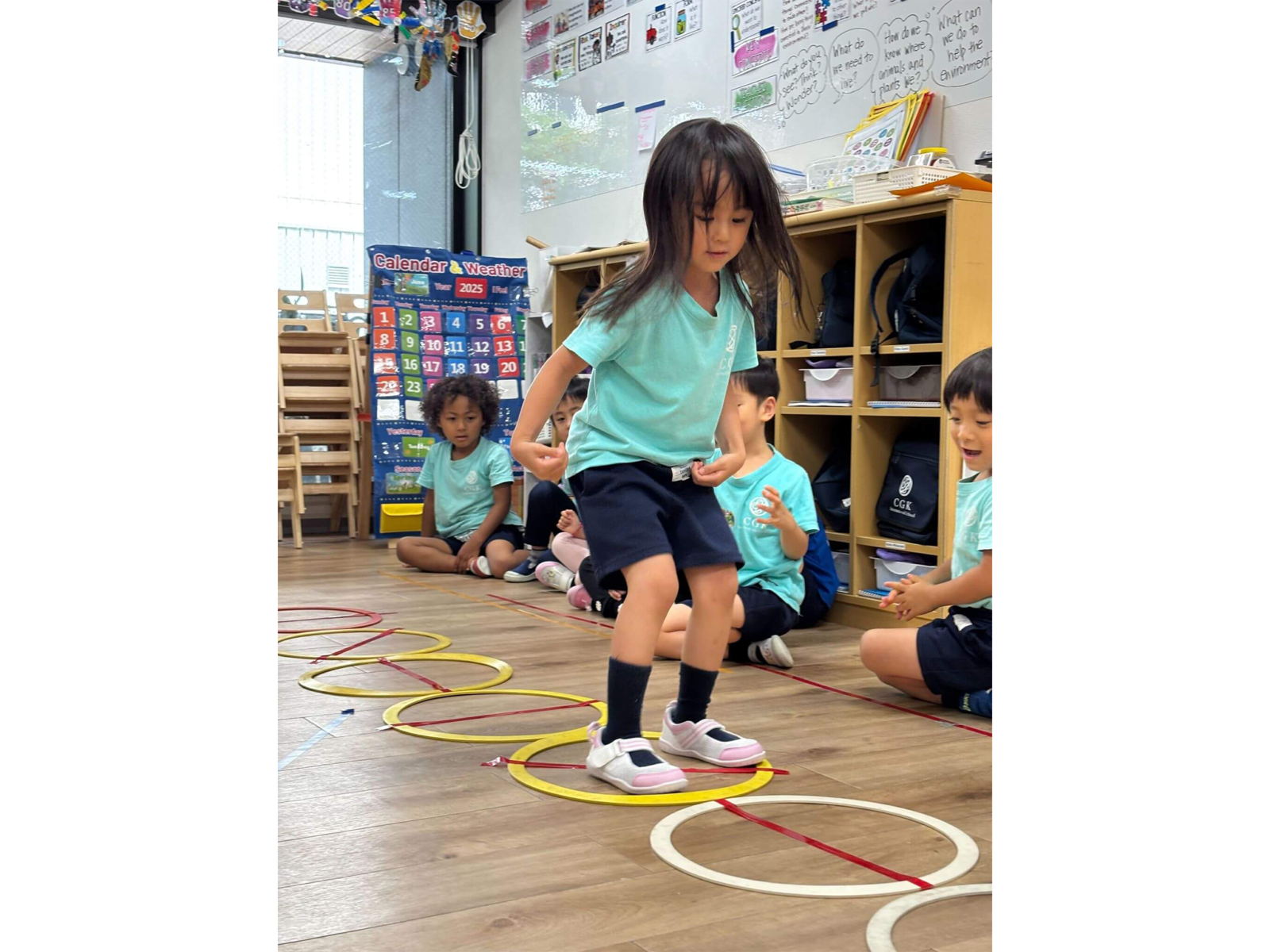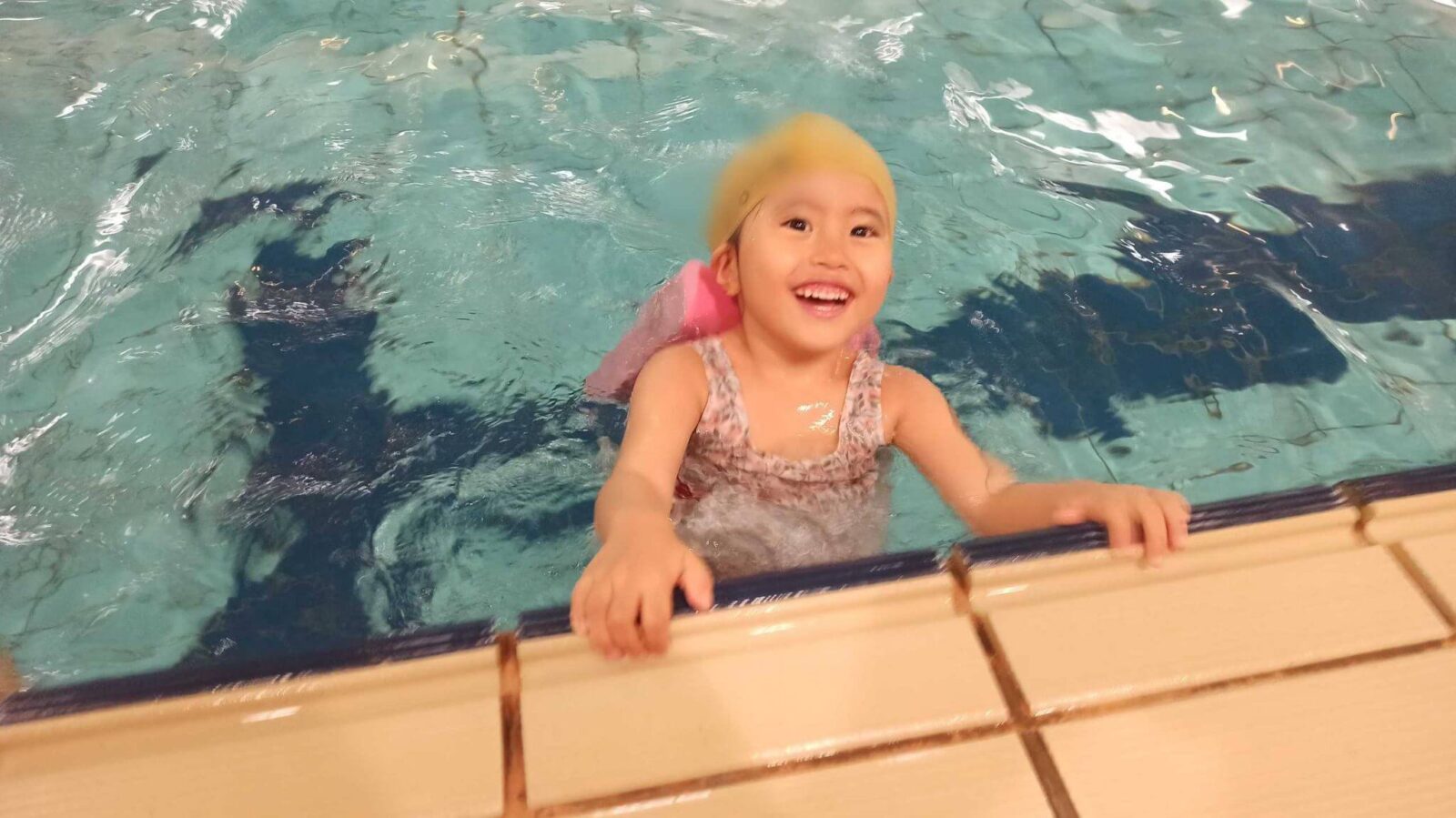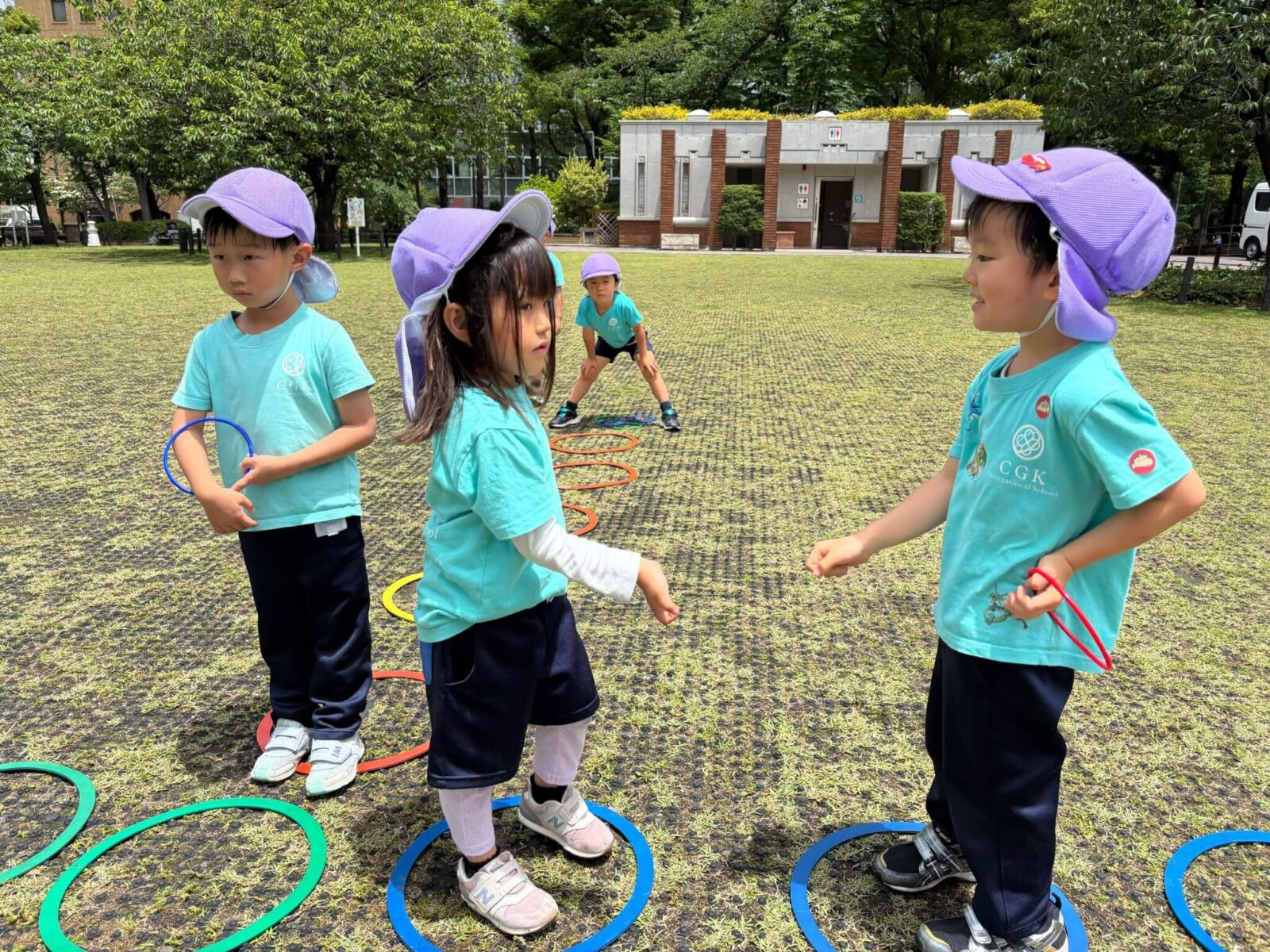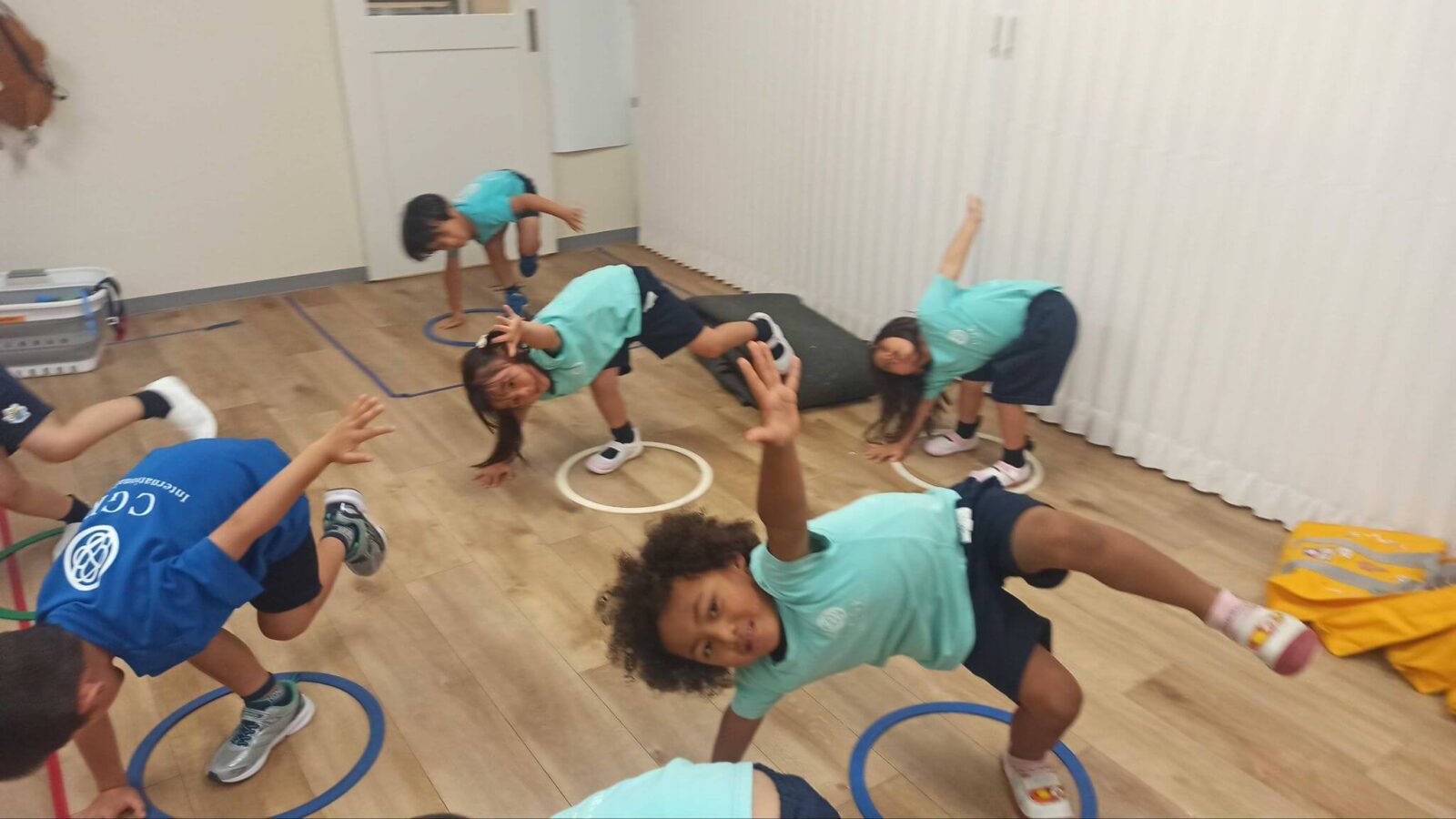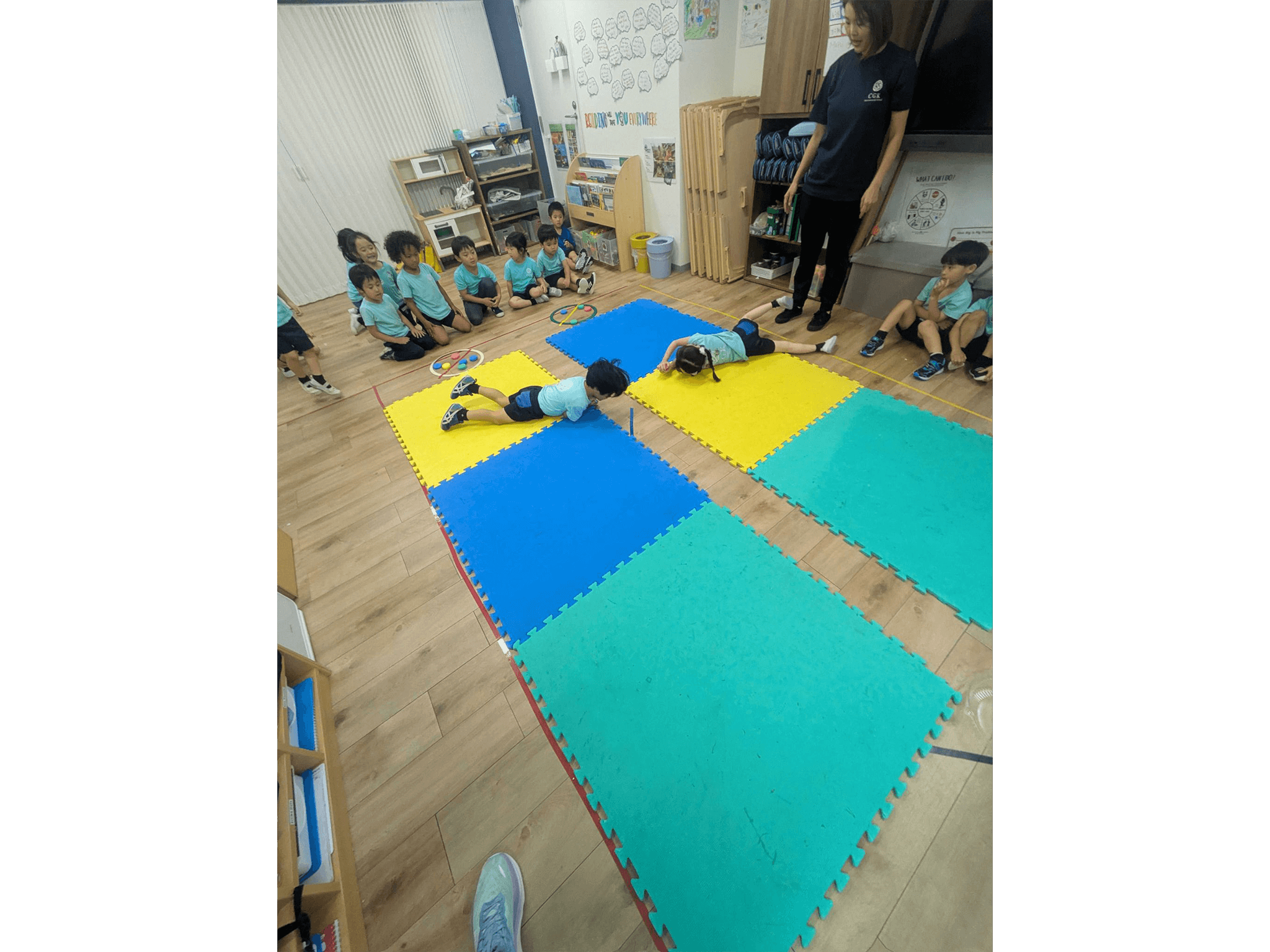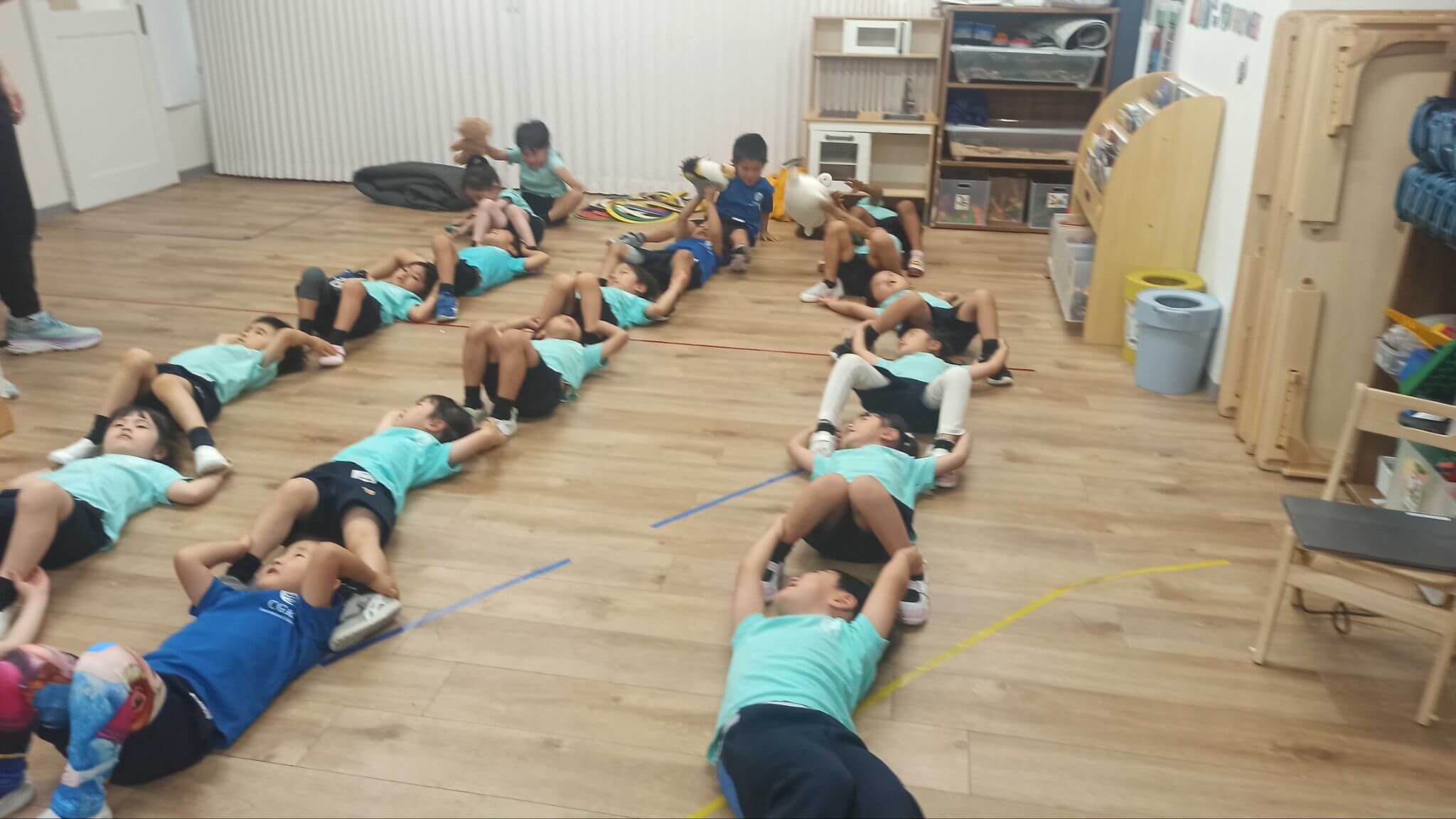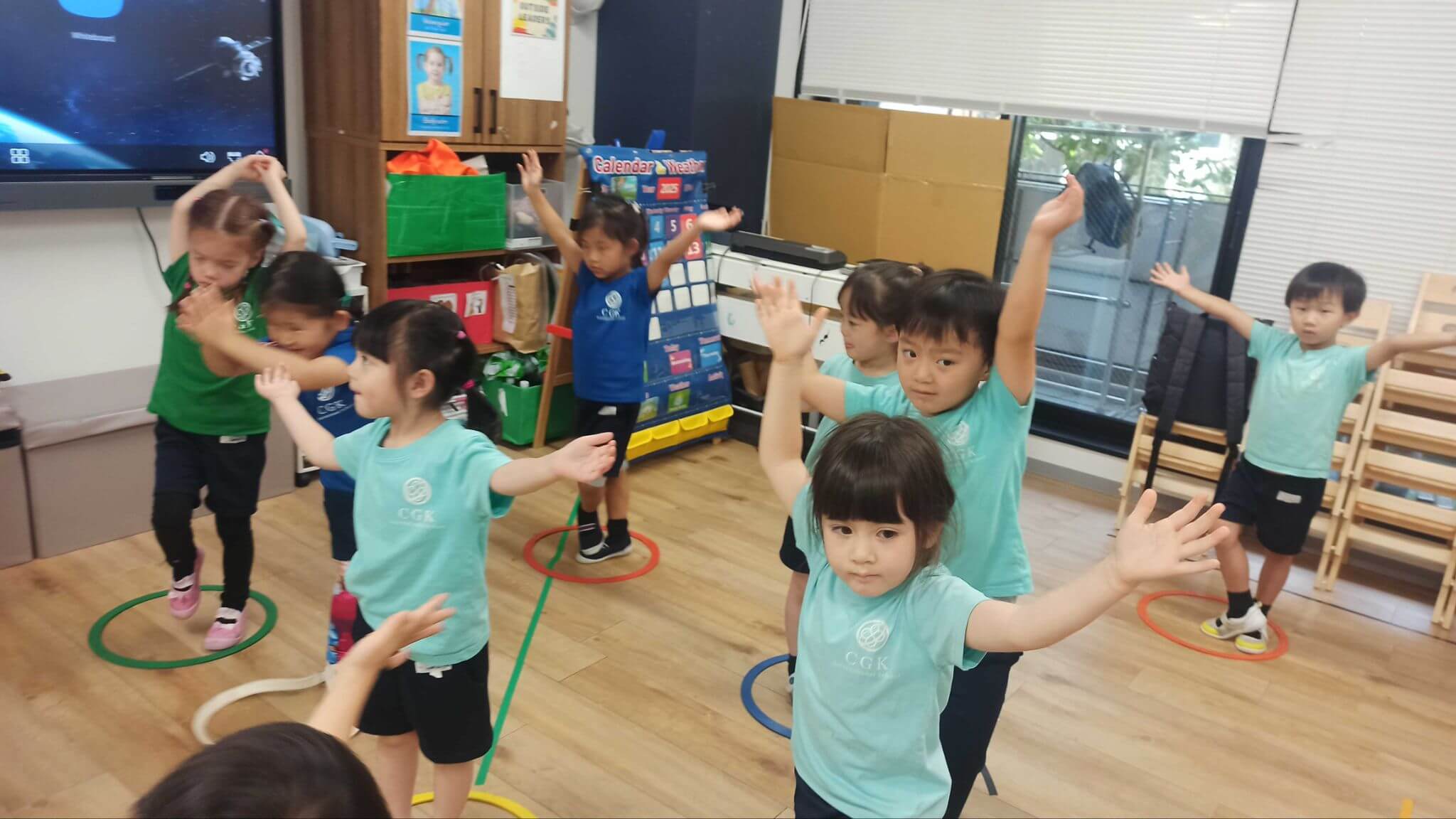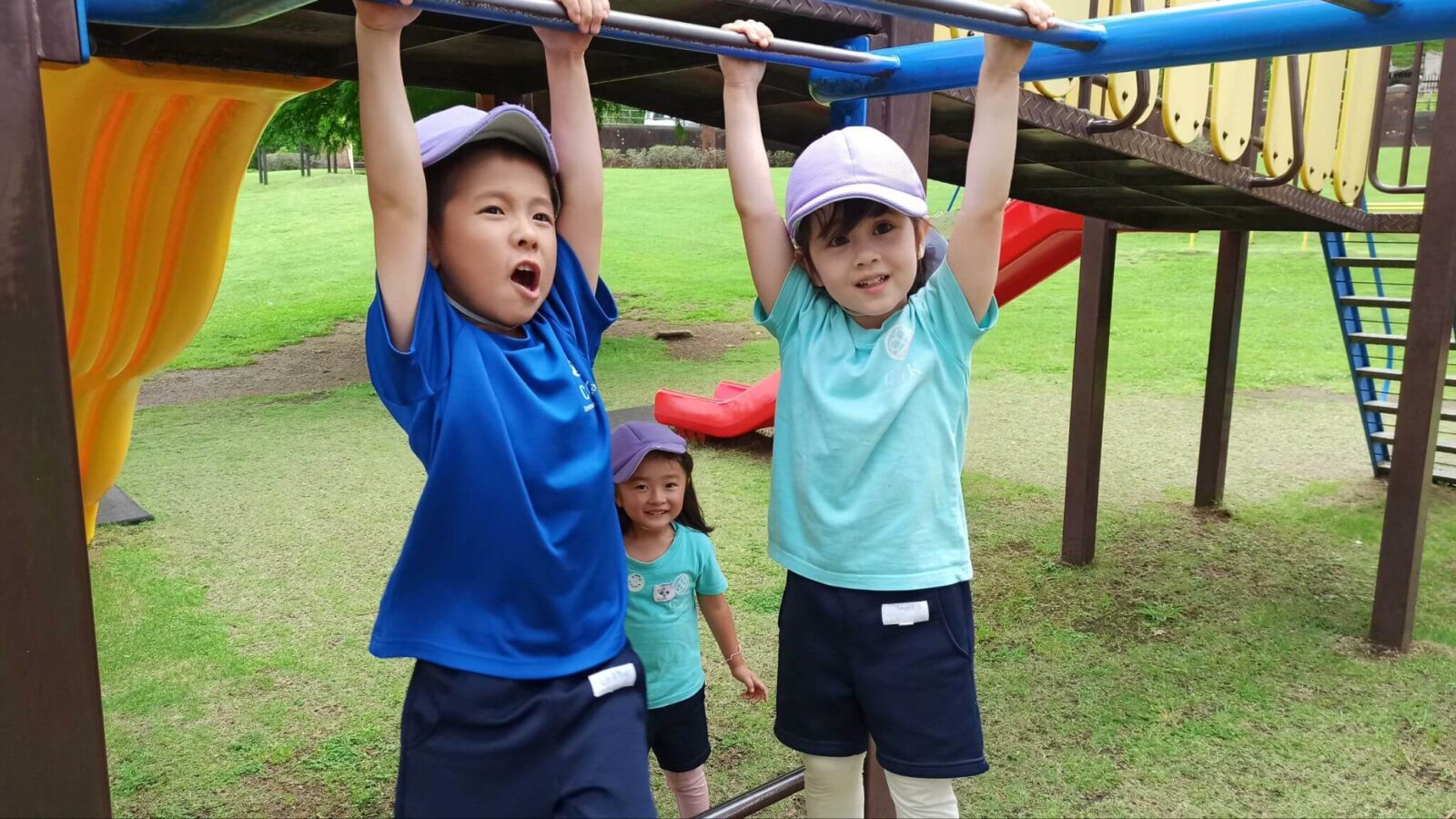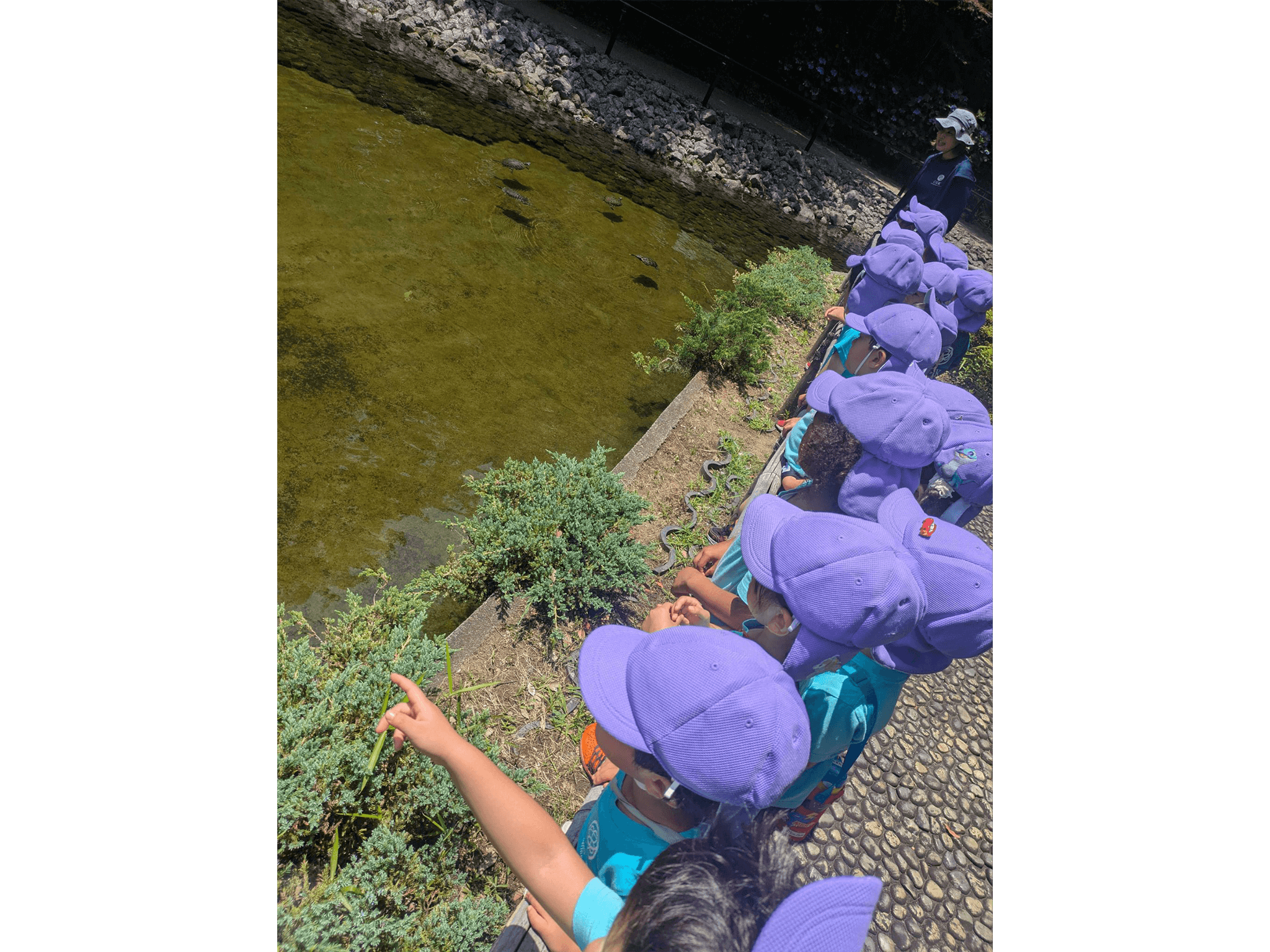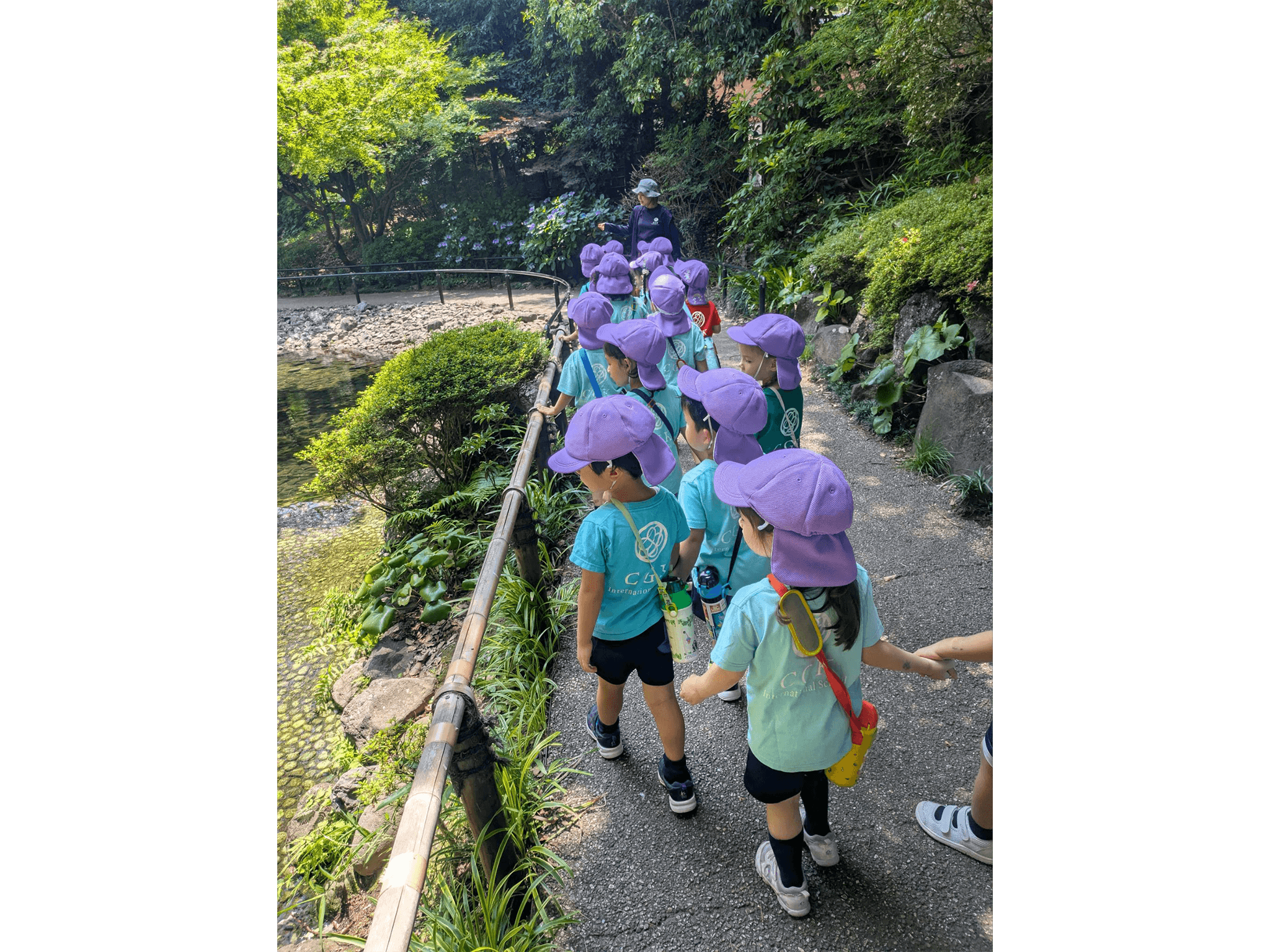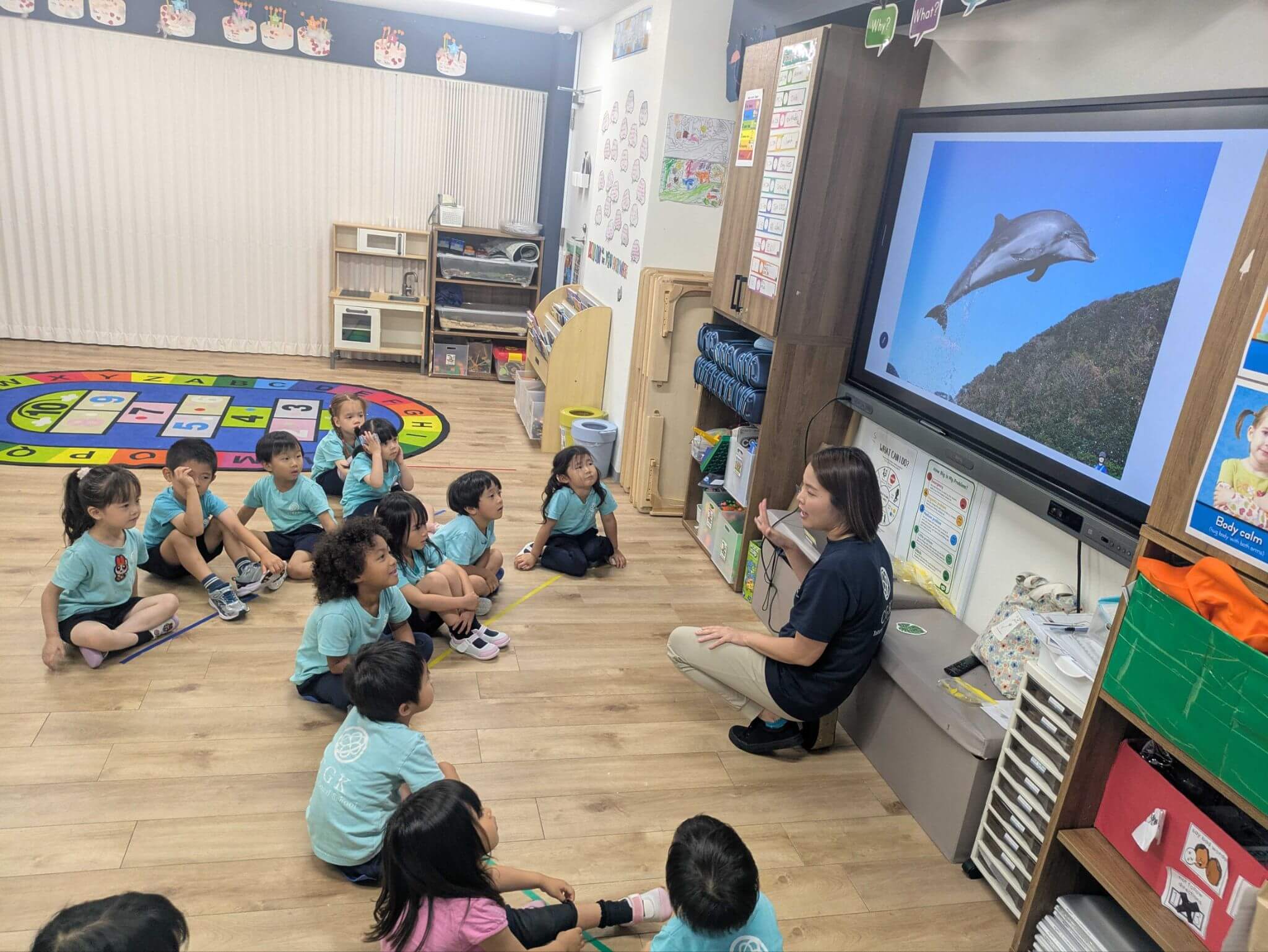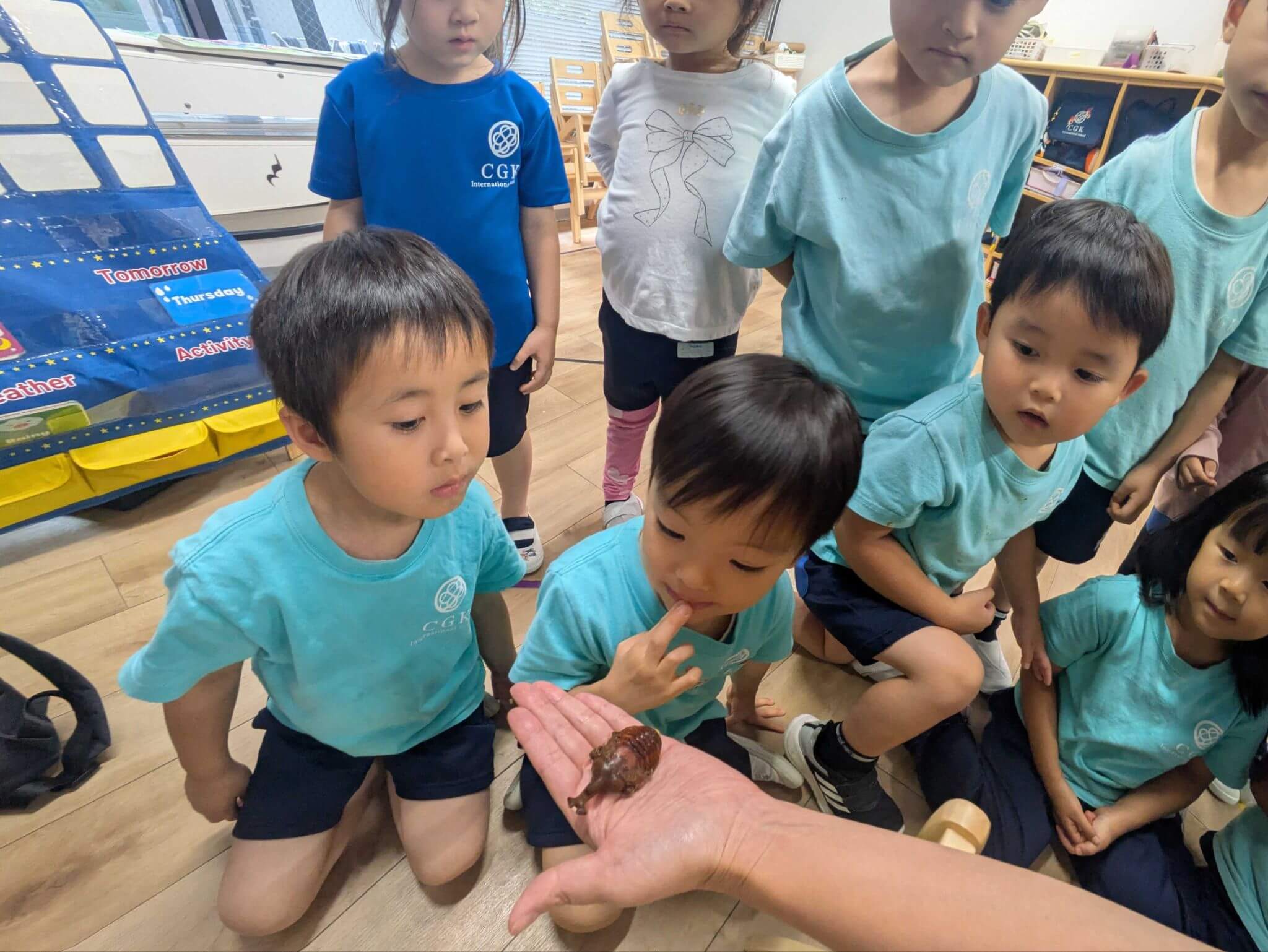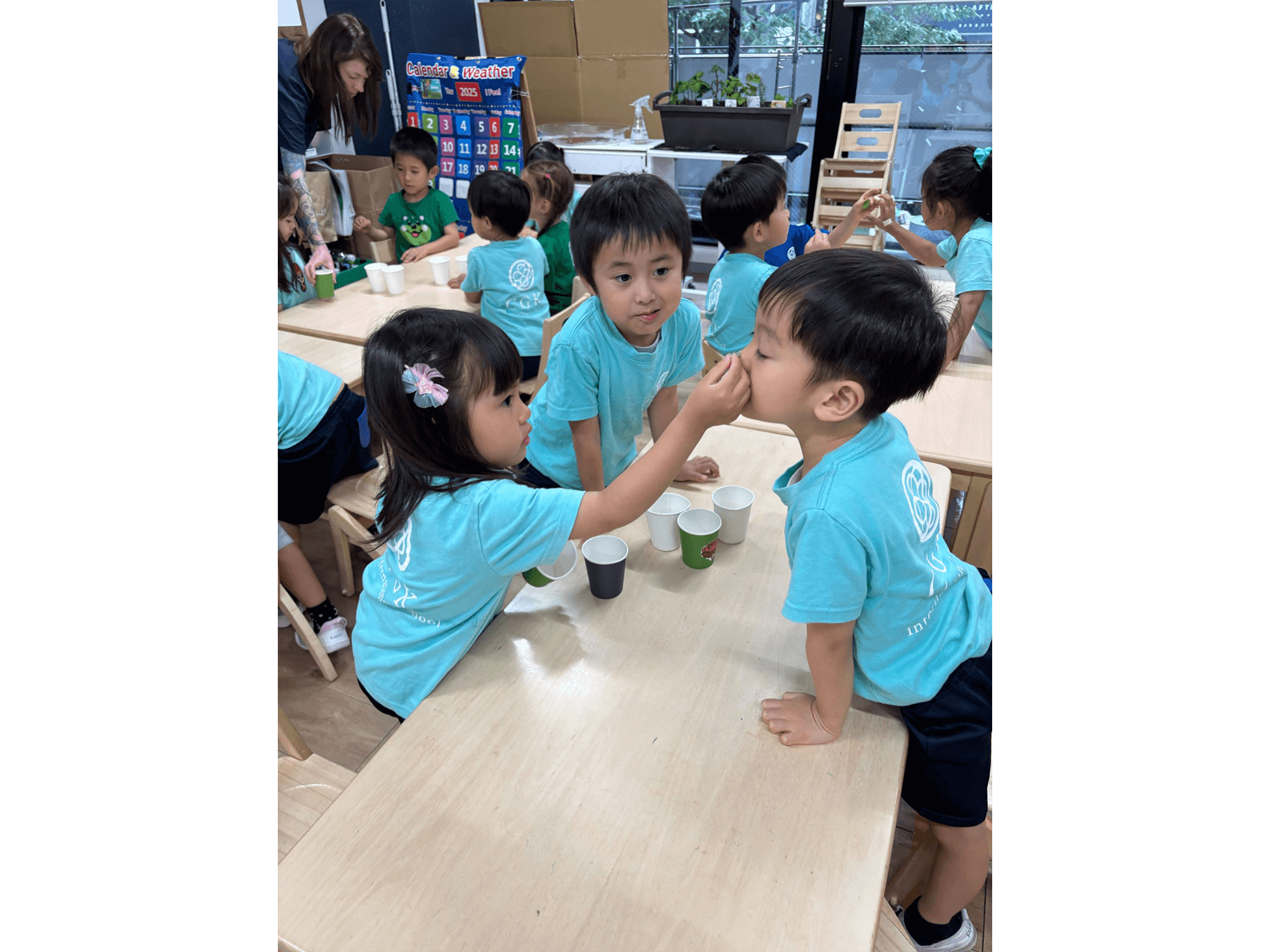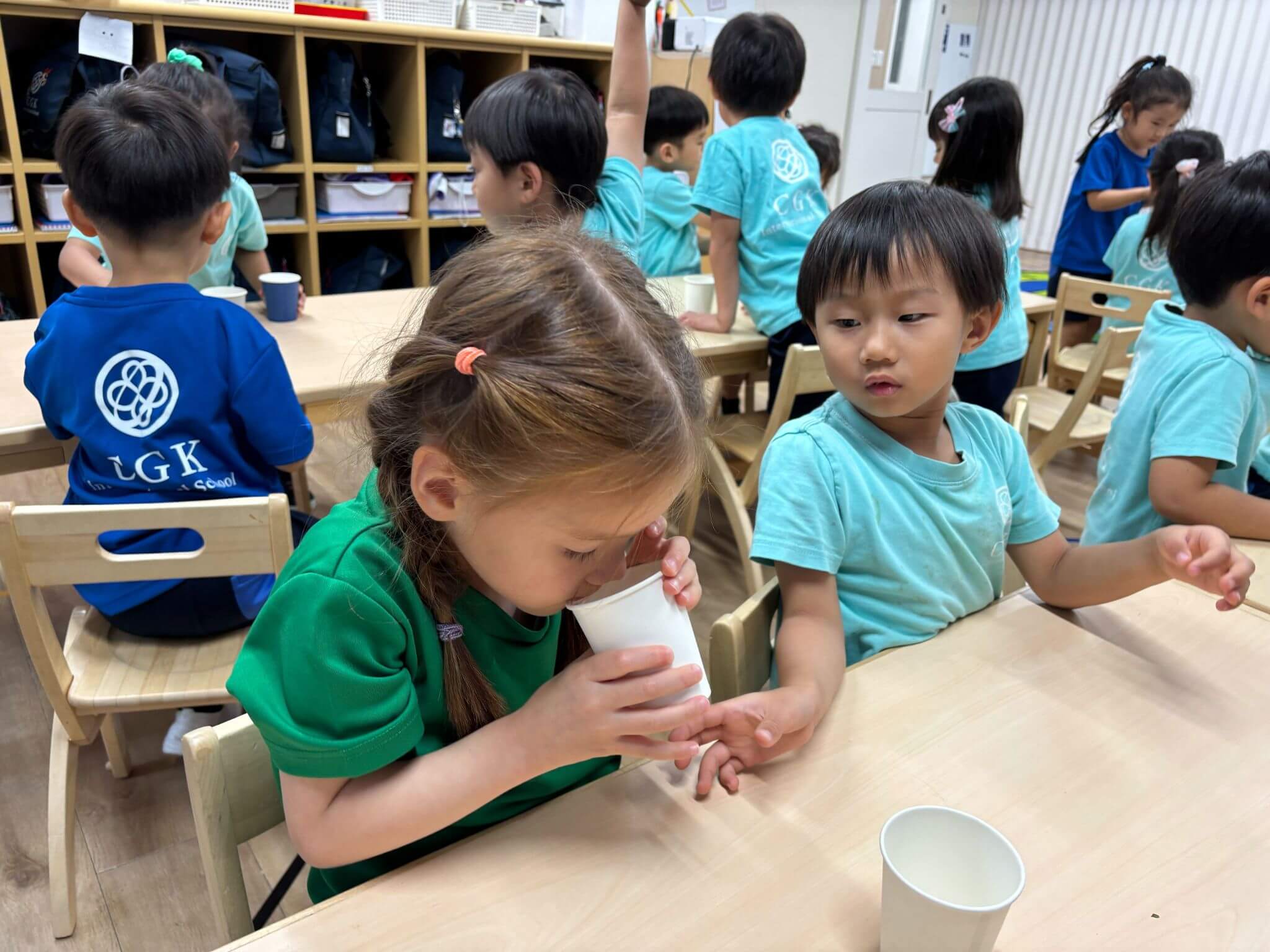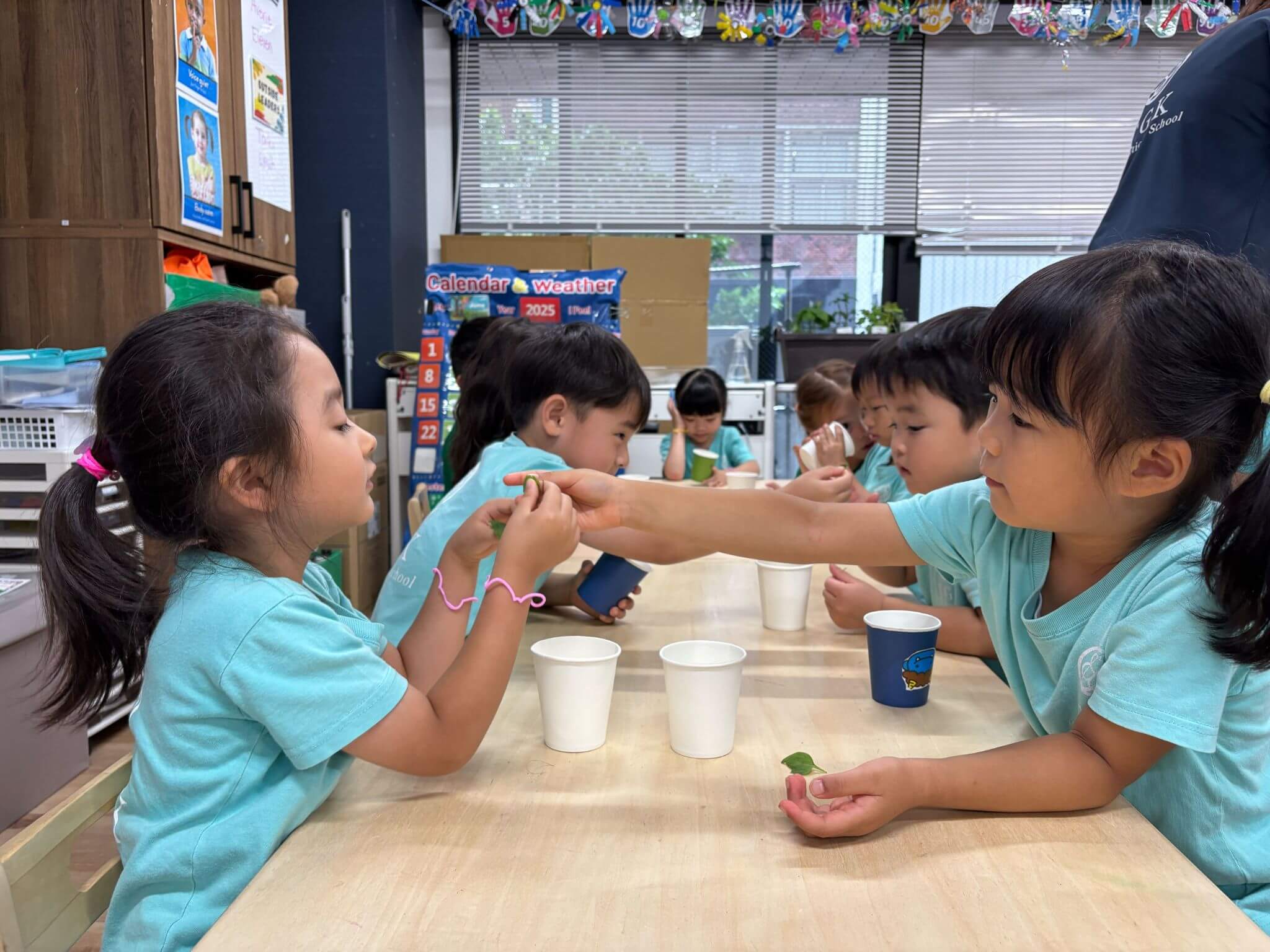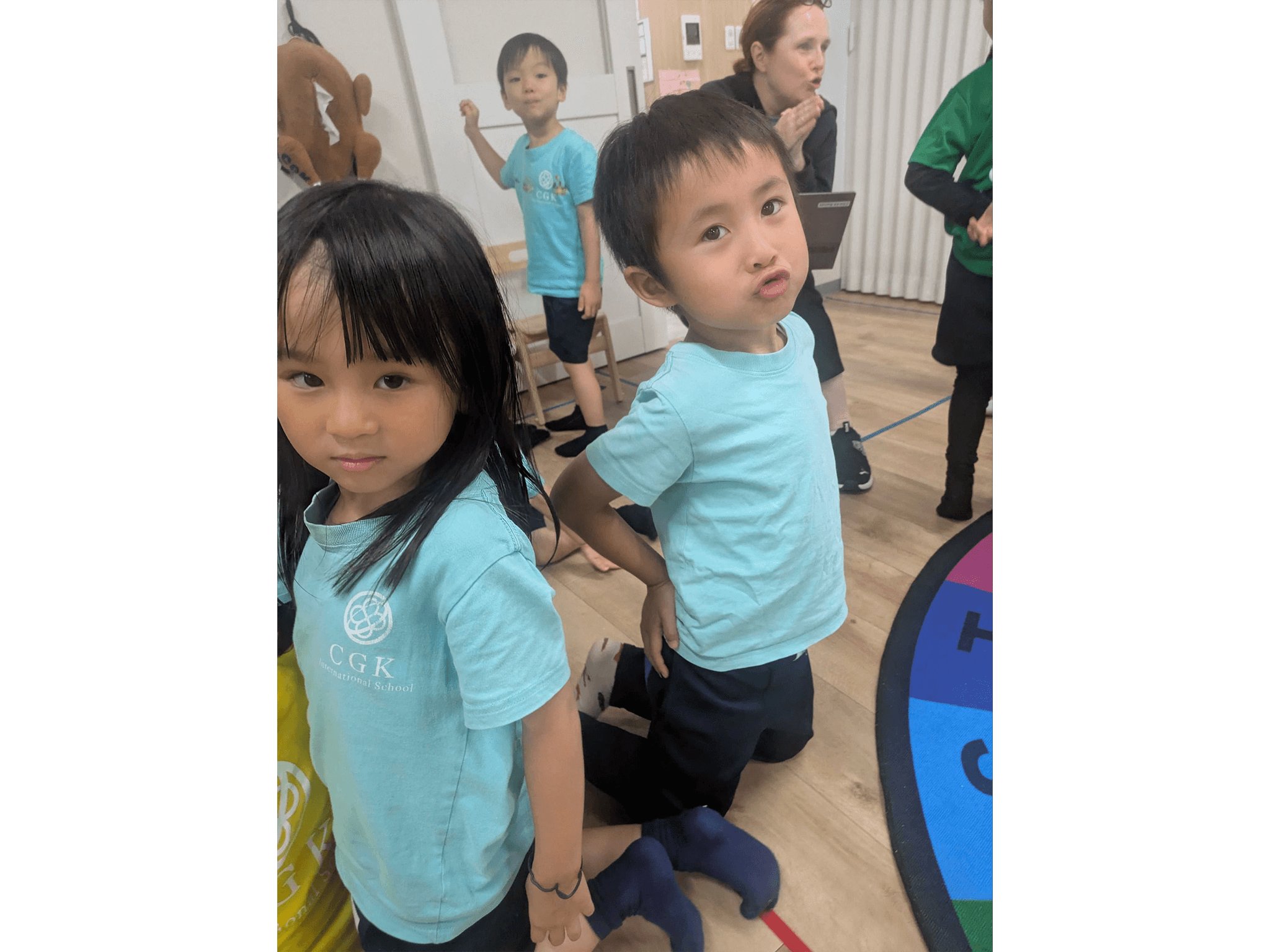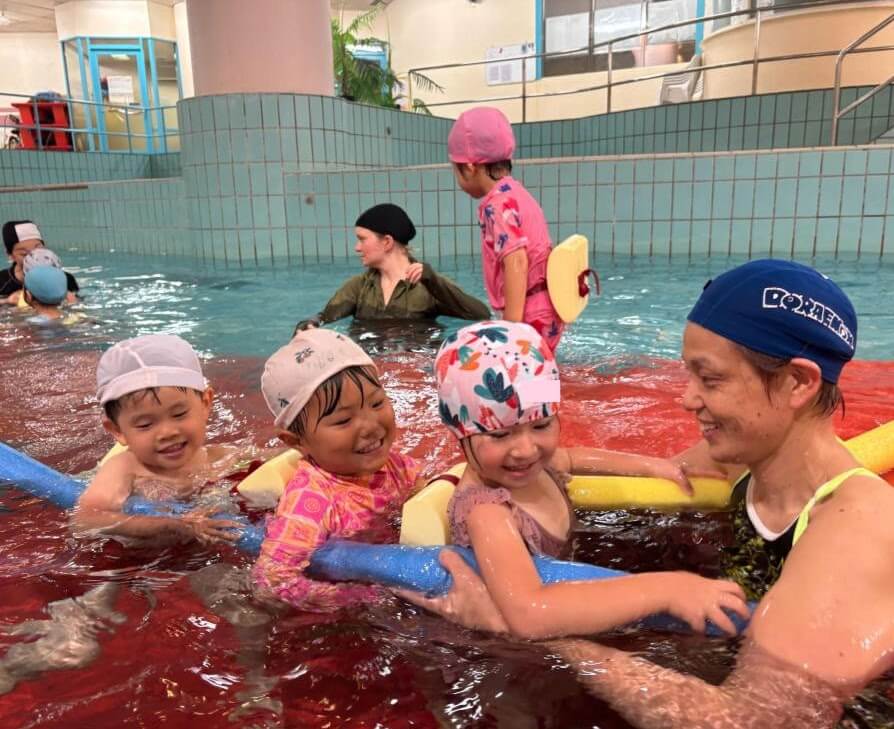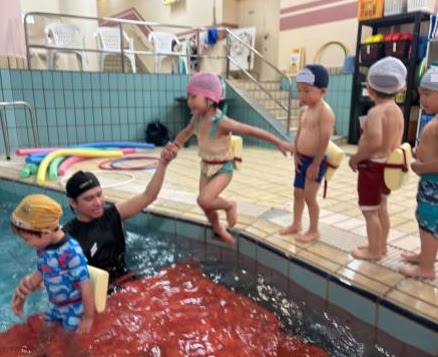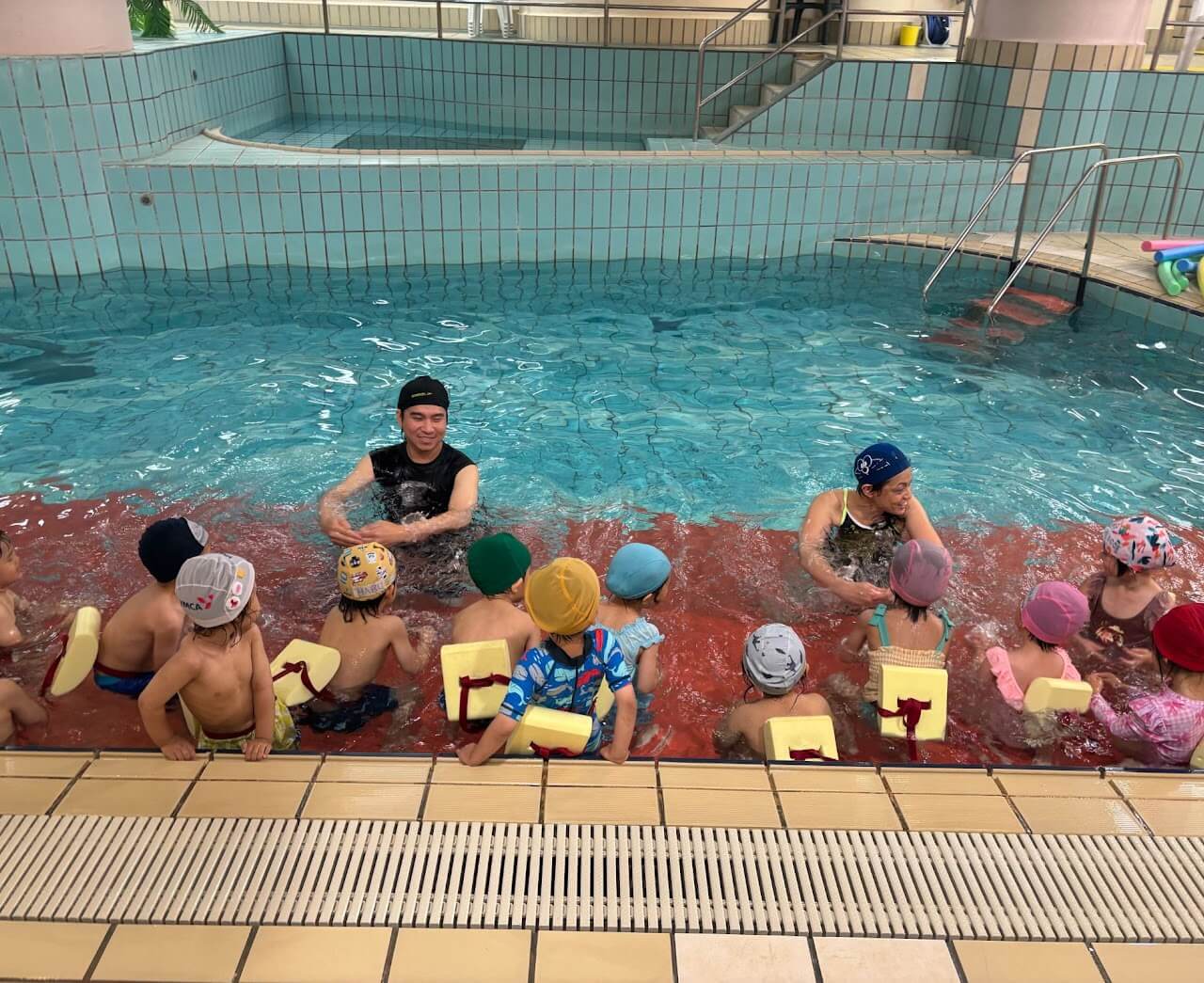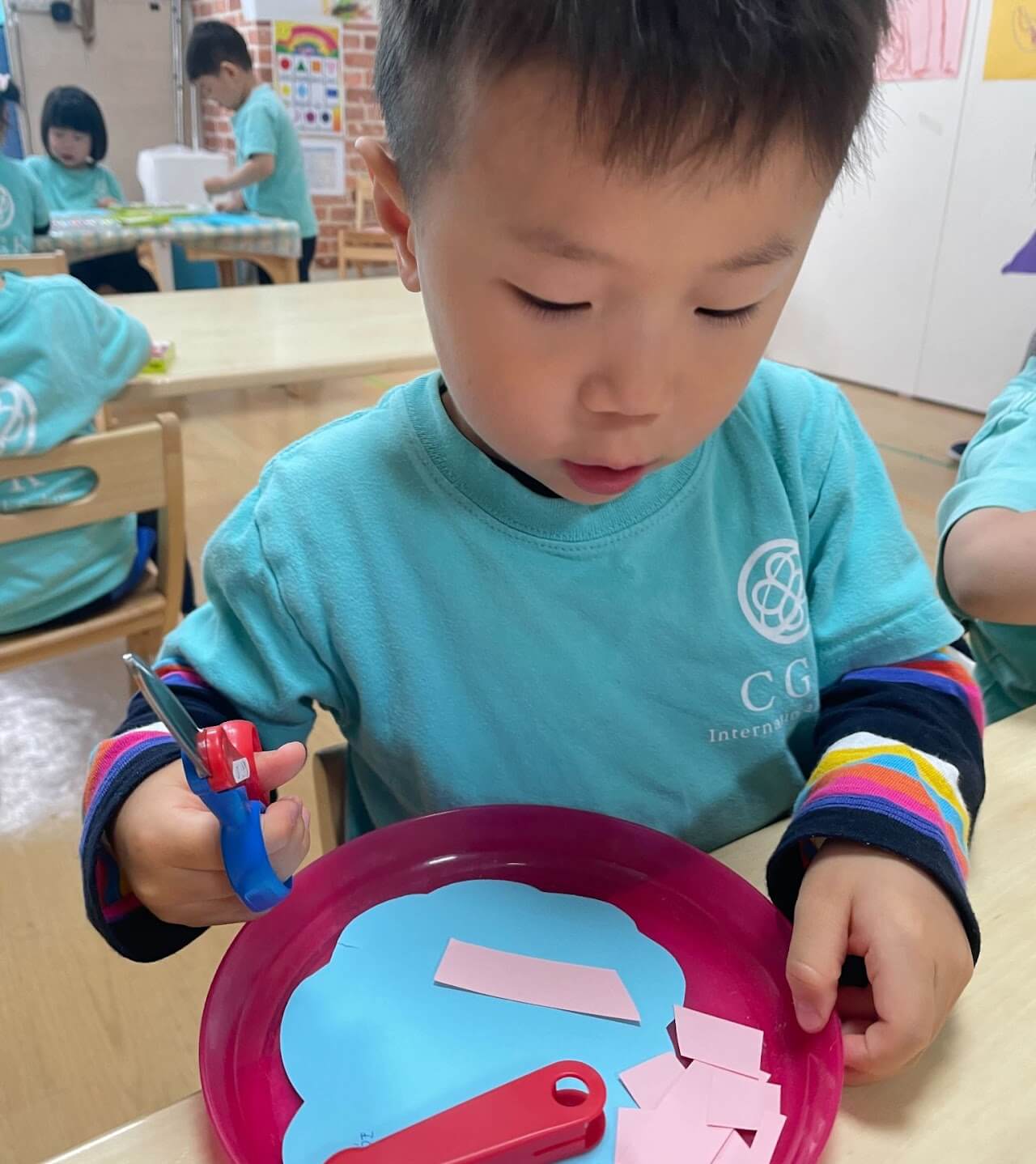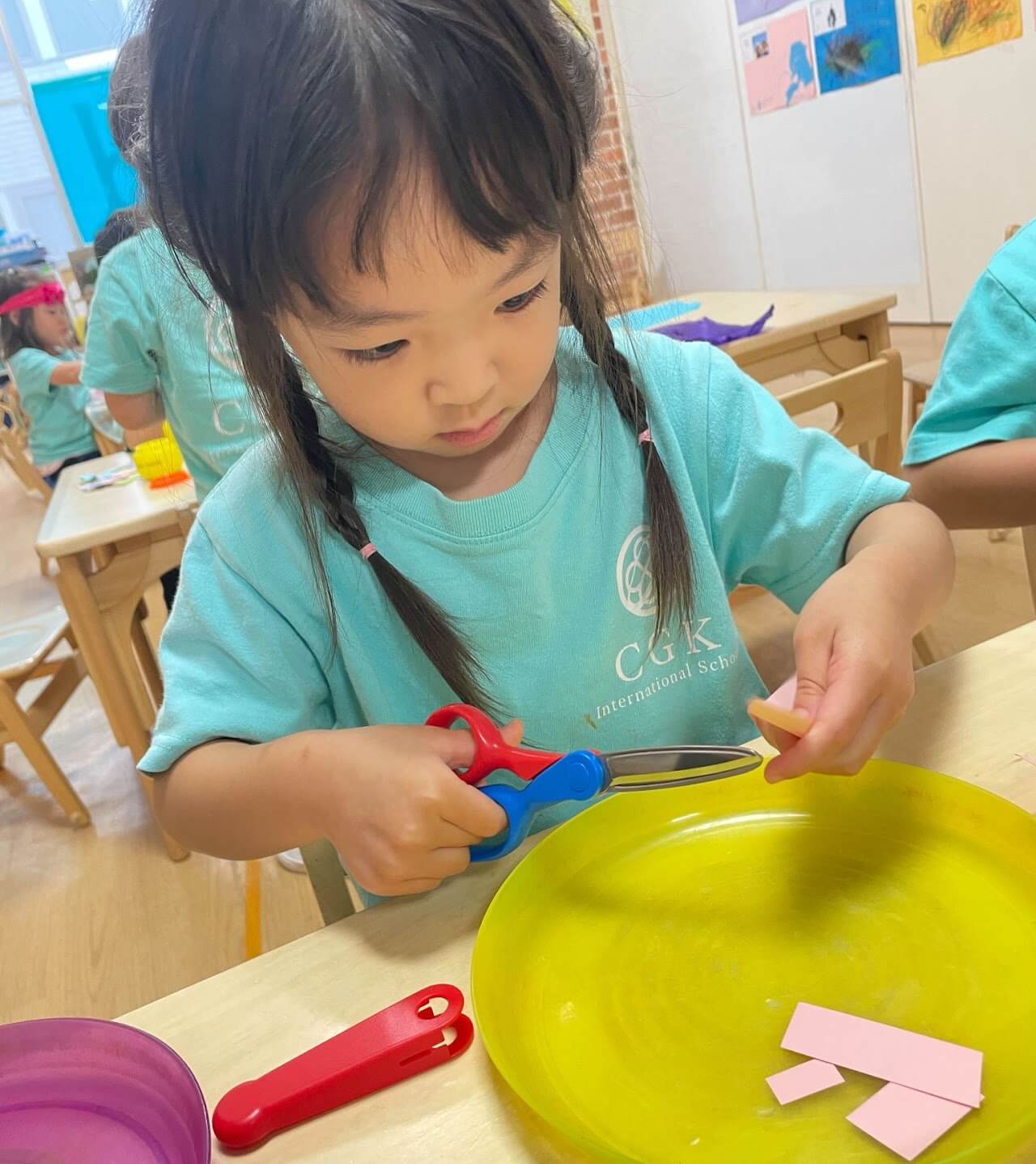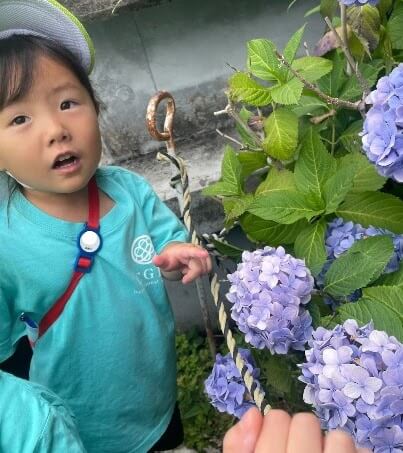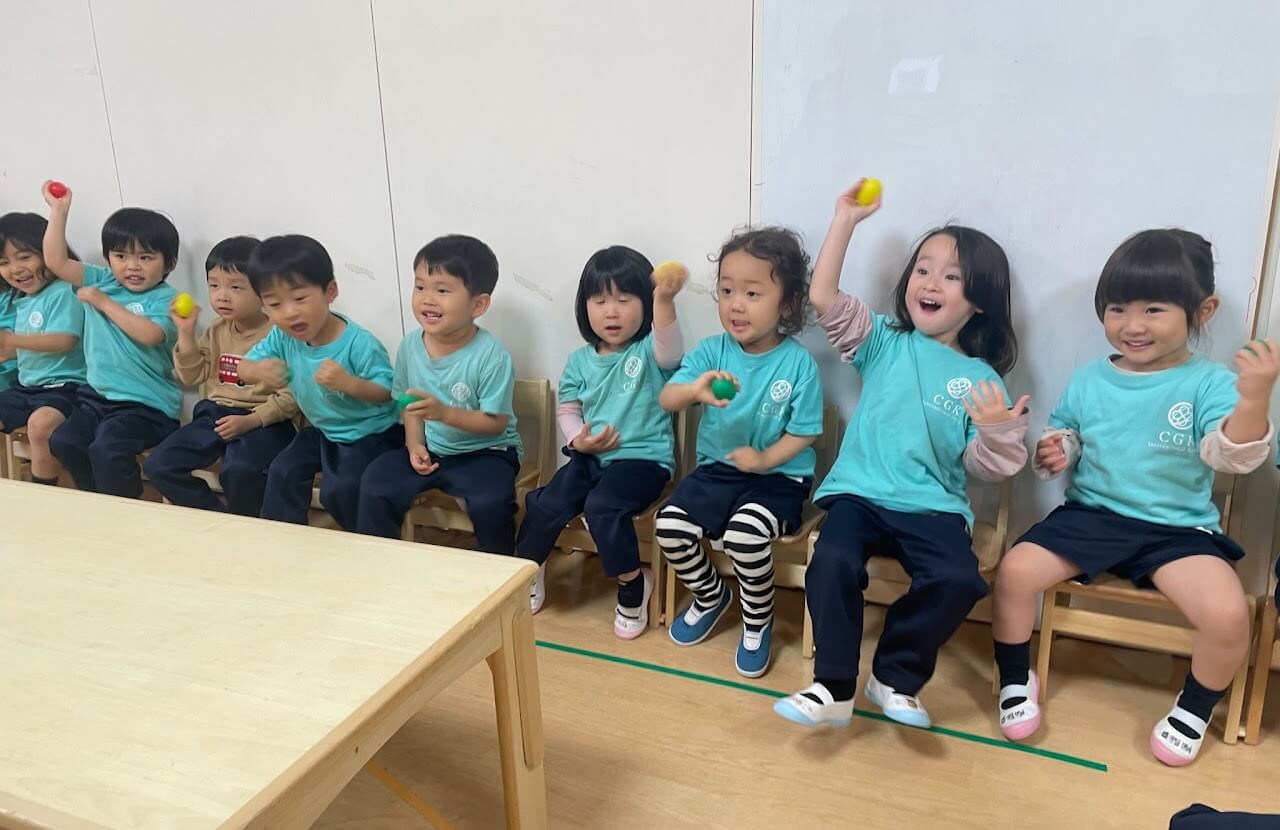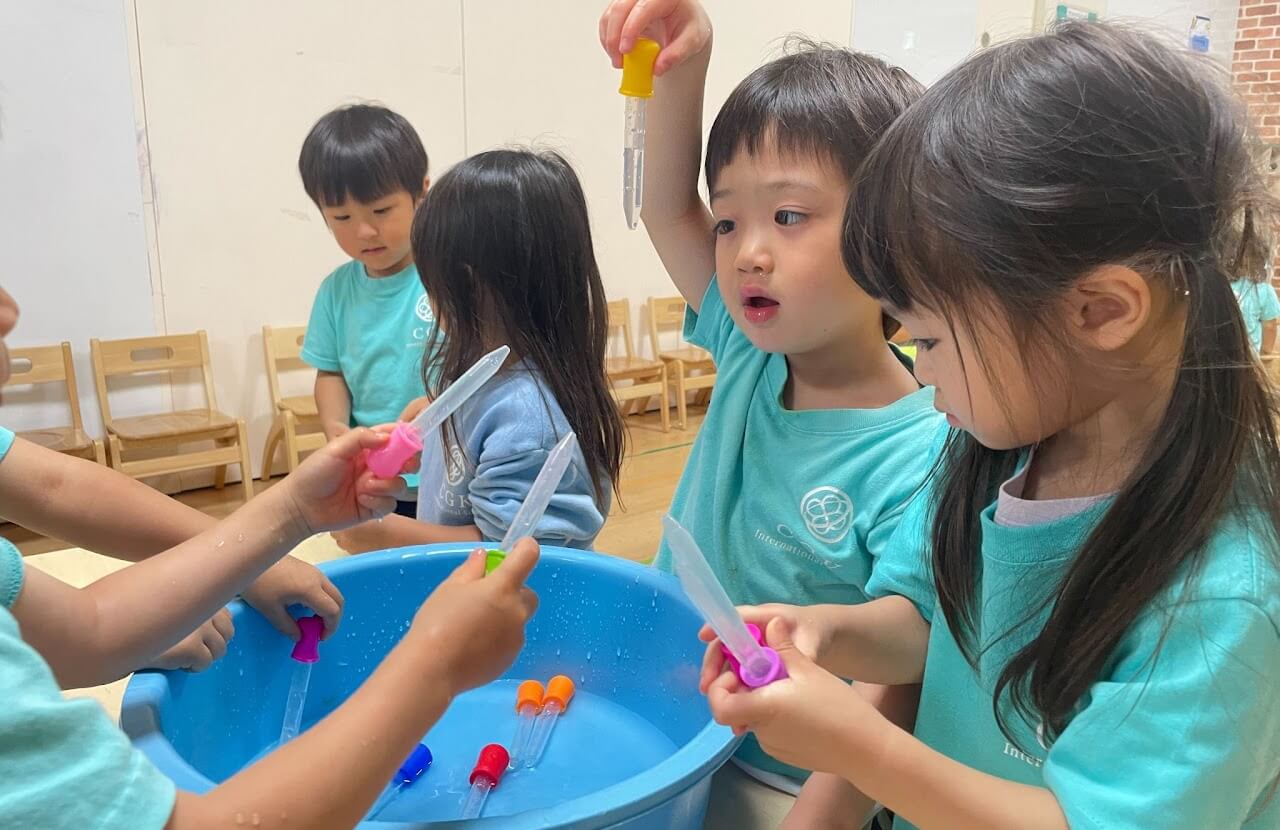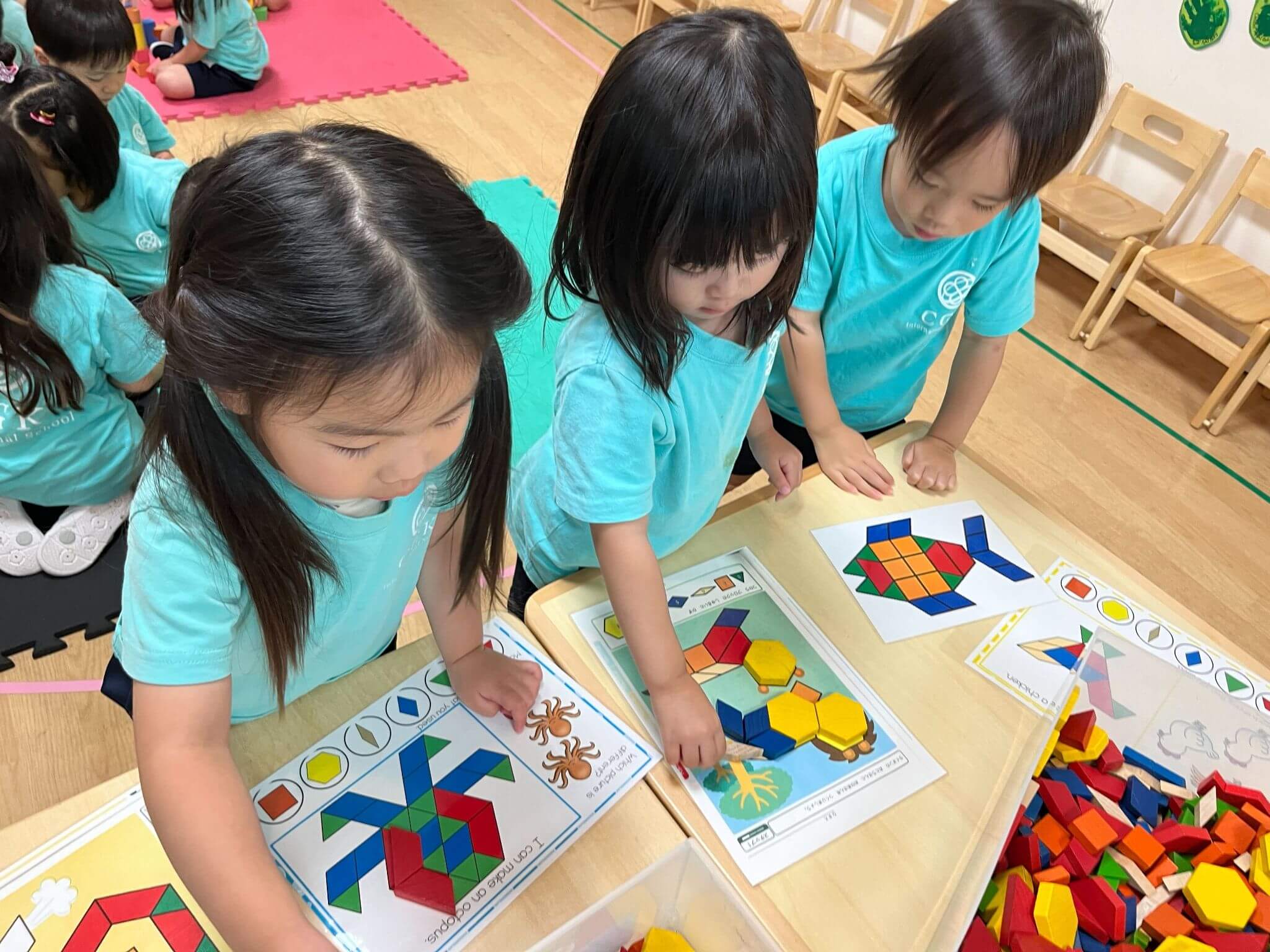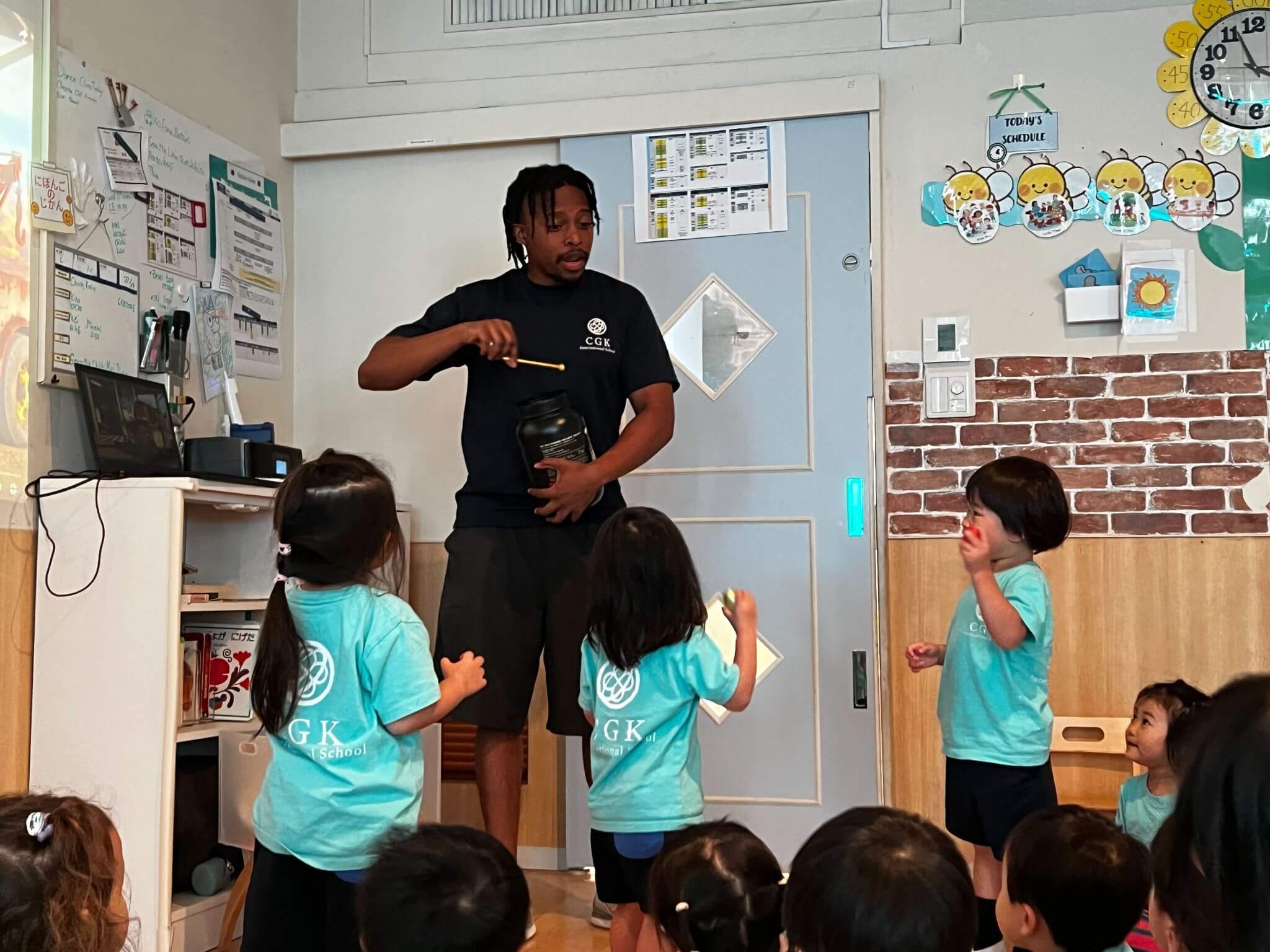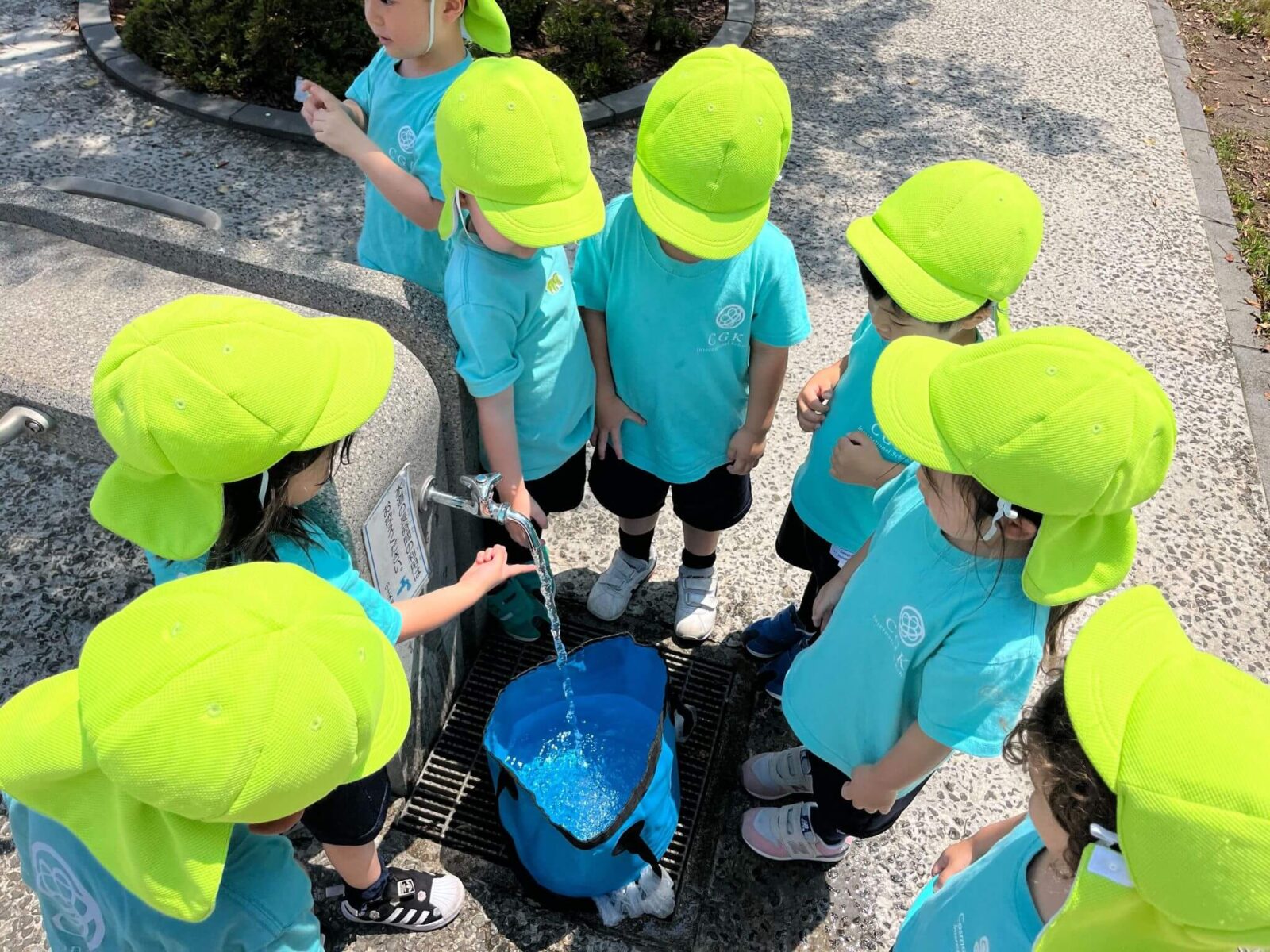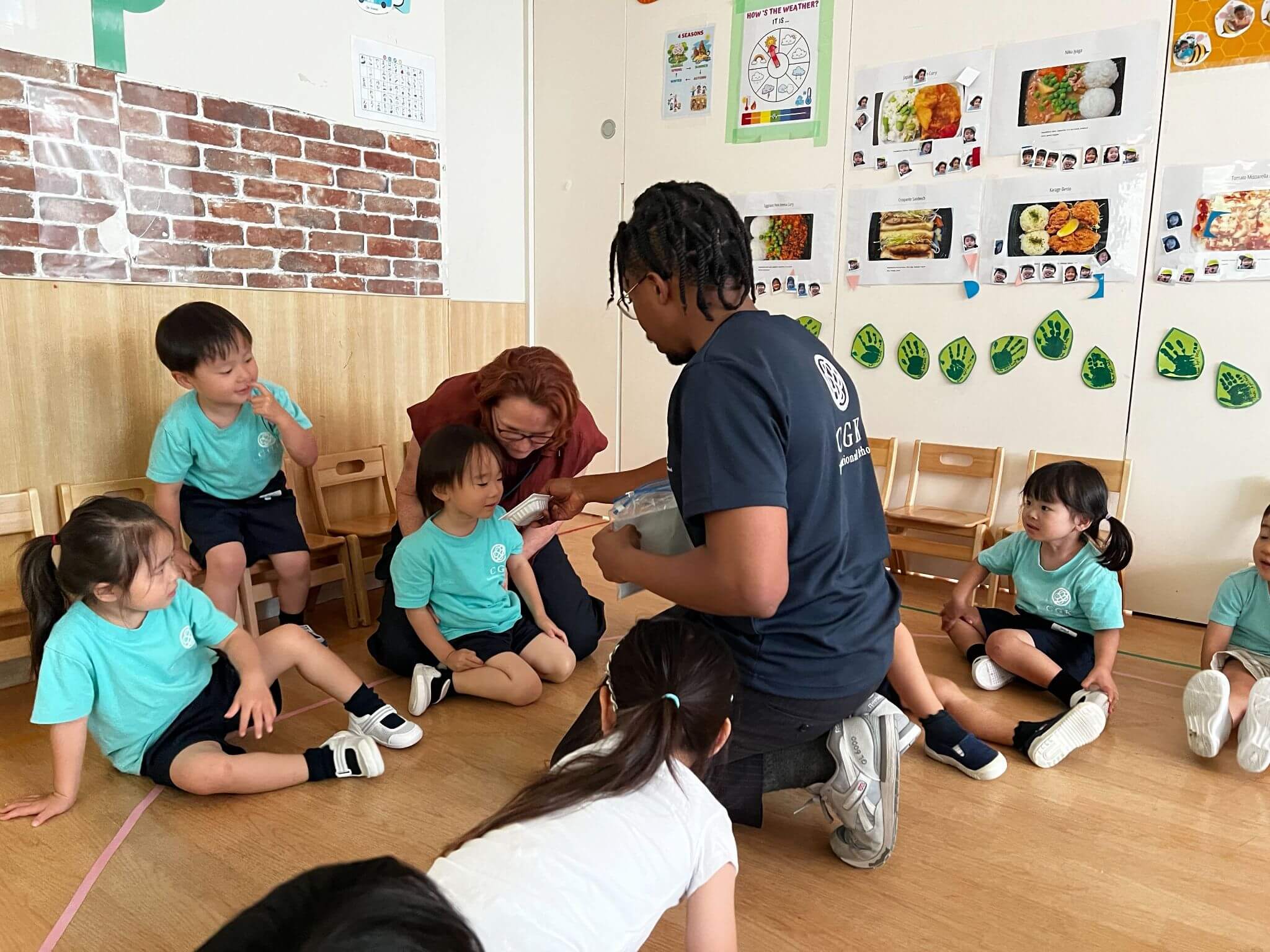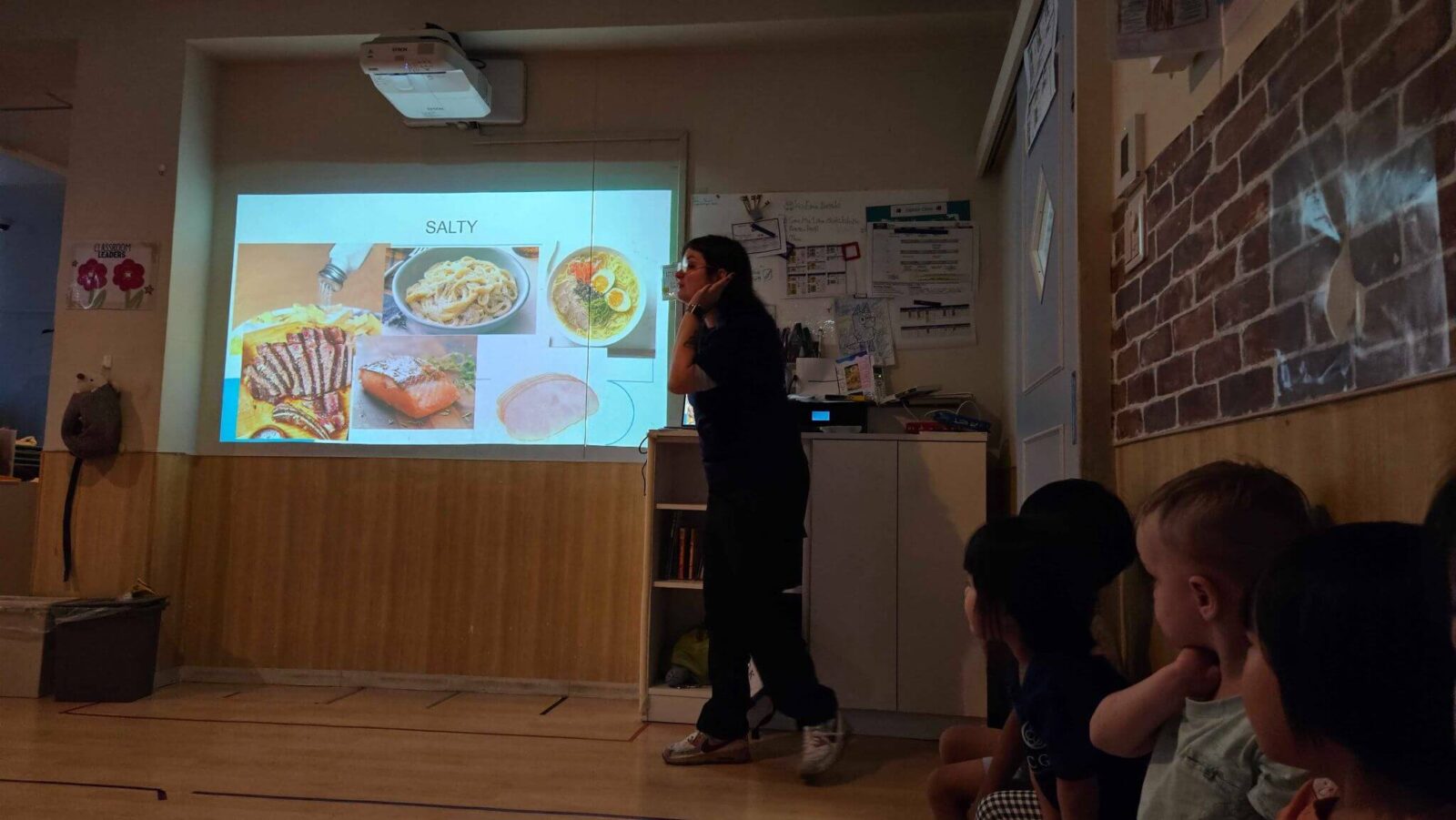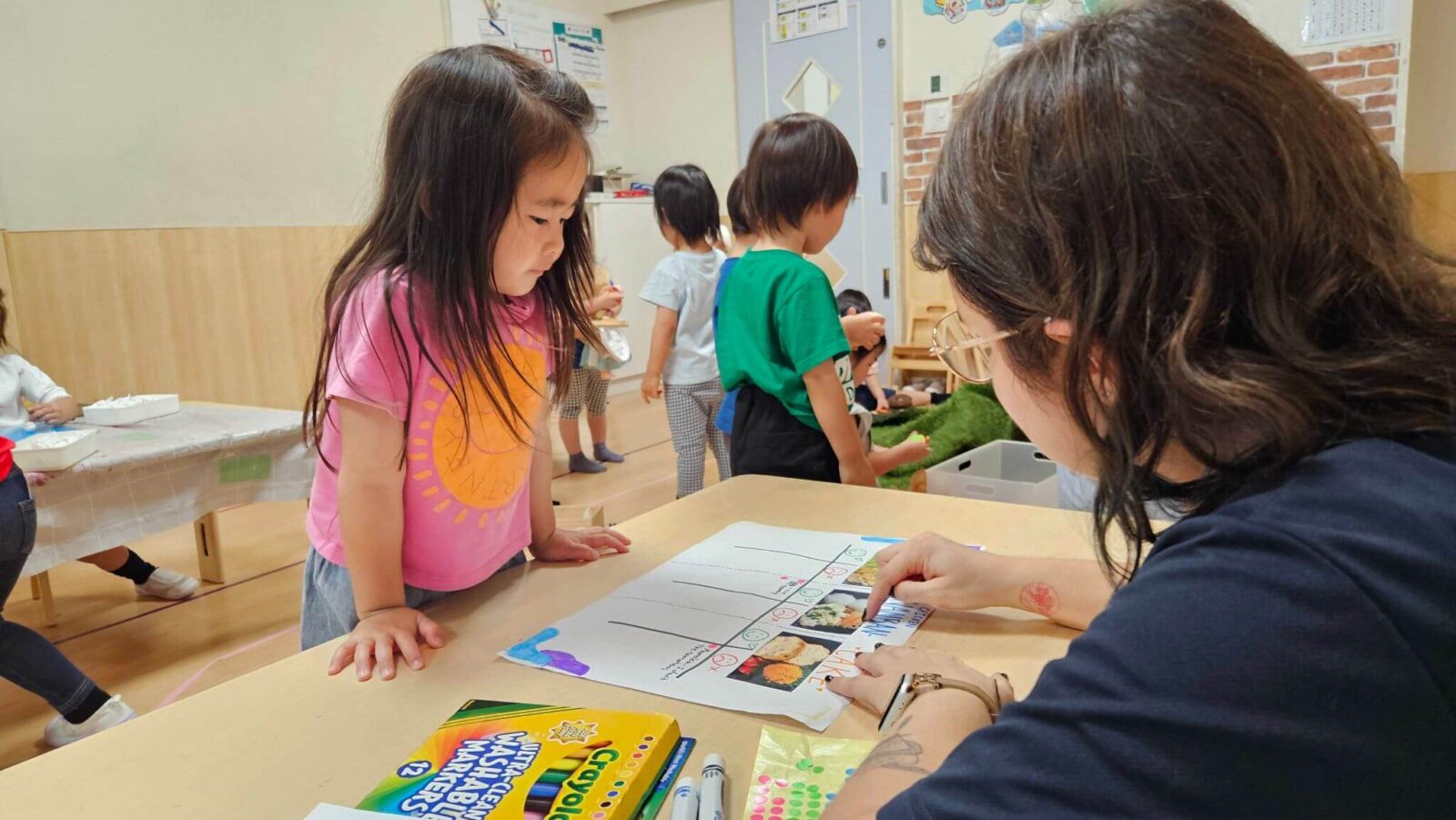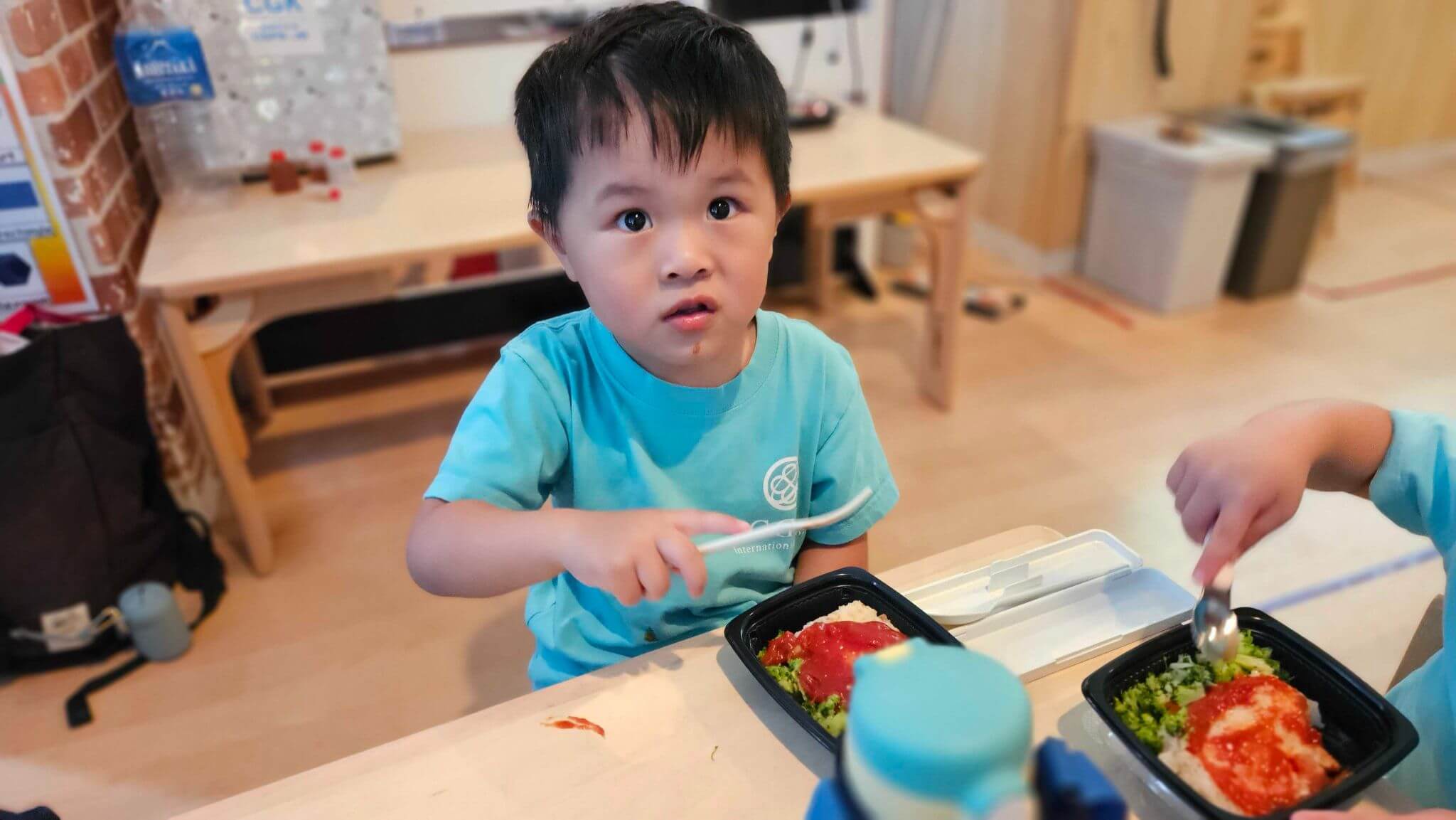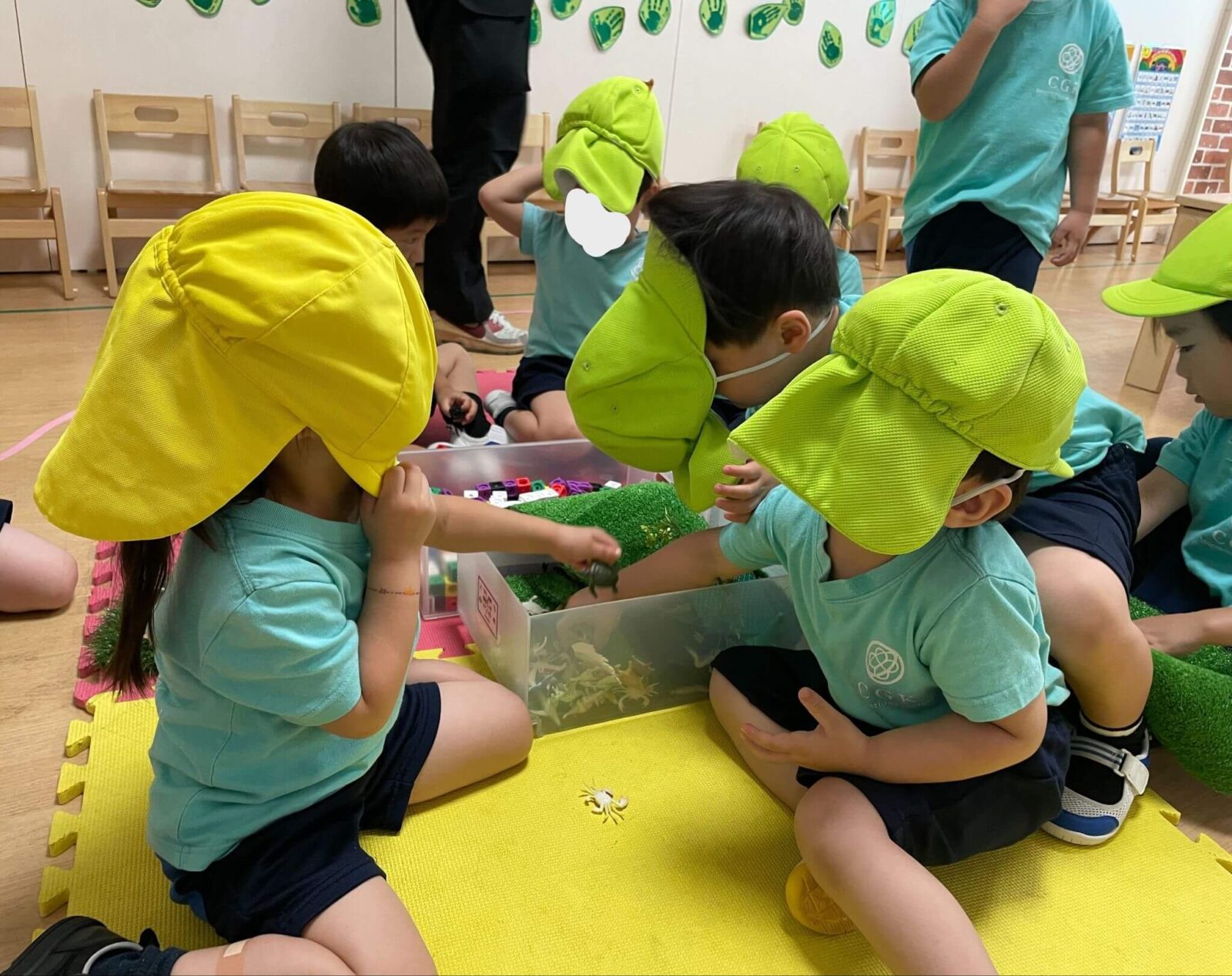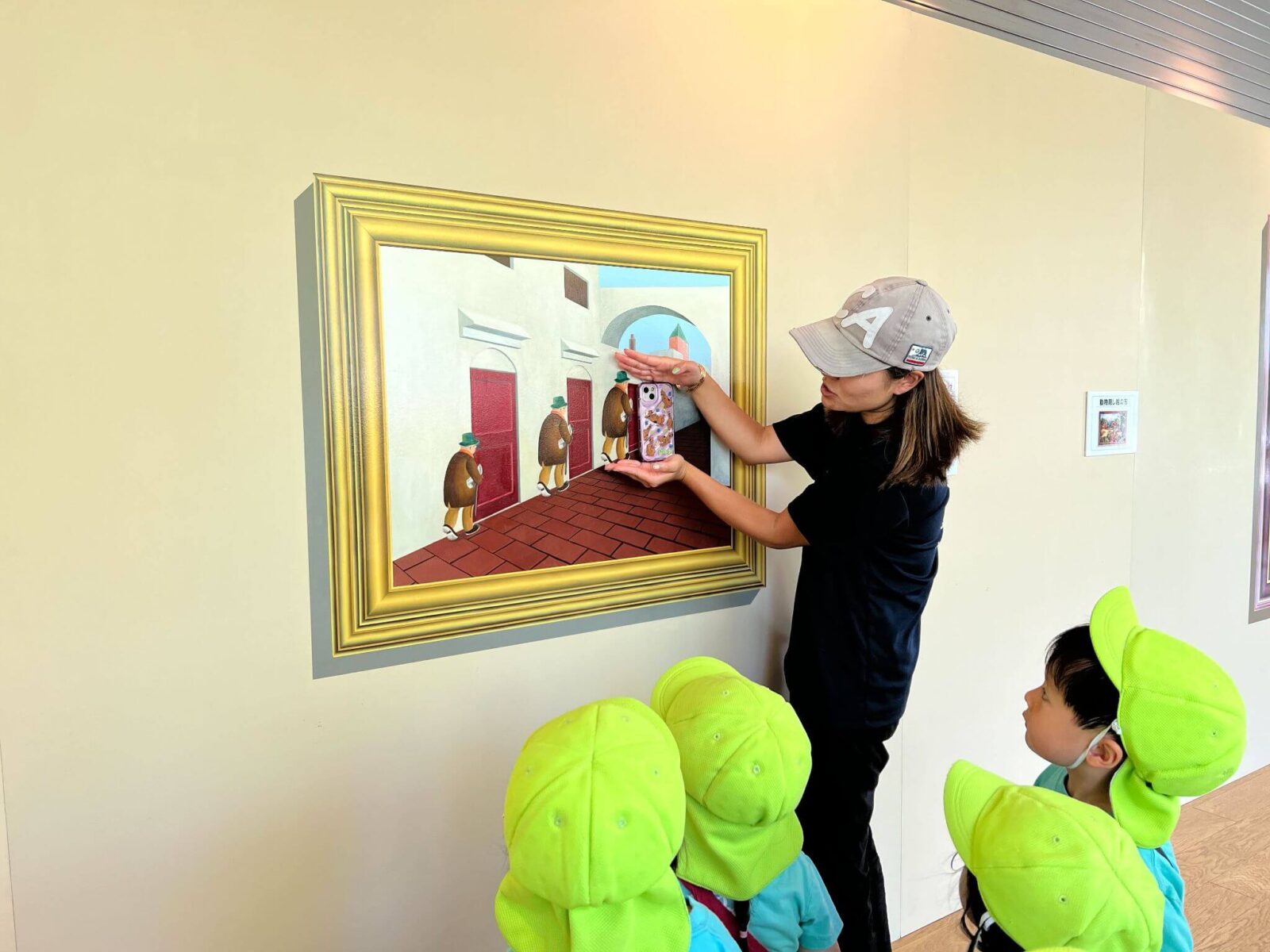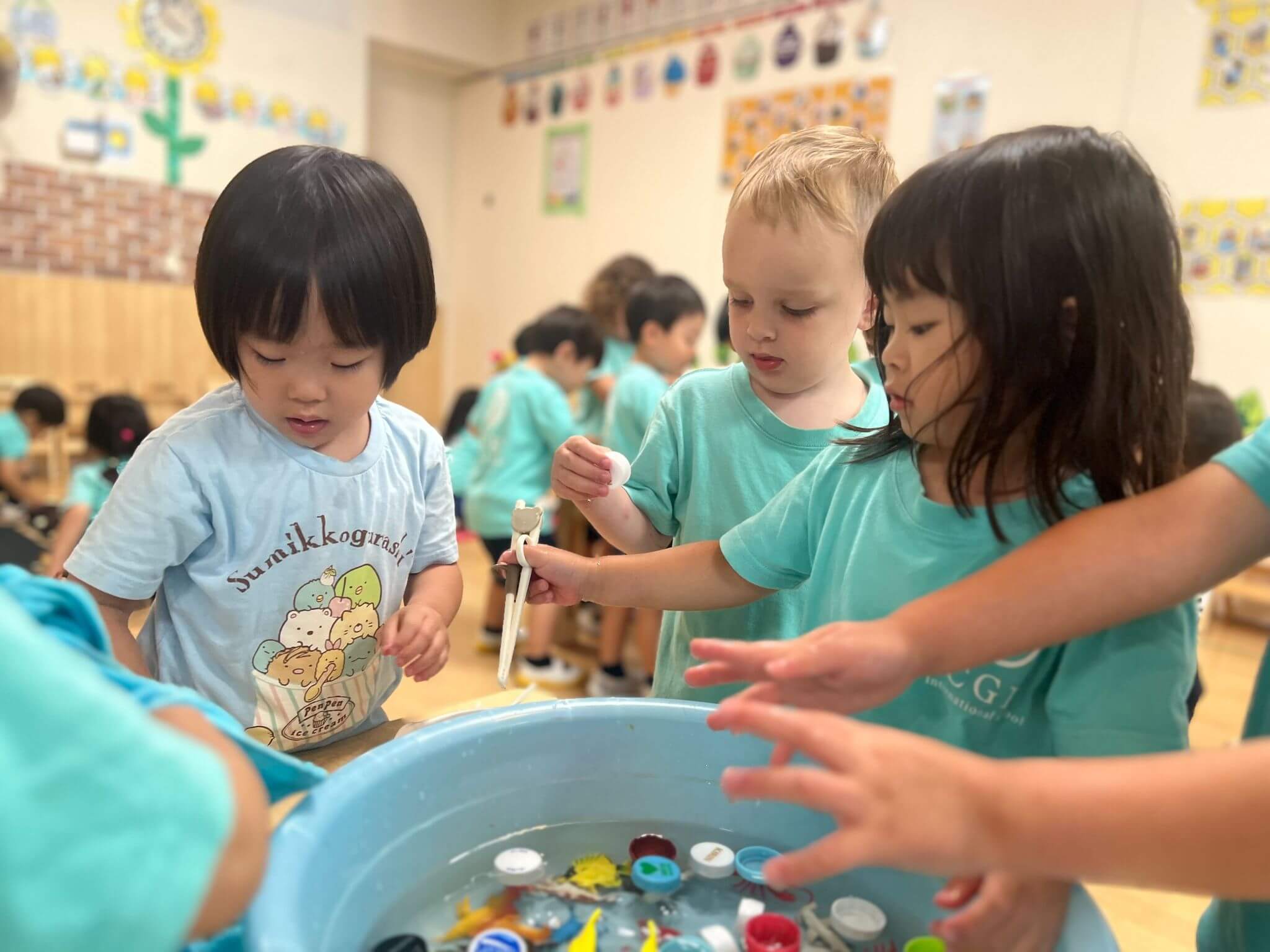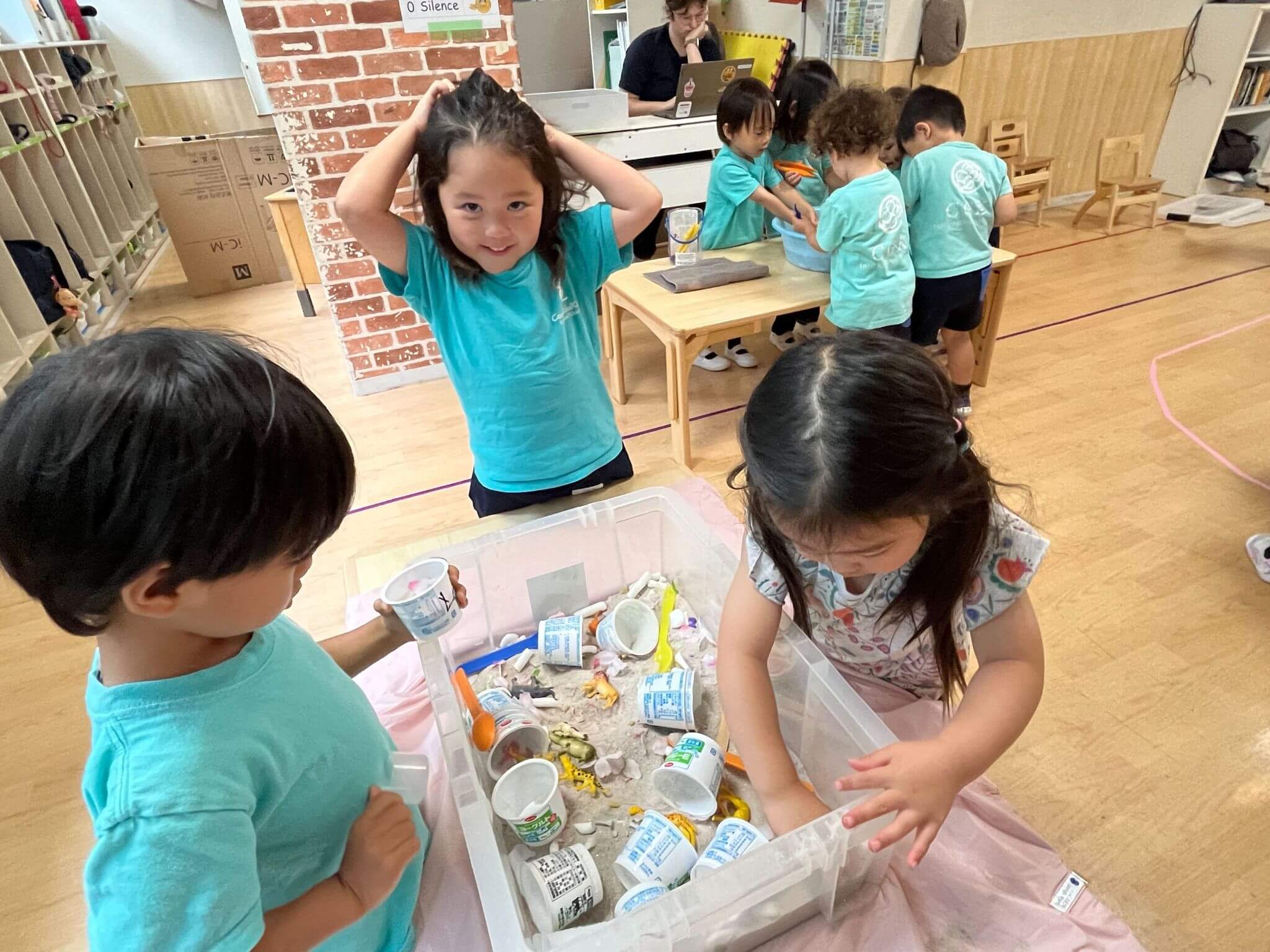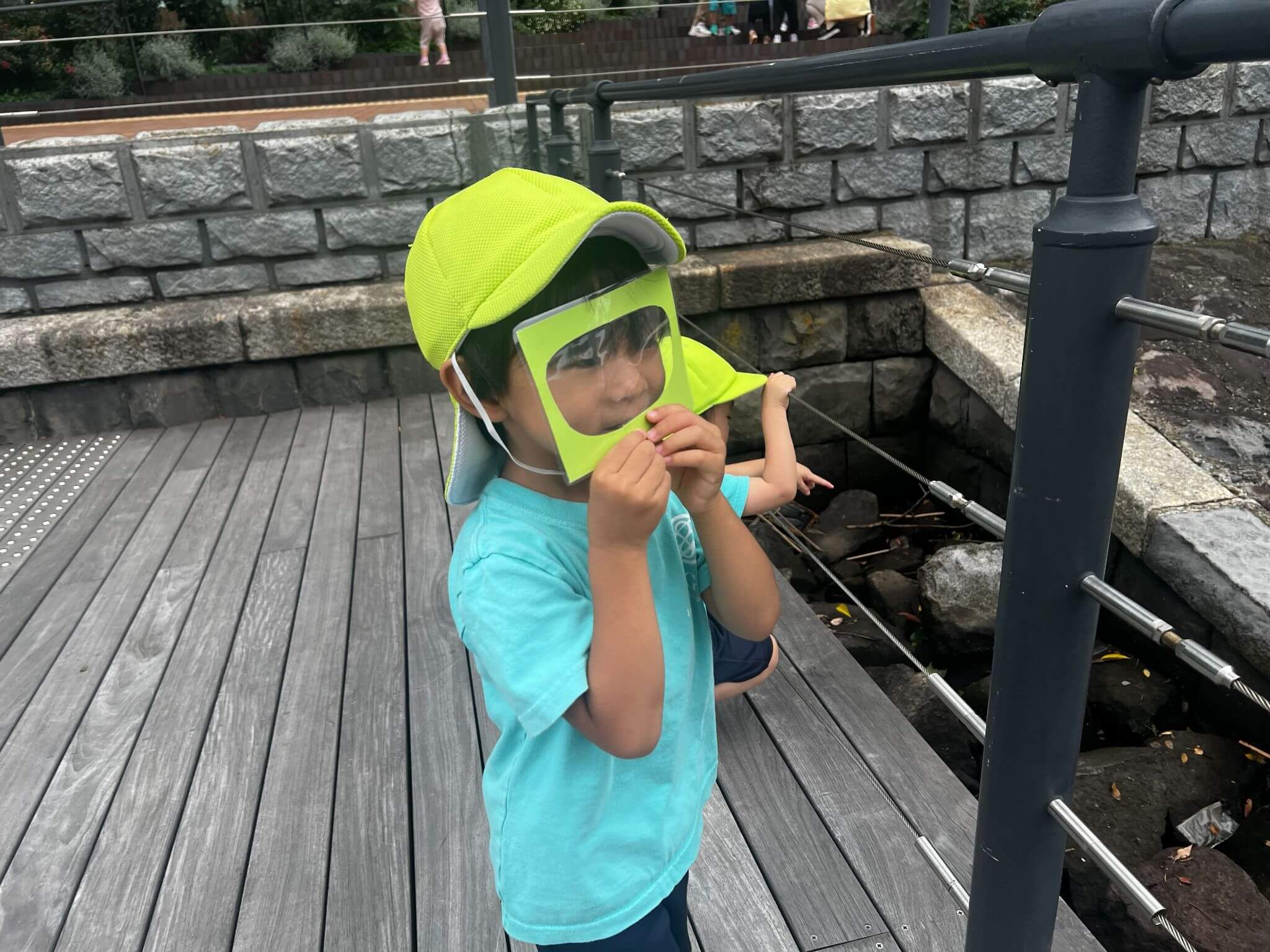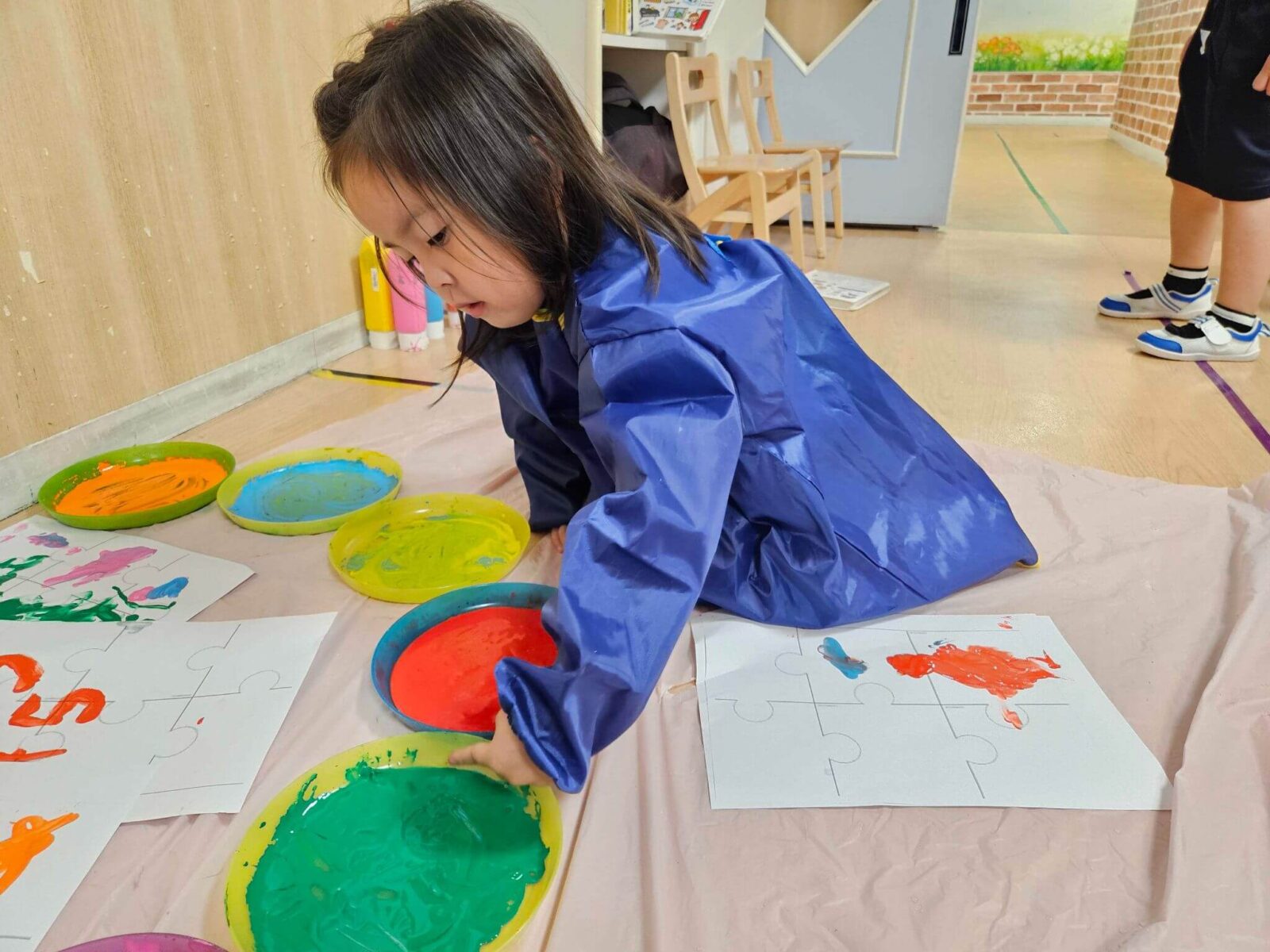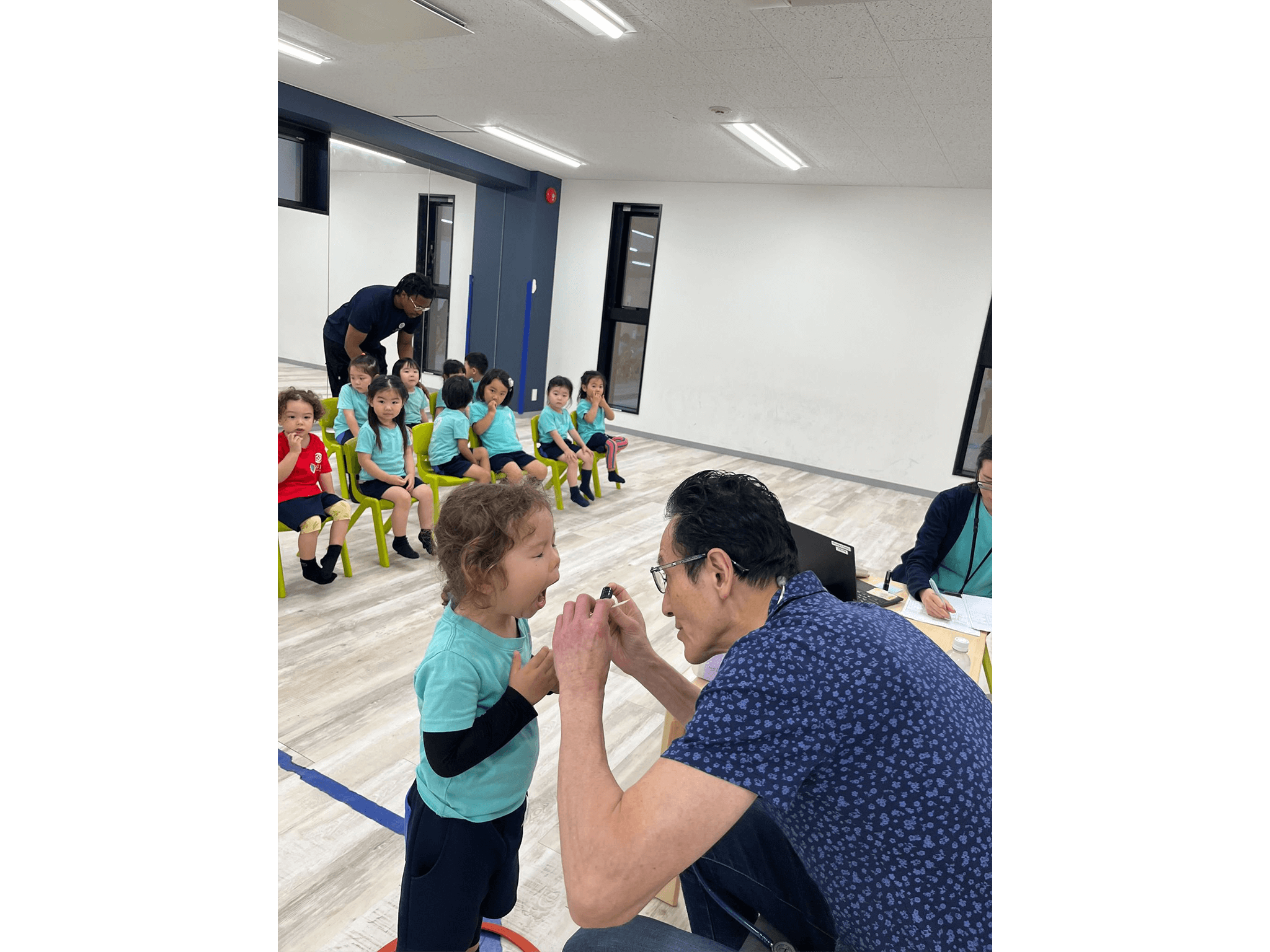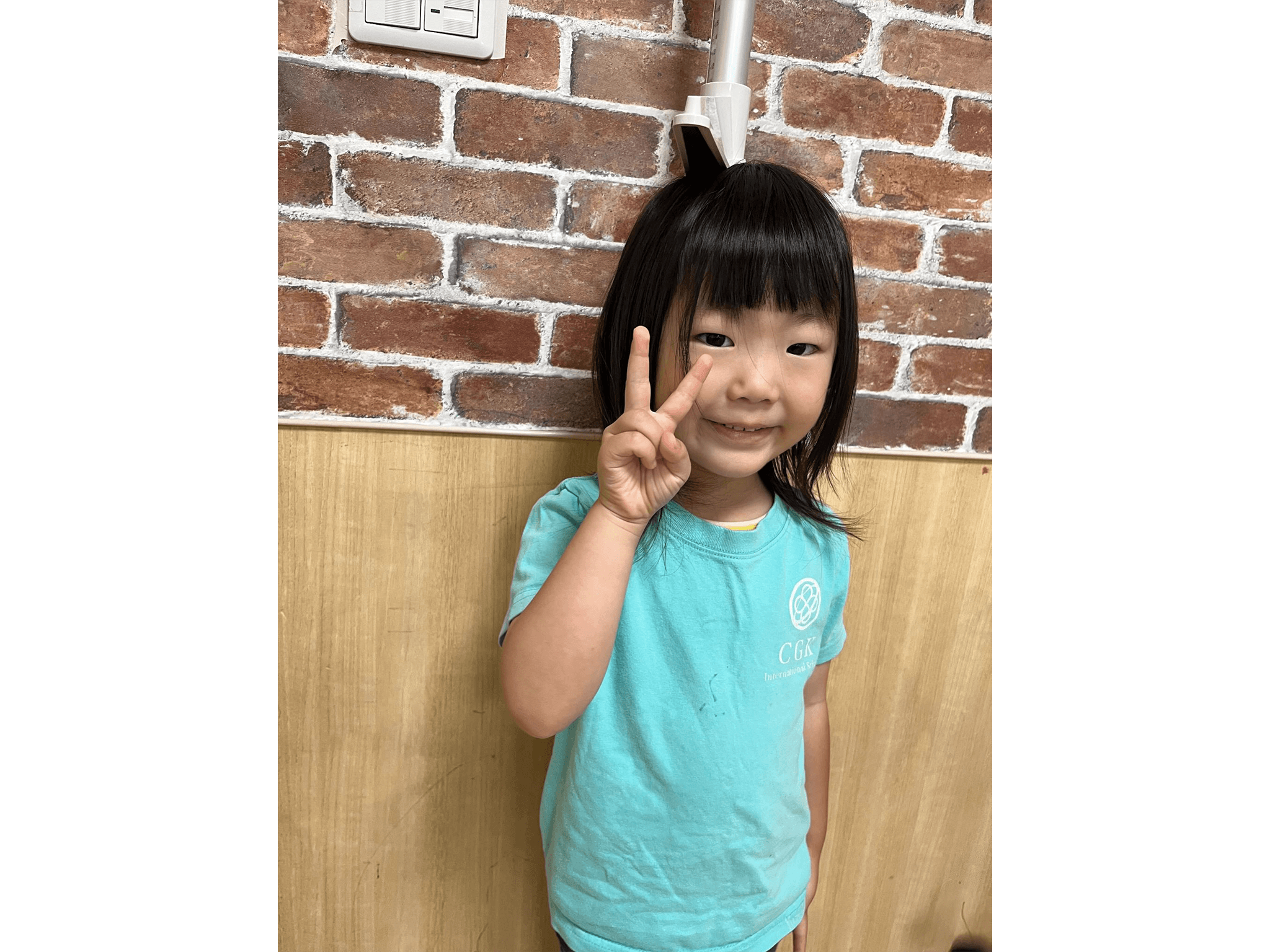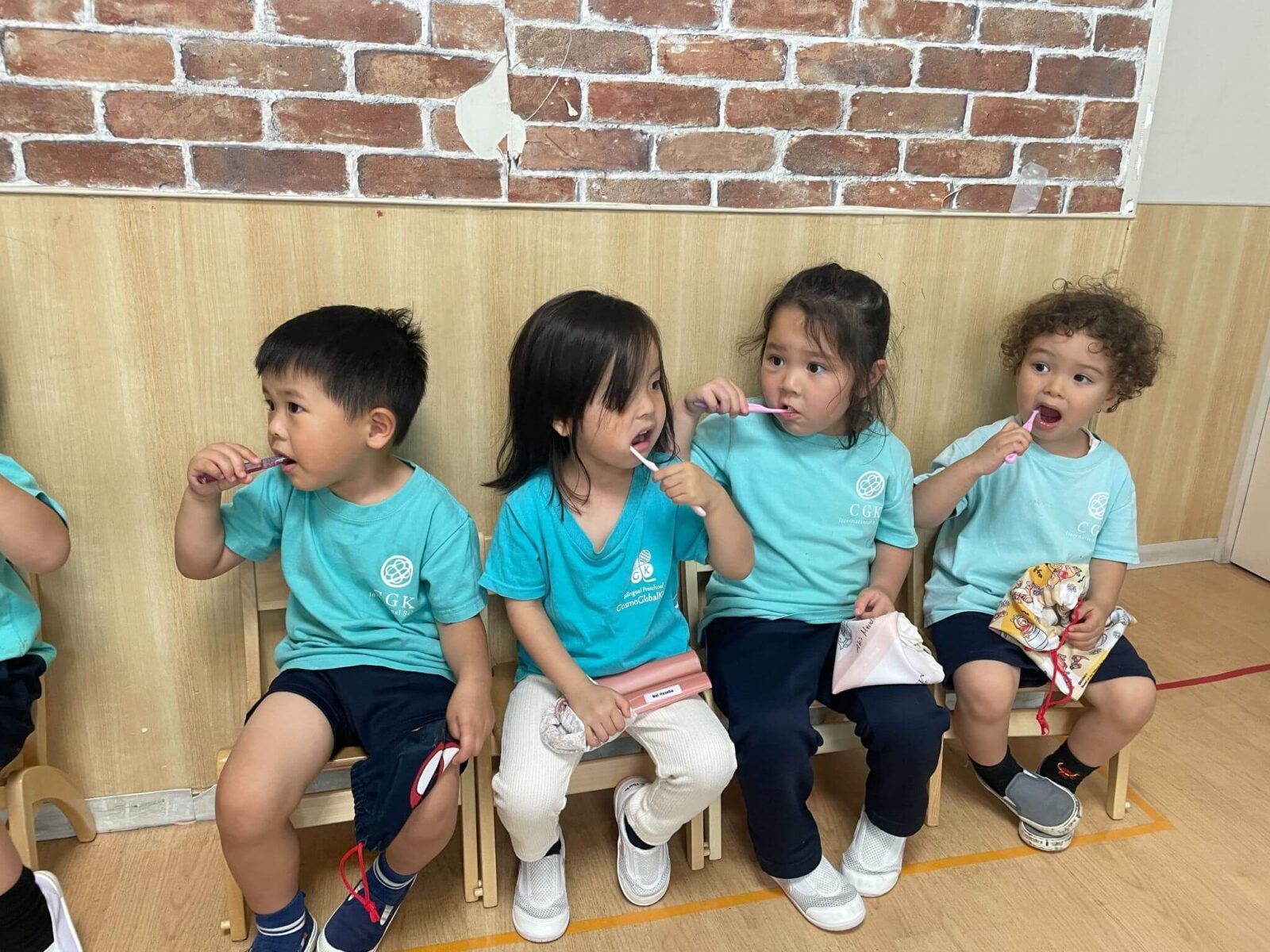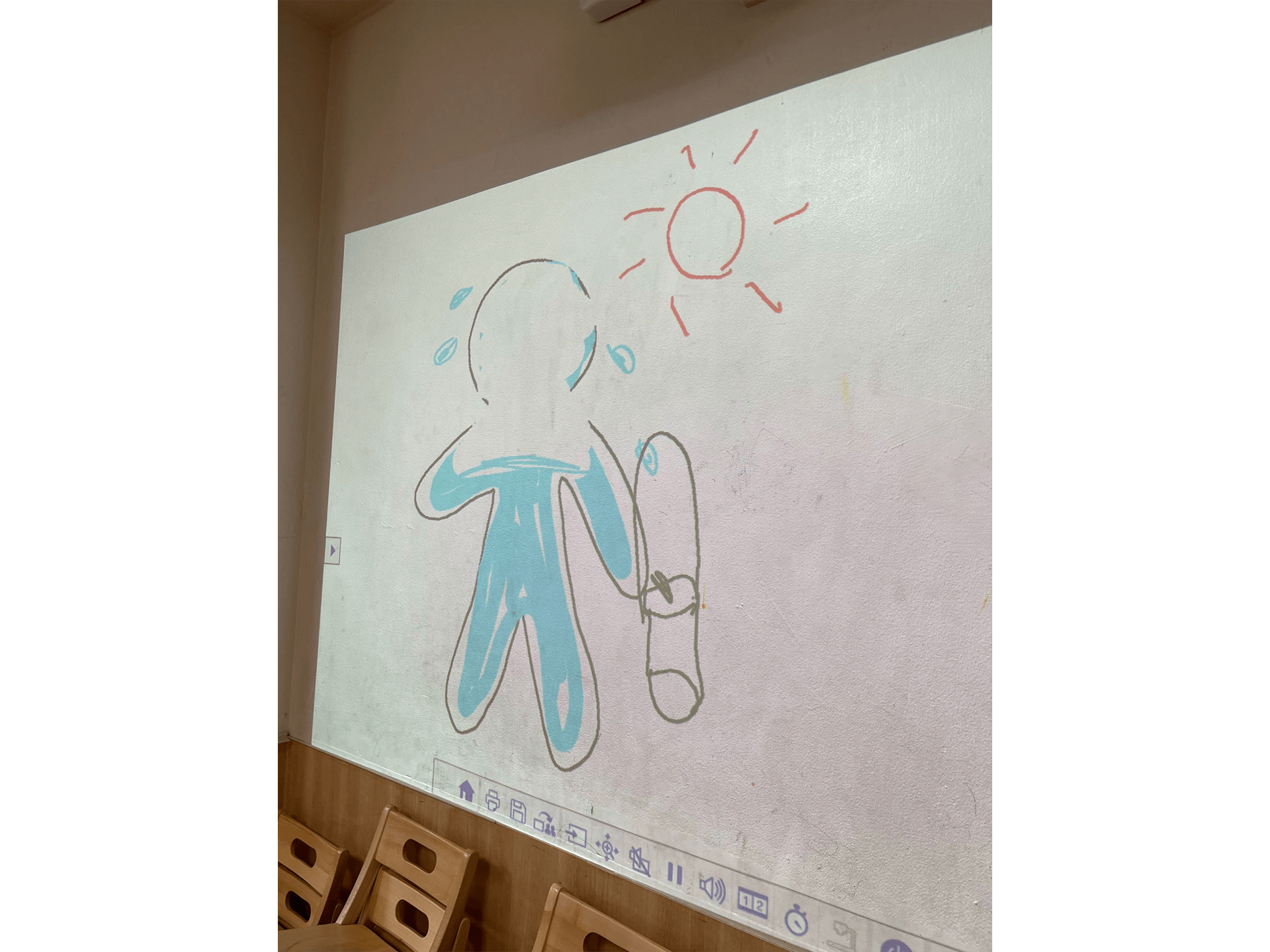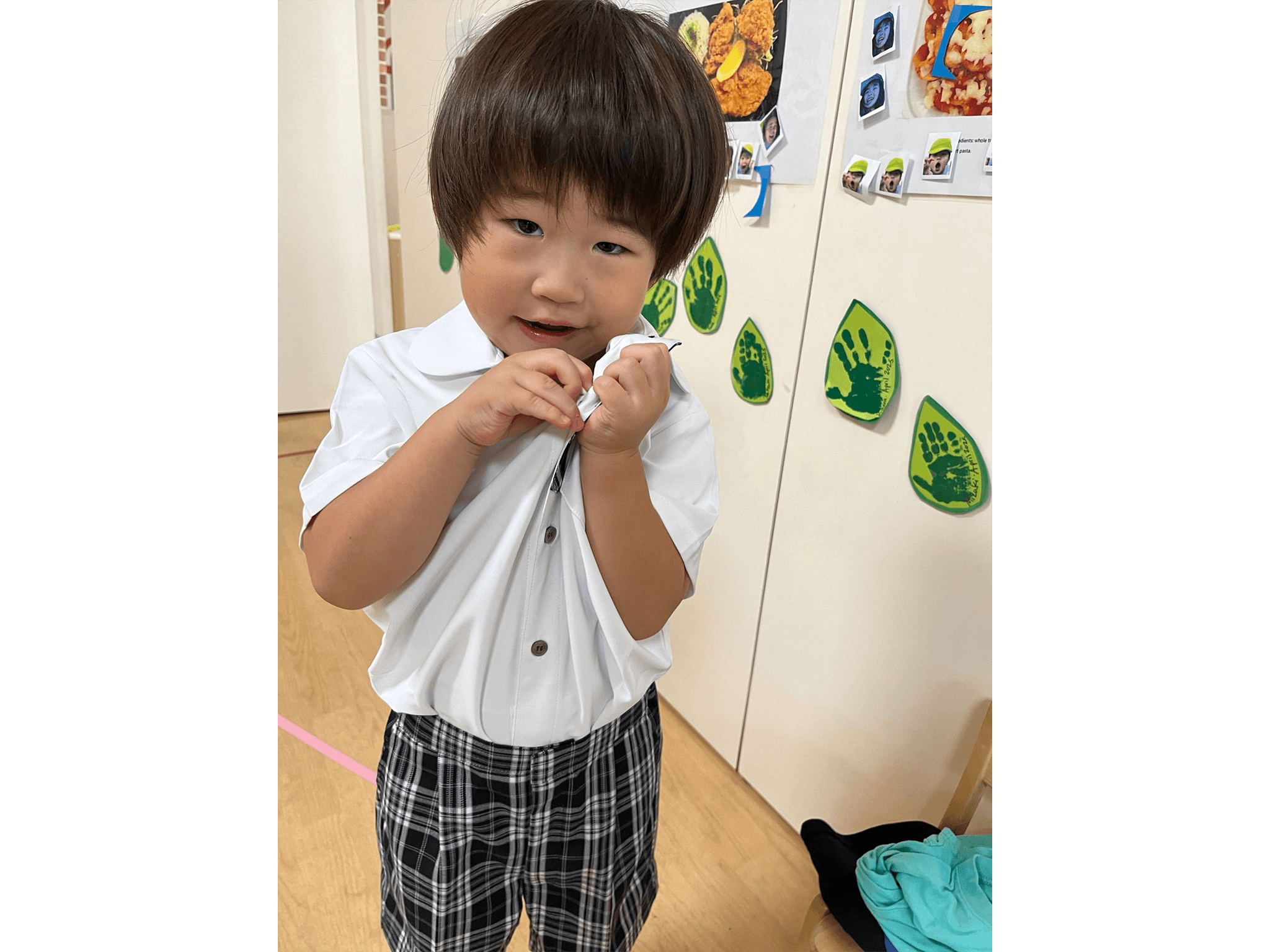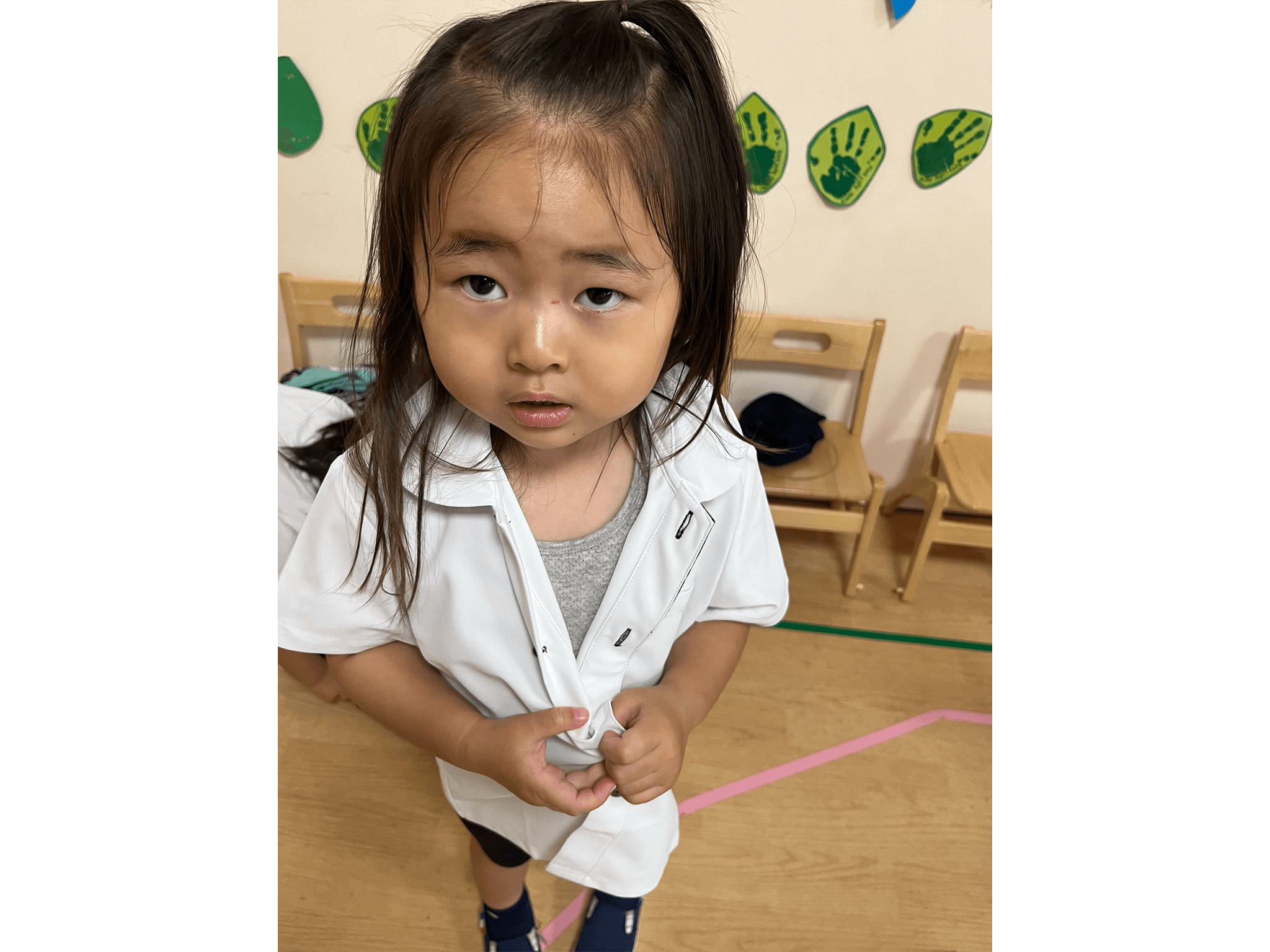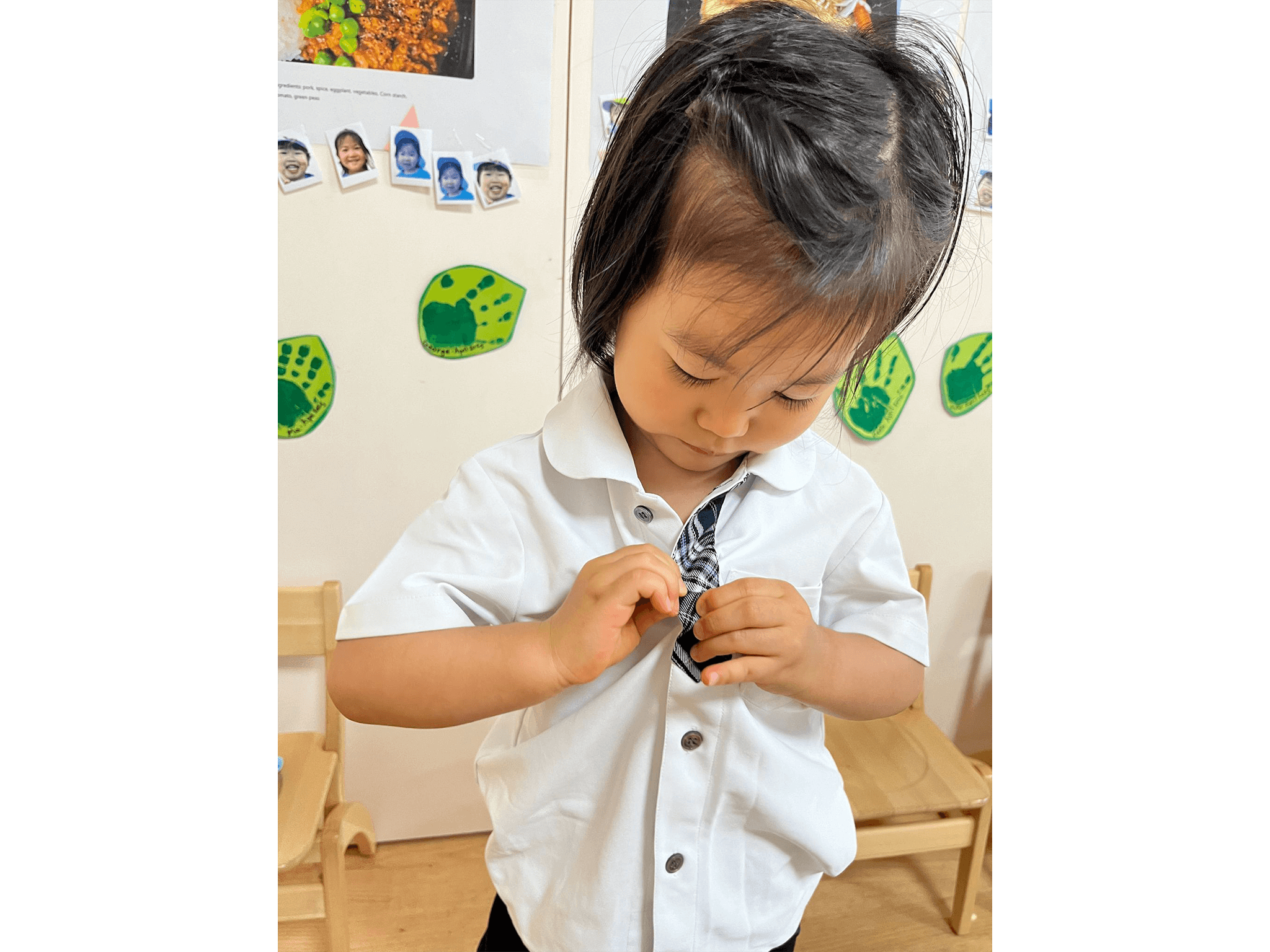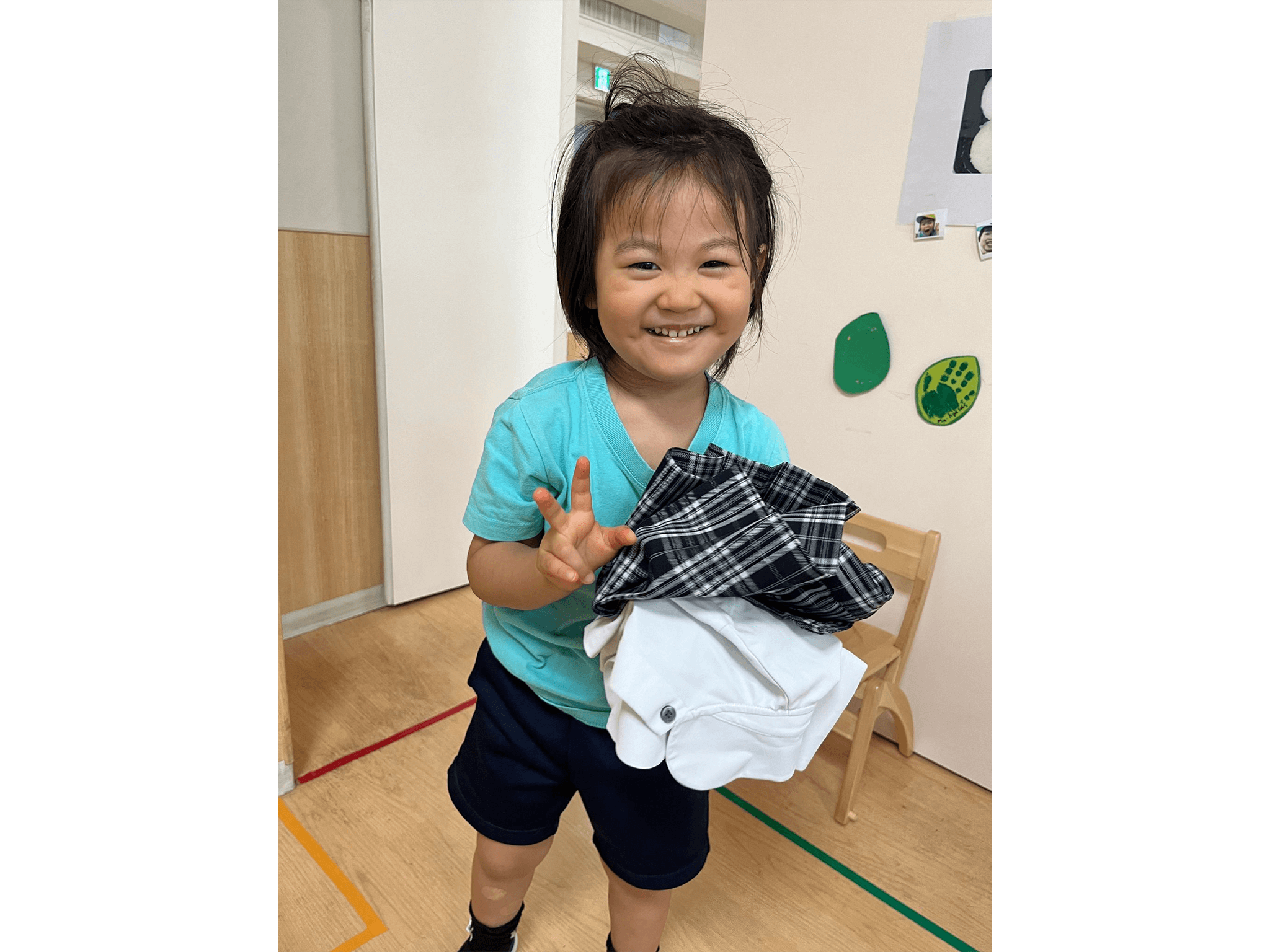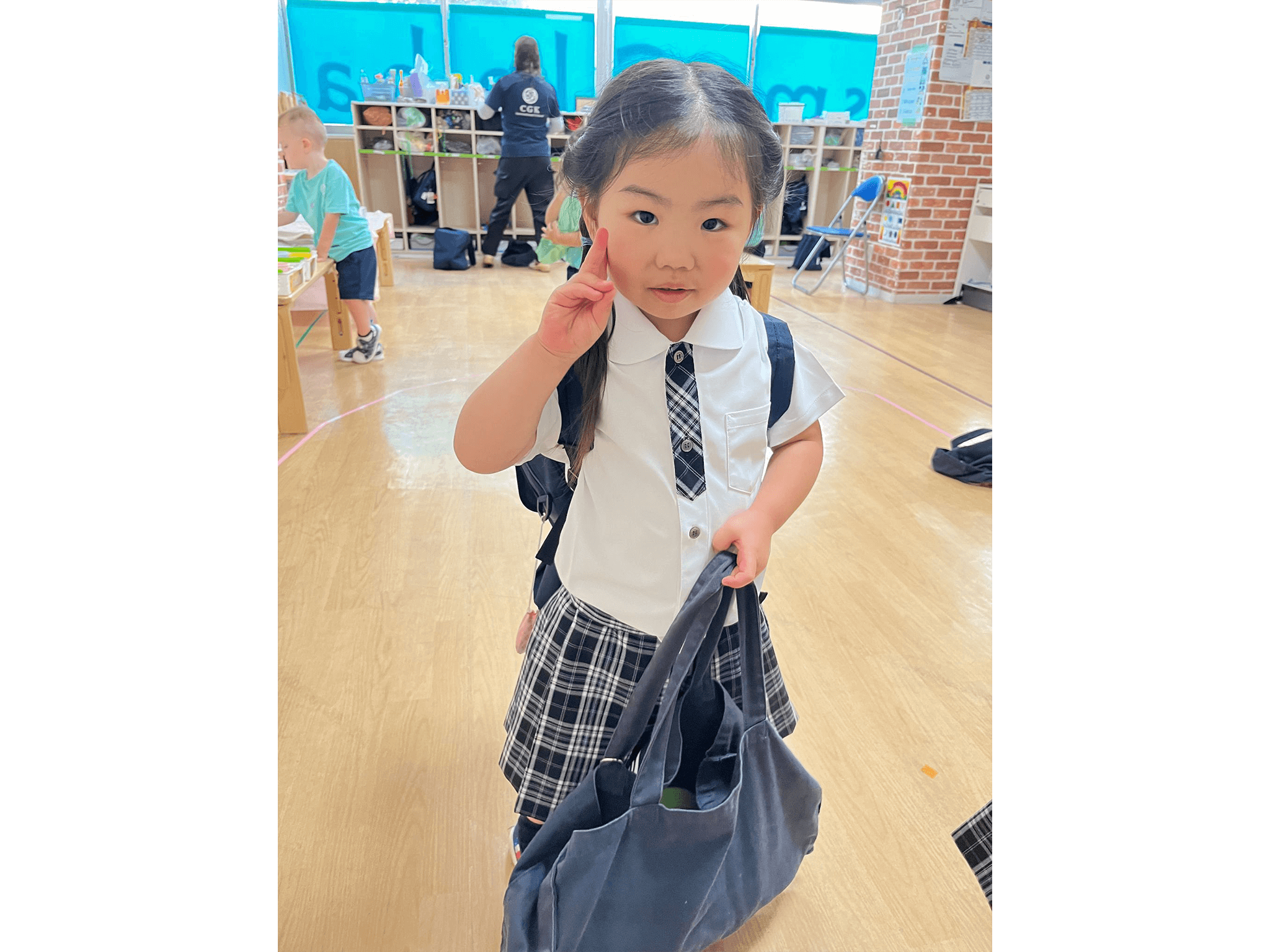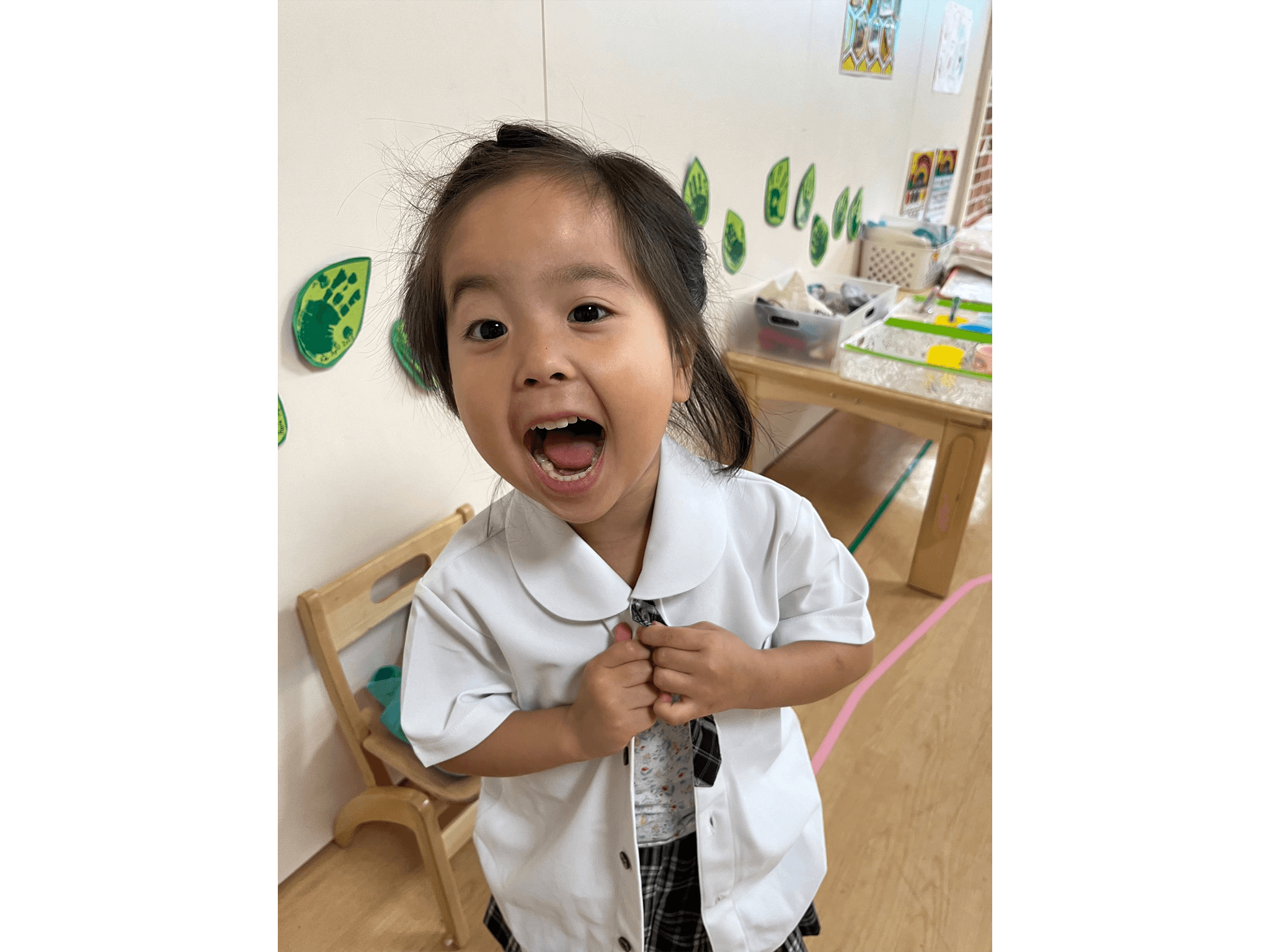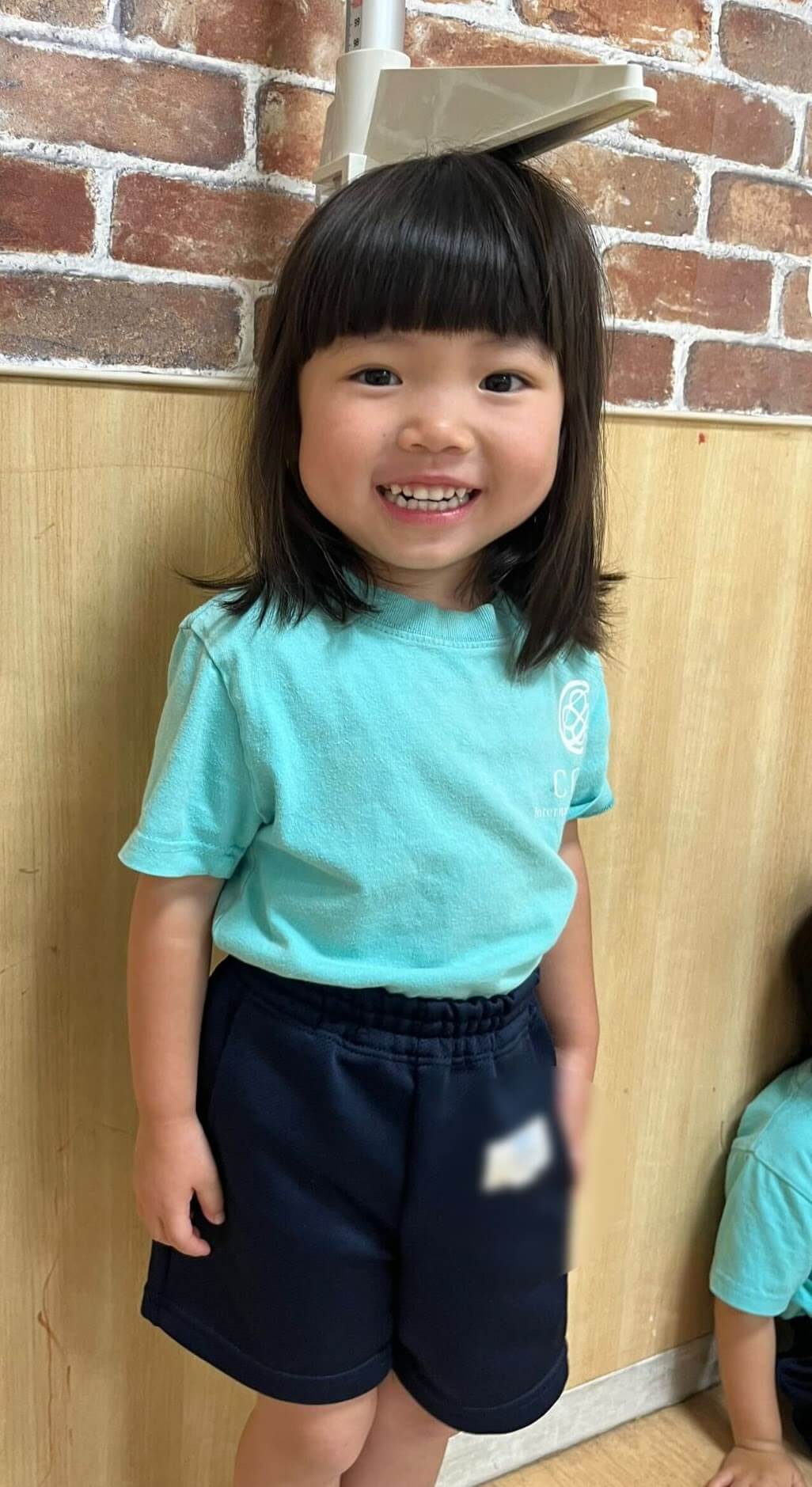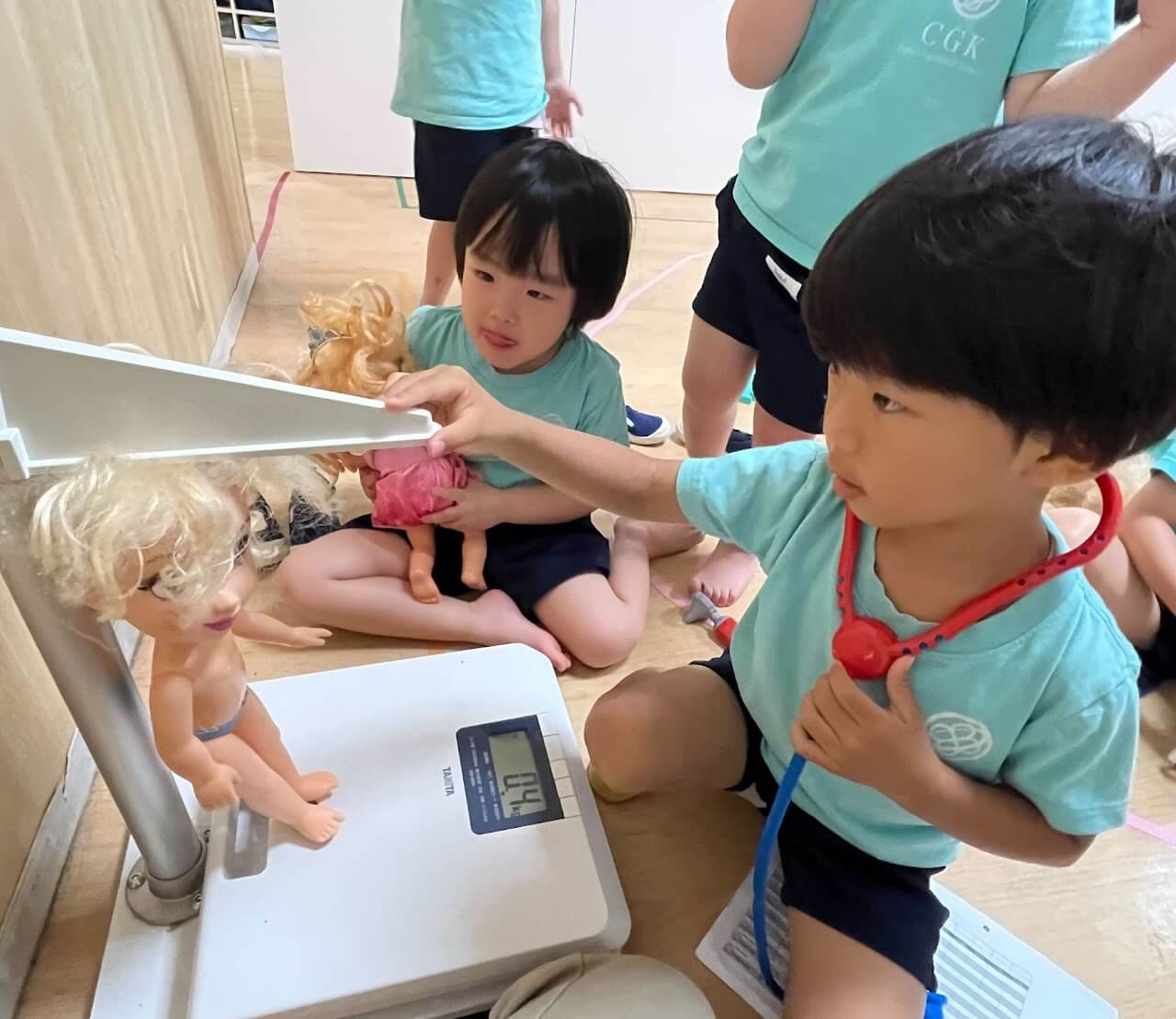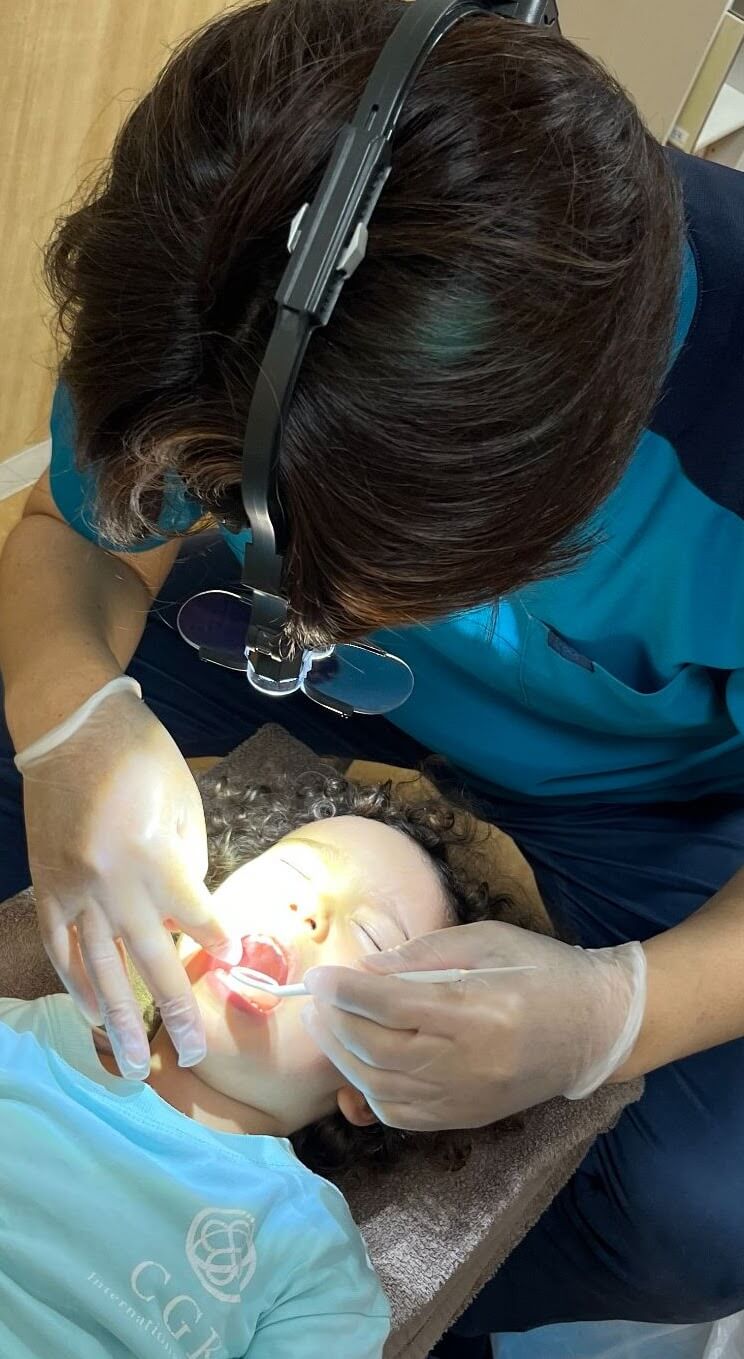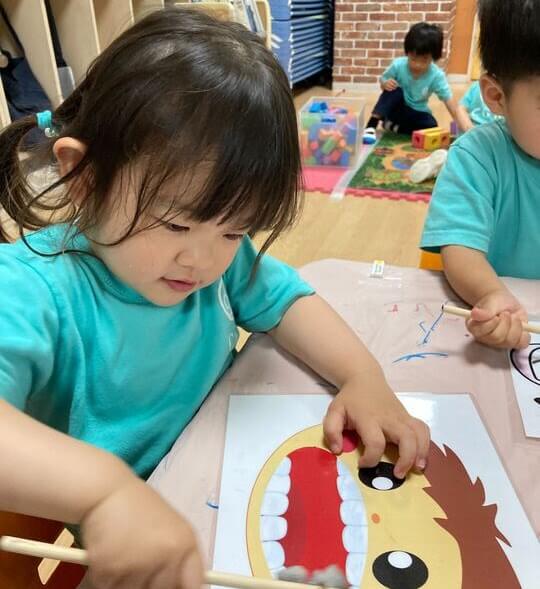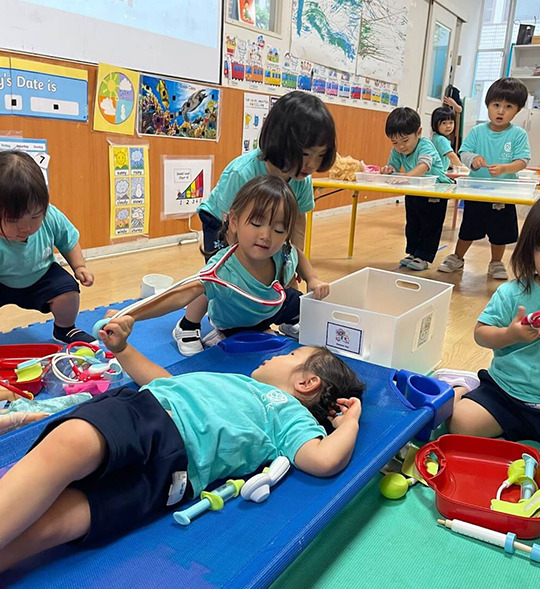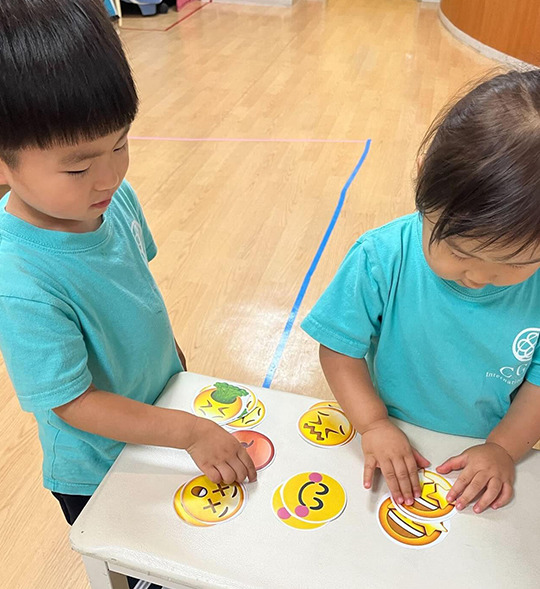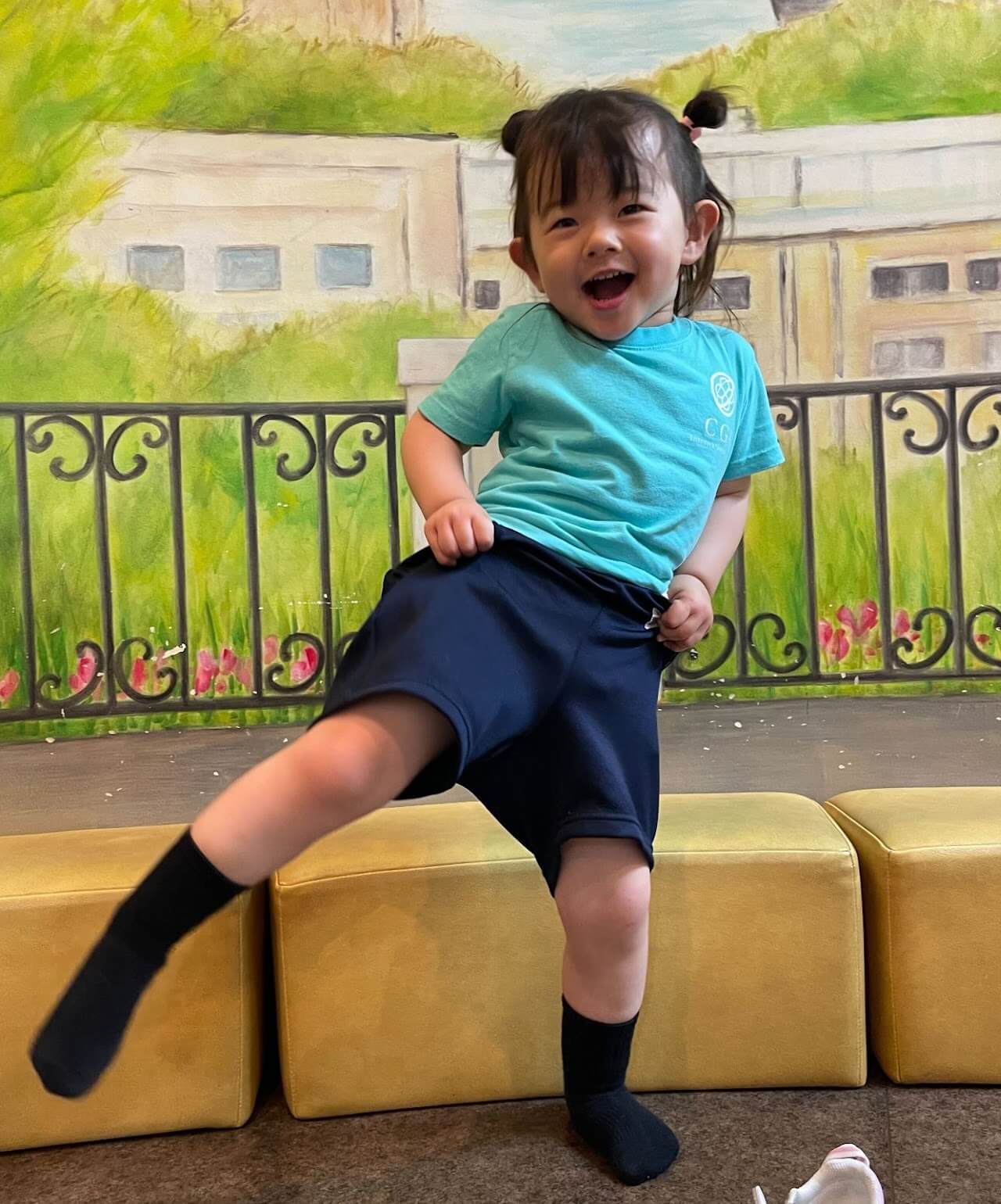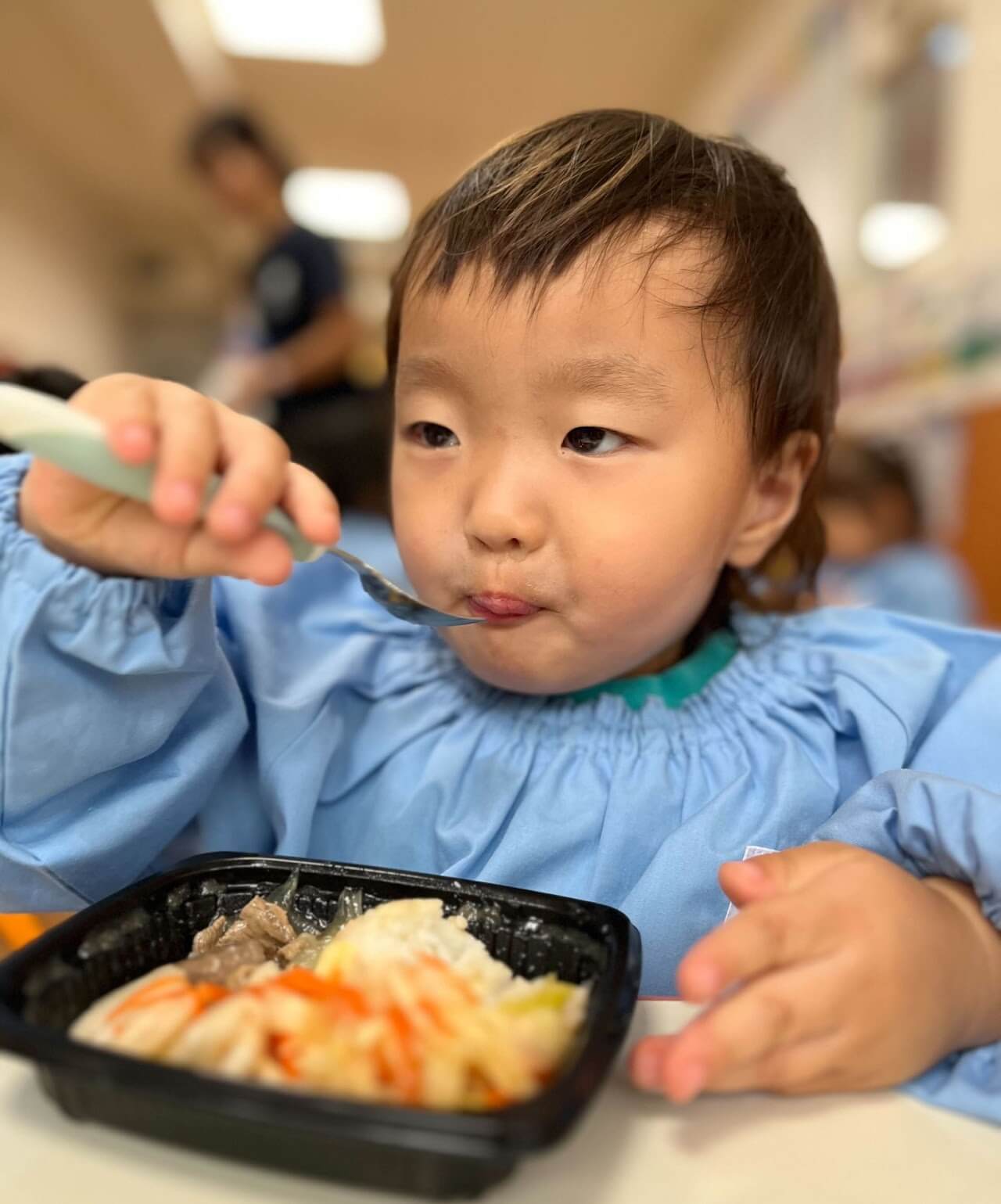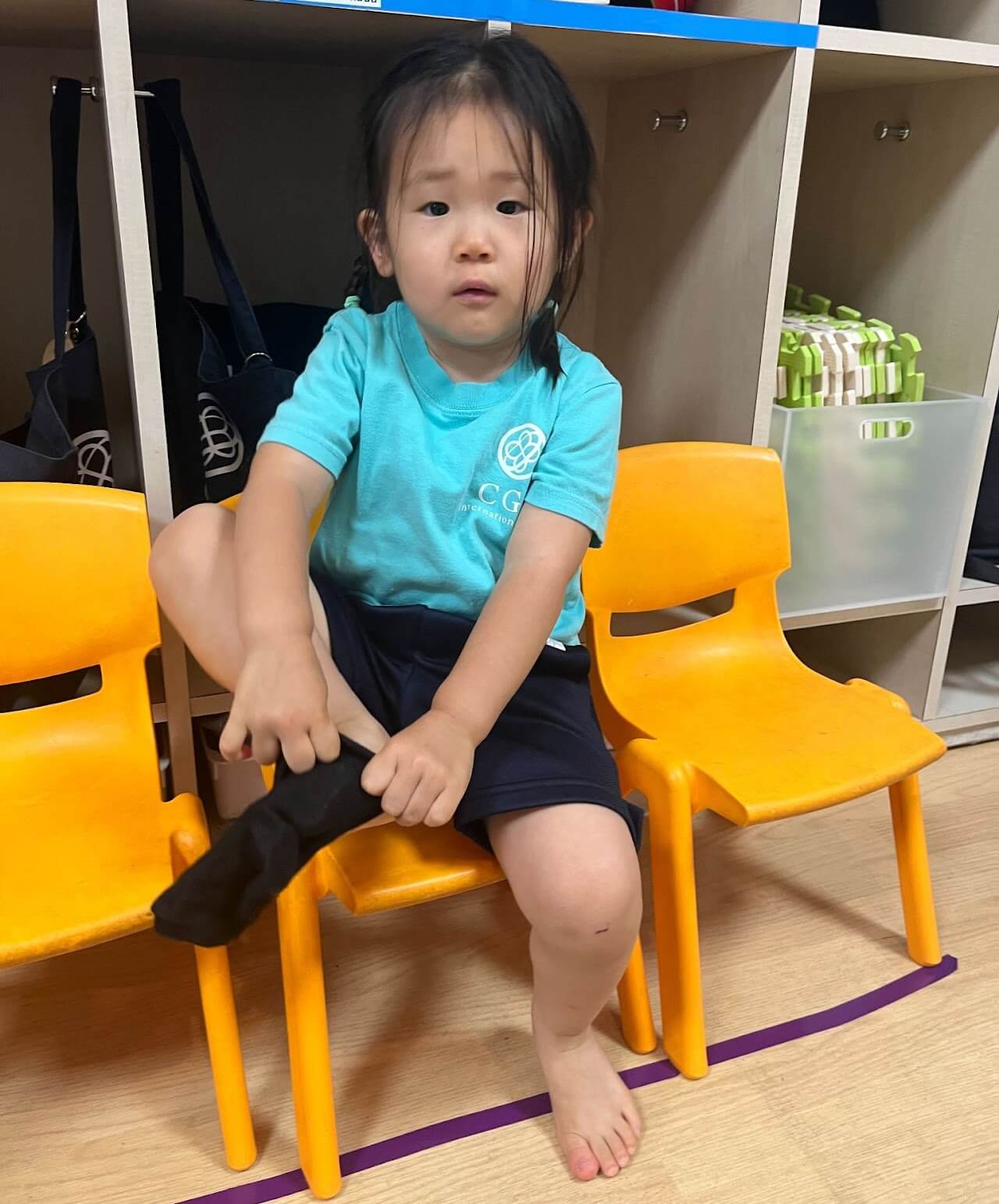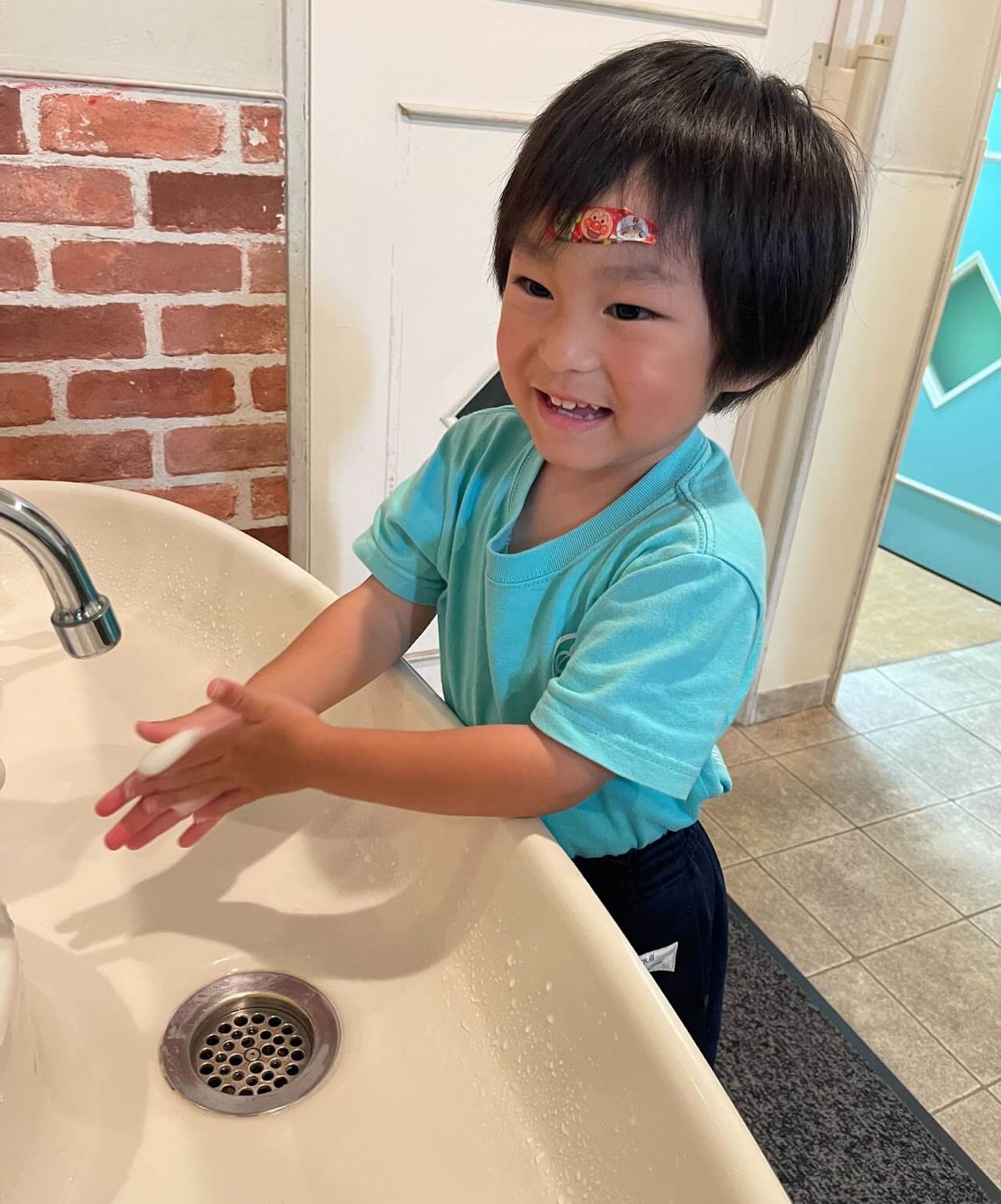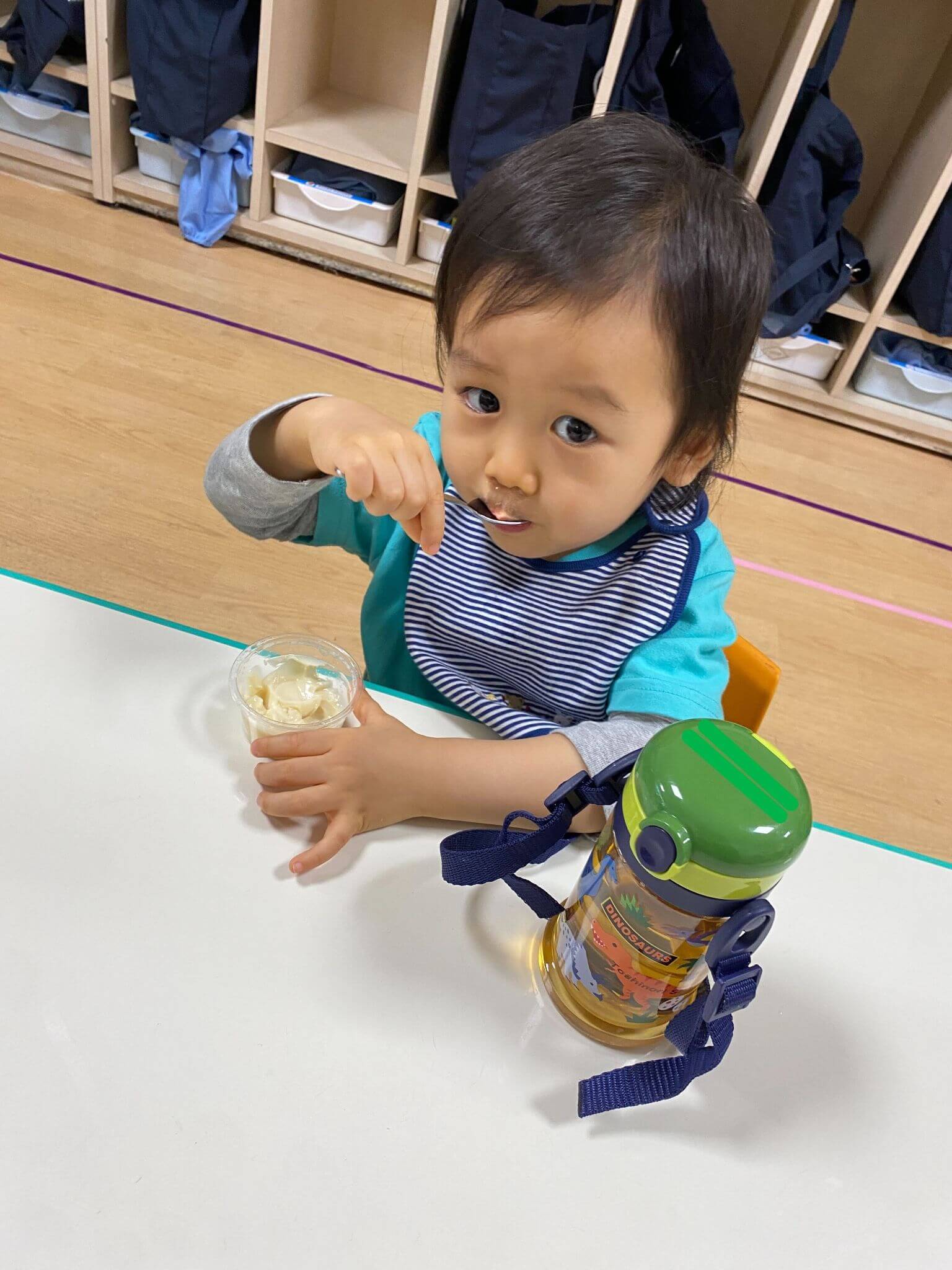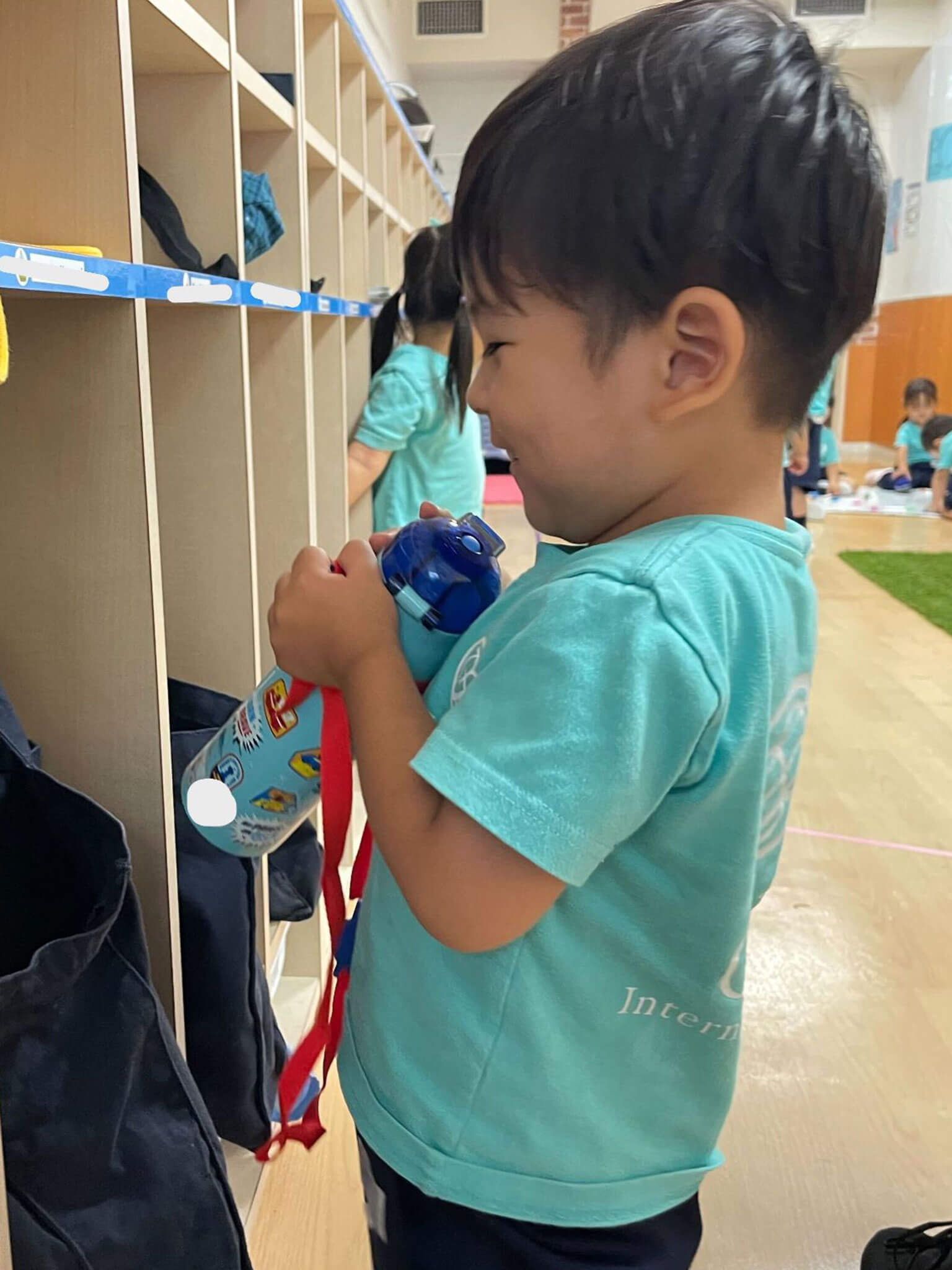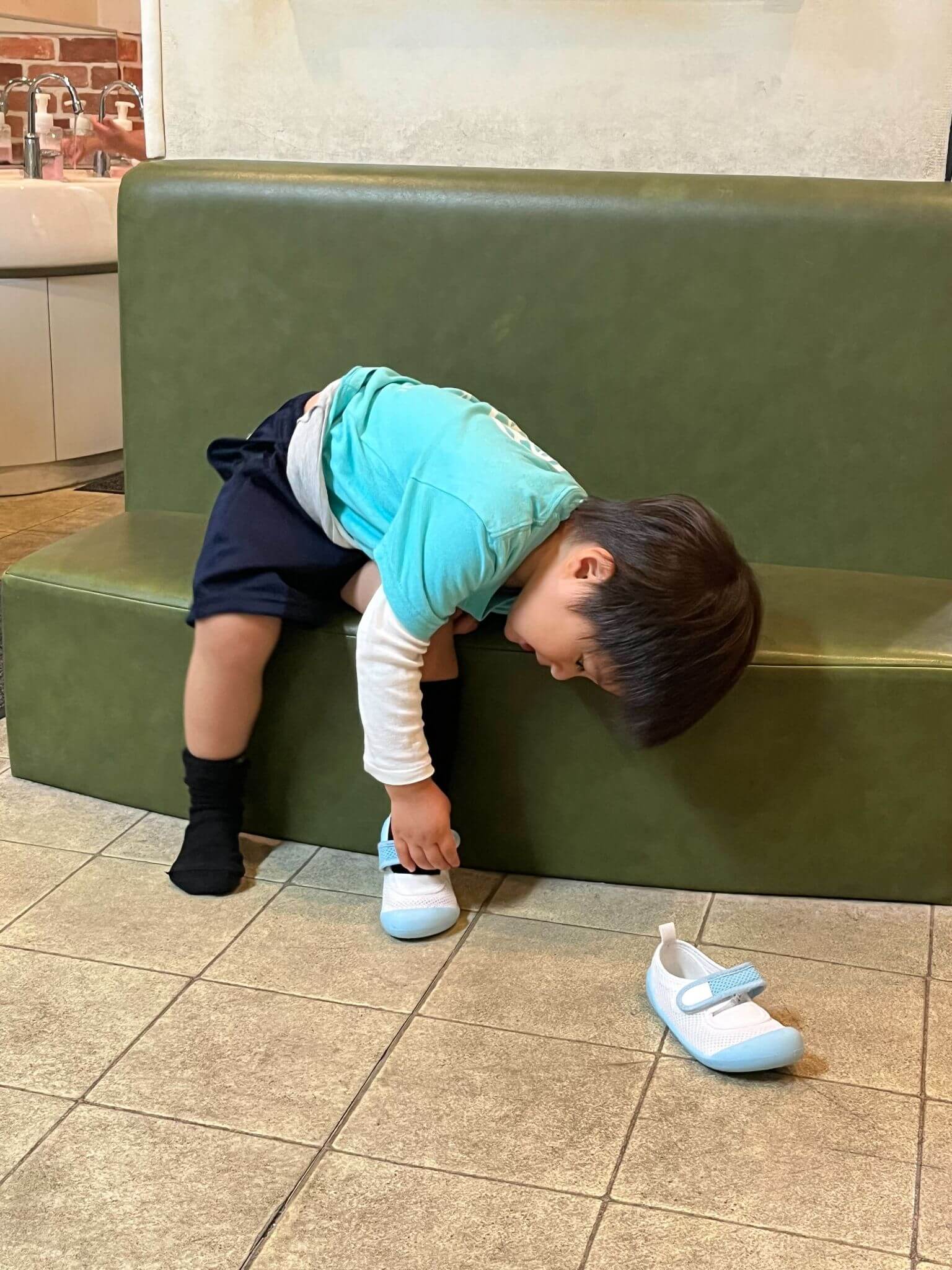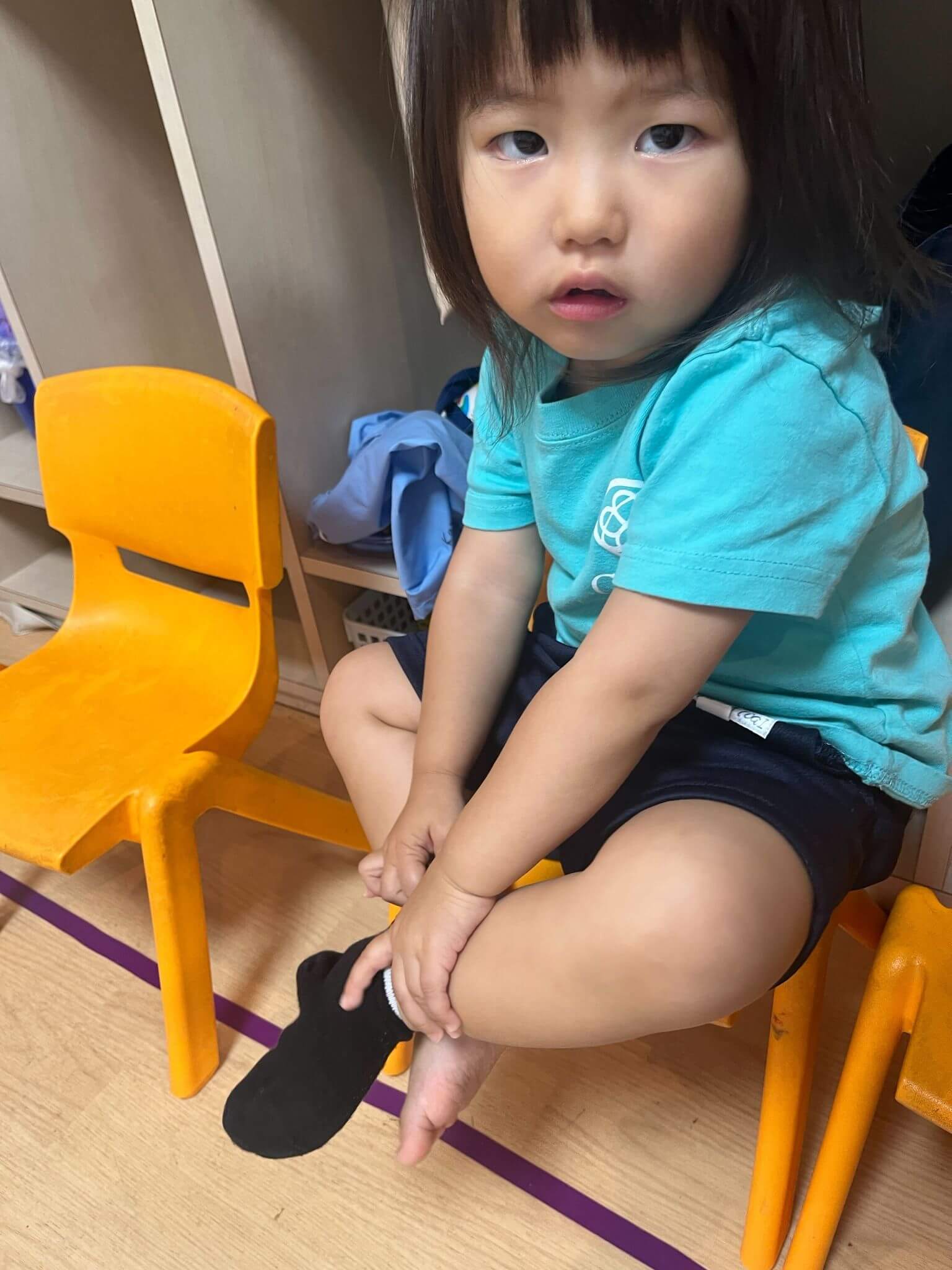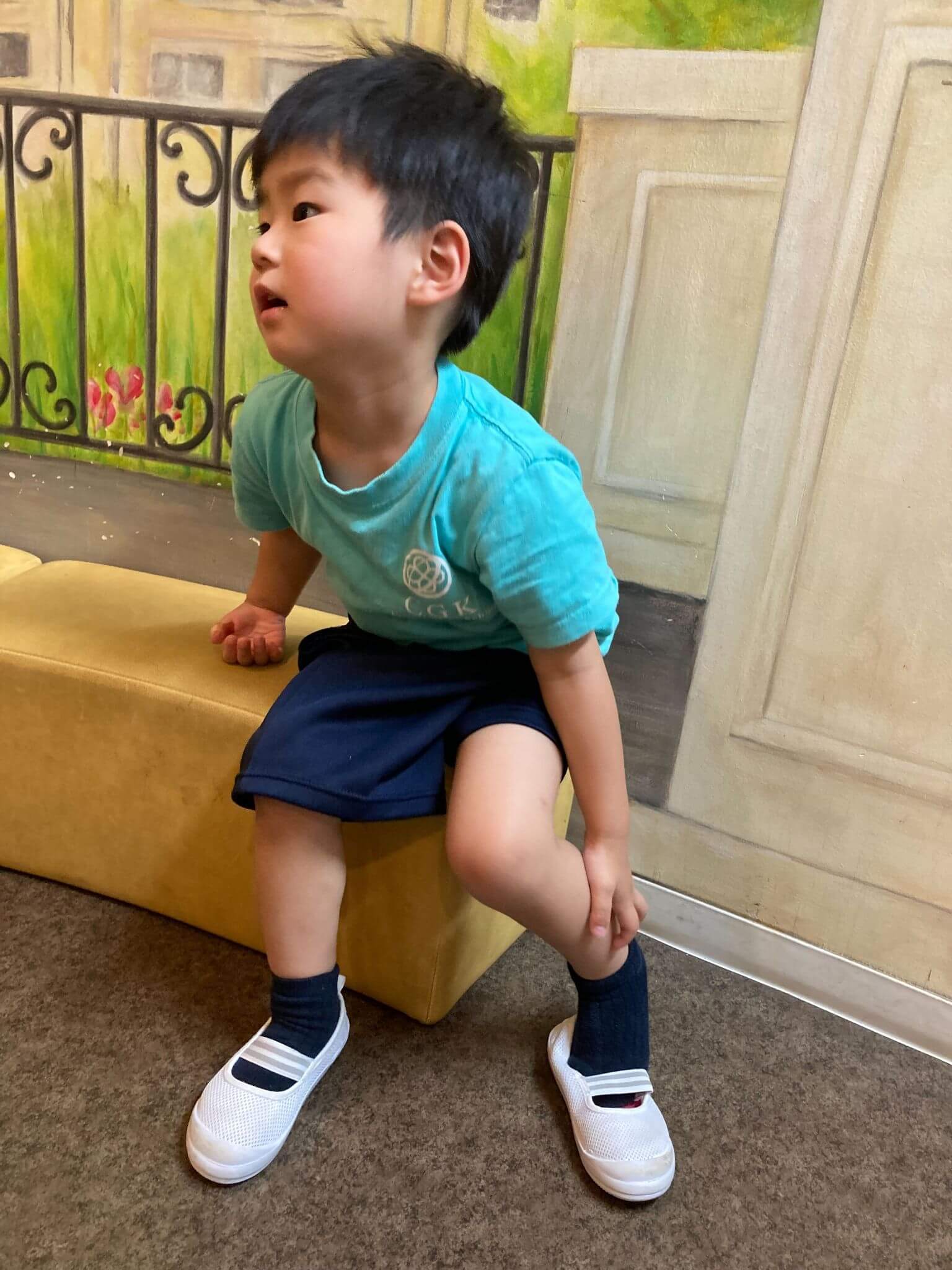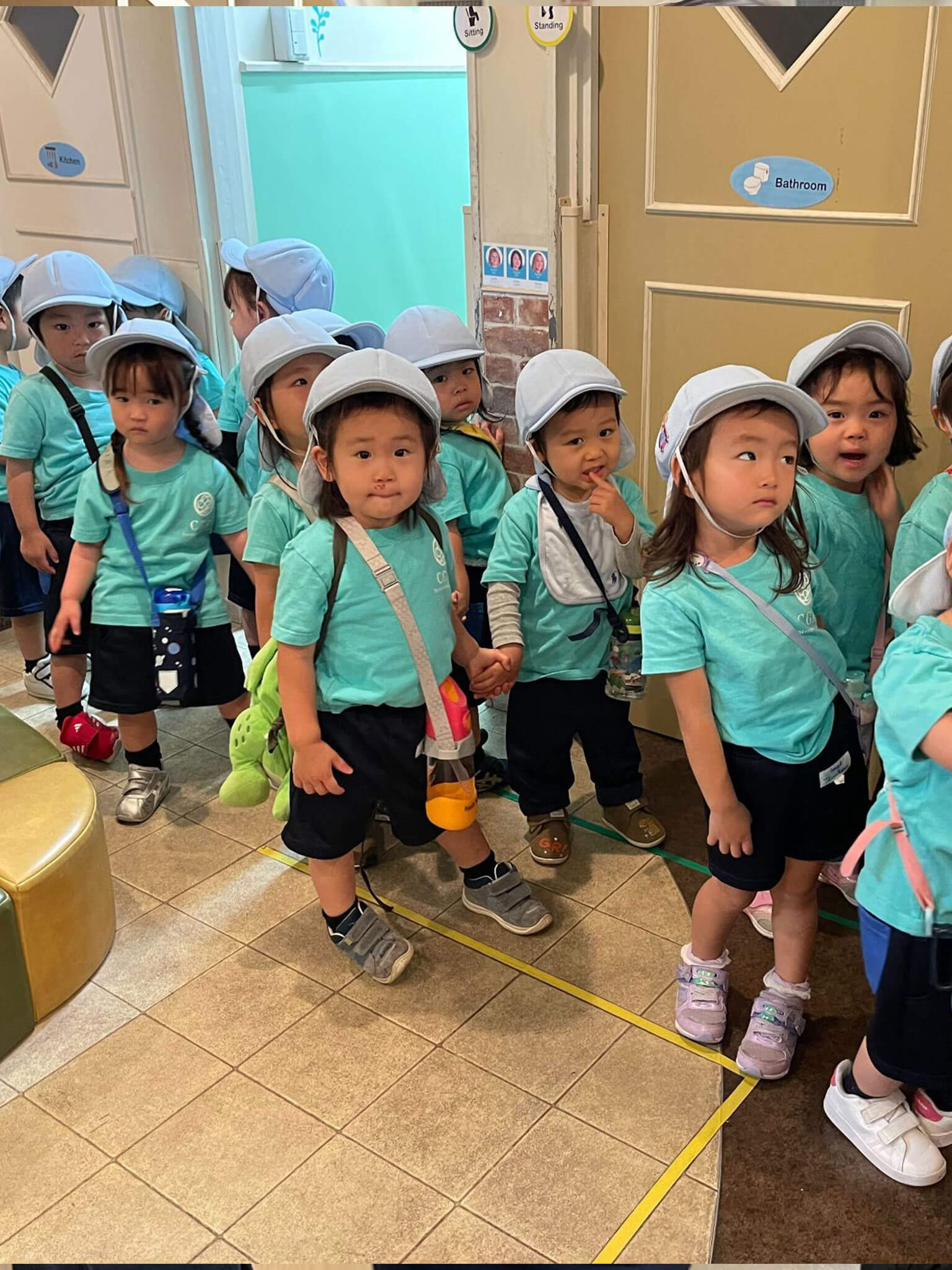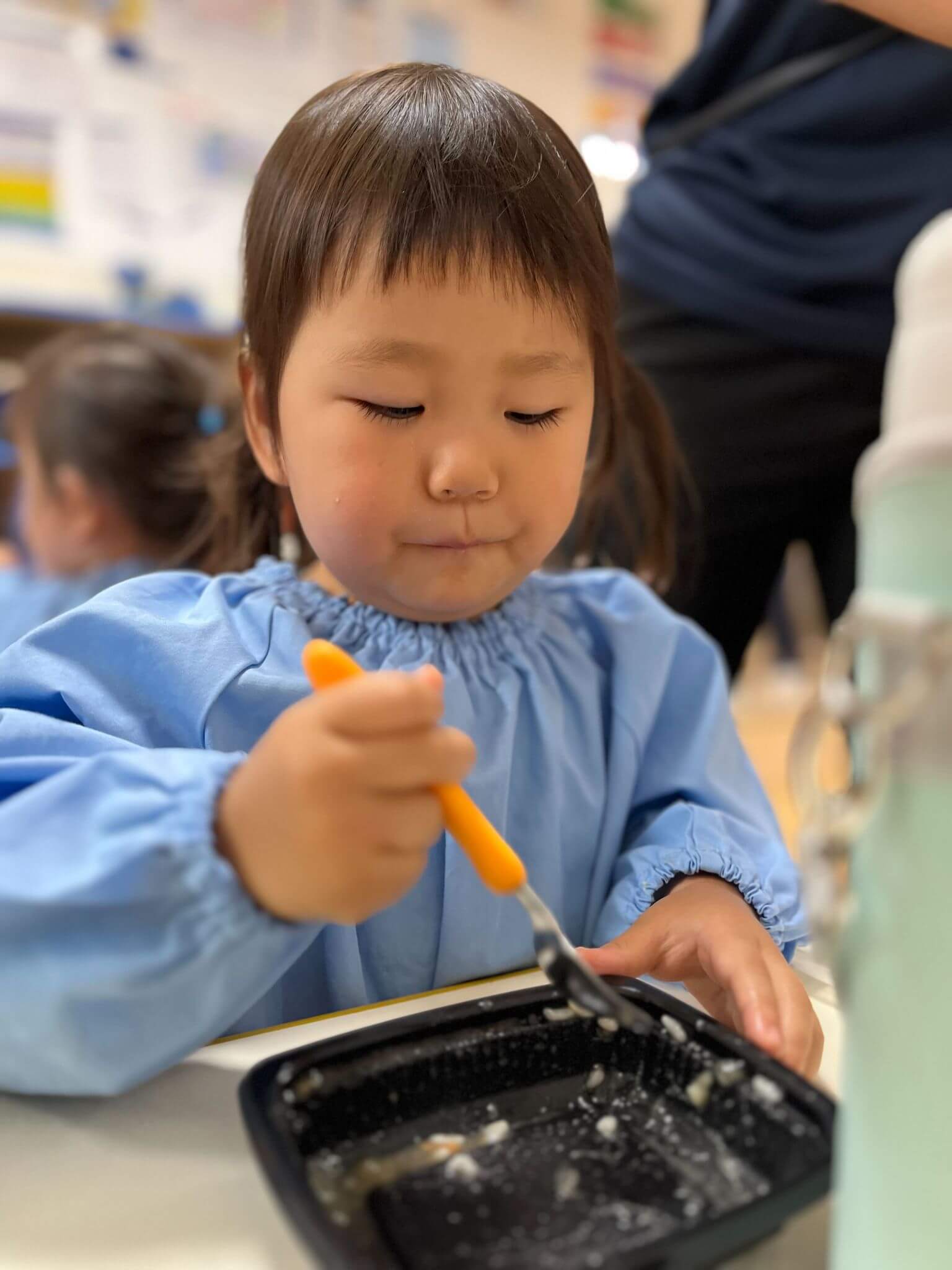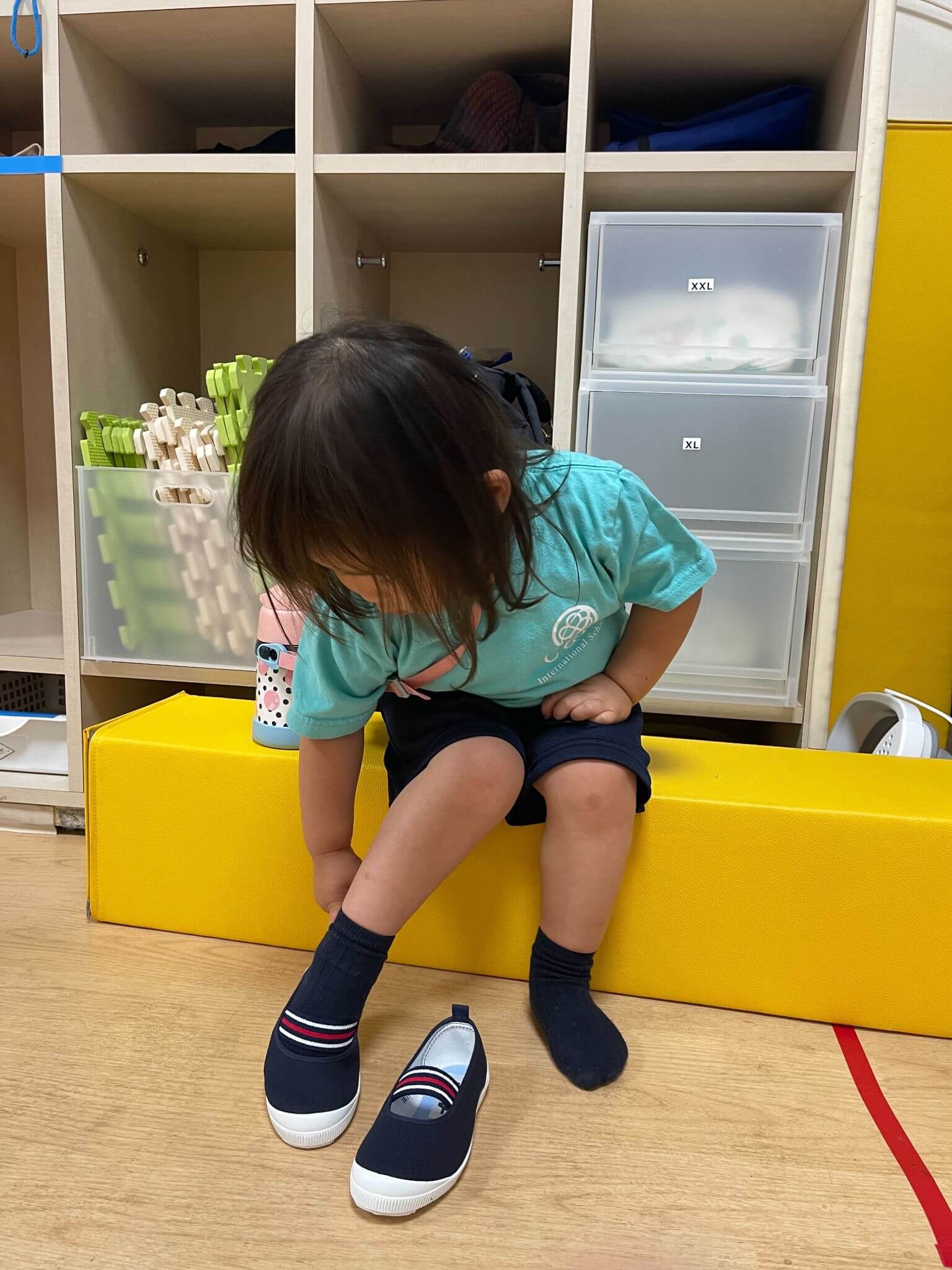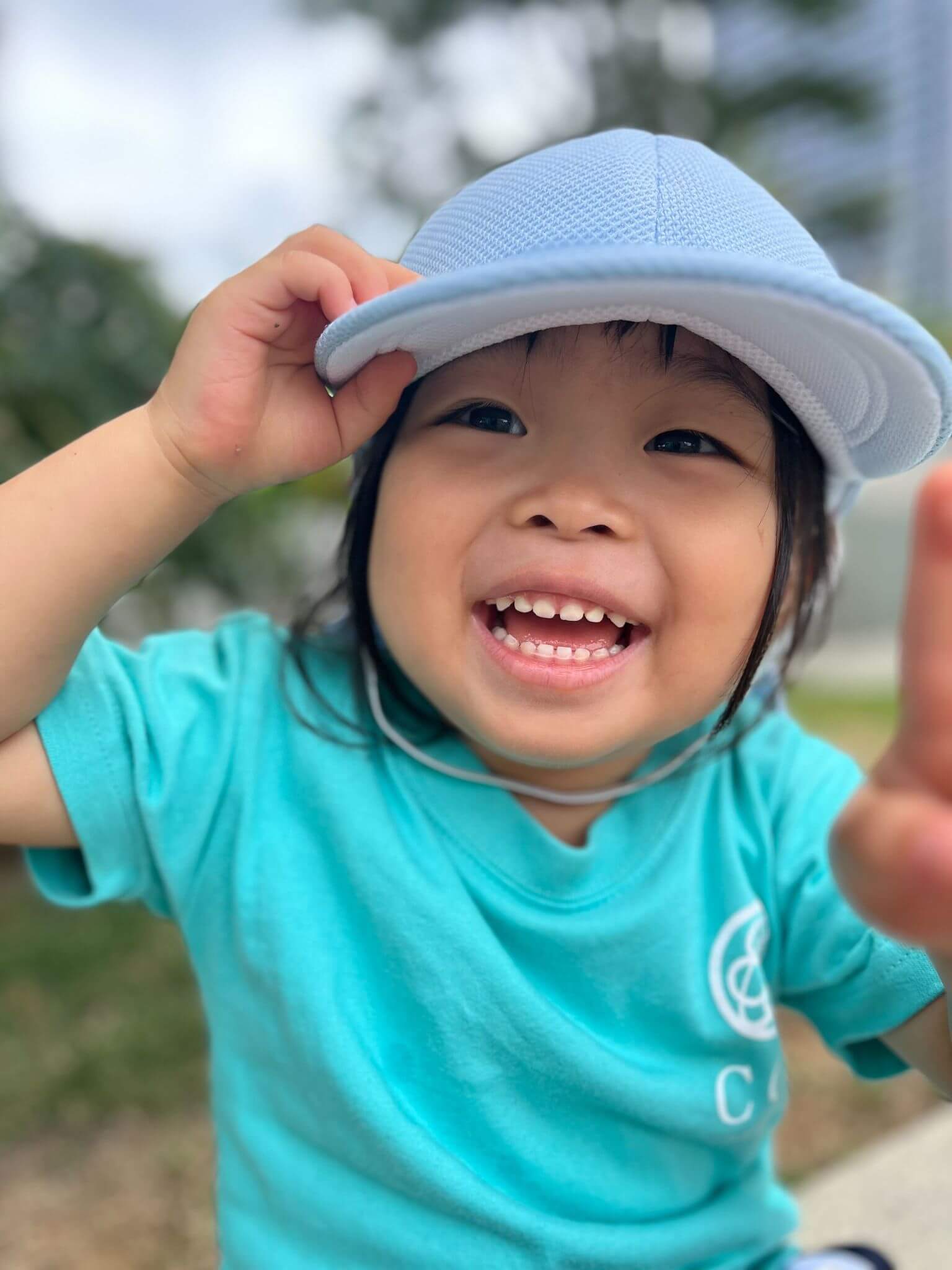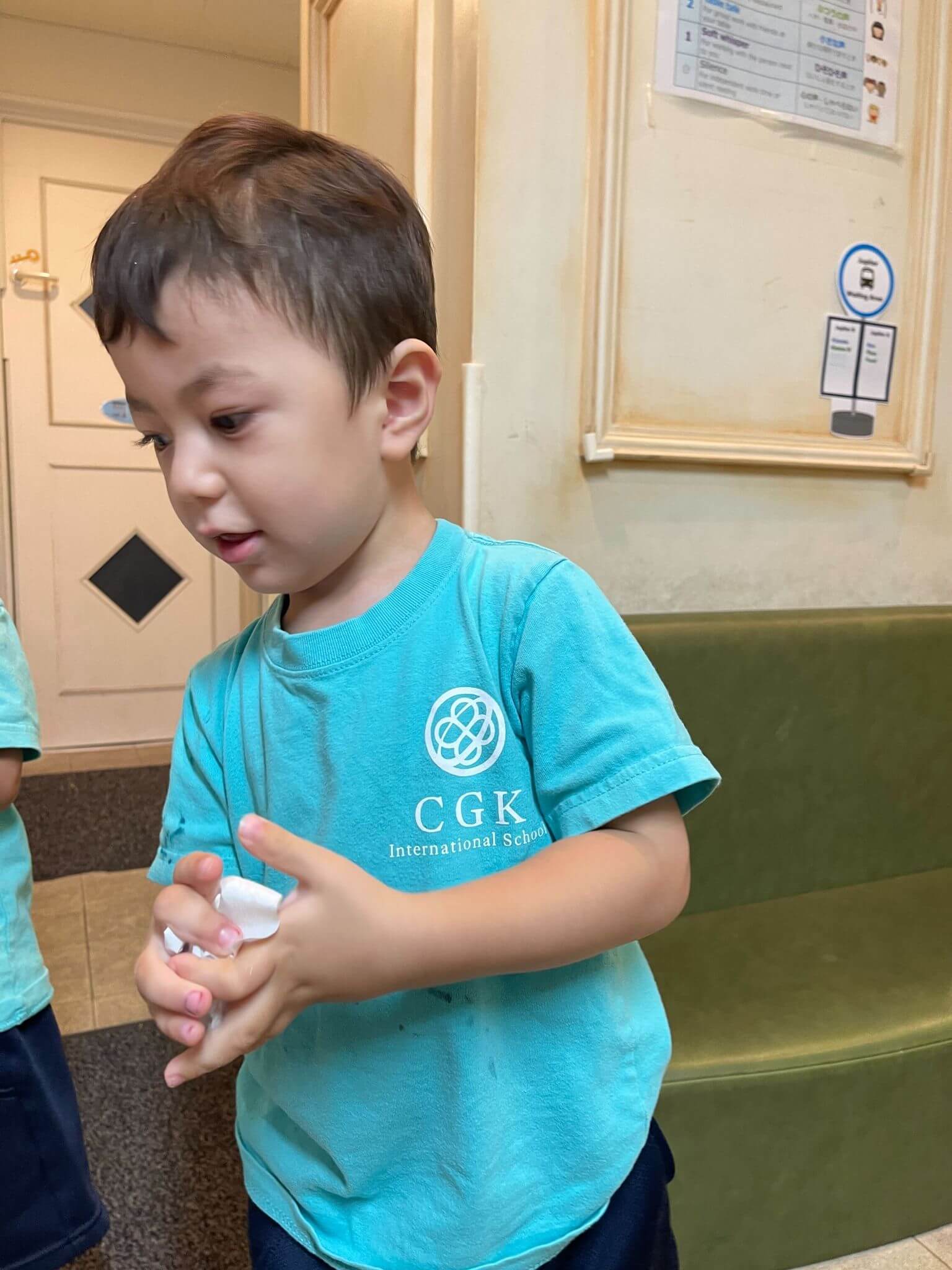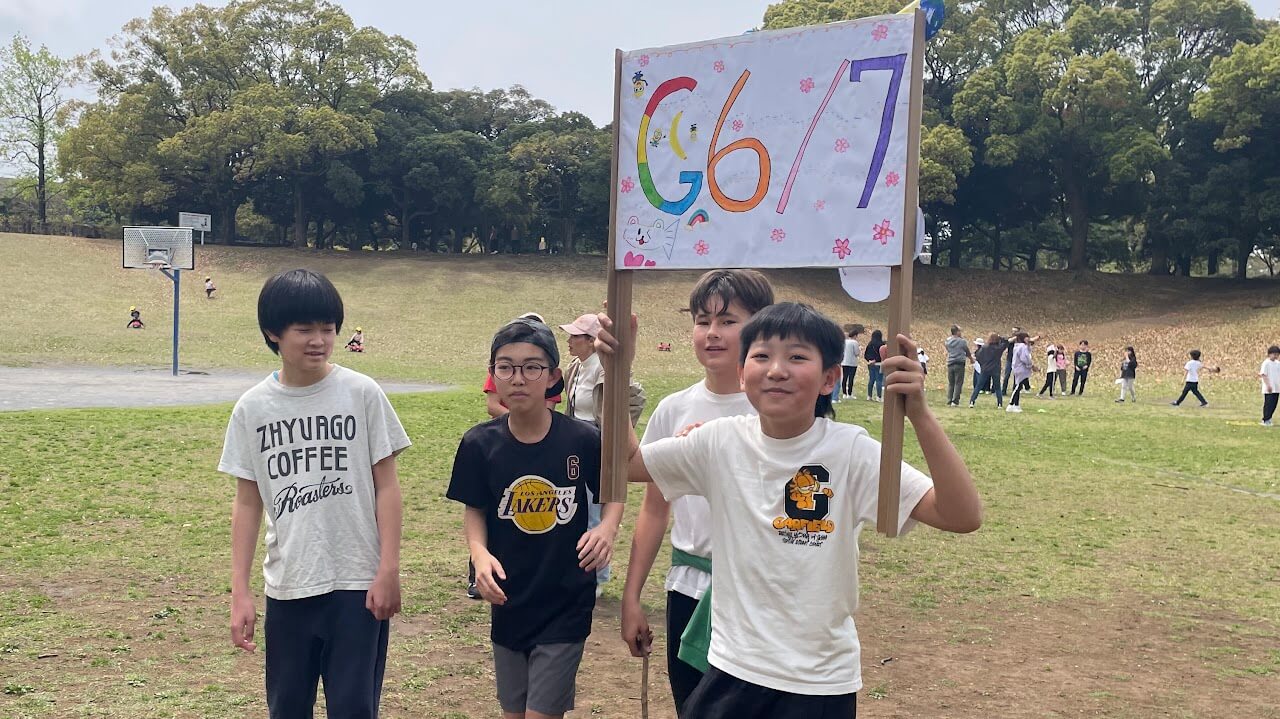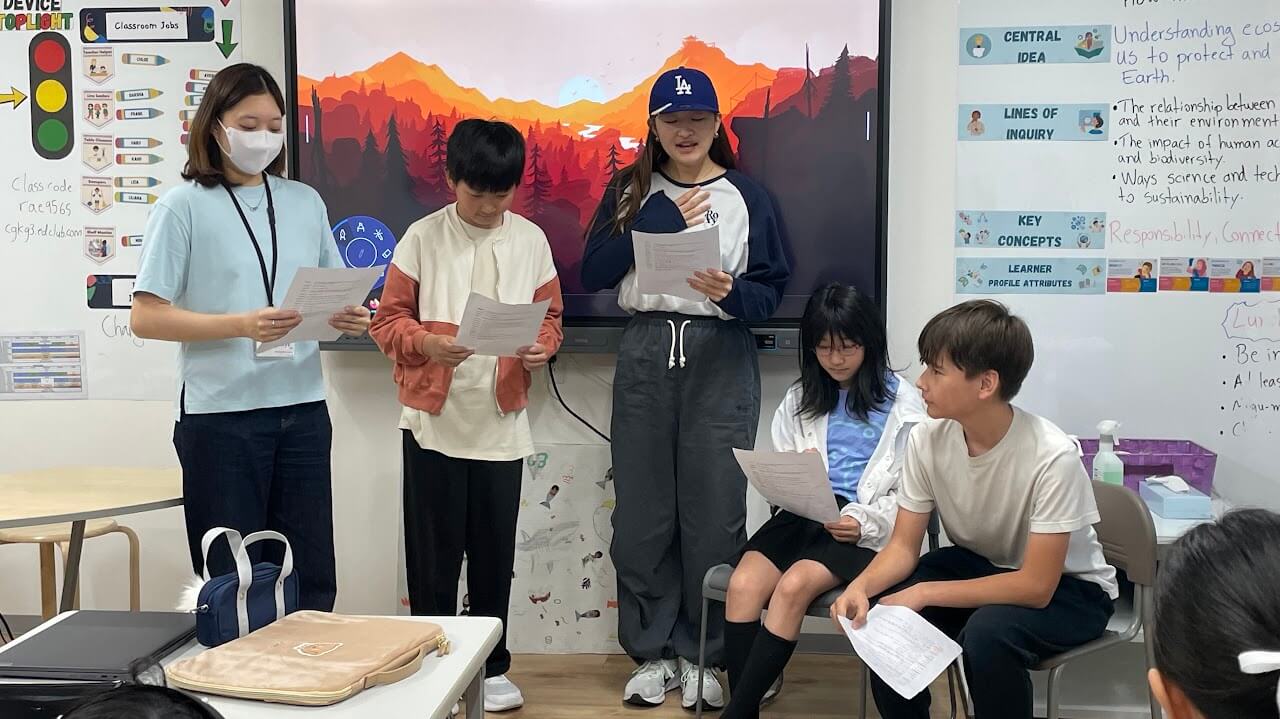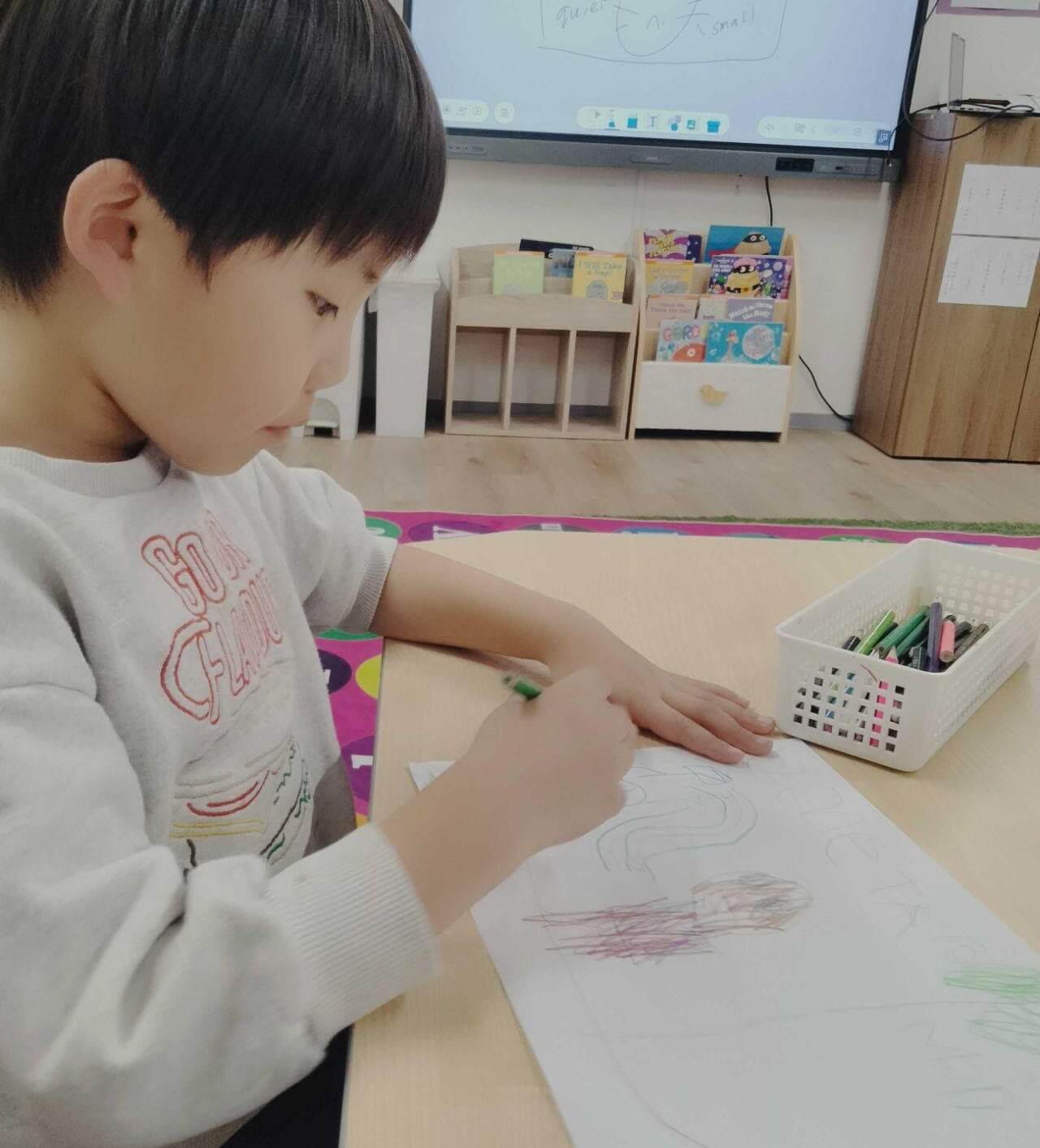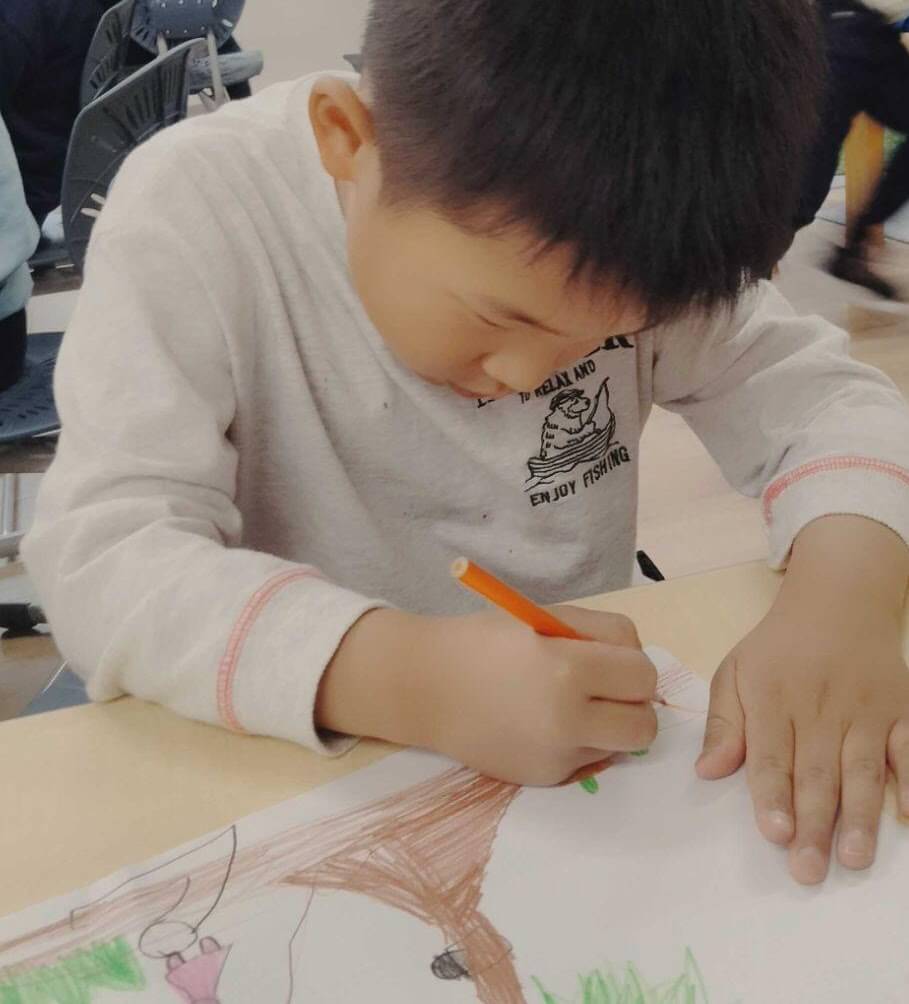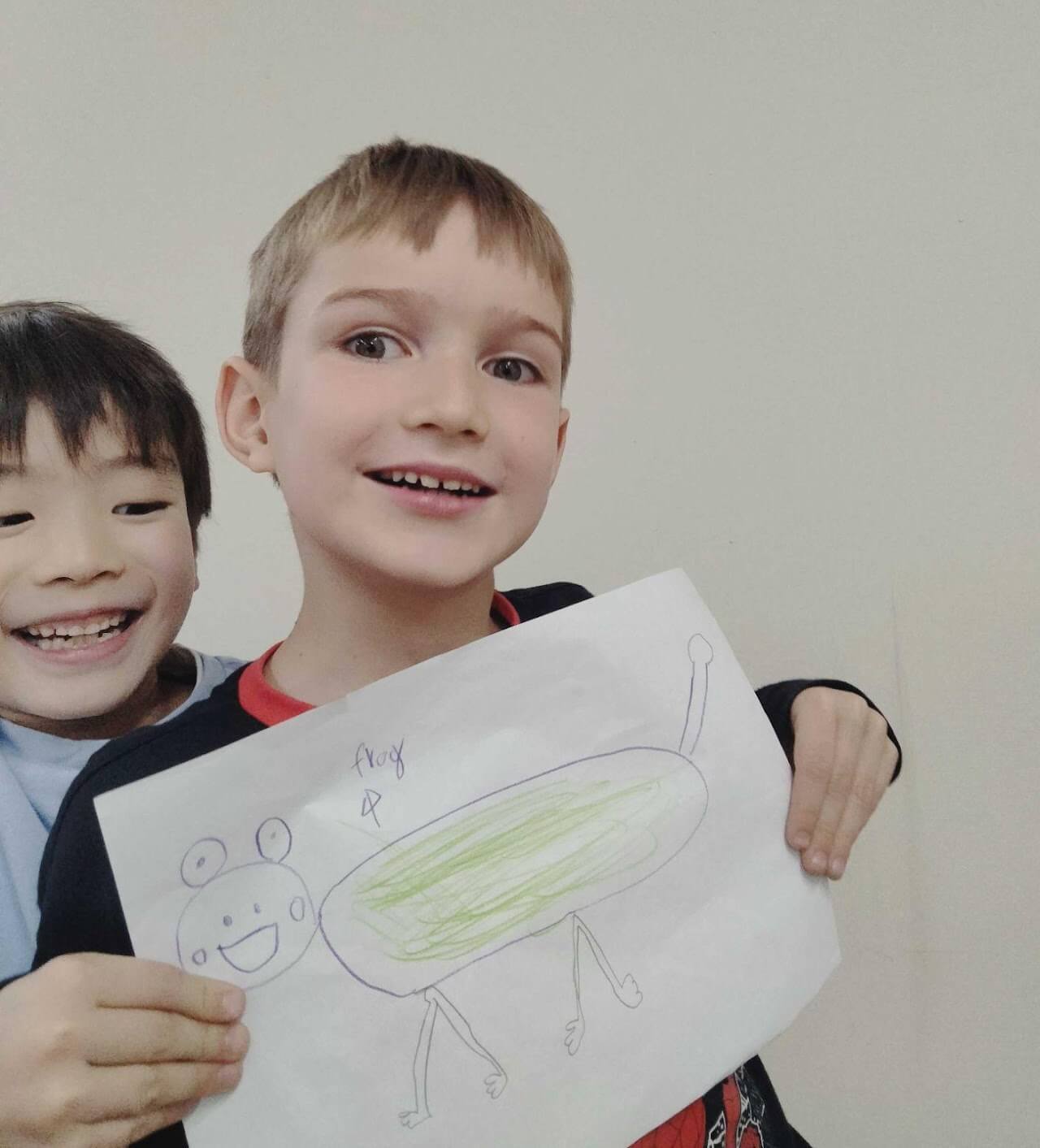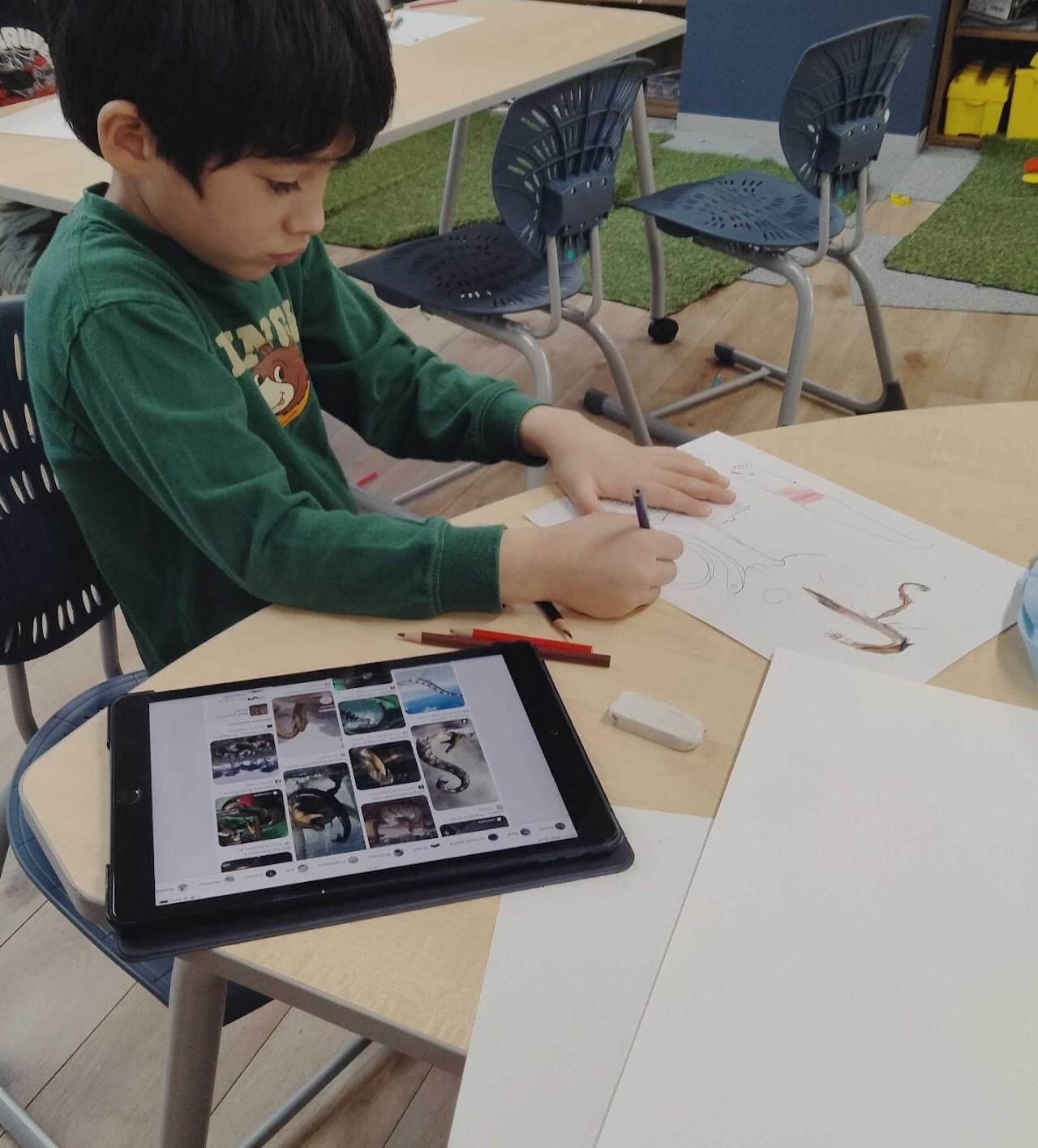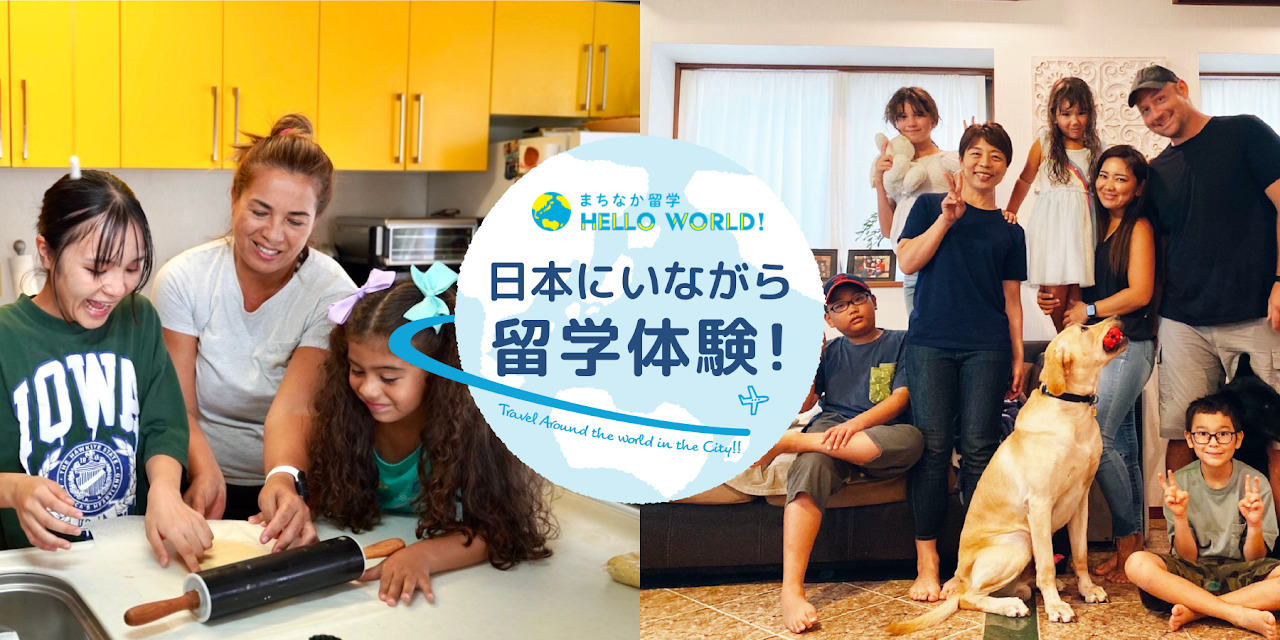CGK Times
A global learning community for discovering
and pursuing your happiness
June 2025
Contents
Preschool
Waiting for the Weather
Thank you to everyone who joined us for the long-awaited Park Day!
It was so special to finally come together outside the classroom and enjoy the day as a community. Park Day isn’t just about having fun (though we certainly did!)—it’s a chance for children to explore, play, communicate and learn in nature.
Spending time outdoors helps children grow in so many ways—socially, emotionally, and physically—and reminds us that some of the most valuable learning happens beyond the walls of our school. We hope it provides a wonderful opportunity for parents to connect with teachers and other families in a relaxed setting. And for us as educators, it’s always a joy to see our students thrive in a different environment and to spend time getting to know our community even better.
Thank you again for being part of this special day. We’re already looking forward to the next one!
CGK Awards
Welcome to the world renowned, highly respected, and much revered CGK Awards! Each month we would like to highlight the children from each class who have displayed qualities that are part of the IB Learner Profile. These are qualities that we want our children to have and to share with the world. With that, the recipients of this month's CGK Achievement Awards are:
Jungle A (3 year-olds)
K. - For being balanced, taking care of herself and her things and eagerly participating in our class activities.
N. - For being a risk taker, choosing to make new friends and take part in class as well as trying new foods at lunchtime .
Jungle B (3 year-olds)
M. - For stepping out of her comfort zone and trying many new foods, dances and new activities.
R. - For asking questions, embracing change and always trying to learn more.
Mountain (4 year-olds)
R. - For working hard on her speaking, and always challenging herself to express herself.
R. - For always asking questions, conducting personal research outside of school, and sharing his knowledge with his friends.
Sky A (5 year-olds)
R. - For always waiting patiently and respecting the views of his friends and those around him.
U. - For trying her best to come up with original ideas and ways to complete activities at school even when they are challenging.
Sky B (5 year-olds)
A. - For being brave and conquering her fear during swimming class.
A. - For being a communicator and beginning to express himself in English.
Sky A&B (5-year-olds)
Perspective Driven Stories
Shifting Our Perspectives to Create Original Stories
As we near the end of our exploration of How We Express Ourselves, we are beginning to weave together the different strands of our inquiry in preparation for our final summative assessment.
Throughout the unit, Sky A students have been engaged in exploring various modalities of artistic expression, particularly those rooted in traditional and cultural art forms from around the world. Students have studied Aboriginal Dot Art from Australia, Alebrijes from Mexico, Capoeira from Brazil, Abstract Art from Russia, and many more forms of artistic expression.
After examining these art forms, reflecting on their cultural significance, and forming our own interpretations, we shifted our focus to storytelling. Stories live within all of us—our personal narratives shape our identities and, by extension, our expressions. Sky A students have been expressing their individuality through the exploration of story elements. Piece by piece, we’ve deconstructed the components that make up a story and provided opportunities for students to create each element themselves, using a block-building approach to storytelling—with a twist.
Rather than leaving our inquiry into global artistic expressions behind, we used it as a creative catalyst to inspire and shape the elements of the students’ original stories. In the spirit of IB learning, which emphasizes meaningful connections between subjects and the world, we embraced the our specified concept of Connection. We encouraged students to link their stories to the artistic expressions we studied, creating a richer and more holistic learning experience.
To tie everything together, we invited students to incorporate the artistic styles they explored into the individual elements of their stories—whether through Alebrijes-inspired characters, settings illustrated in abstract art styles, or shadowy settings influenced by Japanese and Chinese ink paintings. These connections not only sparked our students’ creativity but also fostered deeper engagement across the different lines of inquiry.
And we’re not stopping there! Soon, we’ll be encouraging students to retell their stories through performative art forms we’ve explored—so stay tuned!
Learning Through Stories and Reflections
The month has been flying by, and Sky B class has been continuing their exploration of our Unit of Inquiry, How We Express Ourselves. With our central idea, “People express their perspectives through many different mediums,” Sky B students have been diving deeper into how stories are created and shared.
We have been reflecting on the key elements that make up a story—character, setting, plot (including problem and solution), title, author, and illustrator. Through engaging activities, discussion, and creative tasks, the students have begun crafting stories while developing a better understanding of the parts that bring a story to life.
As part of our learning, we’ve been exploring our Lines of Inquiry: creative arts, international perspective, and stories. To deepen our understanding of storytelling and how stories are shared with the world, Sky B had the exciting opportunity to visit the Yokohama City Central Library.
In the lead-up to our trip, the students posed thoughtful questions such as:
- “Why do people go to the library?”
- “Why does everyone need to be quiet?”
- “Why do we have libraries?”
During our visit, the students were full of curiosity and wonder as they explored the shelves and flipped through books of all kinds—picture books, storybooks, books in different languages, and books about animals, nature, and more. The experience helped connect their learning to the real world and allowed them to see how stories are collected, shared, and preserved.
After returning to class, we reflected on our questions through discussion and shared our thoughts about the experience. Sky B Class also drew a picture and wrote about what they enjoyed the most during our library trip. These reflections were gathered into a class reflection book—a special project that documents our learning and allows us to share our experience with families and friends.
Sky B students were proud to create a book together, showing how stories can be told not just through words, but through pictures, ideas, and personal experiences. We look forward to continuing our journey as storytellers and creators—sharing our voices with the world, one story at a time.
Learning About Differences Expands Our World
This month in Sky class, we had a special learning opportunity to reflect on diversity and LGBTQ+.
Our children have already been engaging in lessons about “different perspectives” and “differences,” but this time, it became an especially meaningful experience as we welcomed a special guest: Jun, a transgender artist who also works as a nursery teacher. Meeting and interacting with an adult who has lived through diverse experiences gave the children a valuable chance to deepen their understanding.
During the talk, Jun posed the question: “What does it mean when someone is different from you?” As the children thought about this, they reflected on their own values and expanded their perspectives.
The children were full of curiosity, asking sincere and straightforward questions such as:
- “What does it feel like when your heart and your body are different?”
- “Was it hard to change from being a girl to being a boy?”
- “What did your family and friends say?”
Some children also expressed supportive thoughts like:
- “I want to cheer for everyone! How can I do that?”
- “The rainbow flag is a symbol that helps everyone feel safe, right?”
It was clear that they are developing the ability to put themselves in someone else’s shoes and think with empathy.
On another day, while recalling the picture book RED, which we had read together, one child shared:
“It’s the story about the blue crayon that was labeled ‘Red.’ It was painful for the crayon because everyone kept saying, ‘You’re red,’ even though it wasn’t.”
Other classmates nodded in agreement, and this moment inspired them to think about the importance of being true to oneself, as well as the struggles of not being understood by others.
These experiences connect directly to the Sustainable Development Goals (SDGs), such as “Achieve gender equality” and “Reduce inequalities within and among countries.”
“Differences” are not mistakes—they are individuality. Noticing these differences from an early age, learning to acknowledge and accept them, and showing kindness toward others are essential skills for the children who will be shaping the future of our society.
At CGK, we will continue to nurture hearts that value both oneself and others by providing opportunities to encounter diverse perspectives through our daily care and curriculum.
Ms. Maya
Mountain
(4-year-olds)
Active Bodies, Active Minds
As rainy season began early, followed by hot summer day, it can be a challenge to stay healthy. In Mountain class, we make multiple opportunities for students to move their bodies through outdoor play, swimming, and our P.E. classes!
Physical Education (P.E.) in preschool plays a vital role in supporting the holistic development of young children. At this age, movement is one of the most natural and effective ways for children to explore their environment and build essential motor skills. Through guided physical activities, preschoolers improve their balance, coordination, and spatial awareness, which are all foundational skills for lifelong physical health and academic learning. Regular movement also helps children manage their energy, develop healthy routines, and build confidence in their bodies.
P.E. classes also offer important opportunities for social-emotional growth. In our lessons, we place a strong emphasis on playing together as a team. This means learning to take turns, follow group rules, encouraging one another, and celebrating both individual and shared achievements. These early experiences in teamwork lay the groundwork for life skills such as empathy, cooperation, and effective communication.
As we wrapped up our last Unit of Inquiry, Who We Are, P.E. class provides practice for Mountain students to continue to use the strategies we learned on managing our emotions like excitement, frustration, or disappointment in a safe and supportive space. By engaging in team-based games and cooperative challenges, they begin to understand the value of effort, resilience, and positive attitude. Our goal is to ensure that P.E. is not only fun and active but also a space where children learn how to be kind teammates, listen to others, and feel a sense of belonging within a group.
Children’s Learning Through Connections With Living Things
In June, we began our new Unit of Inquiry (UOI), “Sharing the Planet (この地球を共有するということ)”.
In Mountain class, the children are currently exploring animals, plants, and the habitats where they live. Throughout this past month, they have been deepening their understanding by considering questions such as: “What kinds of living things live in different places?” “Why do they live there?” “How are plants and animals different?” and “What are the unique features and roles of each?”
During our activities, the children have also been asking their own unique and curious questions:
- “Why can animals eat fish bones?”
- “Flowers and trees are plants, but since tomatoes are food, aren’t they something different—like a meal?”
- “How do fluffy baby penguin feathers turn into shiny black feathers?”
Every day, our classroom is filled with these eager voices of curiosity.
Moving forward, we will continue to learn—while valuing each child’s “Why?”—about how the many living things that share our planet are connected to one another, and what role we as humans play within this larger web of life.
Jungle A
(3-year-olds)
Risky Business!
-


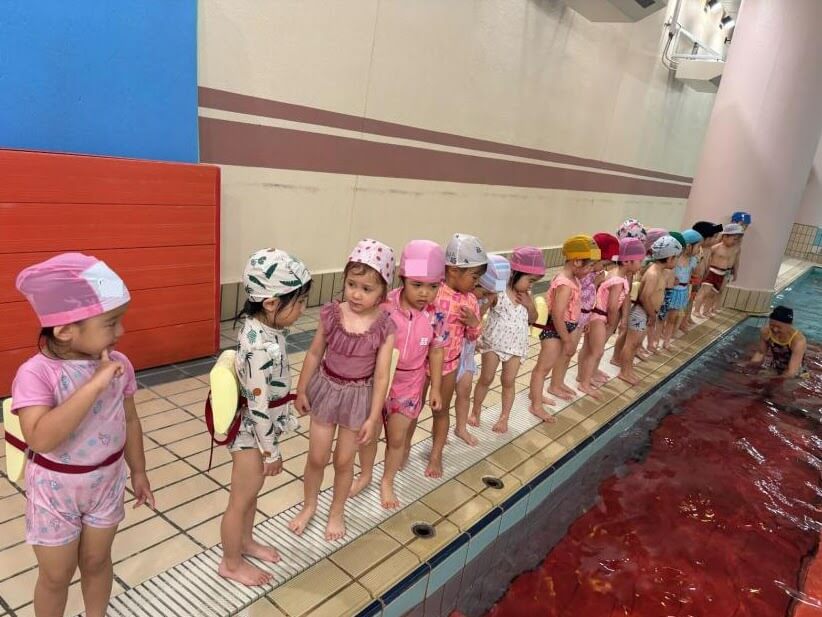
-
We have had a wonderful few months as Jungle friends, getting to know each other and settling in to our new environment. As the students have gotten more comfortable, so has their willingness to take risks, and no where is this clearer than during swimming time!
Whilst we have had some tears, our Jungle friends have been able to overcome their fears and (sometimes quite literally) dive head first into the activities, challenging themselves and cheering on their friends along the way.
Outside of the pool we have seen our Jungle friends reach out to friends they perhaps don't know so well and try foods they previously thought they didn't like! Overall we have been incredibly impressed by their willingness to take risks, and hope their experiences continue to serve them and broaden their horizons! Great job, Jungle friends!
Do You Like the Rain? What Is a Hydrangea?
This month, we connected the theme of “rain” with our current Unit of Inquiry (UOI), Who We Are – the Five Senses, and explored it from a variety of perspectives through different activities.
We began with the question: “What shape is rain?” Looking at photos of rain, the children freely shared their ideas, saying things like, “It’s round,” or “It’s not a square.” They were also introduced to the new word “shizuku” (raindrop), which helped them deepen their understanding of shapes. By listening to the sounds of light rain, heavy rain, and thunder, the children also discovered differences in the way rain sounds, using expressions such as “potsu potsu” and “zaa zaa.”
In another activity, they enjoyed recreating the sounds of rain using egg shakers and various instruments. Expressing natural phenomena through sound gave them opportunities to nurture their sensitivity and creativity. At a station where they observed droplets of water falling using droppers, the children gazed intently at the movement of the water, showing great concentration.
On another day, we talked about tsuyu (the rainy season in Japan), asking questions such as: “What happens to the ground when it rains?” or “What would you do if you found a puddle?” As they imagined these familiar rainy-day scenes, the children shared their thoughts and ideas. When they looked at photos of hydrangeas, their hearts were clearly moved, with comments such as, “So pretty!” and “It looks like purple.”
To express these feelings, the children also created their own hydrangea artworks. For many in Jungle class, this was their very first time using scissors. They eagerly practiced the snip-snip motion, enjoying the new experience while making many colorful flowers.
These kinds of fine motor skills—using their fingertips for detailed movements—are essential in daily life as children grow. Going forward, we will continue to provide opportunities through play and creative activities, ensuring that children can naturally and joyfully develop these skills while engaging with the world around them.
Jungle B
(3-year-olds)
Our 5 Senses
In Jungle B, our little explorers have been delving deep into the Unit of Inquiry (UOI) "Who We Are," engaging with the world around them through their five senses. Through this inquiry, the children have been learning not only about themselves but also about how they connect with their environment. For Sight, they participated in a fun and eye-opening activity where they wore hats over their eyes and tried to play with toys, gaining a sense of what it might feel like to experience blindness. This activity encouraged empathy and a greater appreciation for the sense of sight. For Smell, the class turned into a group of detectives, trying to identify different scents—spices, fruits, and flowers—through guessing games, sparking curiosity about the world of aromas.
The sense of Hearing was explored through an exciting animal guessing game, where children listened closely to animal sounds and tried to match them to the correct animal and also making their own music. This not only honed their listening skills but also expanded their knowledge of wildlife. For Touch, the kids enjoyed sensory play with sand and water, feeling the textures and learning how different materials can feel on their skin. Finally, during the Taste activity, the class conducted a "lunch survey," where they explored different flavors and discussed their likes and dislikes. This hands-on approach allowed the children to appreciate the complexity of their senses while also nurturing their sense of wonder and discovery. Through these activities, Jungle B has fostered a deeper understanding of who they are and how they perceive the world!
Children’s Growth Alongside the Changing Seasons
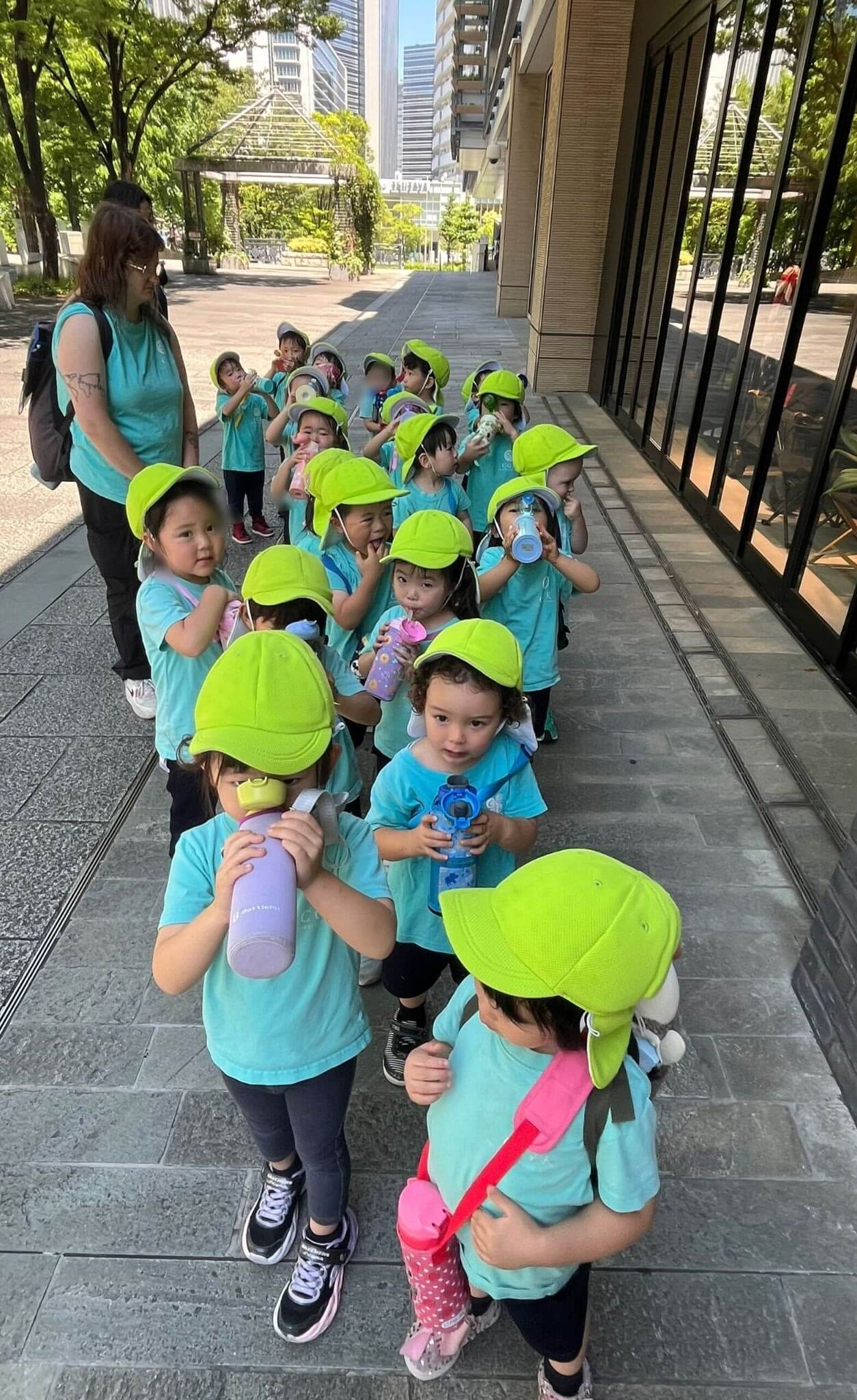


Starting this month, we began having one day a week where the children come to school in their uniforms. It was heartwarming to see them arriving with shy but happy smiles, wearing uniforms that are still a little big on them. While changing clothes is not yet completely smooth, we can see their determination as they try hard with tricky buttons and hooks.
During their very first swimming lessons, many children needed extra time to change, but after several experiences, they have gradually learned to prepare more independently. We will continue to support each child patiently at their own pace as they practice changing into and out of their uniforms. We also place importance on encouraging them to fold their clothes, organize their lockers and bags, and develop the ability to “take responsibility for their own belongings.” We are truly grateful for the cooperation and support from families at home, and we kindly ask for your continued partnership.
This month also offered many opportunities for the children to focus on their own bodies and health, including dental checkups, toothbrushing lessons, and a medical checkup. At this age, it can be a little difficult to imagine and understand the “inside of the body” since it is invisible, but with the help of picture books and visual materials, the children were able to understand in their own way what happens during a checkup, why it is important, and what they can do to stay healthy. They even began to share their ideas and thoughts in their own words.
This year’s rainy season has had little rain and many hot days, with rapid changes in temperature making it a challenging time to stay healthy. In class, we have been talking with the children about “the water inside our bodies,” using illustrations to help them understand. When we explain, “If the water inside your body decreases through sweat, you won’t have as much energy, so let’s drink water to stay strong,” the children respond well and have even started to say things like, “I only have half the water left inside me, so I need to drink and get strong again!” It has been wonderful to see them take initiative in staying hydrated.
As the days continue to grow hotter, we will keep finding creative ways to adapt our activities and environment so that the children can enjoy each day while staying healthy and full of energy.
Ocean
(2-year-olds)
Exploring Expression: A Colorful Journey in Ocean Class
To help prepare for our recent checkups, we’ve been exploring our line of inquiry, “Our Body” as part of our “Who We Are” Unit of Inquiry. It’s been a great opportunity to learn about doctors, dentists, and all the different ways we can take care of ourselves.
We kicked things off by reading Go Away, Big Green Monster!, a fun and interactive book that helped us learn the names of different facial features. It also introduced us to the phrases “Go away!” and “Come back!”, which were not only great for language practice but also helped build a little confidence!
Next, we learned about what doctors do. With the help of songs like Doctor, Doctor, we acted out visits to the clinic and even had pretend checkups with “Doctor Mami,” “Doctor Yukiko,” and “Doctor Heather.” Ocean friends had their ears, mouths, and hearts checked using both real and toy tools. Everyone was so brave, and many children shared that seeing a doctor isn’t so scary after all!
Once we knew what to expect, it was time for the real health check at CGK Kannai Campus. The children rode the bus, waited patiently, and took turns visiting the doctor. While some students were a bit nervous, everyone did an amazing job! Afterwards, we reflected on how we felt using emojis. We recognized that even though we all had the same experience, we might feel very differently about it.
But our health journey didn’t stop there! We also learned about taking care of our teeth. We explored why brushing is important, made “dirty” paper teeth and practiced brushing them clean. The kids even made their own toothbrush crafts and checked toy dolls for cavities!
Just like the health check, we took some time to explore our feelings. We checked in before and after the check and chose a face that reflected how we felt. We looked at photos from the day, talked about what happened, and compared how we felt before and after. It wasn’t easy to compare feelings across two days, but Ocean friends gave it their all! Some children noticed they felt the same before and after, while others realized their feelings had changed. A few who were nervous at first found it really wasn’t so scary after all. We used emojis to help express our emotions and shared our thoughts with the class. It was a beautiful moment of self-awareness and communication, and we were so proud to see the children expressing themselves so thoughtfully.
Please continue these conversations at home. Ocean is doing an amazing job learning how to stay healthy- inside and out! 🩺🪥💙
Believe in Yourself and Give It a Try! ~Risk Takers~
It’s hard to believe that nearly three months have already passed since the start of the school year. In Ocean class, the children are showing curiosity in so many new things, experiencing the joy of trying tasks on their own, and feeling the pride of accomplishment when they succeed.
Things they once relied on their teachers to help with are now being attempted independently, and sometimes they even declare, “I’ll do it myself!” Step by step, they are becoming more capable—putting on and taking off socks, shoes, and clothes, eating with spoons and forks, putting away their water bottles, and washing their hands. Their independence is also growing during daily routines, such as preparing for outings by getting their own hats and water bottles. Another big step forward is that they can now line up when prompted, just with a teacher’s voice.
Their willingness to face challenges—whether something difficult or something new—with a positive “Let’s try!” attitude reflects the IB Learner Profile attribute of being a risk-taker.
To support this motivation and growth, we carefully observe each child’s stage of development and daily moods, providing “just enough” support only when it is truly needed. Of course, there are times when things don’t go smoothly or when children simply don’t feel up to it. In those moments, instead of stepping in immediately, we encourage them to use their words—such as “Help please” or “Tetsudatte (help me)”—to ask for assistance.
For two-year-olds, expressing feelings through words is not easy. But with patient and consistent support, children gradually learn to “use words when they need help” and become able to express their feelings appropriately. This helps them develop the ability to connect with others through communication, rather than tantrums or loud crying. It also gives them a sense of reassurance—“I was understood”—which motivates them to engage more positively.
Verbal expression is a process that takes time, but Ocean class children are right in the middle of developing this important skill. Moving forward, we will continue to value experiences that allow them to try things on their own, while carefully nurturing both their independence and emotional growth.
Elementary School / Middle School
Hello from Middle School!
Excitement, anxieties, anticipation, and nervousness. These are the some of the feelings that could well up when starting a new chapter like Middle School. Bodies are growing and changing. Minds developing. There are strong cravings for more independence, belonging, and purpose, however still requiring the support and guidance of those around us. It is a tough period of change in everybody's lives.
We are proud to have welcomed 11 amazing, thoughtful, and unique Grade 6 and 7 students to our Middle School department since we opened in April. With groups coming from different circumstances, environments, and world views, it has been a rewarding and challenging journey in developing a class culture, making bonds, and learning everyone's unique quirks and personalities within each of the subjects the Middle School has to offer.
There are many highlights from the past three months since we opened up our new department at CGK!
We kicked off with fun with the Spring Picnic in April. It was great to have the students lead the games they chose, meet each others' families, and to see the CGK community share our time together!
We enjoyed Literacy Week mid-May with multiple reading activities to promote literacy. As Middle schoolers, they showed up as leaders by performing readers theater for the Grade 3 students, as well as individually leading a story time for a small group of Grade 1 or 2 students. Everyone enjoyed their enthusiasm, book choice, and the teamwork that went into it.
Japanese Culture Day was a highlight for June as our students were busy setting up our game booth, “Aim at Wagashi” for the rest of the students to enjoy. They did a great job creating an idea, discussing rules for the game, and taking on the leadership roles while working together to create a successful booth.
Here are some of the activities and learning experiences that have been taking place so far:
Science
Students explored hypotheses, data collection, testing, and conclusion through the creation of their own games. They are now creating their own mini models of motion and using their scientific minds to explore the world of physics.
Theater
They have been creating some of their own dialogue and acting it out. The students enjoy playing improv games such as "Story, story, die" and "Sculptor and statue".
Music
The student’s collaboration with creating a composition has been amazing! They have either picked up a new instrument or are showing their own knowledge through helping out their peers with an instrument that they are already an expert in. They have been practicing "My Medicine" and "Classic" together as a group and it is really coming together well!
Individuals and Society
The students have explored different aspects of their identity through activities such as self-love practice and have thought about questions for their reverse self interview. They culminated their learning through a video message to their future-self. They are now inquiring about the best living factors of a community such as access to resources or an attractiveness of an area and learning how to argue and communicate their own research.
English Language and Literature
Students have been reading the novel “Wonder” and exploring character traits, figurative language, and point of view. They will use this knowledge to include in their own personal narratives.
Math
Students have explored the concept of simplifying large problems by making approximations through the concept of the Fermi estimation. They are finishing their projects on how much water they use within a year and what the impact this has on the world. They are also moving onto converting fractions, decimals, and percentages that have real world applications such as budgeting, discounts, and cooking recipes.
Physical Health and Education
Students have been creating their own games, coming up with their own rules, and making sure it is something that is fun for everyone to play, building on their teamwork and collaboration skills.
Japanese Language and Literature
Students have focused on what technological innovations looks like within different contexts and have been tasked with choosing and researching a country of their choice, and writing an essay to report their findings. They are currently starting a new unit inquiring into the story of "Nausicaa of the Valley of the Wind" to explore the concept of globalization and sustainability.
Language Acquisition
Students are working on either English, Japanese, or Spanish for their language acquisition time.
English Acquisition focuses on building up the students' foundation of basic grammar, reading, writing, and conversation skills, to be able to catch up to the academic language demands of the school. Spanish class is mainly conversation based and is led by the students' inquiring questions, such as food, music, or culture. Japanese class is focusing on how to get a specific message across to people through creating advertisements in different types of media.
Social Emotional Learning
As middle school is a new foundational step in their development and growth, we have SEL classes to explore topics such as managing emotions, conflict resolution, and thinking about their circle of control. We have been using this time to do Social Emotion Circle, SEC, in times of crisis or to check up on how each of us are feeling, while validating each other in a safe listening space.
Passion Project
Students have been allowed to explore their passions and work on topics that bring them joy. It has been fun seeing all the different directions students are taking their passions, such as creating their own full course menu or thinking about how they can open up their own dance club. We are excited to see what they have been working and learned throughout this term!
It has been an absolute joy to work with our Grade 6 and 7 students. Their energy, curiosity, and growth in just a short amount of time is truly inspiring. We look forward to watching them continue to thrive and develop throughout the school year.
Afterschool
How Can We Survive In The Wild? - Class A
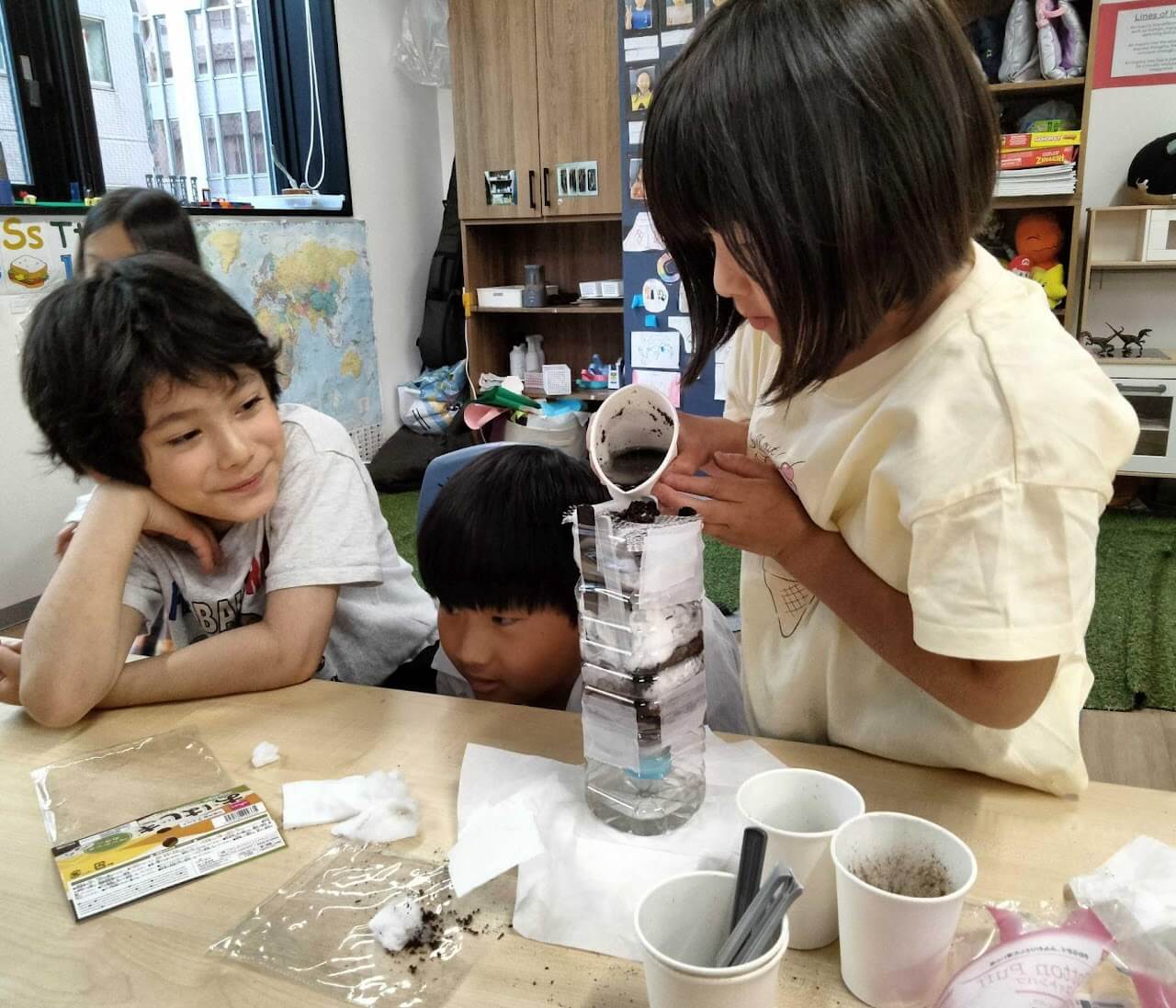

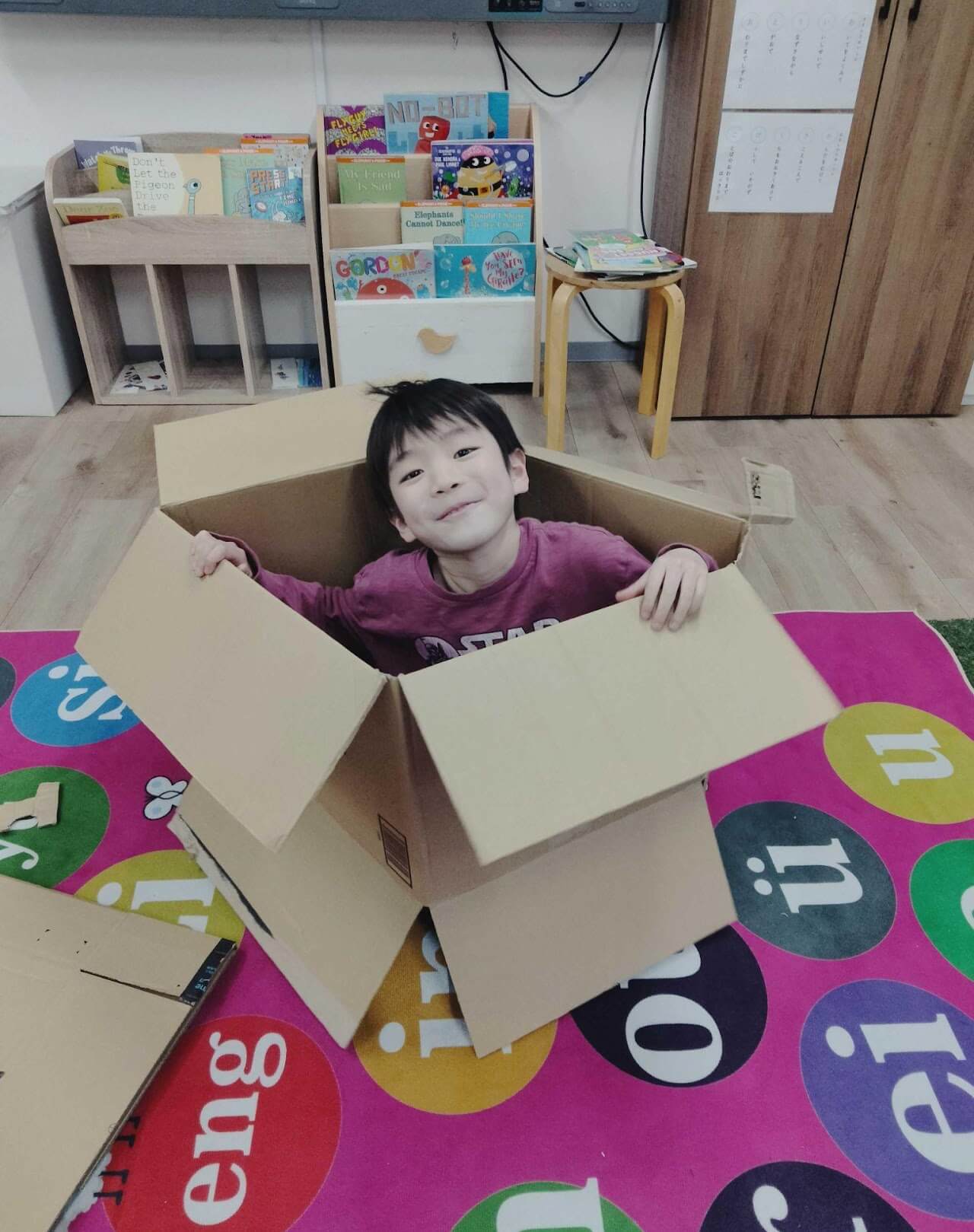

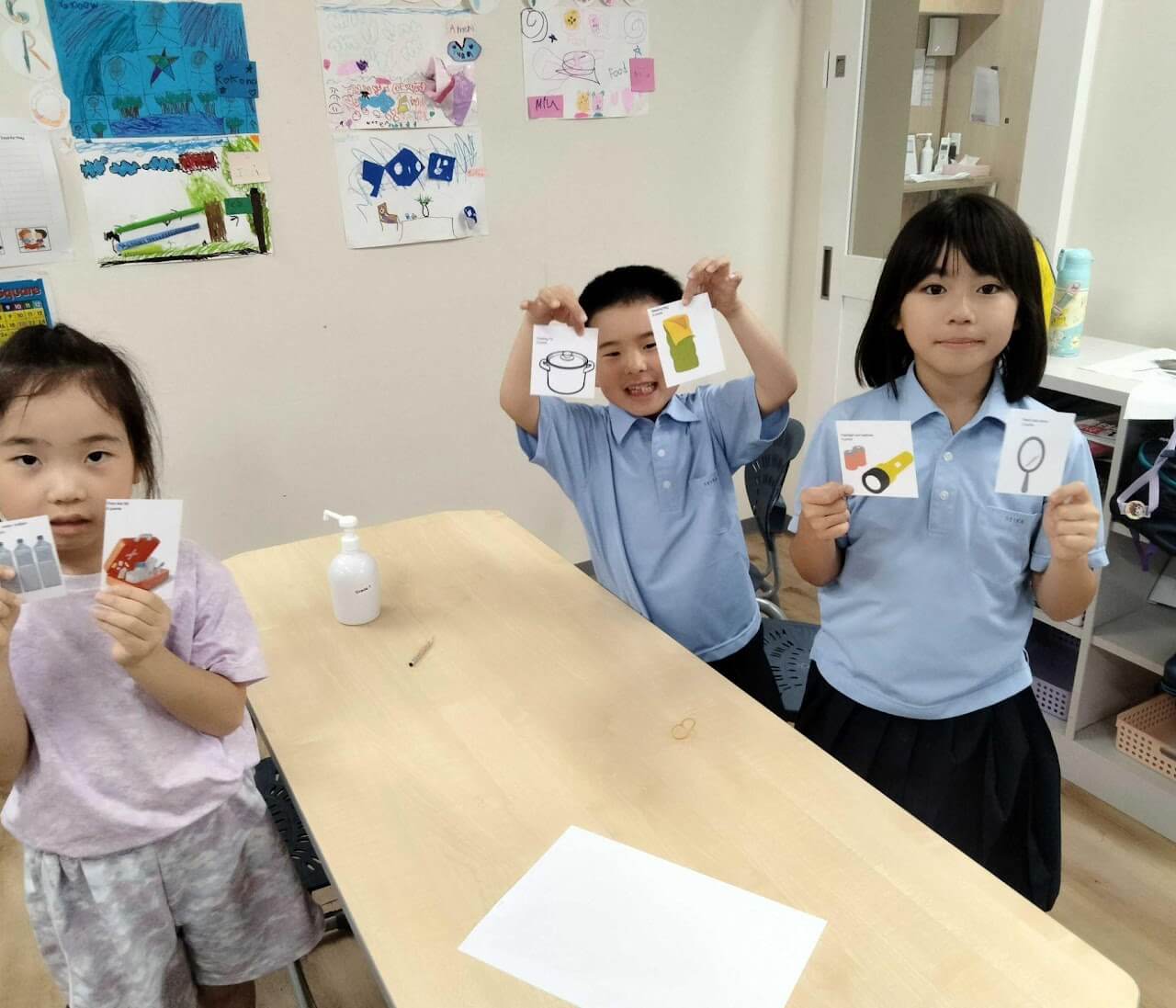

Hi all,
Over the past few weeks, Class A has been immersed in an exciting project exploring the driving question: “How Can We Survive in the Wild?” This unit has sparked curiosity, creativity, and some incredible teamwork!
We began by breaking down the key terms “survive” and “wild”, sharing what we already knew and building a foundation of understanding together. From there, through discussions and hands-on learning, the class identified three essential components needed to survive in the wilderness:
- Shelter
- Clean Water
- Fire
Each element became the focus of a mini-project. Students designed and constructed their own model shelters using materials such as popsicle sticks, chopsticks, and hot glue. They then moved on to creating homemade water filters using plastic bottles, cotton, tissue, marbles, and other materials to clean dirty water—learning first-hand how to remove impurities and make water safer to drink.
When it came to fire, students explored how to start a campfire without matches or lighters. Through videos and research, they discovered the roles of tinder, kindling, firewood, and safety measures. They then applied this knowledge by building model fires using what they’d learned.
To put their survival skills to the test, the class participated in a survival simulation challenge. Working in teams and given different sets of items, students had to navigate three "days" in the wild, facing surprise scenarios like extreme weather, wild animal encounters, and calls for rescue. It was great to see them apply their learning, critical thinking, and collaborate creatively to make it through!
I am proud of the effort and enthusiasm Class A has shown throughout this project. We can’t wait to share our learning journey with you soon!
Regards,
Ms. Amy R.
Class A Teacher
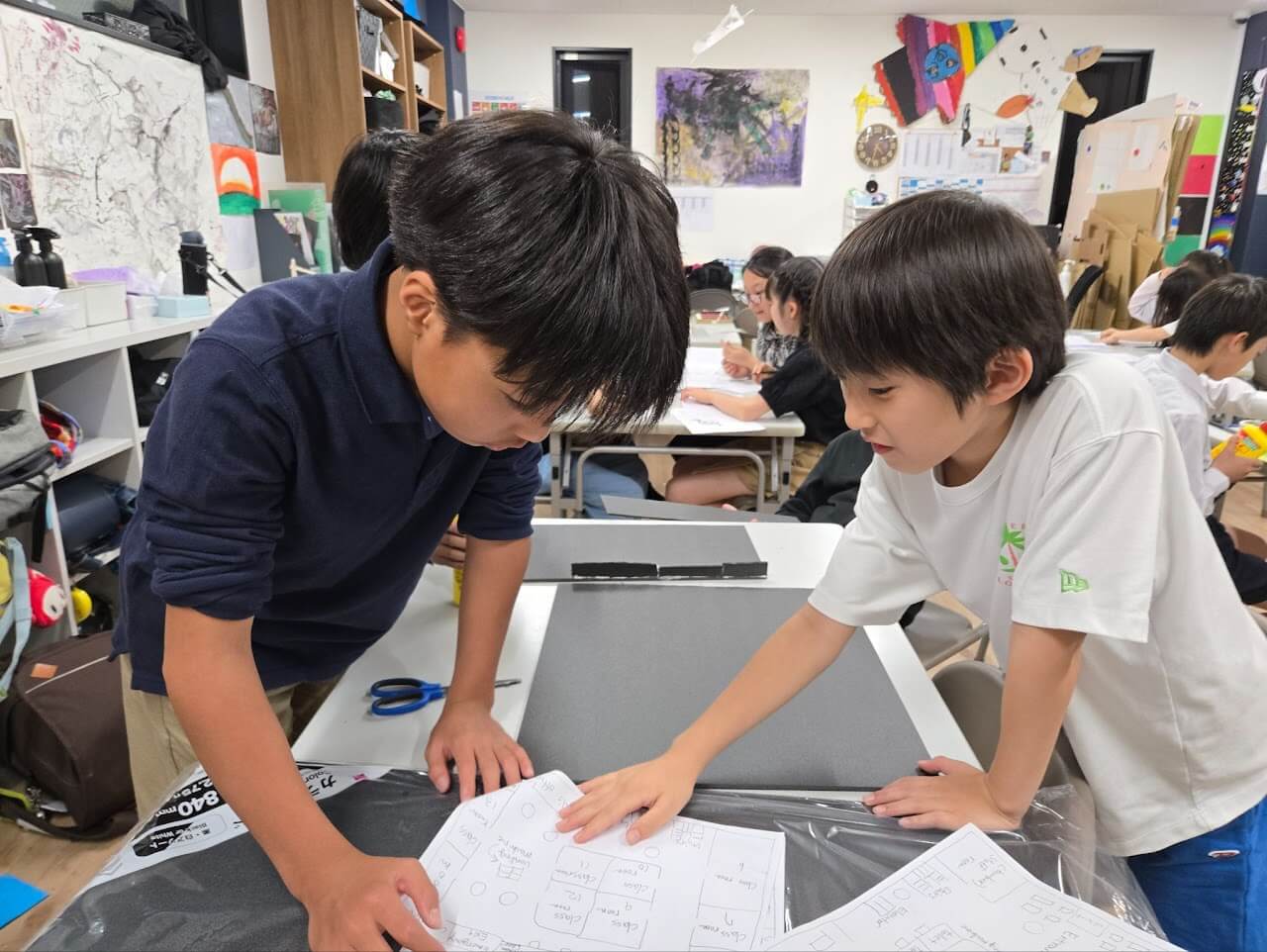

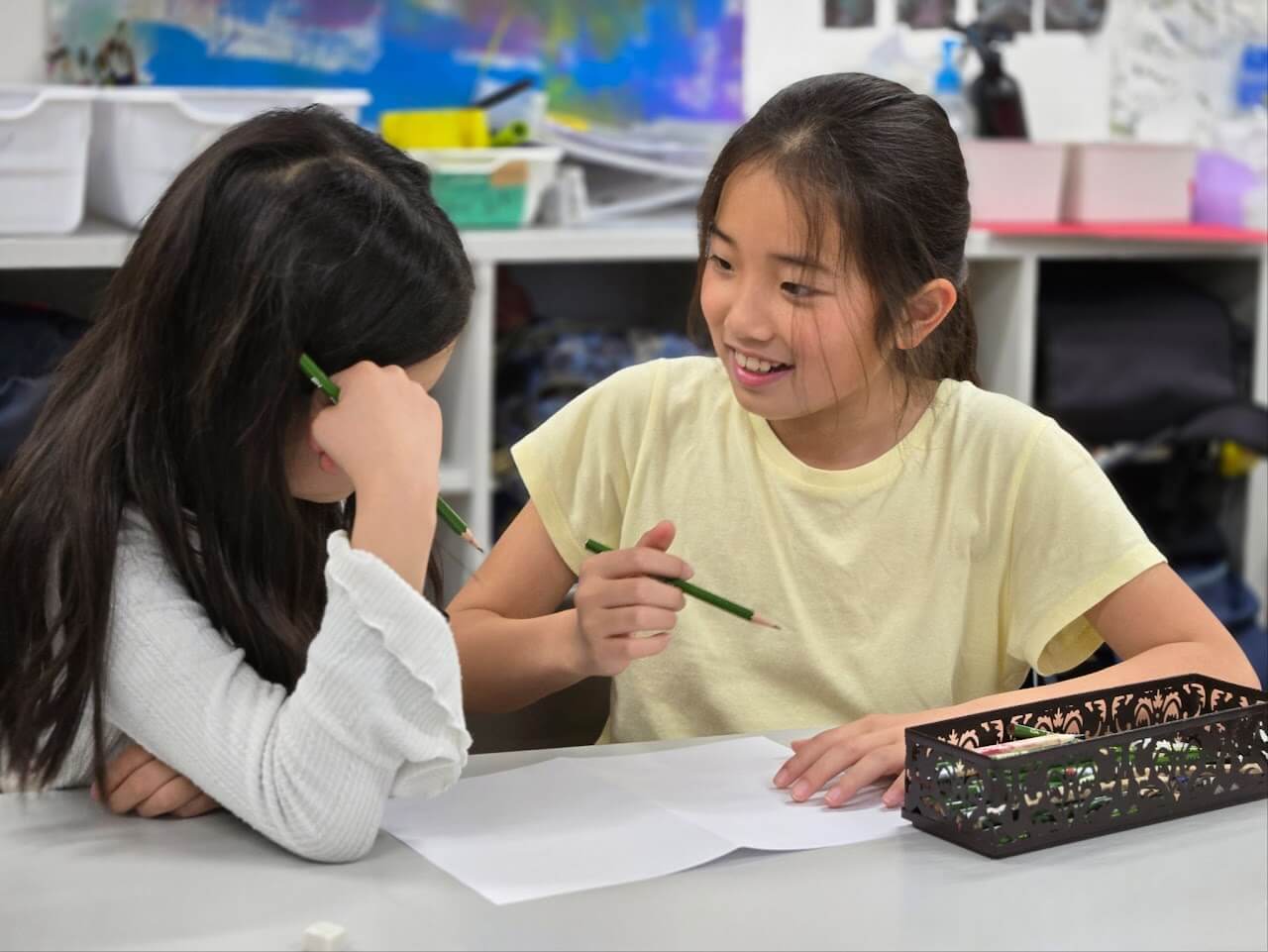

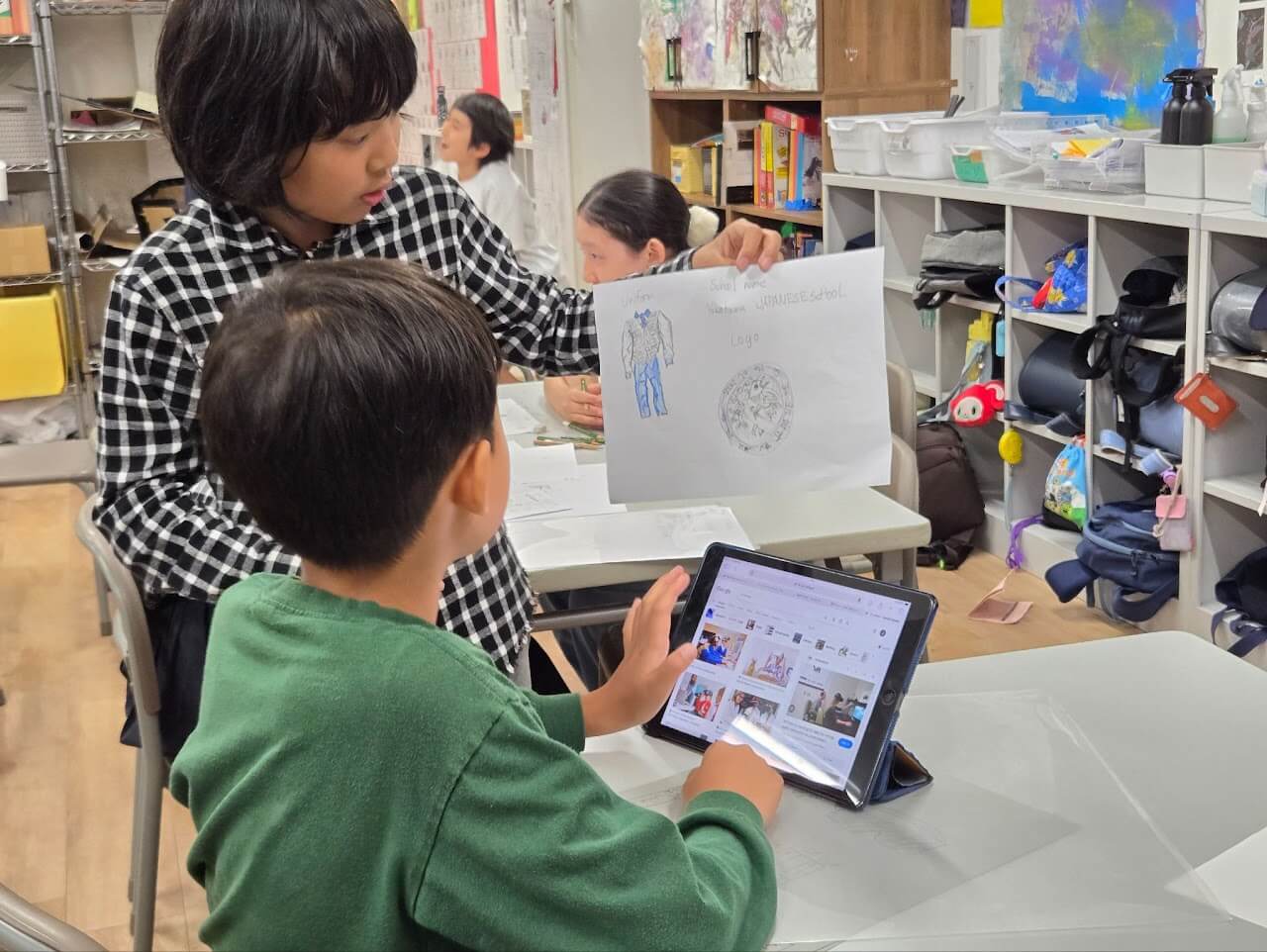

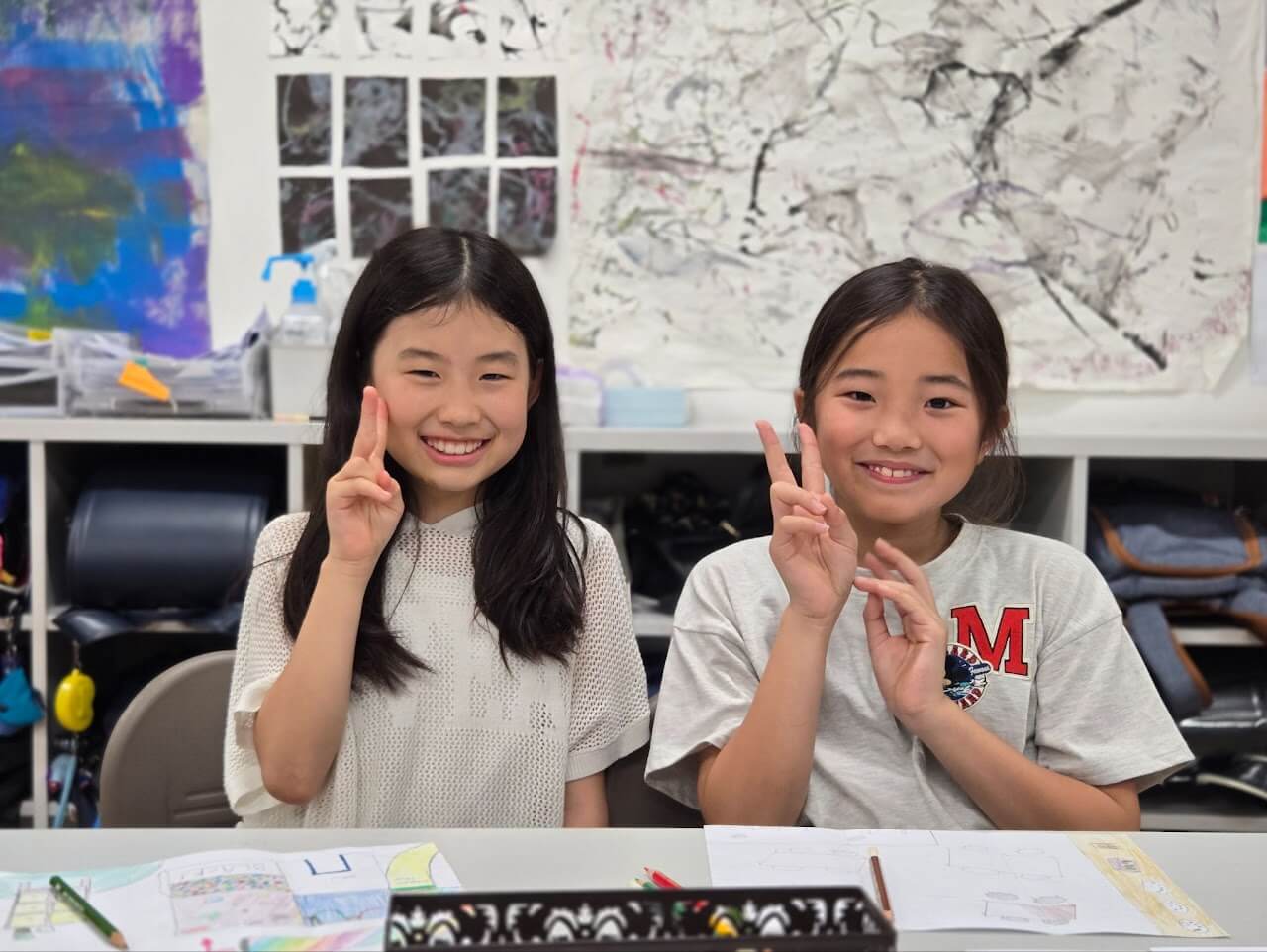

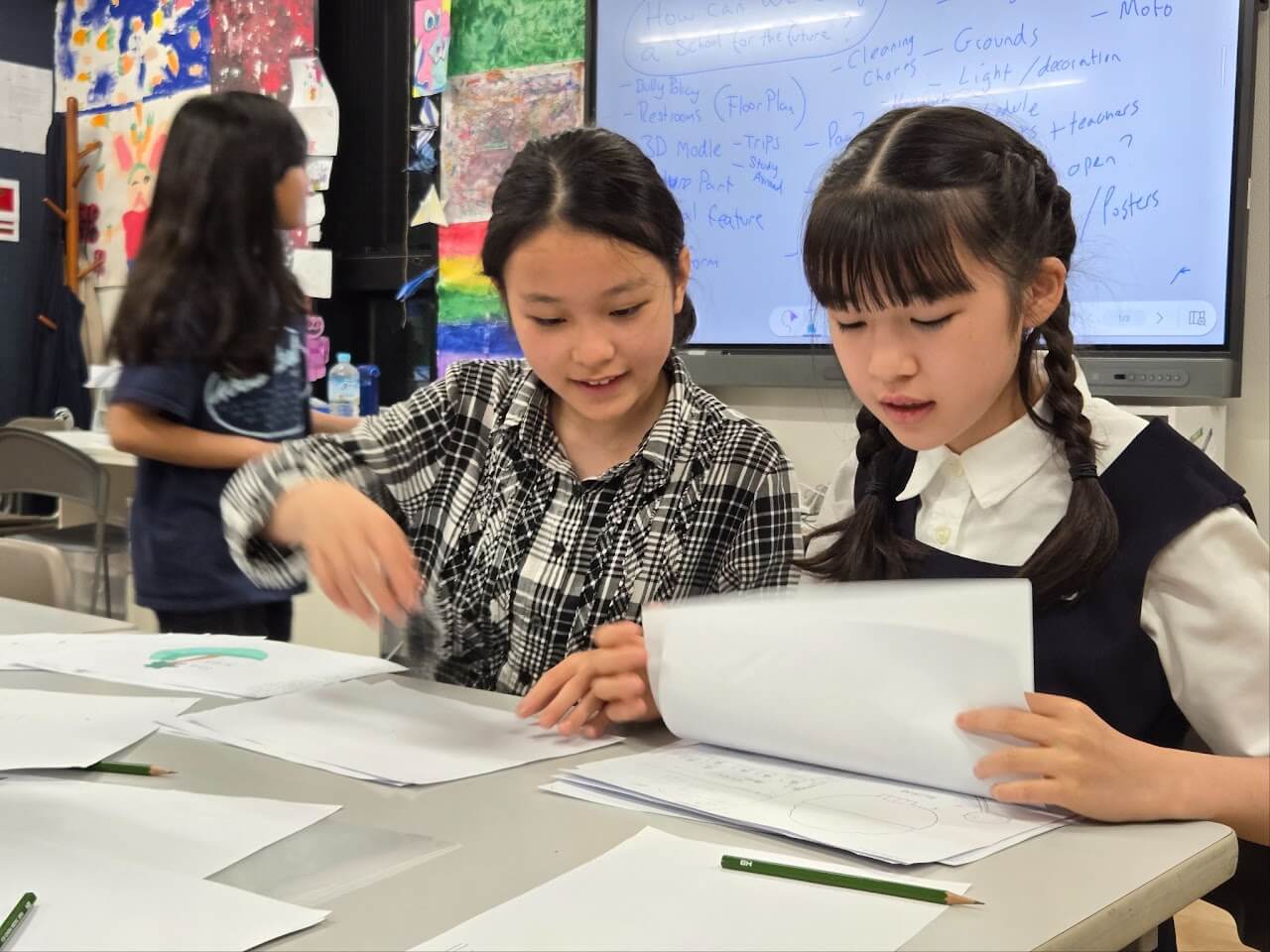

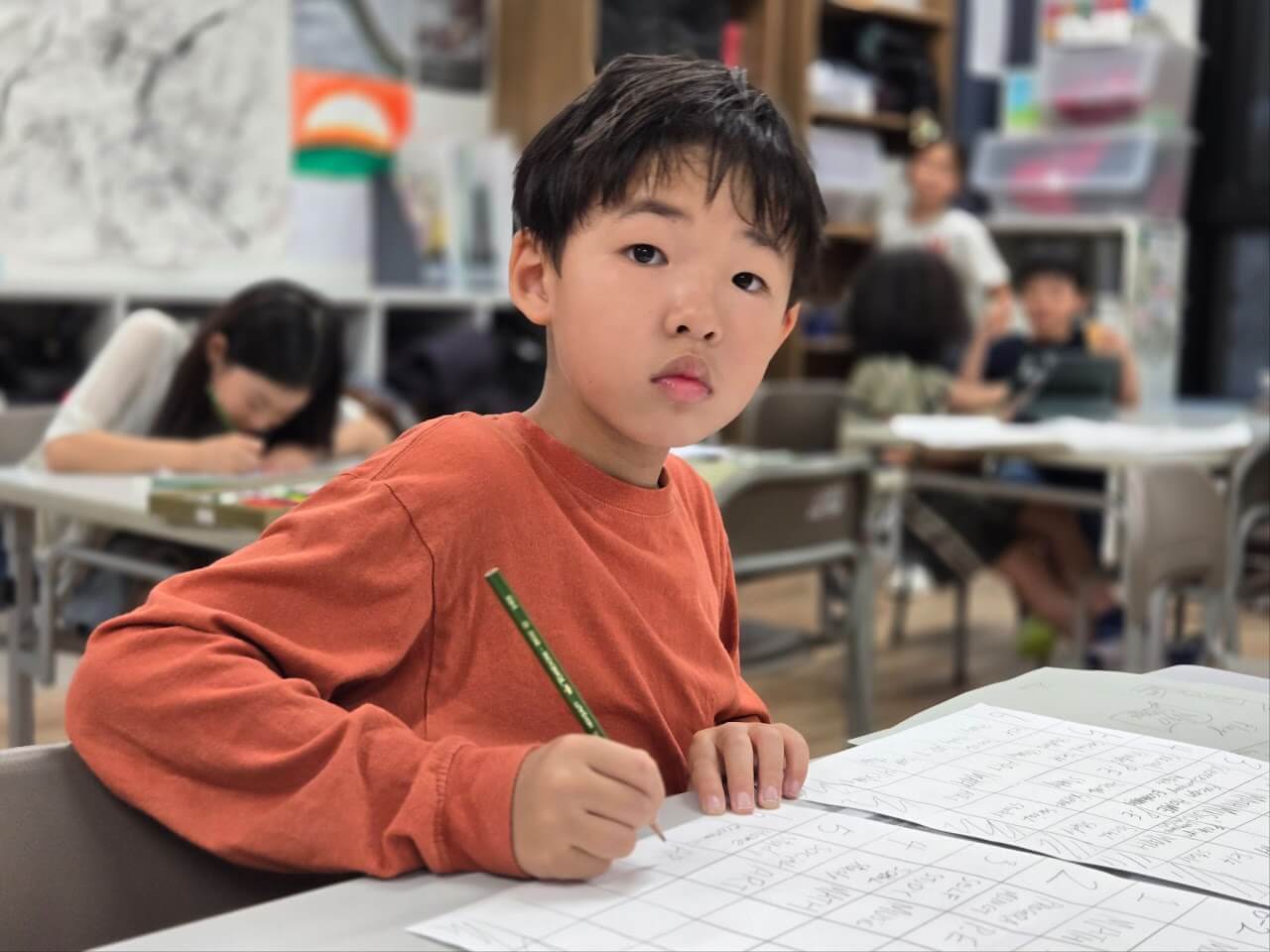

CGK Extra
Website Updates
[AS] First-Graders Explore Electricity with Hands-On Projects
Community Support We Can Do with Our Children – CGK Joins Yokohama Spring Homeless Patrol
Currently recruiting participants for study abroad programs
- Throughout the year (on weekends or during long breaks, either for day trips or overnight stays)
- You can experience a homestay with a foreign family residing in Japan.
- Deadline: Approximately one month prior to your desired dates
- For details/application, please contact Mayu at the Office.
Accepting short-term international students from overseas - Wanted host families
-



-
CGK has a positive stance on accepting international students from abroad with a view to encouraging multicultural cooperation. Students from different cultures and backgrounds can interact with and help each other at CGK, bringing rich diversity to the classroom. This environment of diversity provides each student with a valuable opportunity to learn different viewpoints and increase mutual understanding.
At CGK, we believe that diversity improves educational development. By learning and working together, students from different backgrounds will grow into leaders with global perspective. In addition, experiencing diverse opinions and values will help them develop tolerance and empathy.
In order to create an environment conducive to hosting short-term students, we are looking for host families; if you are a CGK family interested in registering as a host family, please contact Mayu at the Office (Toddle is OK).
-























